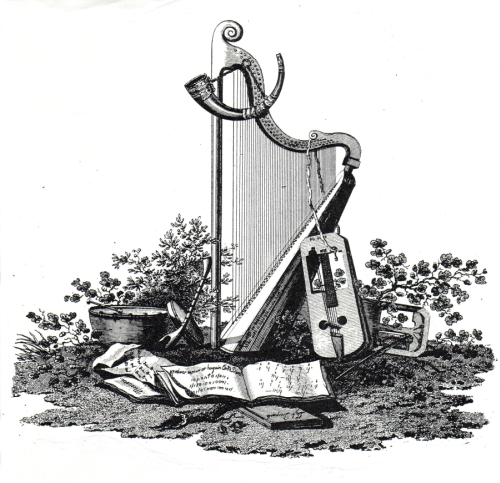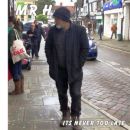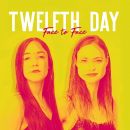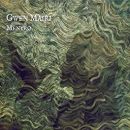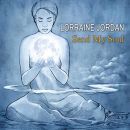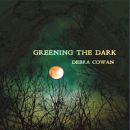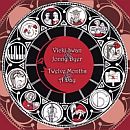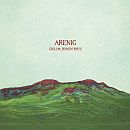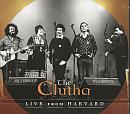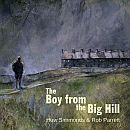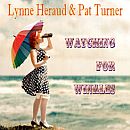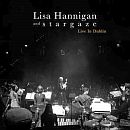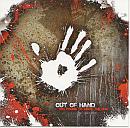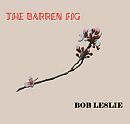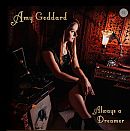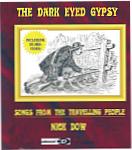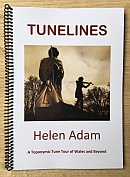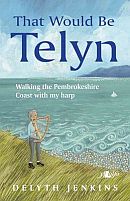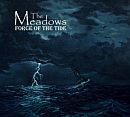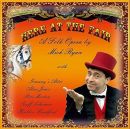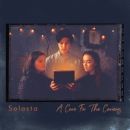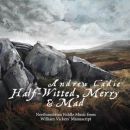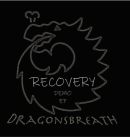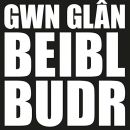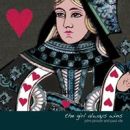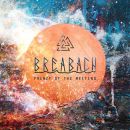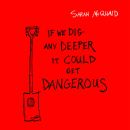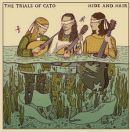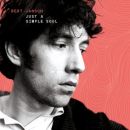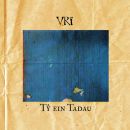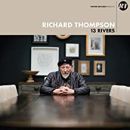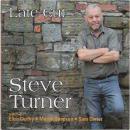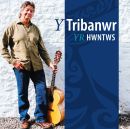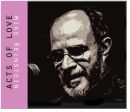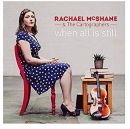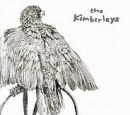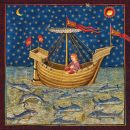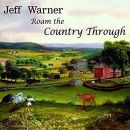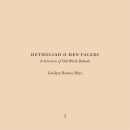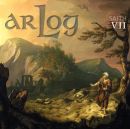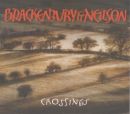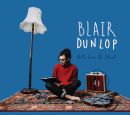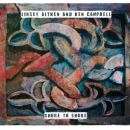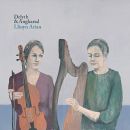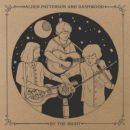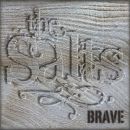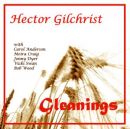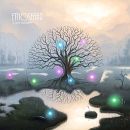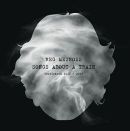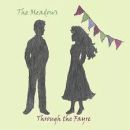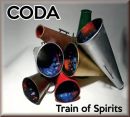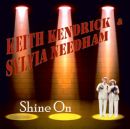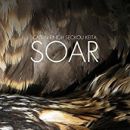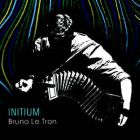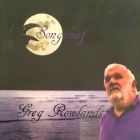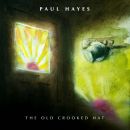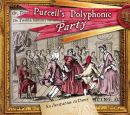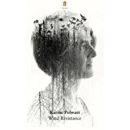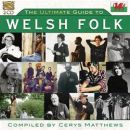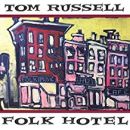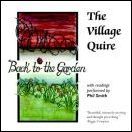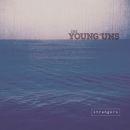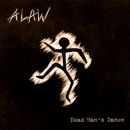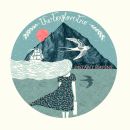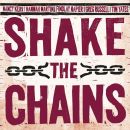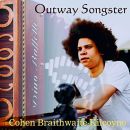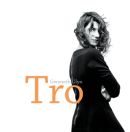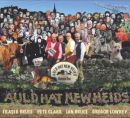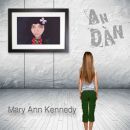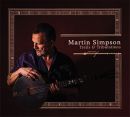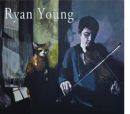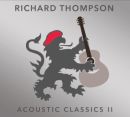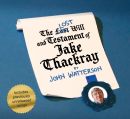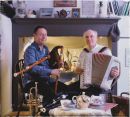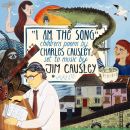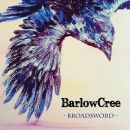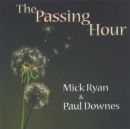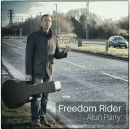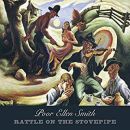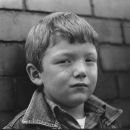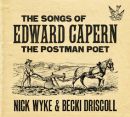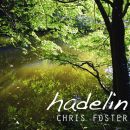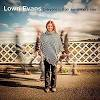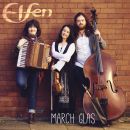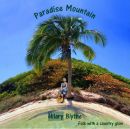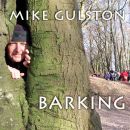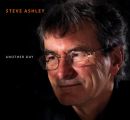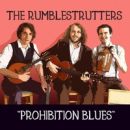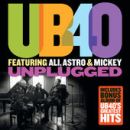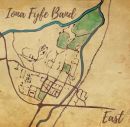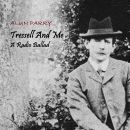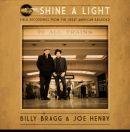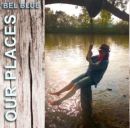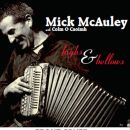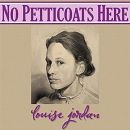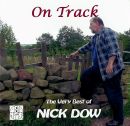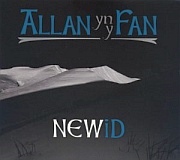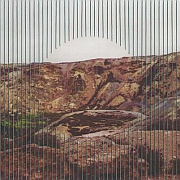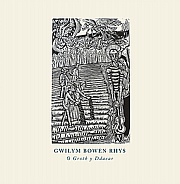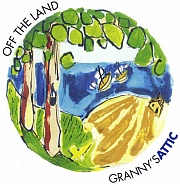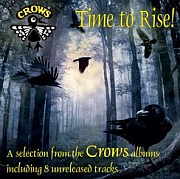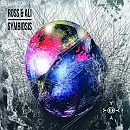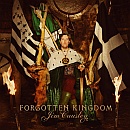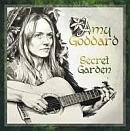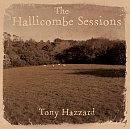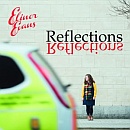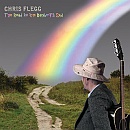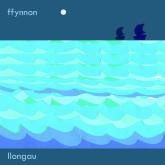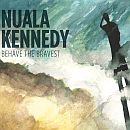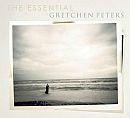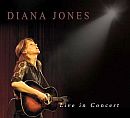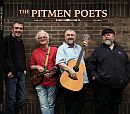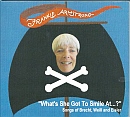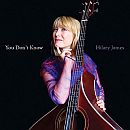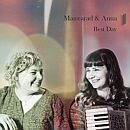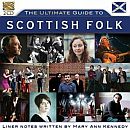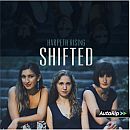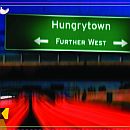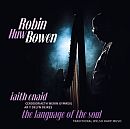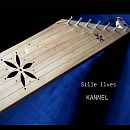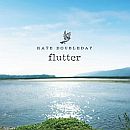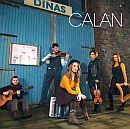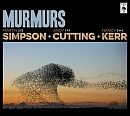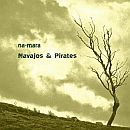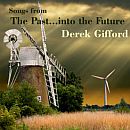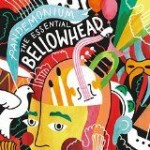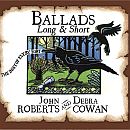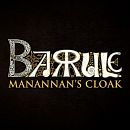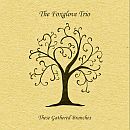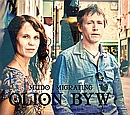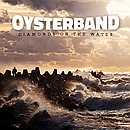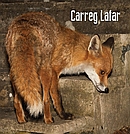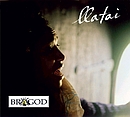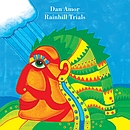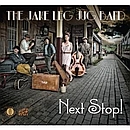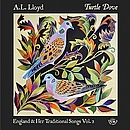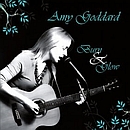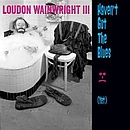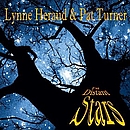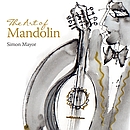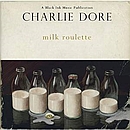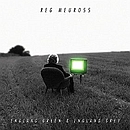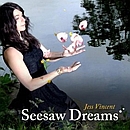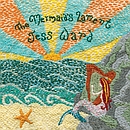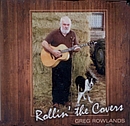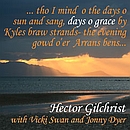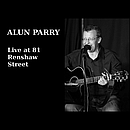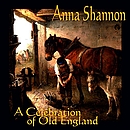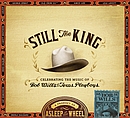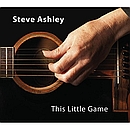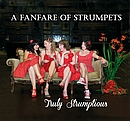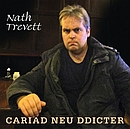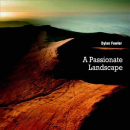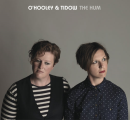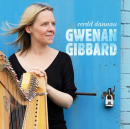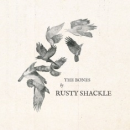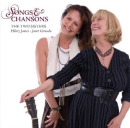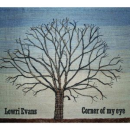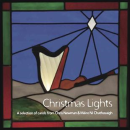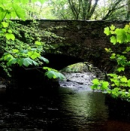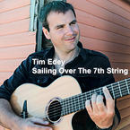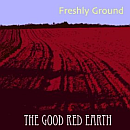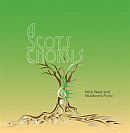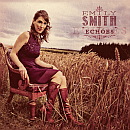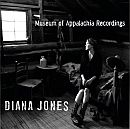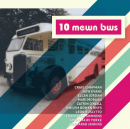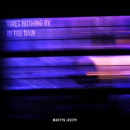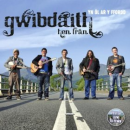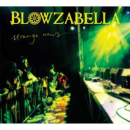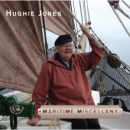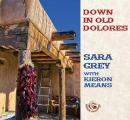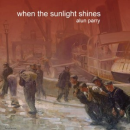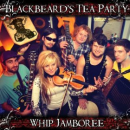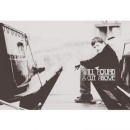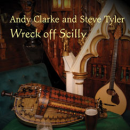Expand the Table of Contents to find the review you want
Contents
- MR H
- TWELFTH DAY
- GWEN MÀIRI
- LORRAINE JORDAN
- DEBRA COWAN
- KARINE POLWART
- MICK’S QUICKS
- YOUNG TRAD TOUR 2018
- VICKI SWAN & JONNY DYER
- THE SPOOKY MEN’S CHORALE
- GWILYM BOWEN RHYS
- THE CLUTHA
- HUW SIMMONDS & ROB PARRETT
- LYNNE HERAUD & PAT TURNER
- LISA HANNIGAN & S T A R G A Z E
- OUT OF HAND
- BOB LESLIE
- AMY GODDARD
- NICK DOW
- BOOK REVIEW – HELEN ADAM
- BOOK REVIEW – DELYTH JENKINS
- THE MEADOWS
- MICK RYAN & CAST
- SOLASTA
- MICK’S SICKS and QUICKS
- MICK’S QUICKS
- ANDREW CADIE
- DRAGONS BREATH
- LLEUWEN
- JOHN ROGERS PROSSER & PAUL VILE
- BREABACH
- SARAH McQUAID
- THE TRIALS OF CATO
- BERT JANSCH
- VRΪ
- RICHARD THOMPSON
- STEVE TURNER
- YR HWNTWS
- MIKE REINSTEIN
- RACHAEL McSHANE & THE CARTOGRAPHERS
- THE KIMBERLEYS
- STEVE ASHLEY
- MICK’S QUICKS
- NICHOLAS BREEZE WOOD
- JEFF WARNER
- GWILYM BOWEN RHYS
- AR LOG
- BRACKENBURY & NEILSON
- DÀIMH
- BLAIR DUNLOP
- MICK’S QUICKS
- LINSEY AITKEN & KEN CAMPBELL
- DELYTH & ANGHARAD
- ALDEN PATTERSON AND DASHWOOD
- THE SALTS
- HECTOR GILCHRIST
- ETNOSFÄÄR
- REG MEUROSS
- THE MEADOWS
- CODA
- KEITH KENDRICK & SYLVIA NEEDHAM
- CATRIN FINCH & SECKOU KEITA
- MAIMU JÖGEDA
- BRUNO LE TRON
- GREG ROWLANDS
- PAUL HAYES
- PURCELL’S POLYPHONIC PARTY
- KARINE POLWART with PIPPA MURPHY
- JON BODEN
- VARIOUS ARTISTS
- TOM RUSSELL
- SAZ’ISO
- THE VILLAGE QUIRE
- THE YOUNG’UNS
- ALAW
- THE FOXGLOVE TRIO
- NANCY KERR, HANNAH MARTIN, FINDLAY NAPIER, GREG RUSSELL, TIM YATES
- JOE BROUGHTON’S CONSERVATOIRE FOLK ENSEMBLE
- MICK’S QUICKS – AUGUST 2017
- COHEN BRAITHWAITE-KILCOYNE
- GWYNETH GLYN
- FRASER BRUCE, PETE CLARK, IAN BRUCE, GREGOR LOWREY
- MARY ANN KENNEDY
- MARTIN SIMPSON
- RYAN YOUNG
- RICHARD THOMPSON
- REG MEUROSS
- JOHN WATTERSON
- ALISON & JACK
- MOIRAI
- DAVID FAULKNER & STEVE TURNER
- JIM CAUSLEY & FRIENDS
- BARLOWCREE
- MICK RYAN & PAUL DOWNES
- ALUN PARRY
- RATTLE ON THE STOVEPIPE
- SHARON SHANNON
- CORMAC BEGLEY
- NICK WYKE & BECKI DRISCOLL
- CALAN
- QUARTO
- CHRIS FOSTER
- LOWRI EVANS
- ELFEN
- HILARY BLYTHE
- SIOBHAN MILLER
- MIKE GULSTON
- STEVE ASHLEY
- THE RUMBLESTRUTTERS
- CARREG LAFAR
- UB40 FEATURING ALI, ASTRO & MICKEY
- IONA FYFE BAND
- ALUN PARRY
- BILLY BRAGG & JOE HENRY
- VICKI SWAN & JONNY DYER
- BEL BLUE
- GEORGIA RUTH
- THE GENTLE GOOD
- MICK McAULEY
- LOUISE JORDAN
- NICK DOW
- ALLAN YN Y FAN
- PLU
- GWILYM RHYS BOWEN
- GRANNY’S ATTIC
- CROWS
- ROSS AINSLIE & ALI HUTTON
- JIM CAUSLEY
- AMY GODDARD
- TONY HAZZARD
- ELINOR EVANS
- CHRIS FLEGG
- FFYNNON
- NUALA KENNEDY
- GRETCHEN PETERS
- DIANA JONES
- BILLY MITCHELL, BOB FOX, BENNY GRAHAM, JEZ LOWE
- FRANKIE ARMSTRONG
- HILARY JAMES
- MAIREARAD & ANNA
- VARIOUS SCOTTISH ARTISTS
- HARPETH RISING
- HUNGRYTOWN
- JESS VINCENT
- ROBIN HUW BOWEN
- SILLE ILVES
- KATE DOUBLEDAY
- CALAN
- SIMPSON • CUTTING • KERR
- NA-MARA
- PAUL LLOYD NICHOLAS
- DEREK GIFFORD
- BELLOWHEAD
- JOHN ROBERTS & DEBRA COWAN
- BARRULE
- THE FOXGLOVE TRIO
- OLION BYW
- OYSTERBAND
- CARREG LAFAR
- BRAGOD
- DAN AMOR
- THE JAKE LEG JUG BAND
- A.L. LLOYD
- AMY GODDARD
- LOUDON WAINWRIGHT III
- LYNNE HERAUD & PAT TURNER
- SIMON MAYOR
- CHARLIE DORE
- REG MEUROSS
- JESS VINCENT
- JESS WARD
- 9BACH
- GREG ROWLANDS
- HECTOR GILCHRIST
- ALUN PARRY
- ANNA SHANNON
- ASLEEP AT THE WHEEL/VARIOUS ARTISTS
- STEVE ASHLEY
- A FANFARE OF STRUMPETS
- NATH TREVETT
- JOE STEAD
- MICK’S QUICKS
- Allan Yn Y Fan
- Mr H
- James Keelaghan
- Jimmy Aldridge and Sid Goldsmith
- Moulettes
- Linsey Aitken and Ken Campbell
- Adam Cohen
- The National Youth Folklore Troupe of England
- Vicky Swan and Jonny Dyer
- Josienne Clarke and Ben Walker
- Police Dog Hogan
- George Spicer and Mark T
- The National Youth Folklore Troupe of England
- Arooj Aftab
- Bruce and Walker
- BEFORE JANUARY 2015
- DYLAN FOWLER
- O’HOOLEY & TIDOW
- GWENAN GIBBARD
- RUSTY SHACKLE
- THE TWO SISTERS
- LOWRI EVANS
- CHRIS NEWMAN & MÁIRE NÍ CHATHASAIGH
- BRENIG
- JOHN JAMES
- TIM EDEY
- FRESHLY GROUND
- MICK WEST & MULDOON’S PICNIC
- EMILY SMITH
- DIANA JONES
- VICKI SWAN & JONNY DYER
- MEGSON
- 10 MEWN BWS
- MARTYN JOSEPH
- GWIBDAITH HEN FRÂN
- BLOWZABELLA
- HUGHIE JONES
- SARA GREY WITH KIERON MEANS
- ALUN PARRY
- BLACKBEARD’S TEA PARTY
- WILL POUND
- ANDY CLARKE & STEVE TYLER
- OLION BYW
- THUMBS UP
- Suzy Bogguss
DECEMBER 2019
MR H
It’s Never Too Late
Barium Villa Records
A few years ago, a songwriter called Mr H packed his acoustic guitar, left his home in Mid-Wales and displayed his bourbon-and-cigars voice to an unsuspecting Llantrisant Folk Club, taking control of the stage and rocking, rolling and boogieing as if his tortured soul depended on it. Mr H is not his real name – born Andrew Robert Harris in Builth Wells in 1958, he grew up in the village of Beulah. He used to perform under the nom-de-plume of Harry Harris, until another Welsh songwriter called Harry Harris contributed to the confusion at a festival in his home town. When a promoter introduced him as “Mr H”, he decided to carry on with his new-found monicker to avoid any misunderstanding.
Mr H is not only a songwriter but a producer as well, and he’s best known for his musical collaborations with Hawkwind saxophonist Nik Turner and his recording sessions with John David, of Rockfield and Berryhill Studios fame. He’s occasionally appeared in festivals such as The Green Man, The Acoustic Festival of Britain, Brecon Jazz, Aber Jazz, Tenby Blues and Hay-on-Wye’s HowTheLightGetsIn.
It’s Never Too Late is his eighth album, bar and one EP and a few singles; he walks a very fine line between constructive word imagery and all-out rock. His daughter Layla shines as she sings on ‘War Game’ and ‘Leather Jacket’, and his gritty vocals lead a tight little band through ten of his memorable songs – ‘Come Back Annie’, the title track’s roaring chorus and the banner-waving anthem, ‘Wales’, just float my boat. It’s not your average folkies’ particular cup of tea, but I love it anyway!
NOVEMBER 2019
TWELFTH DAY
Face To Face
Orange Feather Records
Twelfth Day are based in Edinburgh and Glasgow and consist of vocalists and composers Catriona Price on violin and viola and Esther Swift, who plays pedal harp. Both are rooted in folk and schooled in classical education, and this musical marriage has resulted in a spellbinding, happy collision of soaring, startling harmonies and scintillating songwriting, laced with an inventive and go-ahead attitude. Drummer John Lowrie and double-bassist Andrew Robb add to the magical mix and help to create a no-holds-barred, red-hot offering.
This impressive recording is Catriona’s and Esther’s fifth release, including the EP Speak From The Start; Fiere, their first collaborative debut album with Gaelic singer Joy Dunlop, came out in 2012 and featured a collection of songs by female Scottish writers which explored the lives, loves and experiences of women in Scotland. In Face To Face, all twelve sizzling tracks are an absolute joy, from the inviting opener ‘Keep Me’, through the instrumental ‘Oma’s’, the eerie ‘At The Filling Station’, the sassy ‘Superwoman’, the wonderful title track to the closing ‘Reset Button’, always the admirable finisher.
Catriona and Esther have thrown down the gauntlet and deconstructed folk into an edgy, bold new music which stands up proudly against the rat race of the commercial charts. More power to their elbows!
GWEN MÀIRI
Mentro
***** FIVE STAR CHOICE! *****
Recordiau Erwrydd ER004
Tornish – Gwen Màiri Yorke and Tim Orrell – came down to Llantrisant Folk Club a couple of years back, and they crafted an absolute shedload of sheer magic. That was the night when Storm Doris raged, and a goodly number of hardy souls braved the pelting rain and the violent wind. I was there, and I was very glad to see the clarsach harper and the flute and whistle player in full flow. What an consummate, delightful evening…
Gwen Màiri was born of a Welsh-speaking mother and a Scottish father, and is a graduate of the Royal Scottish Academy of Music and Drama. The Welsh called the lowlands of Scotland and Northern England ‘Yr Hen Ogledd’ – The Old North, a time when modern Welsh was derived from the ancient celtic language spoken there. The verb Mentro translates as ‘to venture’; or the Welsh vernacular slang is “Paid a mentro!” – “Don’t you dare!” Recorded at Sain Studios for Gwen’s solo debut album, Aled Wyn Hughes has co-produced ten spectacular tracks for Recordiau Erwydd, the folk, acoustic and traditional offshoot of the Sbrigyn Ymborth company. Erwydd is only young, but the growing youngster has gained a considerable reputation for releasing a small clutch of stunningly beautiful albums; and Mentro can proudly hold its head high. This is one to treasure.
Gwen is accompanied by two award-winning musicians, Gwilym Bowen Rhys on guitar, mandolin, fiddle and shruti box and Jordan Price Williams on cello; both Gwilym, Jordan and Gwen’s clarsach weave a glittering web of starkly delicate and intricate tunes and age-old verses, and her lovely voice floats and soars away. Gwen is rooted in the Welsh tradition, and her love of composing adds to her reputation; she contributes the melody to a poem written by her mother in ‘Tawelwch’ (Quietness) and her grandfather, who passed away in 2005 (‘Hwyr’ – Late in translation.) Mentro showcases a battery of wondrous ancient music and contemporary writing, including her traditional song which has become her mantra, ‘Mentra Gwen’ (Venture Gwen). From the starter ‘Yr Wylan Gefnddu’ (The Black-backed Gull) and the Old Testament verses of ‘Rhosyn Saron’ (Rose Of Sharon) through ‘Y Dydd Drwy’r Ffenest’ (The Day Through The Window), ‘Blewyn Glas Ar Ddole Teifi’ (Green Blades On Teifi’s Meadows) to Gwen’s written finisher, ‘Cyn Gwawr’ (Before Dawn) this album flies the flag for rich Welsh culture and her heart-stopping, shimmering clarsach. Definitely an album to watch, hear and really appreciate!
LORRAINE JORDAN
Send My Soul
HZ013
Remember Lorraine Jordan, born in South Wales of Irish parents and making her name as a schoolgirl performing in the local folk clubs? Lorraine was steeped in the Irish tradition; her first band was the wonderful Mooncoin trio, with respected fiddler Mike Lease and uillean piper-cum-whistle player Theo Schuurmans. However, she moved to the Scottish capital Edinburgh several years ago, playing and touring with Scots-Irish outfit Malin Head before becoming a solo artist with her own band. This prolific songwriter with a must-hear, smoking-hot voice tours Scotland, Ireland and Europe; She’s building her Australian and American audience, and her latest album stands up tall and demands to be listened and enjoyed.
Lorraine’s Irish roots go back a long way. Her father was an All-Ireland flute champion and her uncle, Frank Jordan, is a well-respected flautist in County Roscommon. Lorraine’s grandmother and her brothers all played the concertina, and her great-grandfather was a flute player of some renown. Lorraine’s other influences, such as Cat Stephens, Joan Armatrading, Van Morrison and John Martyn, forge a happy collision which is mirrored in her utterly powerful and spellbinding volume of musical material.
All 12 tracks on Send My Soul are a sheer delight, from the opener ‘The Secret To Everything’, through the really impressive title track to the closing ‘Major To Minor’. Lorraine contributes guitar and bouzouki, performs double-tracked harmony vocals to die for and presides over a glittering array of session musicians, from Steafan Hannigan’s low whistle, Gill Hunter’s accordion and bass to Cormac Byrne’s bodhran and percussion. She’s an eye-opening writer who deserves to recognised; if she could return for a South Wales mini-tour showcasing the new album, that would be really something.
OCTOBER 2019
DEBRA COWAN
Greening The Dark (EP)
MHM 819
Oh, joy! Debra roars in with six stunning songs on this EP, shaped and formed by the cream of writers – and East Coast exile Dave Mattacks, former Fairport Convention drummer, can reap the plaudits for some brilliant and ear-bending arrangements and production at the Babyland Studios in Medford, Massachusetts. This American regularly commutes across the Atlantic, where she delights audiences by touring folk clubs and events around the UK; she will be promoting Greening The Dark in her next foray in October 2020. However, the EP will not be available on most websites, except Debra’s own.
These five written songs (plus the traditional favourite ‘Hills Of Greenmore’, heralded by a crash of drums) blaze a trail and pinpoint the direction where the folk movement is heading. Emily Portman certainly scores with her mysterious, complicated but delightful ‘Bones And Feathers’, while Richard Thompson has inspired and encouraged a thousand folk club floor singers with ‘The Old Changing Way’, a 50-year-old composition which still amazes. The late Lal Waterson wrote ‘Anna Dixie’ and fashioned it to her own individual character, while Lester Simpson’s ‘Polly On The Shore’ is a real hard-hitting chorus belter. John Tams’ moving, beautiful ‘Scarecrow’ chooses words which he polishes like diamonds; all in all, it’s a satisfying finisher.
Debra’s clear cristaline voice rises above Dave’s scores, and she duets with herself to produce snatches of heart-stopping harmony. Dave lends a hand with percussion and keyboards, and a number of session musicians accompany her, including fiddle, bowed bass and flugelhorn; Debra’s friend John Roberts plays hurdy-gurdy on ‘Hills Of Greenmore’ and concertina on ‘Scarecrow’. Just a brief EP, but perfectly formed!
KARINE POLWART
Karine Polwart’s Scottish Songbook
Hegri Music (no catalogue number)
Well, well… Karine has just surprised and amazed everyone with her stunning solo show and CD, A Pocket Of Wind Resistance, and her follow-up album, the hard-hitting political and environmental rallying cry, Laws Of Motion; now she’s done it again with a personal testimony of 50 years of Scottish songwriting artistry, both in the pop and folk scene – and her brilliance scores a resounding hit. Recorded at the Chem 19 studio in the Clydeside town of Blantyre, Karine Polwart’s Scottish Songbook features regular touring mates, brother Steven Polwart and accordionist Inge Thomson, with bassist and keyboard player Graeme Smillie, percussionist Calum McIntyre and Louis Abbott, writer, singer, guitarist and leader of Scottish band Admiral Fallow.
Karine interprets Eighties classics like The Waterboys’ lovely ‘The Whole Of The Moon’ – always a satisfying starter – Deacon Blue’s ‘Dignity’ and Big Country’s ‘Chance’, while nestling alongside them is the electro-pop of Chvrches (‘The Mother We Share’) and the balladry of Biffy Clyro’s ‘Machines’. However, this is not just a covers album, not by a long chalk; she is her own mistress of her destiny, and she shapes, carves and moulds the songs to her unique individual musical skill. Karine observes: “To me, these are songs of resilience and resistance, cries of despair and dreams of something better. They’re pop songs, but also love songs to people and places we all recognise. They totally fill my heart up”.
The album celebrates the living and salutes those who have gone before; Karine rubs shoulders with Gerry Rafferty’s ‘Whatever’s Written On Your Heart’ and the sombre darkness of John Martyn’s ‘Don’t Want To Know’, before signing off with the enigmatic Ivor Cutler’s hypnotic piece ‘Women Of The World’. The late John Peel always used to showcase Ivor’s performances in his BBC radio broadcasts; this song consists of just a simple, brief line, but it repeats itself mantra-style, swelling and flowing and hammering home until Ivor’s message just cannot be forgotten. Louis’s voice takes over, and Karine’s vocals can be heard, rising up in harmony – what a grand finisher, suitable for making the listener sit back and think.
SEPTEMBER 2019
MICK’S QUICKS
Gaelic-speaking accordionist and guitarist Calum Martin has just released his seventh album, Imrich (Leum Records LR005) in the 40 years since his original band, Island Express, recorded their debut in 1979. This lush album is dedicated to the brave Scots during the Highland Clearances who were forced to leave their native land and sailed for Canada; Quebecois accordionist Yves Lambert and his trio are featured in one track, recorded in New York, and Calum’s friend Scott Neubert plays strings in Nashville. A host of musicians accompany Calum, including Cathy Anne McFee, Ross Ainslie, Lorne McDougall and Alasdair White. The superbly talented Mattie Foulds plays drums, as well as mixing and mastering; Here’s one to watch and listen. FolkWales verdict: thumbs up!
The Estonian trio Oopus consists of Mari Meentalo (vocals, flutes, Estonian bagpipes, jew’s harp), Johannes Ahun (synthesisers) and Aleksander Sprohgis (lights and visuals), and their debut album Nõidus (own release, no catalogue number) attempts a mix of Estonian folk culture and synthesised house music; sadly, there’s too much wibbly-wobbly electronics and only a sniff of Estonian roots. FolkWales verdict: thumbs down
Welsh-born songwriter Harry Harris is living in Edinburgh now; his album, I Feel Drunk All The Time (HHCD 101) walks a very fine line between his soaring vocals, his impressive and penetrating poetry and his tendency to veer into hard rock. In these desperately depressing days, here’s a word from Harry: “This album is a guide on how to stay calm whilst the world is ending” – I’ll drink to that. FolkWales verdict: thumbs up!
Scottish singer-songwriter and keyboard player Beth Malcolm has released her second EP, Choose My Company (BAM 102), five tracks written in Glasgow, the city which has become her lyrical muse. Guitarist Dorian Cloudsley adds some sparkle, there’s pleasant harmonies and tinkly piano, but her songs don’t seem to go anywhere and lack a certain oomph. FolkWales verdict: thumbs down
Award-winning Glasgow folk fivesome The Paul McKenna Band have released their fifth album, Breathe (PMB002CD), and it’s very storming! The gritty voice of songwriter Paul lits the blue touch-paper and allows the four musicians – Ewan Baird (bodhran, percussion), Conor Markey (guitars, bouzouki, mandolin, tenor banjo), Robbie Greig (fiddle) and Conal McDonagh (uilleann pipes, flute, whistle) to swoop and soar sublimely. J P Cormier’s ‘The Molly May’ is a nice touch. FolkWales verdict: thumbs up!
The heady, swirling mix of Armenian folk songs and the Swiss-based jazz-classical Authentic Light Orchestra dips and dives in the very impressive album The Sky Is Cloudy (Naxos NXW76112-2). Swiss multi-instrumentalist Valeri Tolstov, a composer with Armenian roots, instigated the project and plays ethnic Armenian instruments, joined by the lovely voice of Veronika Stolder. FolkWales verdict: thumbs up!
The soaring, haunting voice of East African/Kenyan artist Papillon heralds the spellbinding and utterly beautiful Moyo (Naxos NXW76114-2) – the album means ‘heart’ in Swahili and ‘life’ or ‘spirit’ in Mbeere, his mother tongue, but he composes his own music in several languages and designs his own traditional African instruments. The 14 tracks send a strong message of Mother Nature speaking; in ‘Heart Of Africa’, where Ayub Ogada, Papillon’s mentor and teacher, pinpoints the alarming and worrying swathes of deforestation of most of the people’s green land and the threatened Congo rainforest, from the tree’s point of view. FolkWales verdict: thumbs up!
Sofia Talvik is a Swedish songwriter and folk singer with Americana roots, living in Nashville; she has released her eighth album, Paws Of A Bear (Makaki Music, MMSCD21) and her delicate-as-a-butterfly angelic Nordic voice creates a country-like dreamworld. FolkWales verdict: thumbs up!
Nashville-based songwriting collective The Orphan Brigade are influenced by musician Ben Glover’s Antrim roots, but sadly it doesn’t end there. Any Celtic traces are quickly suffocated on their album in third album, To The Edge Of The World (independent recording, no catalogue number) and it’s just another Americana rock band. FolkWales verdict: thumbs down
British guitarist and enchanting singer Saskia Griffiths-Moore celebrates Woodstock’s fiftieth anniversary with her album Baez, Dylan & Me (own recording, no catalogue number) with a host of session musicians including Kit Hawes (guitar and mandolin), bassist Thomas Holder, Thomas O’Keefe on violin, keyboard player Ali Petrie and Gareth Young on percussion. Actually, it’s all Dylan covers; the only Baez hit, ‘There But For Fortune’, was written by Phil Ochs. Inexplicably, Saskia ends with The Beatles’ ‘Let It Be’ -but for all its faults, it’s very hummable and pleasant. FolkWales verdict: thumbs up!
Gathering Tides are four Royal Birmingham Conservatoire musicians costing of violinist, composer and producer Seth Bye, composer, artist and performer Dan Cippico, composer Sam Baldwin and percussionist Alexander Henshaw; their startling and inspiring six-track EP Floodgate (independently produced, no catalogue number) is bubbling over with eye-popping originality, heady ideas, sheer energy and brilliant playing. From American trad song ‘Shady Grove’ to the ambient contemporary ‘Rise And Fall’, they sail through the instrumental tracks with consummate ease with Flook-like agility. FolkWales verdict: thumbs up!
Live Miranda Solberg, AKA the nu-folk silver-voiced Louien, is one fourth of the Norwegian Americana band Silver Lining and now she’s gaining attention as a solo artist in her own right. Her album None Of My Words (JANSEN109CD) is centred on her mourning and grief following the loss of her father; her writing takes you on a shimmery dreamworld, her acoustic guitar delicately finding the notes of the tune. Starkly beautiful, if the lyrics are a little bit inaudible. FolkWales verdict: thumbs up!
AUGUST 2019
YOUNG TRAD TOUR 2018
Young Trad Tour 2018
***** FIVE STAR CHOICE! *****
TMSA18
The Folk Tradition in these islands is simply soaring ahead and creating a mighty buzz of popularity with its inspiring and creative musicianship – The Nation of Wales, England, Cornwall, The Isle Of Man and the heady mastery of dear old Ireland are all positively on fire. It goes without saying that Scotland is leading the field; and the Young Trad Tour’s sizzling, bubbling-with-joyous-energy new album is proudly waving the Saltire Flag.
Young Trad Tour 2018 weaves around the downright gorgeous voice of West Lothian singer Hannah Rarity, winner of the Radio Scotland Young Traditional Musician of the Year Competition 2018 and One To Watch In 2018 in The Scotsman daily newspaper; I listened to her debut album, Neath The Gloaming Star, released in September 2018, and the critics’ reviews were overwhelming in their praise. Hannah is supported by six wonderful musicians – Perthshire fiddler and 2017 winner Charlie Stewart, Ross-shire whistler and piper Ali Levack, Sutherland pianist Rory Matheson, County Durham guitarist and vocalist Luc McNally and Glaswegian bagpiper David Sheddon. Amy Papiransky, from Keith, lends her voice, while the eighth contributor, spectacular guitarist, banjo player and fiddler Anna Massie, is musical director. All ten tracks were recorded and mixed by Angus Lyon at Gran’s House in South Lanarkshire, and the whole album promises some very good things to savour.
The first track explodes with the traditional strathspey ‘Back Of The Change House’ (where fiddle, pipes and piano attack the tune with sheer gleeful abandon) and two written reels, Bruce Gandy’s ‘Steve and Diane of Cheltenham’ and George S McLennan’s ‘Alick C McGregor’; then Hannah and Amy plunge in with delightful harmonies in ‘Tae The Beggin’’ and Brian McNeill’s beautiful statement ‘Strong Women Rule Us All’. The gay jig ‘Sunnyside’ was written and sung by Amy; however, writer Findlay Napier has gained a considerable reputation, and ‘The Rothes Colliery’ is one of his best, with an audience-friendly chorus which the punters roaring the refrain can only be imagined. The colliery was opened in June 1958, amid plans for a super-pit. Two huge concrete coal winding towers were constructed and became a landmark; Lord Forbes, Minister of State for Scotland, forecasted a life of 100 years. The new town Glenrothes, in the middle of Fifeshire, was specially created to house the miners. But geological problems and severe flooding sealed the pit’s fortunes, and The Rothes colliery closed after only five years and became a political embarrassment and a gigantic and costly failure. The two towers were blown up in 1993.
The instrumental arrangements are exquisite in their originality; fiddler Luc leads ‘The Dancers’ Delight’, while Rory tumbles and somersaults the keyboards in J Scott Skinner’s giddy ‘The Mathematician’, following up with Ian Carr’s switchback ‘Baby Isle Of Ewe’. Charlie executes a mighty fiddle in the self-written ‘Josie and Pablo’s Reel’ (with a nod of appreciation to Duncan and Lafuente!) and the whole glorious shebang is brought to an end with David’s bagpipes in ‘Sandy Trip To Glasgow’, winding up with the Finlay McDonald-written reels ‘Troy’ and that wonderful Scottish multi-instrumentalist and composer Matheu Watson’s ‘Picnic In The Sky’. I treasure this album the most, not because of the stunning performance of the team but because their hearts and minds are absorbed in the fabulous Scottish tradition. Young Trad Tour 2018 will go a long, long way.
VICKI SWAN & JONNY DYER
Twelve Months & A Day
***** FIVE STAR CHOICE! *****
Wetfootmusic WFM190201
No doubt about it – I could follow Vicki and Jonny’s wonderful, exciting music to the ends of the earth and never tire of their friendly, uplifting magic. Twelve Months & A Day is their eleventh album, including their collaborations with mesmeric storyteller Nick Hennessy; however, they were in a quandary about searching for a theme for the next collection. Traditional songs, dance or even early music? Nevertheless, deciding on a theme would exclude them from their folk club repertoire and their lovely shows – and Vicki and Jonny quickly realised that the ultimate theme was just being themselves. To quote from the sleevenotes: “This is a snapshot of what we got up to in 2018 – and what, with a bit of luck, we will keep doing through 2019 and beyond.”
The ultimate theme is their loving tribute to the folk scene, to the dear friends and companions, to the familiar faces that attend the clubs again and again, to the warm and supportive atmosphere that just keeps the musicians like Vicki and Jonny going and producing intelligent, inpiring albums like this. The two are absolutely spot-on harmonisers and masterful multi-instrumentalists, the but it is Vicki’s links to Sweden and her quartet of oktav, standard, fiddle and Siena nyckelharpas that really seals the deal. The nyckelharpa is a traditional keyed Swedish violin, roughly related to a hurdy-gurdy, with a stringed drone or drones giving it a unique and shimmering sound; you can hear it on the opening track, ‘Andy Clarke’s’, as the nyckelharpa joins in with Jonny’s strident and impressive guitar in the beautiful ‘Långsammapolskan’ before breaking out in a whirlwind for mad tunes.
Vicki and Jonny dedicate ‘Andy Clarke’s’ “for Andy and Ruth, who inspired two of the tunes”, the shivery ‘Gallows Tree’ for their album cover designer Daria Kulesh; and the dreamy, romantic ‘Dance All Night’ for Sue and Stewart, ”who always look so happy when they’re dancing.” In fact, they dedicate all 12 tracks to folk scene friends and families, both local and way on the other side of the world; the entrancing ‘Midsommarn’ for three Scandinavian musicians “for paving the way forwards whilst looking back”, the traditional carol ‘Mary Free’, “for all families the world over in the holy pursuit of a stress free and magical Christmas”, the sad American traditional ballad ‘John Lover’, learned from Kieron Means and Sara Grey, “who showed us the beauty and power of simplicity”; and the greatest tribute of all, ‘Folk Club Song’, “for Jim Shouler, and everyone” – where Jonny and Vicki affectionately salute the familiar faces as they constantly tour the music circuit, even nameless acquaintances who have disappeared and have gone to the heavenly singaround.
Vicki and Jonny have soaked up like a pair of sponges many a gleam, glint or worldwide musical knowhow that the wise old folk scene can impart to them, and the abundant harvest has certainly paid off tenfold. Scandinavian culture and Swedish folk music exert a steady and unerring pull, especially ‘Calle Slips’; however, they ring the profound changes by delivering ‘Palästinalied’, the high German song of the crusades, and the 13th-century Occitan song ‘Ai Vis Lo Lop’, where Jonny blows the eerie cornu and carnyx in addition to his band of instruments, which includes the bouzouki, piano, harmonium and the citole. (The original Occitan song was ‘Ai Vist Lo Lop’, which roughly translates as: “I saw te wolf, the dancing fox and the hare; they were up in the tree.”)
Vicki adds brilliant flute and double bass, and she unceasingly promotes her nyckelharpa family. I will always treasure this absorbing, must-hear album; and whenever they decide to come this way again, gigging from their home in Braintree in the county of Essex, I’ll be in the queue cheering them on.
THE SPOOKY MEN’S CHORALE
Welcome To The Second Half
***** FIVE STAR CHOICE! *****
SPOOKY8
What a stunning, startling, seriously stonking album this is. The Spooky Men’s Chorale are an approximate 16-men acapela choir – actually numbering 27 on this CD’s production – who beguile, confuse and delight the listening crowds by wearing ridiculous headgear and delivering heart-stopping harmonies, devilish arrangements and a shed-full of deadpan humour. Originally based in the Australian state of New South Wales, one contingent are based in Western Australia now – and half a dozen UK singers have joined their ranks, going on the road with a touring offshoot that takes the name of A Fistful Of Spookies. The choir leader (or spookmeister) is Stephen Taberner, a New Zealander born in the South Island city of Christchurch; he devised The Spookies, and the chorale’s whole sell-out popularity is down to his ingenious multi-layered composing, coupled with his inspiring flair for the confoundingly absurd.
Welcome To The Second Half is The Spookies’ sixth album, and it marks a shift in musical direction. Taberner contributes no less than seven of the twelve tracks, and the first title track charts the chorale’s whirlwind shooting to heady stardom, with the pay-off line: “we would not change a thing… the vast bittersweetness of knowing this life for what it is.” The second track, ‘What’s Going To Happen Now?’ symbolises the usual pre-concert uncertainty and nerves, but it sums up: “Actually it will be fine; surrender to the mystery, surrender to the time.” Taberner’s third song in the trilogy is ‘Waiting For Our Things’, which bleakly describes a stark air of resignation after a long and tiring flight when you’re desperately hoping that the carousel might produce your luggage so you can get home at last. His switchback compositions dip and swoop to a vertiginous degree, and both he and the Spookies summon up an absolute sparkling shower of tinglingly dissonant and full-on, in-your-face harmonic singing. These are voices to die for.
Taberner takes The Spookies on a mad whirlwind of originality, from the polyphonic Georgian song ‘Tshkenosnuri’ through the folk-blues evergreen ‘Pallet On Your Floor’ to his striking masterpiece ‘Pyramids’, the men’s vocals tumbling relentlessly over each other in a vivid sound-picture of the Pharaohs’ slave labour. And what’s more, the chorale poke fun in a merciless and loving parody of the supergroup Queen mixed with the yee-hah tradition in ‘Rhapsody In Bluegrass’ – ‘Galileo’ mixed with perfect yodelling is sheer brilliance!
The Spookies round off two tracks with ‘Let’s Dance’ – a tribute to Bowie which effortlessly segues though the great man’s hits, including ‘Changes’ and ending up with ‘Starman’ – and Brian Wilson’s ‘In My Room’, from The Beach Boys memorable album Pet Sounds. I can honestly say that I have played Welcome To The Second Half time and time again, and I keep on discovering hidden wonders and delights that The Spookies uncover like delicious sound-like honey-traps. Again, quoting ‘What’s Going To Happen Now?’: “Open your ears, open your eyes and never underestimate the value of surprise!”
GWILYM BOWEN RHYS
Arenig
***** FIVE STAR CHOICE! *****
Recordiau Erwydd Records ER003
Arenig Fawr is an imposing mountain in Snowdonia which rises to 854 metres (2,802 feet in old money) and gazes down on Llyn Tegid and the market town of Bala. Gwilym won the accolade for Best Solo Artist at the Welsh Folk Awards this year, and he’s soundly topped this feat by releasing this exhilarating, eye-popping album – his third, after the impressive debut O Groth Y Ddaear (From The Womb Of The Earth) and the wholly absorbing collection of old Welsh ballads, Detholiad o Hen Faledi #1. His new collection is based on the beautiful poem which his late great uncle, Euros Bowen, wrote about the ever-changing colours of her craggy peaks which sparked such wonder; Gwilym’s supercharged growling voice packs a real punch, and his razor-sharp vocals attack and challenge his audience before gently caressing them with impassioned love and undying respect for traditional song.
He summons up a spectacular session band to die for – harper Gwen Màiri; fiddler, viola and one-track trombonist Patrick Rimes, stalwart of Calan; Lâtmandola and fiddle player Marit Falt; clarinettist Tegid Roberts; and Cowbois Rhos Bottwnog members Aled Wyn Hughes on double bass and percussionist Dafydd Rhys Hughes. Apart from that, Gwilym expertly juggles with an amazing array of instruments – guitar, fiddle, mandolin, harmonica, shruti box, trumpet and percussion. In days of yore, I seem to remember that he played a mean set of Welsh bagpipes on one of trac’s shows at the Roots Unearthed series in the L3 Lounge at St David’s Hall, Cardiff – what a talented guy.
Gwilym really is on fire with the whole of his lovely, must-hear album. The first traditional track rises to expectations and doesn’t disappoint at all – the saucy ‘Yr Hosan Las’ (The Blue Stocking’), with Gwen, Patrick and Marit absolutely flying and Gwilym soaring on white-hot guitar, with sizzling vocals forged with unbridled male testosterone. Arenig is a heady mix of strong, proud tradition, with Gwilym putting Welsh culture on a pedestal with his striking composing and songwriting. The beautiful tune ‘Jac Yr Oil’ is his tribute to his great-grandfather who was sent home from the trenches after suffering a gas attack and hit upon making his living by selling domestic oil from a horse and cart; and ‘Jeri Bach Gogerddan’ is his musical ode to the Welsh Romani gypsies and their invaluable contribution to the tradition. Meanwhile, ‘Byta Dy Pres’ (Eat Your Money) berates the selfish leaders who are more concerned with their financial interests and those of powerful corporations than the wellbeing of the fragile planet – you know who you are! ‘Er Fy Ngwethaf’ (Despite Myself) showcases the contemporary poet Elis Dafydd, while ‘Lloer Dirion Lliw’r Dydd’ (Gentle Moon The Colour Of Day’ is hauntingly mysterious, and the celebratory May carol ‘O Deuwch Deulu Mwynion’ praises the coming of spring and is a perfect curtain-closer to this marvellous offering. Needless to say that it’s Gwilym’s fine tune-polishing that provides the musical spark.
Apart from ‘Chychau’r Gog’ (Blue Bells, Gwilym’s tribute to spring) and ‘Da Gennyf Air O Ganu’ (I Enjoy A Little Singing, traditional lyrics to his composed tune), the stand-out has to be the title track, composed by Gwilym and arranged by him and Gwen Màiri, with the recorded voice of his great uncle ringing down the years. Gwilym possesses a mighty voice and he’s an ace songwriter as well – but what is most heart-warming is his total regard and reverence for ageless Welsh musical tradition. It’s such a proud heritage, and it deserves to be fostered and nurtured – and perhaps he might well be the man for the job…
JULY 2019
THE CLUTHA
Live From Harvard
CLUTHA2019CD
www.birnamcd.com/birnam-pr/clutha/
One of my most pleasurable memories was when we, The Clutha and The Glasgow Police Pipe Band sailed with Britanny Ferries en route to the gigantic Lorient Interceltique Festival; a massive storm blew up, and the six-hour crossing took 13 hours as the ship wallowed off Roscoff Harbour, the captain calculating that it would be too dangerous to dock. We had a mighty session that day! Live From Harvard is taken from a long-lost recording, unearthed from a dusty cupboard, of The Clutha on a two-week USA tour in 1981, and the 17 tracks capture the five musicians at the height of their powers. The Clutha was one of the great bands who pioneered the Scottish revival, and this album is released following the sad news that stellar-voiced Gordeanna McCulloch passed away in March this year at the age of 73. Many regarded her as being the greatest of all traditional singers; the recording shows her wonderful, youthful voice delivering effortless performances, rich with the respect and love for the tradition and fuelled with the gallusness of the Glasgow lassie.
The birth of The Clutha was conceived in 1964, when three young librarians at the Mitchell Library in Glasgow shared an interest in Scottish traditional music. Erlend Voy, John Eaglesham and Don Martin got together with former colleague Ronnie Alexander to form The Clutha Folk Group. Two new members were recruited to fill in the guitar, fiddle and concertina sound; fiddler Callum Allan and an astonishingly talented young singer, Gordeanna McCulloch. Soon the expanded group was performing at Scottish folk clubs and festivals, with occasional forays south of the border; one of these was a trip to London’s Cecil Sharp House to take part in a radio programme. The Clutha became famous for its sparkling approach to the Scottish tradition; nevertheless, the members continued to hold down day jobs, often arriving home in the wee small hours to catch very little sleep, steeling themselves to be up for work at 9am.
In 1981, The Clutha was invited to go to the USA to perform at The South Eastern Massachusetts University’s Eisteddfod of traditional music. The committee wished to present the Eisteddfod’s brainchild, eminent folklorist Professor Howard Glasser, with a surprise guest group, and The Clutha fitted the bill. Professor Glasser was aware of the band’s existence for their important position in the Scottish revival. A tour was arranged from September 24 to October 9, and The Folksong Society of Greater Boston invited the members to perform at Harvard University’s Lowell House.
All 13 tracks were recorded live at Harvard University; the other four tracks were taken at The Granite Theatre in Westerly, Rhode Island, before the end of the tour. The 1981 line-up consisted of Ronnie Alexander (guitar, vocals), Callum Allan (fiddle), new member Tom Johnstone (pipes, small pipes), Gordeanna McCulloch (vocals) and Erlend Voy (fiddle, concertina, vocals). Live From Harvard, expertly digitised and engineered by Andrea Gobbi and Sam Welch at Carrier Waves Studio in Glasgow, is a brilliant portrait of the band’s exciting commitment in shaping the music of Scotland; Ronnie stokes up the atmosphere by taking the lead on the first song, ‘Jock Hawk’s Adventures In Glasgow’, and Gordeanna blazes away with her rendering of ‘The Spinner’s Waddin’’. Tom delights and amazes the audience with the pipe tunes ‘The Saffron Kilt’, ‘Duncan Johnstone’ ‘Train Journey North’ and ‘Turf Lodge’, and everybody pokes fun at ‘The Deerness Ram’, a ubiquitous Scottish whopper that seems to be doing the rounds in the UK and the Appalachian Mountains in America; it even had a local Mumbles version in South Wales!
The band spins an exhilarating stage show with a fascinating gamut of songs and pipe reels, airs and jigs; the lovely ‘Tramps And Hawkers’, Hamish Henderson’s ‘The 51st Highland Division’s Farewell to Sicily’ and ‘Twa Recruiting Sergeants’. However, Gordeanna tops the lot with ‘Peer Rovin’ Lassie’ – a satifying conclusion to end their appearance. This album is a fitting salutation to the passing of two members; Ronnie died in March, 2017, preceding Gordeanna’s death this year. The sleeve notes pay this this tribute: “Two wonderful performers, forever remembered through song.” The Clutha – laugh, cry, dance and sing…
JUNE 2019
HUW SIMMONDS & ROB PARRETT
The Boy from The Big Hill
Cool Fossil Music CFMCD 015
The Big Hill is the English translation for Brynmawr, the high, bleak town that nestles near to the Heads Of The Valleys trunk road in South Wales; The Boy From The Big Hill is a collaborative project which traces the history and development of Brynmawr, Abergavenny and the surrounding area through art, music, stories and poems. Huw is guitarist with a penchant for clever and emotional wordplay, and Rob is a prolific and creative music writer for TV, film and major record companies around the world – he’s also a renowned solo artist. Both musicians will showcase their compositions on the album on Monday, June 28 at 7pm this year in Martins Framing and Gallery in Baker Street, Abergavenny.
The Boy From The Big Hill is the culmination of the project, which slowly developed when Martin Fletcher opened his picture framing business at the Old Police Station in the Gwent town in 2005, adding a small gallery for local professional artists to exhibit their work. One of the artists was Goff Danter, who has a studio in Beaufort Street, Brynmawr and is recognised as being amongst the most sought after and collectable painters in the contemporary art market. He and Martin became firm friends; Goff has a permanent display at the gallery, but for this special event he concentrated on paintings relating to the project – a combination art, music, stories and poems connecting the life, history and legends that bond the spirit and character of the area.
The album’s cover is Goff’s imposing artwork of Brynmawr; the intro is Huw’s solo guitar on ‘View from the Big Hill’, a Parrett-Simmonds work following on to Rob’s song, ‘Brynmawr Town’. Huw leads, and several guest musicians contribute, including Yr Hwntws member Dan James on mandocello. Another guest is the wonderful songwriter Huw Williams, who plays guitar and sings his impressive penning ‘Blaina Boys 1930’; this song was inspired by a photograph dating back to the Depression, which started in 1921 with the closure of several local collieries. Unemployed miners went to the South of England in search of work, and this image shows the men from the village of Blaina in Brighton beach in 1930.
The informative album notes show a timeline from the 17th century to the comings and goings of Brynmawr in the 1960s. There’s a strong local rumour that William Shakespeare wrote A Midsummer Night’s Dream after visiting Clydach Gorge and the romantic valley Cwm Pwca; it certainly provided the inspiration to ‘From Shakespeare’s Cave to Pucks Valley’. ‘The Lonely Shepherd’s Wife’ is a limestone pillar above the Clydach Gorge; the legend goes that a farmer was so cruel to his wife that she threw herself into the river and drowned. For punishment, the farmer was turned into a pillar of stone. ‘Push The Gambo’ relates to the wooden carts used by the workers to haul limestone out of the quarries, and ‘Farewell Rock’ was a band of sandstone, nicknamed by ironstone miners who knew that digging deeper would yield no iron ore. On the last track, Frank Westall narrates ‘The Old High Street’, an absolute welter of the countless commodities that Brynmawr customers could buy in many small-town community shops.
The Boy From The Big Hill isn’t just an album; it’s a treasured souvenir of the rise and fall of the industrial revolution in the South Wales uplands, boosted by coal and iron and further enhanced by Goff Danter’s striking, memorable artwork. I have already got my eye on one of his paintings – but I’m not telling you which one!
LYNNE HERAUD & PAT TURNER
Watching For Winkles
WildGoose Studios WGS430CD
No doubt about it – a Lynne and Pat performance just has to be one of my favourites. I love their startling, scintillating harmonies, rich voices that totally hit the nail right on the head and seriously capture my heart; their ever-changing repertoire skips lightly between ancient grand ballads, folk songs of desolate beauty, intelligent song-writing and their own wicked, near-the-knuckle material. Watching For Winkles is the latest and the sixth album; Lynne and Keith Kendrick recorded the original (Stars In My Crown, which came out in 2000) and Lynne and Pat will still flog you two of their song books.
Watching For Winkles is a delicious melêe of 15 varied tracks, including ‘Brighton Belle’, which Pat wrote for a Music Hall at the Broadstairs Folk Festival. The duo is well known and loved for their hilarious music hall performances, and this album has ‘I Do Like A Bit Of Fried Fish’ and ‘Why Did I Ask Him To Tea?’, written by Lynne. However, Lynne and Pat have many considerable talents; they set the bar very high with ‘Fair Rosamund’, the oldest of all known ballads, dating back to the 12th century, the 18th century tale ‘The Brown Girl’ and the sad ‘The Two Brothers’. They showcase two songs from the wonderfully prolific American writer Mary Chapin Carpenter, who now resides in her remote farmhouse in Virginia; ‘Only A Dream’ comes from the Songs From The Movie CD, and the deeply personal and profoundly moving ‘The Moon And St Christopher’, which could only be sung by those of feminine qualities.
The duo have a keen ear for searching out folk songs from around the world; they interpret ‘(The Wrecking Of) The Nightingale’, from the singing of Helen Schneyer, the American folk artist who was in born New York City and died in Vermont at the age of 84, and ‘When I Was A Young Girl I Used To Seek Pleasure’, a song collected by Alan and Elizabeth Lomax in 1941 from Mrs Texas Gladden of Salem, Virginia. ‘I Will My Love An Apple’, a version of ‘The Riddle Song’, was collected in nearby Essex in the 1900s. And apart from ‘Brighton Belle,’ Pat contributes three compositions – the lovely guitar-led ‘North Wind’, the gently funny ‘Crafty Ladies’, and ‘Hertfordshire Lullaby’, which redresses a long-standing complaint lamenting the paucity of Hertfordshire songs.
However, Lynne and Pat save the cutest until last – the title track ‘Watching For Winkles At Westward Ho!’, written by their late friend Hilary Bix. They write that she was “a wonderful singer, dancer, folk club and festival organiser and a spectacular artist. It’s a pleasure to be able to perform this song.” Memo to Llantrisant Folk Club Bookenführer: Let’s invite them down again for a truly memorable and enjoyable night!
LISA HANNIGAN & S T A R G A Z E
Live In Dublin
HOOP Recordings PLASR1060CDP
www.lisahannigan.ie
Dublin-based Lisa Hannigan spent twelve years as a solo artist, recording three albums (her Mercury Prize-nominated debut Sea Saw, through Passenger of 2011 to her latest release, At Swim). She has cemented herself as one of Ireland’s most important present-day songwriters, and with her roots in the folk scene, she is used to performing in stripped-back settings. However, her first live recording saw her collaborating with Andre de Ridder’s magical contemporary classical chamber orchestra s t a r g a z e for a one-off concert at Dublin’s National Concert Hall in October, 2018, and this wonderful 14-track spectrum of her work came out at the end of May this year.
The musicians of s t a r g a z e invited several composers, including Bryce Dessner, Timo Andres, Josephine Stephenson, Cormac Curran, Romain Bly and Aart Strootman, to compose arrangements and to give Lisa’s writing a fresh, startling look. Lisa says: “Their gifts turned my musical Kansas into Oz. These songs have been bought to new life.” She describes s t a r g a z e as “One of the most sickeningly talented groups of people I’ve ever met” – and with Lisa’s favourite, drummer Ross Turner, and a trio of Irish women (Sallay Garnet, Karen Cowley and Rosie Garney) blending in on superb angelic harmonies, the live concert was about to be recorded.
The breath-taking scores of s t a r g a z e transcend Lisa’s soaring, swooping and totally lovely voice; the overall effect is dreamlike, mysterious and ethereal. High points are ‘Ora’, ‘Prayer For The Dying’, ‘Anahorish’, ‘We The Drowned’ and ‘Fall’. However, Lisa’s diction is a little stifled by the swelling, restless sound, and it’s difficult to decipher the meaning of her lyrics – a great shame, that. Anyway, it does not detract from what is a beautiful, unique album.
I listened to the CD, which costs £10; theirs is also a double vinyl album (£25) and a double vinyl album plus CD, which costs £30
OUT OF HAND
Too Young to Drive The Bus
WildGoose Studios WGS429CD
With an average age of just 21, the six-member Out of Hand are one of the youngest and freshest ceilidh bands on the English and Welsh folk circuit. An offshoot of the National Youth Folklore Troupe of England (NYFTE), the musicians are scattered all around the country. They have already played at UK folk festivals, including Sidmouth, Towersey, Chippenham and Shrewsbury; prominent stages like Cardiff, London, Cornwall and Manchester have experienced visits from the band, often tightly squeezed into a minibus, which none of them holds a licence to drive – in fact, the subtitle of this promising debut album is Too Young to Drive the Bus. Not to be outdone, the father of one of the band does the indispensable job of transporting every man-jack (or woman-jack) to the next gig.
Out of Hand comprise rhythm guitarist David Dailly, drummer and cajon percussionist Chris Campbell, fiddler Penny Kempson, bass and rhythm guitarist Richard Portlock, whistles and recorder player Stuart Duncan and mandolinist and citternist Will Sartin – in fact, Bellowhead ex-member Paul Sartin plays guest fiddle on the second track, ‘The Late Lunch Set’, and good friend John Wilde adds beautiful flute on pretty French piece ‘La Petite Salopette’. The whole album is an inspiring, happy melange, overflowing with tunes by French writers, the Irish composer and concertina expert Niall Vallely, traditional melodies from America, Ireland and Scotland and sparkling compositions from wonderful fiddler John McCusker, spectacular flautist Mike McGoldrick and squeezebox phenomenon John Kirkpatrick. However, Penny holds the lion’s share with no less than four of her impressive written tunes: ‘’Fiddles On Fire’, ‘QPB’, which was written in France, ‘Luke’s Waltz’ and the careering, topsy-turvy ‘Canoer’s Reel’ – she’s one to watch in the composing stakes.
This band are really special, and NYFTE have done a fabulous job in seriously cutting their teeth. All are fine musicians, and as ceilidh bands go, Out of Hand’s enticing collection of jigs, waltzes and reels just can’t be beat – a definite thumbs-up!
MAY 2019
BOB LESLIE
The Barren Fig
Big Red 4
The Barren Fig stands for Scotland, as songwriter Bob Leslie reveals in his very first track of his second album, ‘Up, Carles, Dance!’ Bob was Edinburgh-born but with chunks of Orcadian, Glaswegian and Irish heritage, plus a smidgen of French DNA. He started out playing and writing way back in The Folk Boom of the 1960s, but he says he was led astray “by friends of the electric persuasion” and spent next few decades making his living on the London rock scene. He was approached by The Kinks’ managers – who put him in a studio and recorded demos of his songs – and Chrysalis Records, who were looking for someone to write something on the lines of Bonnie Tyler’s ‘Total Eclipse of the Heart’. These leads fizzled out, but the consolation was that Bob played with members of Camel, The Hank Wangford Band, The Sensational Alex Harvey Band and other great musicians.
Bob returned to full-time folk music in 2012. He was already settled in Glasgow, and he released his first album Land and Sea in 2017. The twelve tracks of The Barren Fig tell tales of supposed descendants of a crew of a Spanish Armada lifeboat that ran aground on Westray, an island in Orkney, and adopted Orkney names – for example, Hugo Pérez became Hugh Petrie (‘The Westray Dons’.) In ‘Lands O The Sioux An The Cree’, the Hudson Bay Company recruited 95 per cent of their employees from Orkney. ‘Beira’, the last song, is based on the Celtic myth of a one-eyed blue giantess who rules over winter and becomes the summer goddess.
Bob plays guitar and bass; however, his dramatic, booming voice seems a little bit tethered to the 1960s, which was when he abandoned the folk scene for London’s greater riches. Kate Kramer features once more on fiddle, with Annie Neville on accordion, while Pauline Vallance adds embellishments on clarsach and flute.
APRIL 2019
AMY GODDARD
Always A Dreamer
Independently released: no catalogue number
After three albums of self-written material, here’s a change of direction for Merthyr Valley-born Amy, who married and moved away to Portsmouth on the Sussex coast. Always A Believer is her tribute to Californian singer-songwriter John Stewart, who was born in 1938 and died in 2008. John was a member of The Cumberland Three but joined The Kingston Trio; Amy’s father, Alan Whitby, liked folk music and was a huge fan of The Kingstons, and says in the sleeve notes: “When John joined them, I was on a roll.” Alan saw them at the Hammersmith Odeon on their one visit in 1962; when the group disbanded and John went solo, Alan writes: “It was a natural transfer for me.”
Amy never saw John performing live; however, when Alan drove his daughter to school and later to work, she was exposed to the recordings which Alan had in his car. The exposure certainly worked; this album is all John’s intelligent, flowing writing, bar Amy’s last song and salute, ‘Lonesome Picker’s Last Hurrah’. Alan shares the vocals, and Amy’s mother Lyn joins in the chorus in John’s only million-selling hit, The Monkees’ ‘Daydream Believer’. Amy says: “This upbeat tune masks a song of disillusionment. For the Monkees’ recording, ‘funky’ was changed to ‘happy’, because Davey Jones wasn’t allowed to sing ‘funky’ – which rather changed the point of the song. John protested, but when the single hit number one, he told producer Chip Douglas: ‘Happy’s real fine now.’” John sometimes introduced his version: “I’d like to thank The Monkees and Anne Murray for recording this song – it enabled me to buy this coat.”
For those supposing that John was a one-hit wonder, Amy and her rippling guitar admirably demonstrate that he was a folk songwriter of great worth and magnitude. ‘Cody’, Dreamers On The Rise’, ‘Bringing Down The Moon’ and ‘Queen of Hollywood High’ are proud banner-wearers for his bulging suitcase of material. George Grove and Rick Dougherty were long-time members of The Kingston Trio, while Jerry Siggins joined them to form a new group, Folk Legacy; here, Amy performs the 1963 John Stewart song ‘If You Don’t Look Around’, recorded with the voices of George, Rick and Jerry. Amy’s intriguing album is further enhanced by her engineer and producer Brian Kutscher, of whom she says: “3,700 miles and the fact that we have never met in person have not got in the way of a brilliant working relationship.” Good on her!
NICK DOW
The Dark Eyed Gypsy (CD/video)
Independently released – no catalogue number
Email: Thetraditionbearer@hotmail.co.uk
This fascinating, absorbing audio CD and extremely watchable video of Gypsy folksong, life and culture was made as a direct result of several successful workshops at Sidmouth and Whitby Folk Weeks and Warwick and Tenterden Festivals. Londoner Nick married Mally a number of years ago; she was intensely proud of her Gypsy heritage and to her, home was a wooden horse-drawn Gypsy caravan or wagon, until the family settled in a house. She was the first child who went to school and become educated.
In the video interview, conducted by Lawrence Ingham from BBC Manchester, Mally says that she dreamed of becoming a student nurse but learned to stay silent about her Gypsy lineage; Gorgio prejudices – such as the horrible experiences she describes when she was urinated upon – would make sure she did not have a career. As a child, she slept in the ‘bed spot’, underneath her parent’s bed: “It’s lovely and comfy, very safe and secure.” She describes the travellers’ close community, when the place to stop and rest was called an atching tan, and the Gypsy folk would gather the wagons in a circle, swap stories, relax and make music. She learned to step-dance, courtesy of her great-uncle Charlie Ingram, who played the harmonica; however, cold and dark winter was a harsh season of dread, when snow, ice and biting wind seemed to last for ever.
Both Mally and Nick built a business of restoring Gypsy caravans; Nick has a wonderful story of a wife called Jo asking him to restore a caravan for her husband’s sixtieth birthday. She said that money was no object – Jo’s husband was Rolling Stone Ronnie Wood, who was absolutely over the moon with his surprise present and spent his leisure hours just sitting in the caravan with his family in the grounds of their imposing London house. With the Gypsy film archive, it really is a revealing and watchable video.
Nick’s album, labelled Songs From The Travelling People, is an informative showcase about Gypsy life, leisure and age-old culture; his assured, assertive voice and masterful guitar are more that capable of holding the audience’s attention, while his compulsive repertoire shows his regard and respect about the travellers’ ways. ‘Down By The Tanyard Side’ and ‘Her Mantle So Green’ plus the title track ‘The Dark Eyed Gypsy’, all come from the Lee family of Blackpool; Nick says that Mary Lee has been his source to more than 50 songs and the family recordings of Bartley Wilson and Sam Gorman. ‘Riding Down To Portsmouth’ is based on the Mary Ann Haynes’ version, and ‘Uncle Charlie’s Hornpipe’ refers to Mally’s great-uncle, wagon-builder, step-dancer and singer; this was his tune, and appears to be a version of ‘Pigeon On A Gate’.
Nick says that ‘Master McGrath’ is very popular with the travelling community; he has sung it numerous camp fires, but hardly ever in folk clubs. ‘Big’ Roy Morris, who was the first Gypsy to sing the song to Nick, had some advice on Nick’s rendition: “You’re singing it like a folk singer – not our way!” Nick defends his performance by singing it “the other way”, slower and unaccompanied, like Roy. A talk with Eddie Matthews triggered both ‘Geordie’ and ‘Creeping Jane; and ‘The Faithful Horse’ is a true story, written by Tom Walsh, of a police raid on a gypsy camp which resulted in the death of a gypsy horse. According to Nick, it’s his most requested song: “The travellers and folk audiences love it, and so do I.” Several names from the showbiz world have latched onto it, including Dave Peacock of the late lamented Chas and Dave duo; according to Nick, Dave had heard Tom’s version first. Finally, Nick collected the last verse of ‘The Blacksmith’ from an un-named singer at Stow Horse Fair camp fire several years ago.
Nick and Mally have created a loving relationship which is a sound and wise example between Gypsy-Gorgio understanding. Despite all the pressures, intolerances and ignorant bigotry, Gypsy culture and tradition is still the strongest and most resilient of all.
BOOK REVIEW – HELEN ADAM
Tunelines
Abbey Bookbinding & Printing Ltd, Unit 3, Gabalfa Workshops, Clos Menter, Cardiff CF14 3AY – no ISDN number
Carmarthenshire fiddler Helen Adam is a member of the Fiddlebox duo with accordionist George Whitfield, who joined the loveable folk-rock band Pressgang in 1988 and finally left in 2014. Helen and George came together in 2002, and their long working relationship has spurred an absolute plethora of musical styles, including klezmer, rock, classical, celtic folk, Welsh dance music and song, blues and bluegrass. Helen is also well-known and respected in organising sessions and teaching Welsh tunes; CLERA – Cymdeithas Offerynau Traddodiadol Cymru, the Society for the Traditional Music Instruments of Wales – organised an outreach scheme in 2012, with the aim of establishing tune clubs throughout the land to promote the wider familiarity and playing of Welsh traditional music. Helen founded a tune club which was originally based in Llandeilo, where it met for a few years. When she moved to Llandovery in 2016, the club moved with her and became the Tywi Tune Club.
The CLERA project, funded by Arts Council Wales, branched out into far-reaching schemes in the developing story of traditional Welsh music. In 2013, Helen devised a book called Knotwork, which included twelve arrangements of traditional Welsh tunes. Based in Llandovery, she began composing more harmony parts to tunes – and Tunelines, labelled A Toponymic Tune Tour of Wales and Beyond, is the culmination. Published by Helen and Rob Bradshaw, an accordionist living in the Vale of Glamorgan village of Llanmaes and a member of Llanilltud Tune Club, based in Llantwit Major, this book is composed of 50-plus traditional and written Welsh melodies and tunes from outside Wales, which have a special significance for her. In Autumn 2027 and Spring 2018, Helen gave two workshops to Llanilltud Tune Club, and the idea for Tunelines sprang from those sessions.
The striking cover shows Helen playing ‘Llanymddyfri’ in Llandovery Castle, an image captured on video by Nick Swannell. The Tywi Tune Club are on the video, which is on the Tunelines website (www.tunelines.com/). Why ‘Toponymic’? It’s an adjective referring to tunes associated with different geographic places. As we look through many tunes of the book, ‘Abaty Llantoni’ (Llantony Abbey), ‘Aberdaugleddau’ (Milford Haven), Joseph Parry’s hymn tune ‘Aberystwyth’ – which has entered the folk tradition – and ‘Ar Ben Waun Tredegar’ (On Top Of Tredegar Moor) just jump out – so does ‘Bwlch Llanberis’ (Llanberis Pass) and the beautiful waltz ‘Cader Idris’. There’s the gay traditional dance called ‘Dawns Flodau Nantgarw’ (The Nantgarw Flower Dance), plus the light-fingered jig ‘Deildy Aberteifi’ (Cardigan’s Leafy Bower) and a very descriptive ‘Deryn y Bwn o’r Banna’ (Bittern From The Beacons – now sadly extinct.) Helen arranges ‘Ymdaith Caerfilli’ (Caerphilly March) to an audacious harmony tune which she calls “a rather cheeky counter melody which you will love or hate.”
Among his other musical interests, Rob is a member of Llantrisant Folk Club as well; however, I’m sorry to say that I am not by any means comfortable with computer etiquette and my constant battle with the keyboard is a permanent, puzzling nightmare. For those of us who are electronically challenged, the advice is to pay an expert to do it; however, Rob writes: “For the technically minded, Helen’s music was converted via XML into ABC notation, and then edited and formatted on an Apple MacBook using EasyABC to produce a single PDF. This was then merged with the rest of the book.” He also credits and thanks some other helpful suggestions, such as pointing them towards very useful software, using SVG rather than Postscript to enable the Welsh alphabet to be used and editing some of the tune titles in the music instead.
A number of composed tunes, such as Patrick Shuldham Shaw’s ‘Coleg y Brifysgol Abertawe’ (Swansea University College) and organist John Hughes’ ‘Cwm Rhondda’, have passed into the Welsh tradition, where they are busy being swallowed up and digested by hundreds of music students and seasoned session players. However, a healthy and vibrant tradition bursts out of the political boundaries and looks to no borders; in days gone by, musicians from Wales, especially the Welsh gypsy harpers, simply picked up their portable instruments and strode off to the next gig. Those musicians must have wandered a very long distance: the mystery is that a Welsh and a Northumberland tune, which had become separated by a couple of hundred miles, still sounded so completely identical. For example, the old Welsh hornpipe ‘Y Gwr A’i Farch’ (which isn’t included in this book) is a dead ringer for the north-eastern ‘Go To Berwick Johnny’; likewise, the light and delicate harp melody ‘Pwt A’r Y Bys’ (A Vamp On The Finger’, again, not included here) is transformed into an English polka, roughly translated as ‘Buttered Peas’. Fascinatingly, Helen includes the dancing minor-key jig ‘Difyrrwch Gŵyr Dyfi’ (Delight Of The Dyfi Men); however, this is just the same melody as a Devonshire song which was fashioned by writer, composer and wit Thomas d’Urfey, born in 1653 in Exeter and died in 1723. Difyrrwch Gŵyr Dyfi? d’Urfey’s Delight? Who can tell? But, as she says: “It’s worth including as it’s such a gem to play.”
Helen includes many copious notes about the history and the playing of the tunes; for instance, the tune of ‘Dawns Flodau Nantgarw’ dates back to the sixteenth century and is certainly earlier than the Welsh midwinter carol ‘Nos Galan’ or the later ‘Deck The Halls With Boughs Of Holly’. Hughes composed ‘Cwm Rhondda’ for the Pontypridd Eisteddfod of 1904, and developed it in its present form for the 1907 inauguration of the new organ in Capel Rhondda, Hopkinstown; while the beautiful ‘Llongau Caernarfon’ was written by J. Glyn Davies, who set it to this haunting Norwegian melody – and ‘Rheged’ was not from Wales but was located in Cumbria, a Brittonic-speaking region with its own dialect in what is now Northern England and Southern Scotland. ‘Ffoles Llantrisant’ (The Foolish Lass of Llantrisant) was one of the glittering winners in the Wales Folk Awards in April, and Helen recommends this song as “a good one for beginner musicians as it uses only five notes, and they are the first five notes of a major scale.”
Just a word about copyright: Helen and Rob hope that all musicians will enjoy playing her arrangements, and the music is free to use for the purposes of amateur music making, including music teaching – and please do credit her. If musicians wish to perform, record or broadcast in any medium, then they must obtain prior written consent from Helen. Please contact her on helenadamfiddle@gmail.com – you know it makes sense. Tunelines costs £12, plus postage and packing.
BOOK REVIEW – DELYTH JENKINS
That Would Be Telyn
Y Lolfa, ISBN 978-1-78461-672-4
In the summer of 2012, Welsh musician Delyth Jenkins spent 17 days and nights walking the 186 miles of the Pembrokeshire Coast Path, from St Dogmaels in the north to Amroth in the south, carrying her diminutive harp with the intention of giving many open-air concerts along her way. Her daughter Angharad, fiddler with the Welsh supergroup Calan and her mother’s musical partner in the the duo DnA, also known as Delyth and Angharad, describes her trek as “totally bonkers”. She called the project Llais Yn Y Llwybr/ Voice On The Path – now Ceredigion publishers Y Lolfa have released this charming, thoroughly readable book about Delyth’s utter determination to complete the scenic way, a feat which has defeated a plethora of hardened walkers.
However, That Would Be Telyn is by no means a dry travel itinerary, not by several long chalks – instead, Delyth uses her considerable writing art to magically transport us into the awe-inspiring, beautiful and sometimes lonely track which has spurred our imagination and the bulging history of misty figures who walked these shores and transformed the South-West Welsh coast with a thousand years of history, from maritime Vikings who settled there to battling Jemima Nicholas, who thwarted the French mini-invasion, armed with only her tall black Welsh hat and her red betgwn. Delyth’s passionate love of Pembrokeshire and her numerous stops along the way, sometimes luring a couple of walkers with the traditional music from her harp – Telyn in the Welsh language – and sometimes playing to an appreciative (and not so appreciative) audience, provide a pile of tales, yarns and stories which she relishes. She’s a magical storyteller and a seasoned historian, too; not only does she entertain the readers, but teaches and informs us, too.
This absorbing book is dotted with Delyth’s appreciative words about the kind-hearted consideration shown by the Welsh coastal community, the offers to help which would take the drivers out of their way; the life-long friends who joined her and sent her on her with loving wishes of encouragement; the fascinating vignettes describing the human psyche; and the breath-taking grandeur of the National Park. Often, we find Delyth walking alone with only her thoughts to accompany her; she muses wistfully and affectionately for her estranged husband Nigel, the poet who deserted Delyth and her two young daughters so that he could write alone. In late 2013, the year after her madcap walk, she was able to spend some time with him, alone together, before his untimely death in January 2014. She writes: “The awkwardness and pain of the years of our being apart had dissolved and we had regained some of the ease and closeness of our early days together.”
She had just started writing her experiences along the Pembrokeshire Coast Path; Roy Noble of BBC Radio Wales interviewed her, asking: “Why are you doing it? Are you depressed?” She recounted it to Nigel – who Delyth describes him as “an honest writer who left no stone unturned” – and Nigel replied: “Well, you’ll have to answer that question.” In the Afterword of the book, Delyth finds the answer: “It is with the rhythm of walking I think best. I can think creatively, of words that I will write, of tunes that I will compose, of plans and further adventures. And so this 17-day walk was a marvellous opportunity for me to assess my work, my creativity, my life.”
THE MEADOWS
Force Of The Tide
Independently released – no catalogue number
After releasing their opening foray EP, Through The Fayre, Carmarthenshire’s young family band have turned their debut full-length album into a pretty cute and pleasing collection which just lifts the listeners’ spirits up with their quiet, youthful freshness and original innocence. Force Of The Tide explores and investigates the stirring story of the coastlines of these seafaring islands; the quartet pay homage and learn from many timeless traditional song carriers, and included amongst them are snatches and influences of The Gower Nightingale, Phil Tanner, Recordiau Sain creator Dafydd Iwan and our own local heroine Frankie Armstrong, who still conducts singing workshops from her home in Cardiff and is a resident singer at the monthly Riverside Acoustic Tuesday nights.
Meet the Meadows siblings: Melody (piano, flute, violin, whistles, guitar, recorder, vocals), Fantasia (piano, violin, whistles, vocals), Harvey (violin, guitar, piano, bodhrán, vocals) and the youngest member of the family, Titania, who is lead singer and plays piano, violin and percussion. Titania, Melody, Fantasia and Harvey were brought up in no ordinary house; every room was brimming with music, and their classical education played an important part. They have been trained under some of Britain’s finest musicians, including a phalanx of BBC NOW orchestra leaders and principal players – and Harvey has designed the lightning-tinged album cover, which is really visual.
The album makes reference to recurring salty maritime themes (while the most threadbare link is ‘Maid In Bedlam’, where she’s rescued from a fate worse than death by her true love, who just happens to come home from sea). First up is a shimmering, striking fragment with Harvey on violin and Fantasia on piano; this leads into ‘Lovely On The Water’, a haunting tale of two lovers who are forced to part by looming war. ‘Henry Martin’ is a Scottish ballad which tells the story of piracy on the high seas; Phil Tanner first recorded it on a 1937 Columbia label and named the song ‘Young Henry Martin’. Henry Martin was actually Sir Andrew Barton, who with his brothers had been granted “letters of reprisal” by the Scottish king against the Portuguese, who plundered a rich Scottish ship owned by Barton’s father. However, Barton not only plundered the Portuguese fleet but Flemish ships to boot; he then turned on the English as well. Titania makes a good job of what is a very gory story – and she coaxes The Meadows’ individual sound into breathy, feminine vocals with flashes of striking harmony, courtesy of Melody and Fantasia, and Harvey joins in on the chorus of ‘High Barbary’.
The beautiful melody of the song ‘Maid Of Culmore’ paints a picture of the Irish diaspora, where millions set sail to affluent London, to America and the world over, in search of a new life; and the beautiful Welsh lullaby ‘Si Hei Lwli Mabi’ (recorded by Dafydd Iwan, among many artists) blends in with the gently rocking ship. The girls’ harmonies just cannot be beat. Fantasia summons up three fiddle tunes: ‘Bedd Y Morwr’ (The Sailor’s Grave’), ‘Heron On The Water’ (which uncannily resembles the Irish reel ‘The Swallow’s Tail’) and the rumbustious ‘Dribbles Of Brandy’.
There are one or two glitches where a seasoned producer might have asked the band to go back and record again; for example, the lead voice stumbles over the verses on ‘High Barbary’, which is played just a tad too fast, and the band seem a little unsure of the majestic, mysterious ‘Lowlands Away’. The late Stan Hugill, iconic author, prolific artist, language authority and the last shantyman, said this ballad was originally a pumping song but was later used as a windlass and capstan shanty. It was never too popular, as it was difficult to sing; however, sailors passed it on to African-American seamen and dock workers of the Gulf of Mexico ports in Mobile Bay, who loved the sentimental words. Poet and sea-song expert Cicely Fox-Smith strangely gave it as a halyard shanty, and said it was practically extinct by the 1880s; but American collector James Madison Carpenter recorded a completely different version from South Wales sailor William Fender, who lived in Barry Dock. Fender signed up on the tall ship Ingomar, learned the song in 1885 in the Chilean port of Valparaiso and brought it home to Wales again – and who knows, perhaps The Meadows might pounce upon it and perform ‘Lowlands’ as an important South Wales link. Here’s hoping, anyway! By the way, the late folk collector and author A. L. Lloyd said that sailors around the Liverpool area and the North of England were called ‘Johns’ – therefore the chorus “Lowlands away, my John” makes sense.
This is a quietly relaxing album – and I look forward to the band’s next one.
MARCH 2019
MICK RYAN & CAST
Here At The Fair (double CD)
WildGoose Records WGS428CD
Mick Ryan always holds the golden reputation of writing prolific and absolutely singable material, which is why his songs get sung and there’s a lengthy queue of artists of artists just waiting to interpret them. His latest is his sixth ‘folk opera’, Here At The Fair, and he’s assembled a glittering cast; the year is 1850, and the fiery zeal which fired the political reformist Chartist movement is still an undying memory. The folk opera is set at a country fair, where travelling showmen and women arrive to set out their stalls. Mick plays Vincent Crummles, a character from Dickens’ novel Nicholas Nickleby and an actor manager, who has now fallen on hard times. The cast includes Alice Jones as Crummles’ daughter, Ninnetta, ‘The Infant Phenomenon’; Cohen Braithwaite-Kilcoyne (of Granny’s Attic) plays reluctant clown Steven Starling, based on Sissy Jupe from Dickens’ Hard Times; Pete Morton is Professor Sleary, another character from Hard Times, who now runs a flea circus; fortune teller Madam Lavengro is played by Heather Bradford; Geoff Lakeman plays snake-oil salesman Doctor Maldini; and the other members of Granny’s Attic are in the cast as well; the strong, controlled voice of George Sansome plays ballad seller John Smith, and Lewis Wood is in perfect character as the itinerant fiddler.
The inspiring co-operation between Mick and WildGoose owner and recording engineer Doug Bailey deserves a whole heap of applause for pulling off his folk opera successfully; however, it must have been a careless slip of the keypad to announce in the notes that Chartism was an English movement for political reform. Wales and Scotland, too, marched together – in fact, Scotland had more than 20 Chartist churches. The Peterloo Massacre of August 19, 1819, saw 80,000 people hear radical speaker Henry Hunt address a political reform meeting at St Peter’s Fields, Manchester, and 11 people were killed as the Yeomanry tied to seize revolutionary banners. However, this was completely overshadowed by The Newport Rising of November 4, 1839, where more than 10,000 coal-miners and many Chartist sympathisers – led by John Frost, Zephaniah Williams and William Jones – marched down the Gwent valleys to the town of Newport, determined to free their fellow Chartist prisoners from The Westgate Hotel; in the ensuing melee, about 22 demonstrators were killed by troops of the Nottinghamshire Regiment and 50 were wounded. Frost, Williams and Jones were arrested for treason and were sentenced to be hung, drawn and quartered; however, these sentences were commuted to transportation. Another Chartist leader, the notorious Welshman and druid Dr William Price, had serious doubts about the march on Newport and withdrew his support. He later escaped to France, disguised as a woman.
Mick depicts the middle of the 19th Century where the whole of the country was plunged into economic hardship and austerity, with the population having to scrape a living – those far-right Brexiteers should heed a deadly serious and totally inevitable warning. However, the whole of the cast really pulls together and comes out singing and shining with a double-CD of 22 tracks; Lewis plays the introductory tune, while Mick coaxes the punters with a calling-on song, ‘Here At The Fair’, with dancing tuba beckoning them on and persuading them to see the show and to stump up some money. The songs tumble out thick and fast; Cohen takes the lead with ‘It’ll Do’, swelling into a chorus belter, while the sweet, lovely voice of Alice (described by fRoots as “a seriously impressive singer”) caresses the lyrics in ‘We Must Wander’. Mind you, Pete steals the show with his over-the-top rendition of Sleary’s ‘I Have Fleas!’
Act Two shows the darker side, with Geoff’s tale of Peterloo, ‘I Was There’; Heather, as Madam Lavengro, tells the last great Chartist meeting in 1848 (‘Hope Was High’), and Alice pictures hard times on the road with ‘I Can Remember’. Mick, as Crummles, finally admits to himself and to his daughter that his great days are long gone in ‘The Turning Of The Years’. The folk opera finally bows out with a swaggering bow in ‘People Must Be Amused’. The whole cast give their all in a tremendous show; Mick can certainly be assured that his latest work is his best yet, and WildGoose Studios deserves to be heartily slapped on the back.
SOLASTA
A Cure For The Curious
SLSTA18
Trailblazing trio Solasta played their young hearts out to capacity crowds at the Valley Folk Club and Llantrisant Folk Club this year, where they showcased their debut album; the band were already riding high, boosted by The Guardian’s four-star review for A Cure For The Curious, which the newspaper hailed as: “Fizzingly bold new-generation folk”. In fact, veteran editor Ian Anderson broadcast their album track ‘Lost And Found’ on the internet at fRoots Radio, where Solasta nestled comfortably among the likes of The Kimberleys, Ìmar, The Furrow Collective and the thrilling hurdy-gurdy and bagpipe dance sounds of Belgian band Cecilia.
The trio comprises Welsh cellist Hannah Thomas, daughter of Porthcawl residents and harmony singers Neil and Louise Thomas, a professional musician working in Wicked, other West End shows and classical Royal Albert Hall performances in the London area and all over the country; award-winning spectacular Scottish fiddler Elisabeth Flett, also based in London, who performs in many musical combinations; and guitarist Jamie Leeming, who has amassed a host of international tours and recordings to his name and has performed at venues such as the Hammersmith Apollo and BBC Music Big Weekend.
Dylan Fowler recorded the album at his Abergavenny-based Stiwdio Felin Fach, which has certainly gained an enviable reputation for unbeatable and inspiring productions; right from the start, Gavin Marwick’s tune ‘The Plate Smasher’ conjures images of vivid raucous Greek weddings, followed by Gavin’s composing brainstorm of frenzied, dissonant fiddling, ‘cello and guitar in ‘Upstairs At O’Neills’. ‘The 5/8 Set’ is a dizzy combination between a trio of prolific composers, wonderful accordionist Phil Cunningham, Elisabeth Flett herself and Gordon Duncan. Solasta happily mine many contemporary writers, with Hannah and Jamie at the forefront; ‘The Pirate Set’ includes Simon Owen’s ‘Morgawr’, always a session favourite in Wales, Hannah’s ‘The Copper Pirate’ and Sarah Taylor’s ‘The Maam’, and ‘Reels’ contains two absolutely fizzing tunes by spectacular Scottish accordionist and bagpiper Mairearad Green, who – together with partner-in-crime Anna Massie – is coming to wow the audience at Llantrisant Folk Club on April 17.
Solasta throw down a big, bold uncompromising statement about new-generation folk, which is bubbling over and effervescing with inventive ideas concerning the tradition’s past and its blazing future. They reinterpret and examine two well-known and well-loved songs, ‘Bedlam Boys’ (Boys Of Bedlam, from Thomas d’Urfey’s 1720 text Pills to Purge Melancholy, where it had the title ‘Mad Maudlin’s Search for Her Tom of Bedlam’; it was set to music by Dave Moran, from the 1960s trio The Halliard, with some input by Nic Jones) and ‘Terror Time’, a no-holds-barred winter warning from Ewan McColl’s 1964 radio ballad The Travelling People. Interesting fact: Steeleye Span’s debut album Please To See The King had this note about Bedlam: “The priory of St. Mary of Bethlehem at Bishopsgate, founded in 1247, became the male lunatic asylum known as Bethlehem Hospital, or Bedlam, in 1547… The hospital of St. Mary Magdalen (pronounced Maudlin) was its female counterpart.”
A Cure For The Curious is chock-a-block with inventive arrangements and really stunning, innovative playing; Hannah’s parents, who were included as executive producers on the album, should be pretty proud and very impressed with this gorgeous production. Come their next album, Solasta can reach for the stars.
FEBRUARY 2019
MICK’S SICKS and QUICKS
In February 2019, I took to my bed with a nasty and incredibly painful dose of cellulitis, combined with a kidney infection; I endured the sheer hell of the Royal Glamorgan Hospital’s A&E – twice – and I spent a long time lying flat on my back, unable to work on my computer or my cellphone. My partner, Olly, was an absolute angel; I cannot thank her enough for her selfless sacrifices, which put her in considerable danger. I’m slowly recovering now – touch wood – but the constant flood of CD reviews, vibrant and vital Welsh folk news, the administration involved in running FolkWales Online Magazine and monitoring, checking and finally loading the all-Wales Listings of Folk-Roots Events looks as though I’m endlessly cleaning out the Augean stables – figuratively speaking. In the meantime, my ears and mind have been forcibly and pleasantly inspired by a plethora of fabulous music-making from these islands and beyond, and these are my supine thoughts. I do apologise for these very brief reviews, but I’m making the best of a very trying and tiring affliction – so please bear with me.
MICK’S QUICKS – James and Sam are The Brothers Gillespie, based in the market town of Hexham, Northumberland; their second album, The Fell (TBGCD002) is mixed with strong Incredible String Band influences, flowing guitar, sparing fiddle and raw, bleak voices that captures the Border Country to a T, with stark original songs mixed with familiar Scottish trad. Strangely appealing. FolkWales verdict: Thumbs up!
Award-winning multi-instrumentalist and Glaswegian Innes Watson teaches at the Royal Conservatoire of Scotland, having graduated with a BA in Scottish Music; a plethora of stellar musicians, including Ali Hutton, Patsy Reid, Duncan Lyall and Mike Vass, all contribute to stun the collective listeners’ minds with 14 fabulous and self-written tracks which make up his debut Innes Watson’s Guitar Colloquium (Isle Music Scotland ILSE06CD). His masterful guitar-fingering flickers all over the place and is a total delight – highly recommended! FolkWales verdict: Thumbs up!
Alt-folk singer-songwriter Katie Spencer is 21 and based in the Yorkshire countryside; her strong, rippling guitar is an acoustic benchmark, but her original compositions on her independent release, Weather Beaten (GUK-PR002KRS) are a tad samey and disjointed, and do not really work for me. She changes the tune of the only trad song, the well-worn chestnut ‘Spencer The Rover’ – not for the better, in my humble opinion. FolkWales verdict: Thumbs down
The spectacular Outer Hebridean five-piece Eabhal formed on the island of South Uist and consists of lead vocalist Kaitlin Ross, accordionist Megan MacDonald, fiddler Jamie MacDonald, guitarist Nicky Kirk and bagpiper, flautist and whistler Hamish Hepburn. Their debut album, This Is How The Ladies Dance (EAB01) is a thrilling and sublime melange of Gaelic waulking and Hebridean songs, original compositions, Scottish reels and strathspeys, plus a sparkling touch of Irish culture and the inspiration of Michel Bordeleau (of French-Canadian La Bottine Souriante.) A simply superb offering! FolkWales verdict: Thumbs up!
Liverpudlian peoples’ storyteller and left-wing songwriter Alun Parry roars back with his latest hard-hitting album, Whatever Your Struggle (independently released, no catalogue number), and the latest welcome news is that his promo show was a complete sell-out. Alun is an inspirational and educational songsmith, and he pulls every stop out to really entertain; not a track is wasted here, and he takes special care with his lyrics and verses to strike the nail right on the head. The shining light is the jaw-dropping, disturbing and completely unaccompanied ballad ‘Come Join The Army, Son’, which deserves to be learned and sung loud and long. FolkWales verdict: Thumbs up!
The deep, smoky voice of pianist and singer Katherine Campbell paints a lovely palette of ten songs of the famous Scottish bard in which the tunes have been lost, entitled Robert Burns: Tune Unknown (SCKCBU020CD), especially released on Burns Day this year. From ‘In Tarbolton, Ye Ken’ to ‘The Night Was Still’, she sets Burns’ poems to her own composition, making it a welcome reference link in the Burns repertoire. FolkWales verdict: Thumbs up!
Many moons ago, Blyde Lassies (fiddler Claire White and concertina player Frances Wilkins) travelled down from Shetland and really captivated the Llantrisant Folk Club audience; Lerwick-born Claire, accompanied by guitarist Robbie Leask, has recorded an absolutely delightful album of written and traditional songs and tunes emphasising the Shetland female viewpoint and called Lassies Trust In Providence (QUARFF101) and enhanced by some elegant bowing. She skilfully weaves ‘Da Fateful Tale O Marion Pardone’, ‘Da Hennie’ and ‘Betty Mouat’s Sang’, and there’s even a Shetland dialect glossary for good measure. FolkWales verdict: Thumbs up!
Irish songwriter, singer and guitarist John Blek is based in County Cork; his fourth album, Thistle & Thorn (WARR010), was recorded in the West Cork town of Clonakilty and across the Atlantic in Louisville, Kentucky, and it’s filled with his strong and mesmerising voice and his haunting songs. He’s played in South Wales before; the folk club world might shy away from his individual style, but he’s found new punters who are willing to listen. FolkWales verdict: Thumbs up!
Good-time quintet The Jake Leg Jug Band have an absolute ball serving up the authentic sounds of 1920s and 1930s America in droves in their remarkable and very enjoyable album Fifth Avenue (Green Bullet Records GB1802-1). The excellent line-up is guitarists Duncan Wilcox and Neil Hulse, Toby Wilson (banjo and dobro) washboard player Bryony-Rose and Liam Ward (harmonica and jug, who is also a member of Swansea-based The Rumblestrutters). All five take the lead at vocalising in the 17 standout tracks, with Bryony-Rose’s voice making grown men’s knees turn to quivering jelly. FolkWales verdict: Thumbs up!
Scottish songwriter, singer and playwright Karine Polwart follows up her outstanding touring show and album A Pocket Of Wind Resistance with her hard-hitting and totally mesmerising Laws Of Motion (Hudson Records HUD014PR), the latest in an evolving series of collaborative projects across which she has combined music and storytelling with politics and environmental-societal issues, with accordionist Inge Thompson and brother Steven Polwart accompanying. Her poetic storytelling shines out with ‘Suitcase’, the tale of thousands of Jewish children fleeing the Nazis, and her grandfather’s influence in ‘Young Man On The Mountain’, where she traces his life from a forester in the Trossachs to his World War II experiences in Italy. However, the standout piece is ‘I Burn But I Am Not Consumed’, her devastating put-down of Trump. FolkWales verdict: Thumbs up!
Award-winning singer-songwriter Katie Docherty hails from Teesside and was based in Newcastle, before she was spirited away to a Durham hill by her by her sheep-farming husband; she spent six years recording and touring in Germany and Europe with Broom Bezzums, fiddler Andrew Cadie and guitarist Mark Bloomer. And Then (Steeplejack Records SJCD023), her first album with The Navigators, fiddler Shona Mooney and melodeonist David Gray, constitutes 10 tracks of exquisite and original word-play, drifting harmonies and fabulous arrangements; It’s fair to say that Katie is one of the quiet revolution which has been evolving in Folk Music is all these years. A truly lovely album… FolkWales verdict: Thumbs up!
Tinc y Tannau are artists and composers Ailsa Mair Hughes and Sioned Jones, who play bass viola da gamba and sing jarring, dissonant harmonies in their own original way; Dylan Fowler recorded and mixed their debut CD, Galw (independently released, no catalogue number) that leads listeners on a celtic dreamworld of a scattering of Welsh folk songs, poems by Taliesyn, Welsh contemporary Christine Watkins and Federico Garcia Lorca, the Spanish poet, playwright and theatre director who was executed by Franco’s Nationalist forces in 1936. Punters who hoped for a night of easy listening might run away in fright, but the duo definitely falls in the Marmite category; however, I have a strange fascination for the sticky brown stuff. FolkWales verdict: Thumbs up!
American folk singer, songwriter, banjo player and icon Hedy West was born in 1938 in Barlow County, Georgia and died of cancer at the hospital of the University of Pennsylvania in July 3, 2005; many notable artists, including Bert Lloyd and Martin Simpson, fell under her entrancing influence. Unreleased until now, Untitled (Fledg’ling Records FLED3110) was recorded in the late 1970s in Germany, where Hedy settled; it’s an 11-track time capsule that shows her, at Lloyd put it, as being “the best of the lot”. FolkWales verdict: Thumbs up!
In the wake of Karine Polwart’s stunning Wind Resistance, Aberdeenshire songwriter Jenny Sturgeon and accordionist Inge Thompson, who was born in the remote Fair Isle in the Shetland archipelago, have produced their latest show and album on the similar subject of man’s relation to birds, Northern Flyway (Hudson Records HUD013PR). The twelve tracks, with titles such as ‘Rosefinch’, ‘The Gannets’, ‘Curlew’ and ‘Lost Lapwing’, recorded conversations and bird calls, are just a tad inferior to Polwart’s storming performance; nevertheless, they have succeeded in capturing the bleak, lonely shores and the seabirds’ soaring flight. FolkWales verdict: Thumbs up!
Last but not least, Topic Records have released an exhilarating and fascinating history on the best-loved and most utterly respected traditional singers in An Introduction To Norma Waterson (TICD013). From ‘Seven Virgins (The Leaves Of Life)’ from The Watersons’ 1965 debut album Frost And Fire, to ‘Bunch Of Thyme’, taken from Norma and her daughter Eliza Carthy’s 2010 CD Gift, the 15 tracks seem to radiate and glow. Norma’s husband, the great Martin Carthy, has an important hand in the compilation; the late Lal Waterson, plus other stellar musicians including Tim Van Eyken, Saul Rose, Ben Ivitsky, Chris Parkinson, Mary MacMaster, Rod Stradling, Peta Webb and Tony Engle, all contribute to this a stunning showpiece. FolkWales verdict: Thumbs up!
JANUARY 2019
MICK’S QUICKS
I have to declare an interest here – in the days of yore, I booked up-and-coming Caldicot-based band One String Loose for Tredegar House Folk Festival. One String Loose metamorphosed into the butt-kicking South Wales indie-roots band Rusty Shackle, and the original members – amazing fiddler and banjoist Scott McKeon and bassist Baz Barwick – are still firing on all cylinders and creating enjoyment and mayhem wherever they go. The band have released a red-hot single, ‘Sam Hall’, as a storming prelude to their forthcoming album, The Raven, The Thief And The Hangman, which will be out in February; the old familiar ballad gets shocked alive with crazy bowing, crashing drums and howling guitars. The band will do The Album Tour in Clwb Ifor Bach, Cardiff (February 8) and The Exchange, Bristol (February 15) – It’s folk, Jim, but not as we know it! FolkWales verdict: Thumbs up!
Norwegian vocalist Anne Marie Almedal creates her own magical dream-world on the third album, Lightshadow (i+47 18/012 CD); her lovely, flowing voice inhabits 10 ambient folk-pop songs, which she co-wrote with acoustic guitarist, keyboards player and co-producer Nicholas Sillitoe, and the whole album was recorded at the southern Norwegian town of Kristiansand. This is music to float serenely by… FolkWales verdict: Thumbs up!
Me And My Friends are an English quintet consisting of the West African guitar and elegant vocals of Nick Rasle, cellist and vocalist Emma Coleman, five-string bassist James Grumwell, clarinettist and vocalist Sam Murray and percussionist Fred Harper; they joyfully combine the heady sound of English folk colliding head-on with the golden-era music of 1970s West Africa and the Caribbean in the album Look Up (Split Shift Records MAMFCD001). Gloriously danceable! FolkWales verdict: Thumbs up!
What and where are the SnowRoads? the answer lies in the Cairngorms National Park, located in the North East of Scotland; composer, singer and guitarist Calum Wood has created an EP called She Wynds On (Magic Park Records SRCM1018), including many noted musicians such as fiddler Charlie McKerron, bagpiper Ross Ainslie and Scottish accordion champion Robert Black – Calum spent six months playing alongside him and other accordion champion Matthew MacLennan at The Taste Of Scotland show. The project was commissioned by Visit Cairngorms to promote a new must-do scenic tourist route, and it leads you on spectacular journeys from Blairgowrie and Braemar, from Breamar to Ballater, from Ballater to Tomintoul and then on to Grantown-on-Spey. Like the Cairngorms, it’s grand and it’s beautiful. FolkWales verdict: Thumbs up!
The Scottish trio Birichen consists of vocalist Catriona Sutherland, fiddler and guitarist Iain-Gordon Macfarlane and dobro player Robert McDonald; their EP Hush (CLS786BIR, independent release) is a heart-warming and varied quintet of written songs, composed by Robert (‘Hold On To Each Moment’), Gillian Welch and David Hawkridge (‘Scarlet Town’), Catriona herself (‘Gonnae Get Good’), Guy Charles Clark (‘LA Freeway’) and Jim McLean (‘Smile In Your Sleep’, stark verses and a beautiful tune about the Highland Clearances.) An EP to savour. FolkWales verdict: Thumbs up!
London duo Dave Ellis and Boo Howard have been together since 1979, and Great Pleasure (Doghouse Records DGHCD529) is the ninth album they have recorded; 14 faultless tracks, masterful guitar and harmonious voices that are bang on target; however, they tend to align themselves with the commercial cabaret-style scene. This is one for the easy-listening crowds, who will be bound to snap up the product in droves; others will make out that the songs and the performance are just too sweetly saccharine. FolkWales verdict: Thumbs so-so…
The golden-voiced and pretty wonderful Jim Causley has released a Special Commissions EP (Hrôc Music, no catalogue number) in which he records seven one-off written projects based in Devon and Cornwall, accompanying himself solo on accordion and piano. ‘City of Trees’ is for Common Ground’s Exeter Tree Tales project, ‘Diamond On The Moor’, ‘Green Lanes’ and ‘On The Border’ was written for Tony Deane, Valerie Belsey and the Charles Causley Trust and ‘Pride Of The Moor’ was for Simon Pope’s Dartmoor Stannary project. ‘Glorious Devon Morning’ was for Martin Rooney and ‘Unearthed Theme’ was written for Villages In Action; all in all, it’s a gloriously satisfying feat and very well worth it. FolkWales verdict: Thumbs up!
The excellent fiddler Alastair Savage, born and raised in Ayrshire and still a Scottish Symphony Orchestra member, has released a marvellous compendium of self-composed tunes and the classic fiddle repertoire including the legendary James Scott Skinner, Neil Gow and William Marshall called When Barley Reaches Shore (Woodland Records SAV005CD). The album features ‘Islay Wedding Music’: part 1, commissioned by friends for a 2013 wedding on that island and Part 2, which includes tunes written by Alastair for his 2016 wedding on the same island. Ewan Drysdale (piano and guitar) and double-bassist Iain Crawford accompany him to perfection. FolkWales verdict: Thumbs up!
DECEMBER 2018
ANDREW CADIE
Half-witted, Merry & Mad
Steeplejack Music SJCD022
Andrew Cadie is the fiddler, Northumbrian piper and University of Newcastle folk and traditional music honours graduate with Broom Bezzums, based in Weisenheim am Sand in the Rhineland-Palatinate state of South-Western Germany; Half-Witted, Merry & Mad is his 12-track collection of William Vickers’ book of tunes, which Vickers compiled in Newcastle upon Tyne between 1770 and 1772. Vickers wrote: “Musicians are half-witted, merry and mad; the same are all those who admire ’em.” This album needs to be heartily commended for Andrew’s bright, breezy and energetic style of graceful fiddle, and for the curious and crazy titles which the Geordie composers christened them. ‘The Mad Frenchman’, ‘Tumble Her Over Again’, ‘The Sudden Thought’, ‘The West Indian’ and ‘Cellar Door Key’ makes you wonder what inspired the ancient tunesmiths; furthermore, Andrew caps it all by selecting a trio of melodies which must surely hold the gold medal of the champions of odd epithets: the old three-two hornpipe ‘Sailors Are All At The Bar’ and the gay strutting jigs ‘Ducks Dang Ower My Daddy’ and ‘Gallop ‘n’ Shite’.
Andrew holds the whole album together with his wonderful fiery solo fiddling, and it’s this brand of stark and beautiful playing that gives the collection such a delight. Andrew explains: “I spent ten years busking, unaccompanied, and it seemed right to record these tunes in a naked form.” ‘The Lily’ kicks the album off, and this reel sparks the long-running debate about Welsh and Northumbrian musicians all claiming several songs and tunes, even though hundreds of miles separated them. ‘Y Lili’ is understood to be a traditional tune in Wales, and the musical patterns are very similar; could a Welsh musician get hold of the Vickers manuscript and set about learning these tunes, including ‘The Lily’? Or could it be that a lone Northumbrian musician chanced to happen on a sesiwn in Wales, and carried back a few Welsh riches? My guess is that we will never know. The stately, slowed-down ‘Hemp Dressers’ is very reminiscent of the speeded-up Welsh jigs ‘Dadl Dau’ and ‘Gorymdaith Gŵyr Cyfarthfa’, and ‘The Basket Of Oysters’ is the spitting image of the English Morris dance ‘Greensleeves’. As Andrew says: “Some of the tunes were ancient in 1770, and maybe some of them haven’t been played since. Many exist in other forms and in other places. I’ve tried to breathe life back in to the ones that may have been forgotten.”
He leads his dancing fiddle through 30 tunes, and the only exception is the old and beautiful song ‘Sair Fyel’d Hinny’, which is not in Vickers’ manuscript; the haunting minor melody rings down the ages, to be morphed into the major ‘Buy Broom Bezzums’ – now, there’s a coincidence! It was around at the time that Vickers was collecting his tunes, and Andrew has included it in his album. Incidentally, the cover CD sleeve and the inside contain two spectacular paintings by Andrew’s father Jules Cadie, a visual artist living in the North Pennines who was Head of Art at a school in North Northumberland for 13 years. His website is: http://www.julescadie.co.uk/
DRAGONS BREATH
Recovery (EP)
Independently released: No catalogue number
If you are an avid ceilidh dancer and a twmpath enthusiast – or if you went along to your very first barn dance, and you enjoyed the band – you have probably come across Dragons Breath. This six-piece outfit are based in the old county of Gwent and play for local weddings, fetes and festivals, with the odd ceilidh and twmpath thrown in. The line-up consists of three of the Takel family: dad Mark on guitar and vocals, mum Jenny on fiddle and son Jake, who plays percussion and diatonic accordion. The other members are Barry Scouse (vocals, guitar, concertina, mandolin and whistle), Trish Richards on bass guitar, and Denise Richardson on saxophone and whistle.
Their latest debut recording is now up and running, and it kicks off with Mark’s interpretation of ‘Bedlam Boys’; the song is from Thomas d’Urfey’s 1720 edition of Pills to Purge Melancholy, under the title: ‘Mad Maudlin’s Search For Her Tom Of Bedlam’. Dave Moran of the 1960s trio The Halliard made the tune, with an input by Nic Jones; ‘Bedlam’ was the priory of St. Mary of Bethlehem at Bishopsgate, London, which became the lunatic asylum for men in 1547. It was moved to Beckenham in Kent in the 1930s. The hospital of St. Mary Magdalen – pronounced Maudlin – was its female counterpart.
‘Coleg Set’ is made up of three Wales-centered tunes; ‘Coleg Prifysgol Abertawe’ (Swansea University College) was composed by Pat Shuldham-Shaw, the English dance creator, musician, researcher and singer whose birth centenary was celebrated by the Welsh Folk Dance Society recently; the reel ‘Nyth y Gwcw’ (Cuckoo’s Nest) flows along nicely and the evergreen ‘Hen Ferchetan’ (Old Maid) just blends in. Barry’s lovely tenor delivers Cyril Tawney’s maritime serviceman’s lament, ‘Sally Free And Easy’; while the jig-time ‘Lucky Sun’ traces Oysterband’s ‘Be My Luck’, from the 1997 album Deep Dark Ocean, and John Kirkpatrick’s accordion favourite ‘Jump At The Sun’, with some nippy squeezebox darting in and out. The fifth track, ‘Gaol Song’, paints a dismal picture of a grim prison’s hopeless daily grind.
There are a few blips and warts in the recording, but – as the late Leonard Cohen wisely observed – some cracks let the light in. If you have liked your local hop, then Recovery is a suitable souvenir.
LLEUWEN
Gwn Glân Beibl Budr
Recordiau Sain SCD2805
Enigmatic songwriter and enthralling singer Lleuwen Steffan was brought up and raised listening to the sound of words and music; the daughter of singer-composer Steve Eaves, she sang on his albums as a young girl. She gained considerable experience at Ysgol Glanaethwy, the Bangor performing arts school famously noted for its choirs, but she was always keen to broaden her musical horizons. She has just released Gwn Glân Beibl Budr, which translates as Clean Gun, Dirty Bible, and the album was recorded in the Sain Studios during the second week of December last year; she corkscrews ancient hymns into her own writing, and chucks the Welsh hymn book into the Trumpian maelstrom of deception and misinformation that is disconcertingly rampant at the moment. Lleuwen has gathered a giddy mix of musicians from very different walks of life – the celebrated traditional triple-harper Llio Rhydderch, jazz pianist Neil Cowley, classical tenor Rhys Meirion, violinist and viola player Francesca Simmonds and brothers Dafydd Rhys and Aled Wyn Hughes, drummer and guitarist of alt-country-rock band Cowbois Rhos Botwnnog. Gwn Glân Beibl Budr is intended to be an album of vertiginous extremes, and – apart from Dafydd and Aled – the musicians had never come across each other; the result is a lot of spontaneous ‘live’ bouncing off one another, and it really works. Lleuwen views it: “I’m looking at Wales at a distance – Wales is a politically, ecological, fragile spiritual world. It’s a record of extremes and contrasts… that’s how the world is currently sailing.”
Lleuwen fell in love with Brittany when she was booked to sing at the gigantic Interceltique festival in the port of Lorient, where she was totally fascinated and enthralled by Breizoneg, the Breton language. She relocated to Brittany, where she became engrossed in the musical traditions of that Celtic country, learned the Breton language and lived in the town of Carhaix – Karaez in Breton – in the centre of the country. She collaborated with Breton songstress Norwen Korbel and sang with her, including gigs in the Wales Millennium Centre in Cardiff Bay and for S4C television; she also worked with the bass player Vincent Guerin, and together they composed songs and experimented with new sounds which resulted in the album Tân, released simultaneously in Brittany by Keltia Musique and in Wales by Sain.
Gwn Glân Beibl Budr is a heady mix of Lleuwen’s religious influences, her upbringing and her startling writing; crashing, discordant acoustic guitar heralds the catholic funeral prayer ‘Myn Mair’ (By Mary), collected by Myra Evans of New Quay, the former fishing village on the Ceredigion coast, who heard it from her great-grandfather. He had told Myra’s mother not to sing it in public, because he feared they would be banned from their chapel if they were caught singing this catholic song. Lleuwen’s mysterious composition ‘Y Garddwr’ (The Gardener) is strangely appealing, and the Methodist Revival popular song of 1904/1905, ‘Hen Rebel’ (Old Rebel) finishes with an ear-splitting cacophony of angry instruments. Her wistful verses to her grandfather, ‘Cân Taid’ (Taid’s Song) speaks of inexorable changes which are squeezing and shrinking the rural way of life; in ‘Tir Na Nog’, the Irish legend of the land of perpetual youth, Lleuwen laments vanishing childhood attitudes. In the wake of the Brexit disaster and utter tragedy, she wrote ‘Bendigeidfran’, the giant of the Mabinogi, the oldest prose stories in Britain; she asks him if he would lay down and form a bridge between Britain and Europe. His words ring down the ages: “A fo ben bid bont” – “he would be a leader, let him be a bridge.”
‘Cwm Rhondda’ was written by Anne Griffiths, after converting to the Methodist faith in 1796, but she died at only 29 when she gave birth to her only son. Lleuwen spruces up this old Welsh hymn with a cool and demure arrangement, courtesy of a crisp drum roll; Llio the triple harper comes into her own on ‘Pam?’ (Why?), a triad of three hymns written by the father of the Welsh hymn, William Williams Pantycelyn (1717-1791), who composed nearly 1,000 hymns. Rhys Meirion’s voice soars in the coda to the beautiful and desolate ‘Cofia Fi’ (Remember Me), and ‘Caerdydd’ (Cardiff) paints a vivid picture of the hectic, busy chaos of a prominent capital, tempered by the sheer loneliness: “Tri chant a phedwar deg chwech o filoedd o bobl sy’n byw yn ninas Caerdydd. Does dim un o’r bobl yma i gyd yn gwybod y ffordd atat ti” (Three hundred and forty six thousand people living in Cardiff, yet not one knows the way to you.”)
Lleuwen writes and sings of the peaks of the Eryri mountains, brief encounters, the late hour, the fire-and-brimstone religion that held its powerful grip on Wales and disapproved of all singing and dancing; she’s an inspiring songsmith that speaks for and to the Welsh nation. Here are 13 tracks to stimulate and invigorate your mind, and not one is wasted.
NOVEMBER 2018
JOHN ROGERS PROSSER & PAUL VILE
The Girl Always Wins
P&V012018
There’s an old well-loved but well-worn epithet: “You can take the boy out of The Valleys, but you can’t take The Valleys out of the boy.” John Rogers Prosser was born in Tredegar in the Sirhowy Valley and spent his formative years in New Tredegar and Pontllanfraith. After studying law at Cardiff University and qualifying as a barrister, he began his professional career in 1977 as a legal editor in London. His long career lasted 35 years, culminating as a professional magazine editor; he says: “I had become fascinated by songs of all kinds – but in particular, traditional songs of the British Isles, Ireland and America. By this time, I was moderately competent on guitar, and my interest in the folk world and music drew me to folk clubs and into performing at places like the Islwyn Folk club – and then at clubs in and around London, with the occasional festival thrown in.”
He formed a duo with guitarist and singer Paul Vile, and they based their performance around the catchy, literate material which John had written. They became regular musicians in the Sunday night residency at Twickfolk, the West London folk club which has been running at The Cabbage Patch pub in Twickenham since 1983 (look up their website, http://www.twickfolk.co.uk/). Now they have released their debut album, which was recorded, engineered and mastered by Jamie Masters and James Torselli at Echo Studios in Buckinghamshire – and John’s fascinating and memorable repertoire covers the whole of the 13 songs.
They launch off with ‘Stranger In The Dance’, a bass ‘n’ drum-filled pop number that nearly had me reaching for the ‘next!’ switch. Don’t get me wrong – it’s just that I’m very wary of record publicists who persuade me to listen to the next ‘folk-inspired’ sensation, when it’s not folk-inspired or roots-influenced in the slightest. Anyway, I’m very glad I stayed around to hear the second track, ‘In New England’; there’s something about John’s compositions that just draws in the audience, songs that richly deserve a second hearing. Furthermore, ‘Stranger In The Dance’ has a habit of stealing up on you and is pleasingly addictive – nice song!
This album is spilling over with John’s appealing tenor and Paul’s pleasant spot-on harmonies which are weaving their way around highly-hummable songs that really do tell a story; the affectionate and lovely ‘Always You’, the rueful title track, the man-comes-of-age philosophy of ‘I Don’t Tilt At Windmills Anymore’, the vivid description of Victoria’s Inferno in ‘England’s Glory’, which deserves to be a folk club hit (and what about the iron furnaces, the slate quarries and the coal-mines of Wales? Just a thought…) The last song, ‘There’s Rosemary’, is a perfect finisher, with visions of John and Paul sailing off into the distance – and songsmith Prosser wins a gold star for casually mentioning Jean Genet (Parisian vagabond, thief, political activist and author of 1940s novels Our Lady Of The Flowers, which existentialist writer Jean-Paul Sartre called “the epic of masturbation”, and The Thief’s Journal) in his clever song ‘Turn And Walk Away’. I predict that the listening public will hear many more of John’s thoughtful and flowing, image-filled portfolio of written work in the very near future.
BREABACH
Frenzy Of The Meeting
*****FIVE STAR CHOICE!*****
Breabach Records BRE005CD
Many moons ago, I was absolutely privileged to witness the exciting experience of Scottish quintet Breabach performing live at the Tredegar House Folk Festival in the western outskirts of the City of Newport, and was mightily impressed. The thrilling sound of the twin bagpipes seared in my memory, and it gives me great pleasure to hear them now through all the years. The present line-up is the lovely Megan Henderson on fiddle, voice and harmonium, Calum MacCrimmon on bagpipes, voice, guitars and cajon, James Lindsay on double bass, Moog, electric guitar and voice and James Duncan MacKenzie on bagpipes, wooden flute and whistle. As with Astar and Ùrlar, the band’s last two albums which were released in 2016 and 2013, Frenzy Of The Meeting is taken from an ancient pipers’ classical Piobaireachd that features last-but-one in this 10-track collection; and this sixth offering sees the band take adventurous strides towards inventing a more expansive Celtic sound vista.
Breabach’s sonic imprint is heavily influenced on the culture and folk music of Kenna Campbell, the Isle of Skye singer, teacher, tradition bearer and champion for the Gaelic language, and her daughter, Mary Ann Kennedy; Mary Ann was a member of the inspirational Gaelic-speaking band Cliar, and Megan learned from them the puirt à beul mouth music ‘An E Mo Chur Fodhad?’, the last closing song in the pipe march ‘Invergordon’s Welcome’. This award-winning band is forging ahead into fresh pastures new with their forward-thinking musical attitude, which flies the proud banner for Gaeldom; Eamon Doorley, the man behind Julie Fowlis and Danu, produced this stunning album, which was taken from a ‘Sun In Bog’ painting by artists Somhairle, Struan and Breagha Macdonald.
The first track is the beautiful ‘Prince’s Strand’, which James Duncan MacKenzie composed; he played the pipes in a beach in the Outer Hebridean island of Eriskay, which is believed to be where Bonnie Prince Charlie first set foot ahead of the Jacobite rising of 1745. ‘Knees Up’ is one of Calum’s spectacular tunes, followed by Megan’s silvery voice singing ‘Dochas Glan Na Fàire’, a co-write between Calum and Ewan Henderson, Megan’s brother. Calum composed the stark and lovely ‘Winter Winds’, and Breabach plunge into the traditional ‘Western Isle Dance’, followed smartly by James Lindsay’s cheeky ‘The Round Earth Society’. The lyrical song ‘Birds Of Passage’, co-written by Ewan Robertson and his friend Michael Farrell, was inspired by the poet Longfellow, while the switchback and crazy ‘Google This’ is Calum’s brainstorm; Megan learned the traditional waulking song ‘Mo Nighean Donn Hò Gù’, about a man telling fondly of his love and his sadness at joining the militia, from Kenna Campell.
‘The Oban Ball’ is part of a pipe tune, sourced from the 19th-century Willie Ross Collection; the ball in question was set up as a closing celebration of the Argyllshire Gathering piping competition, which still runs now. ‘Thunderstorm On Thunder Bay’ describes a Canadian kayak expedition, which sent most of the band paddling hurriedly for shelter when a storm appeared from nowhere. Megan wrote ‘Incahoots’ for Claire Heminsley, Breabach’s talented artist friend, and her crystal-clear vocals close the final curtain on Iain Mac Dhùghaill’s nostalgic poem ‘Òran Bhraigh Rùsgaich’, which describes the braes of Ruskich, to the south of Glen Urquhart; both she and her brother heard the song sung by Charlie MacFarlane at one of the legendary ceilidh nights at the Glenfinnan House Hotel in the Western Highlands of Scotland.
In this album, Breabach have created a work of sheer utter grandeur and magnificence, resembling the breathtaking Scottish scenery of the land which they know and love. I will keep hold and cherish Frenzy Of The Meeting; and I know for certain that I will revisit it again and again.
SARAH McQUAID
If We Dig Any Deeper It Could Get Dangerous
*****FIVE STAR CHOICE!*****
Shovel And A Spade Records SAASCD01
Sincere, abject apologies if this adoring, slavering review is oh so late… but Sarah’s fifth and completely fabulous album is the meeting of the minds between her and Michael Chapman, the legendary guitarist, singer and songwriter. She met Michael at the Village Pump Festival in Wiltshire three years ago, and his powerful presence and massive guitar playing greatly impressed her; since that first meeting, Michael and his partner Andru have become firm friends with Sarah. She writes in the CD notes: “During one of my visits to their farmhouse in Cumbria, Michael said: ‘Why don’t you let me produce your next album?’ I’m so glad he did, as I’d never have dared ask.”
Michael completes the mutual admiration: “The precision and sophistication of the writing and playing blows me away. I am so glad to be involved.” He even lent her his precious Ibanez electric guitar, and Sarah uses it on her first title track; it’s a poetic warning against the Trump-influenced voracious greed which tears Mother Earth apart, always after the quick profit and never thinking about the future consequences. Sarah’s honeyed, velvet voice is riding high against the shivering effects of Michael’s 1961 Gibson ES-175 and Roger Luxton’s percussion, and her eloquent words beat out an eerie, sombre sermon.
Her chequered and eventful history speaks volumes. She was born in Madrid to a Spanish father and an American mother, and raised in Chicago; Sarah was taught piano and guitar by her folk-singing mom, and the high point in the life was meeting her distant cousin, the inspirational late singer, songwriter and storyteller Gamble Rogers (who was posthumously inducted into the Florida Artists Hall Of Fame) at her grandmother’s house in Indiana. From the age of 12, she was touring the US and Canada with the Chicago Children’s Choir, and at the age of 18, she journeyed to France for a year to study philosophy at the University of Strasbourg. She emigrated to Ireland in 1994 and lived there for 13 years, working as a music journalist and magazine editor and releasing her debut album, When Two Lovers Meet. She moved to Cornwall in 2007, and in the next year she recorded her second album, I Won’t Go Home ’Til Morning. Her fourth offering, Walking Into White, promised lots of good things to come; but Sarah’s fifth album is startling in its utter originality and its lucid and free-thinking writing.
Listen to the restless lyrics and magnetic pulse of ‘Slow Decay’, while ‘One Sparrow Down’ smacks of a doting cat-lover and ‘The Silence Above Us’ paints a picture of the starry firmament and the troubled, worrying gazer; she notes: “There is, sadly, no scientific basis to saying: ‘The darkest hour is just before the dawn’. That doesn’t make it any less true.” She covers the beautiful ‘Forever Autumn’, written by Jeff Wayne as a 1969 Lego advertising jingle and developed by Gary Osborne and Paul Vigrass, who added lyrics; and Justin Hayward of The Moody Blues recorded it on Jeff’s musical version of The War Of The Worlds. In contrast, the doomy Gregorian chant of ‘Dies Irae’ forecasts the end of the world and the arrival of the mighty judge, and Sarah emphasises the effect with her Ibanez while Michael noodles on his Gibson. She describes her Cornish home in the peaceful ‘Cot Valley’, once an industrial wasteland where copper and tin would poison the child workers; and the stark and shimmering ‘Time To Love’ (co-written with Irish producer Gerry O’Bierne) is enhanced by a virtual string quartet. ‘Break Me Down’ is her protest against cremation, preferring her final burial: “I want the sweetest flowers / Growing over my grave…” and “If my organs are of use / I hope they find a happy home.” Finally, Sarah ends her perfect collection with ‘The Tug Of The Moon’, pinpointing the imperceptible slowing down of the day, the month, the year.
Above all, If We Dig Any Deeper benchmarks the droning, tumbling sounds of Sarah’s DADGAD guitar. Nothing is wasted on this album, and it’s a spectacular, engaging work that tributes two of the world’s premier guitarists and songwriters. Sarah and Michael mould striking sonic images of songs of depth and meaning, and this is about as good as it gets!
THE TRIALS OF CATO
Hide And Hair
Water Records: No catalogue number
The Trials Of Cato came down from North Wales to Llantrisant Folk Club and – I hope I’m not exaggerating here – simply tore the place apart. Pundits, journalists and The Great And The Good are praising them; in fact, Mark Radcliffe of BBC’s Folk On Two hailed them as “One of the real discoveries on the folk circuit in recent times.” Their reputation has spread around Europe, with the Netherlands website NU.nl calling them: “Head and shoulders above the rest.” Hot on the heels of their first EP comes their debut album, recorded by Rod Callan at Pen-y-Lan Studios in the village of Meifod, overlooking the Powys countryside, and it’s a full-blown cracker; put Hide And Hair on, and you can’t help but dance to their infectious and hypnotic chugging rhythms, ingenious writing and spectacular arranging. Welshmen Robin Jones and Tomos Williams – with Yorkshireman William Addison soundly anchoring the music – conjure up scintillating three-part harmonies and perform wonderful magic.
The trio was formed in the Lebanese capital of Beirut, where Robin, Tomos and William were teaching English. They honed their performances playing in the biggest venues around Lebanon, and spent a year boiling down the roots of their sound into a hybrid of traditional influences that utterly amazed Lebanese audiences. They returned to the UK in the winter of 2016 and spent a tireless year just performing to crowds up and down the country, and Europe as well. William performs Irish bouzouki, accordion and percussion, Robin plays mandolin and tenor banjo and Tomos is sparkling on acoustic and electric guitars, plus bass; together, they rip it up like there was no tomorrow.
First up is the promising ‘Difyrrwch’, with the prominent and very familiar traditional song ‘Hen Ferchetan’ ringing out; but William, Tomos and Robin show their composing skills in the second track, ‘Gloria’, a true story of a coal-miner who became a woman: “Gloria with the short brown hair”. ‘Haf’ is so reminiscent of balmy summer days, and The Trials Of Cato enhance and polish it in the Welsh language; ‘Kadisha’ tributes the amazing Northern Irish flute and tin whistle player Brian Finnegan and his composition ‘Nightride To Armagh’, while ‘Gawain’ is their interpretation of the 14th-century Arthurian tale Gawain And The Green Knight. ‘Libanus’ is a free-and-floating jig which metamorphoses into a stomping proud reel, while Graham Moore’s defiant ‘Tom Paine’s Bones’ marks one of the most significant figures of the 18th century. Thomas Paine (1736-1809) took part in the American Revolution, writing a series of pamphlets, Crisis in America and Common Sense, which played a large part in the American Revolution. He went on to write a forceful defence of the French Revolution, The Rights of Man, and was elected to the French National Assembly. His Age of Reason caused outrage and he was widely ostracised. Some years later, his bones were brought back to England, guarded by William Cobbett. However, Cobbett’s maidservant, taking them for kitchen rubbish, threw them out. Paine remains an icon of the Left to this day.
The very strong song ‘These Are The Things’ hits the nail on head about their anger, frustration and utter contempt at years of Government neglect and selfish, arrogant incompetence; the traditional ‘My Love’s In Germany’, written in 1794 by the Scottish poet Hector Macneill, evokes the lover’s pain and the longing for her sweetheart. However, Robin, Tomos and William save the best until last for the self-composed ‘The Drinkers’, before they tear into some giddy, gladsome reels. The Trials Of Cato are playing at the Newport’s Lyceum Folk And Acoustic Club at Crindau Constitutional Club, Malpas Road, on Thursday, December 6, this year – make sure of a seat!
BERT JANSCH
Just A Simple Soul (double-CD)
BMG BMGCAT227CD
BMG and the Bert Jansch estate have just released this wonderful 39-track ‘Best Of’ collection spanning the five-decade-long career of the Scottish icon, born in Glasgow on November 3, 1943 and died after a long battle with lung cancer on October 5, 2011, aged just 67. He was a singer, songwriter and a master guitarist, as well being a leading figure in the British folk revival of the sixties; he recorded at least 30 albums and was an instigator in the folk ‘super-group’ Pentangle, which brought together the silver-voiced Jacqui McShee, musician John Renbourn, drummer Terry Cox and in-demand double-bassist Danny Thompson.
Bert played a major part in the musical world, his work influencing such revered names as Al Stewart, Paul Simon, Elton John, Ian Anderson, Jimmy Page, Nick Drake, Donovan, Neil Young and Roy Harper. Ex-Suede guitarist and Jansch double-CD compiler Bernard Butler paid this tribute: “Bert lived and breathed the sound of the guitar and its endless possibilities for communication, conversation, emotional dialogue. We have a life’s work here, and what a life Bert Jansch has given us.” Ex-Smiths band member and co-writer Johnny Marr called Bert: “One of the most influential and intriguing musicians to have come out of the British music scene.”
The 39 tracks bridge Bert’s jam-packed and eventful life; he was brought up in the Edinburgh neighbourhood of West Pilton, and became a member of The Howff folk club, where he met Archie Fisher and Jill Doyle, Davy Graham’s half-sister, who introduced him to the work of Pete Seeger, Big Bill Broonzy, Woody Guthrie and Brownie McGhee. He appointed himself as unofficial caretaker at The Howff and slept there as well; he had little money and, strikingly, did not have his own guitar. He spent the next two years playing one-night stands in British folk clubs, a, learning curve that exposed him to many influences, including traditional artists like Martin Carthy and Ian Campbell; but his greatest influence was young singer Anne Briggs. She taught Bert to perform all of the songs that are featured in this album, including ‘Blackwaterside’ and ‘Reynardine’.
Bert shared a flat with ex-Incredible String Band member, harper and storyteller Robin Williamson, who remained friends after Bert’s move to London in 1963; there he met Bill Leader, the owner of Leader and Trailer Records. Bill recorded Bert for his debut eponymous album, and later sold it to Transatlantic Records for £100. Transatlantic released the album in 1965, where Bert Jansch sold an incredible 150,000 copies – and the rest is history.
The second track of Just A Simple Soul is Davy Graham’s landmark composition ‘Angie’, and the third is the sombre and harrowing ‘Needle Of Death’, Bert’s obituary about the death of his friend, young folk singer Buck Polly. ‘The Bright New Year’, ‘Poison’ and M’Lady Nancy’ still inspire Jansch guitar apprentices to copy their master to this day; and the traditional ‘Rosemary Lane’ still comes alive and vibrant. John Renbourn joins Bert in ‘Soho’, and Bert interprets Ewan McColl’s everlasting song ‘The First Time Ever I Saw Your Face’ with complete originality. (McColl wrote this love song for Peggy Seeger; Peggy sang it on their Freeborn Man album, but the sanitised Roberta Flack version massively popularised it and turned it into gold.)
The second album demonstrates Bert’s prolific and uplifting writing, bar one Jackson C. Frank composition (‘Carnival’) and ‘Blacksmith’, which he co-wrote. ‘The Road Tae Dundee’ shows the maturity of his work, and he taught the true story of ‘Omie Wise’ to Pentangle, who recorded it on their Reflections album. Just A Simple Soul is a perfect, sublime collection which really throws Bert’s life and career into the spotlight; it’s one hell of a heart-warming epitaph.
OCTOBER 2018
VRΪ
Tŷ Ein Tadau
*****FIVE-STAR CHOICE!*****
Cyhoeddiadau Sbrigyn Ymborth ER002
The fledgling Recordiau Erwydd – an offshoot of Sbrigyn Ymborth, based in the Llyn village of Llithfaen – has pulled off a brace of truly remarkable albums, both of which have been awarded the accolade of Five Stars in FolkWales Online Magazine. You have got to see and hear the truly wonderful chamber-folk trio Vrï; violinist and Calan member Patrick Rimes, Aneirin Jones (violin) and ‘cellist Jordan Price Williams (Elfen) are incorporated in the incredible 15-musician juggernaut Pendevig, who wowed a packed and delighted Pavilion at the Cardiff Eisteddfod, having conquered the gigantic Interceltique festival in the Breton port of Lorient in August this year. Aneirin and Jordan both perform in the NoGood Boyo band, with Calan conspirators Bethan Rhiannon and Sam Humphries; guitarist Sam expertly engineered and mixed Vri’s exceedingly spectacular debut album. The self-produced Tŷ Ein Tadau translates as Our Fathers’ House; the theme is centred on the traditional and historical music, dances and harmony singing of Wales, which flourished for a thousand years but were being stifled and choked by stern 18th-century Methodism. The old folk tunes and dances were discouraged by the Methodists, which looked upon hymn singing as a vital tool in attracting congregation members; during this process, many traditional airs survived as sedate and solemn hymn tunes.
At the height of the Methodist reformation, folk dancing, singing and playing in almost all of their forms were being shunned by the mighty chapel as instruments of sin – meanwhile many popular tunes were being harvested, reworked as hymns and sung by the masses in order to extol the virtues of God. This selective amnesia for huge swathes of Welsh culture meant that Patrick, Jordan and Aneirin inherited a tradition broken in many places, forced into submission then resurrected and kept alive only by the brave efforts of a tireless few.
Tŷ Ein Tadau can be seen in some ways as a reclamation exercise, and an opportunity to bring some of these old tunes and songs back full circle. As well as offering a nod to the importance of the Welsh chapels, which are still the cornerstone of society in the small village communities where all three members were brought up, Vrï wanted to bring some of the more obscure hymn tunes back into the folk domain.
They say in the sleeve notes that two of the tracks are good examples: “We discovered ‘Dewch I’r Frwydr’ (Come To The Battle) in a collection of old Welsh airs, but it is distinctly hymn-like in its construction. Almost certainly, this melody was used to sing hymns’. Likewise, ‘Crug y Bar’ was known to Jordan, Aneurin and Patrick as a popular hymn tune: “Although its exact origin is dubious, this is undoubtedly an old air reworked for use in the chapel.” Congregations may be certainly dwindling, but Vrï state that this album’s intention is to celebrate the national music of Wales, while acknowledging the impact that religion has had on the people: “In the wake of the decline of the village chapel, we celebrate the revitalising, rediscovering and remembering of our musical heritage.”
‘Dewch I’r Frwydr’ is the first track, and Vrï treat this beautiful tune with the respect it deserves; however, ‘Breow Kernow’ is a glittering brace of dance tunes, ancient and new. ‘Mount Hills’ was collected by John Playford in his 1701 volume The Dancing Master, and ‘The Hills Of Trencrom’ was written by the great Cornishman, Neil Davey; and Jordan’s high tenor completely transforms the well-known and well-loved ‘Ffoles Llantrisant’. Vri’s friend, Beth Celyn, summons her stunning soaring voice so that it blends blissfully with the band’s inspiring arrangement in the forgotten Anglesey folk song ‘Cob Malltraeth’, bringing together a crescendo of absolutely breathtaking sound.
With Vrï’s considerable musical abilities, ‘Crug y Bar’ sits comfortably in this appetising collection. ‘Jig Cyw Bach’ (Jordan’s composition for his lively little spaniel) clears the way into two more jigs, ‘Carlam’ and Tom Jones’, in this storming set; Aneirin brilliantly moulds a crazy scale to finish off the track perfectly. In ‘Aros Mae Mynyddau Mawr’, Jordan pays a tribute to the words of the bard Ceiriog and a melody by the singer Lynne Denman, arranged in Sean-nós style: seasons change, but the old language is in the land, and the old melodies live. ‘Clychau Aberdyfi’ melds snatches of Welsh and English nursery rhymes in a mysterious, compelling and hypnotic style; and the first polska in the set ‘Taflu Rwdins’ (Throwing Swedes) was learned from Eva Johansson, a fine player of the träskofiol, a traditional Swedish fiddle made from a wooden clog. The second tune, ‘Tafliad Carreg’, was composed by the great Welsh fiddler and tradition bearer Mike Lease.
The tune ‘Tôn Fechan Meifod’ comes from Nicholas Bennett’s collection, Alawon Fy Ngwlad, and Vrï discovered it in the online collection of the late Dr Chris Grooms; however, they rise triumphantly to the occasion with their last set, which gathers the three-two hornpipe ‘Gŵr A’i Farch’, the red-hot march ‘Ymdaith Yr Hen Gymru’ (which Aneirin learned from the playing of Huw Dylan) and the popular session jig ‘Gwyngalch Morgannwg’ to bring the album to a roaring climax.
Vrï are not just three stunning musicians; they summon up a magic chemistry that is absolutely bewildering, mesmerising and thoroughly addictive. Wales’ creative pool is bubbling many times over; for God’s sake, please dive in!
RICHARD THOMPSON
13 Rivers
Proper Records PRPCD150
Wow, and thrice wow! After his memorable acoustic projects and breathtaking retrospective albums, Richard Thompson roars back to full rock-band mode; but this time, he’s always way ahead and out in front of the avant-garde musical scene, and he’s taking no prisoners as his guitar splits absolute venom and his myriad songs of sheer brilliance keep crashing down and down, like fearsome storm waves on the heads of his stunned audience. After 50 years and 20 albums since he parted with Fairport Convention, Richard strides out on a league of his own; furthermore, he keeps on re-inventing his art and doing it with such burning energy and a cartload of total commitment that he outruns and outwits younger and more trendier combos. And this guy is getting on for his late sixties…
Richard has emigrated to Los Angeles, and he produced 13 Rivers at Boulevard Recording in Hollywood, with Clay Blair mixing and recording. His writing is dark and ominous, reflecting the dark and ominous changes that America is going through right now, and his regular rock trio – bassist Taras Prodaniuk, drummer Michael Jerome and guitarist Bobby Eichorn – are more than capable of anchoring such a top-flight master, really getting their teeth into such super-strong arrangements. The voices of Siobhan Meyer Kennedy, Judith Owen and Zara Phillips nail down superb and spot-on harmonies; but this is Richard’s gig.
He launches into ‘The Storm Won’t Come,’ and his tortured voice rampages with emotion and anger; his guitar just explodes with such jagged, jaw-dropping originality as if his life depended on it. ‘The Rattle Within’ (with the resounding, memorable chorus tag: “Who’s going to save you from the rattle within?”) colours it with a searing, white-hot guitar burst; in fact, Richard’s super-inventive musicianship takes him on a magic carpet ride around all 13 tracks, all of which are stupendously breathtaking in their sheer inspiration. His style has a stomping folk-dance theme, but Richard is not a guitar rock god; he’s a descendant of the wonderful folk dynasty, and his writing and playing are very much influenced by the traditional storytellers, ballad-mongers and centuries-old primitive rhythms. ‘Oh Cinderella’ is a case in point; it has the immortal line: “I’m not very house-trained, it’s true / But I want to make cup-cakes with you.” The last track, ‘Shaking The Gates’, vividly shows his determination to tear down the barriers – perhaps of intolerant hate, corporate greed, violent bullying, corruption and lying which are growing like a cancer in his adopted nation now. In a 50-year solo career, he is still defining the art of song-writing and leading the music industry all the way.
STEVE TURNER
Late Cut
*****FIVE-STAR CHOICE!*****
The Tradition Bearers LTCD1106
I always look forward to a highly-listenable Steve Turner album, or watching him at a thoroughly inspiring live performance. Steve has the magic knack of carefully selecting incredibly striking and penetrating material, both old and contemporary, and really delivering his show to all and sundry. In the misty days of 1979, he won a national competition called Stars Of The 80s, organised by the journalist and song collector Karl Dallas; the final was held at Cambridge Folk Festival, and Steve sang a Bob Dylan song, ‘Is Your Love In Vain?’, which was recorded in his first album, Out Stack – and, believe it or not, this track is revisited on Late Cut, a cricketing phrase for a batsman’s ingenious boundary shot, which is his eighth offering. Like some elegant and expensive whisky, Steve’s musicianship just gets better and better; he stopped performing as the years went by, concentrating on building his violin restoration business. However, you cannot keep a good musician down, and Steve continues to delight and amaze audiences.
The session musicians resemble a Who’s Who of excellence; joining Steve on English concertina are Sam Carter on guitar and harmony vocals, Eliza Carthy on vocals, Martin Simpson on five-string banjo, Gina Le Faux on fiddle, producer Simon Dumpleton on keyboards, cellist Riki Gerardy, double-bassist and Blackbeard’s Tea Party member Simon Yates and Bob Hallard on harmonies. If you think that a surfeit of musos is slightly over the top, there’s no need to worry; Steve picks one, two or a few accompanists to execute some exquisite and pleasing arrangements, and this is what Late Cut is all about – nothing to excess, just let the songs speak for themselves. And what a fine selection it is…
The first half of the album is dominated by four American songs, a rare Irish one and verses forged by New Zealander Paul Metsers, which he says was “written with sweat and blood.” The first track is ‘Lily Of The West’, a traditional ballad which Steve and Gina sang together when they toured in the 1980s. Steve had completely forgotten this song, until Gina played a barely audible cassette which they had made; needless to say, he relearned and recorded it. Steve heard Mick Buckley of the Cork Singers’ Circle singing ‘Ain’t Gonna Work Tomorrow’ at the Fastnet Folk Festival, a bluegrass-cum-country version recorded by Earl Scruggs and Lester Flatt and The Carter Sisters; ‘Sullivan’s Farewell’ came from a US Confederate soldier, killed in the Battle Of Bull Run at the age of 32, while the anti-slavery anthem ‘Babylon Is Fallen’ was written by the prolific Henry Clay Work, an American of Scottish descent and champion battling the US slave trade. Steve composed the melody to Paul’s ‘Palestine’, which Steve says is “a non-political overview on a situation where ordinary people are suffering, and the song pleads for peace and reconciliation.”
Memorable pieces just keep on coming. Only last year, Steve was presented with Sam Richards’ and Tish Stubbs’ 1979 collection, The English Folk Singer, by a folk club who said it had been the unclaimed raffle prize for several weeks. He says: “This mystified me, as I found it a rich source of material” – and subsequently recorded ‘Evening Love Song’, written by Sam in 1978 but the very first to be recorded. ‘The Two Sisters’ came from the Aberdeenshire ballad collector Anna Gordon, and the beautiful ‘Mary Of Argyle’ is classic Robert Burns; in contrast, ‘The Rambling Sailor’ has just come home from the sea and, predictably, blows all his wages.
However, Steve saves ‘Bide A While’ for the last song on the album, which was written by one of the stars of the Manchester folk scene in the sixties and early seventies, the late Tom Yates. The most remarkable thing about Steve is that he picks out the finest material of all so that they will carry on and inspire again, which is the true meaning of a folk singer. May he and his songs prosper and live for ever!
YR HWNTWS
Y Tribanwr
*****FIVE-STAR CHOICE!*****
Sain Records SCD2797
Yr Hwntws were an 1980s band, and they were a breath of fresh air; they exploded out of Gwent, the south-east corner of Wales, and they wowed Welsh audiences and fans far and wide. Gregg Lynn, the gritty-voiced original creator of the band, has spent countless hours researching and studying the triban form of Welsh folk poetry in the National Library of Wales, located in Aberystwyth; moreover, Gregg’s singing in Gwenhwyseg, the Gwentian form of an ancient South Wales dialect which is sadly disappearing fast.
Gregg is the only surviving member of Yr Hwntws, which today lists professional singer and Royal Welsh Academy of Music and Drama tutor Nia Lynn (tabwrdd, percussion) and Dan B. James (guitar, mandocello) plus well-schooled musicians from the much-loved ceilidh band Juice: fiddler Bernie Kilbride, flute and D whistle player Imogen O’Rourke and double-bassist Dean Ryan. The triban is a simple, rhyming four-line metre, with the rhymed words in the third line ingeniously hidden in the rhymed word in the fourth line. For example, Gregg sings the triban ‘Hannar Cnap’ (Half Cut): “Duw catwo bawb yn anffod / Y celyn cas – y ddiod / Mae gwraig o fewn ein pentra ni / Yn feddw ers tri dwarnod.” (“God save us all from misfortune; the hateful devil, the drink. There’s a woman in our village been drunk for three days.”)
The triban is such a simple traditional verse, but Gregg and Yr Hwntws deliver it with a resounding punch. They decorate the triban family with a flurry of uplifting and really clever arrangements; the fiddle dances flirtatiously with the flute, the gracious tabwrdd blends perfectly with Dan’s strings and the bass anchors the band’s swelling sound precisely, digging in the atmosphere deliciously. To cap it all, Nia and Imogen lend Gregg’s voice some striking, spot-on harmonies – this truly is one helluva band. The whole album was recorded at Stiwdio Felen Fach in Abergavenny, with Nia producing and the brilliantly inspiring owner Dylan Fowler engineering.
Above all, Gregg deserves to be congratulated for preserving the tribanau and bringing them to the fore. The first track is the well-known folk song, ‘Ym Mhontypridd Mae ‘Nghariad’ (My Lover Is In Pontypridd) – in triban metre, of course. The triban was created by Glamorgan oxen-drivers, who sang to their cattle; the four-line rhyme was the only one they could remember, and Gregg’s ‘Ma-ho!’ shout to the drivers’ oxen neatly tacks on to ‘Bro Morgannwg’ (The Vale Of Glamorgan): “Tra hyfryd yn fy ngolwg / Bob amser yw Morgannwg / Mae’r harddach ferch yn byw’n yn Fro / Rhyw getyn o Langatwg – Ma-ho!” (“Beautiful in my eyes, all the while is Morgannwg; the loveliest girl living in the Vale, a stone’s throw from Llangatwg – Ma-ho!”
‘Adar Di-Ofal’ (Carefree Birds) has the verse: “Y ‘deryn du pigfelen / Sy’n tiwnio dal ar frygyn / A’r fronfraith rhydd ei cherdd mor fwyn / O genol llwyn o ‘ithin” (“The yellow-beaked blackbird, singing tall on a branch, and the thrush’s so gentle from the middle of a gorse.”) There’s a sharp wit in ‘Y Coliar’ (The Collier): “Yng nghwaelod Cwm y Rhondda / Mae pwll sy’n un o’r dyfna / Lle clywir gaffars dyna’r gwir / Yn rheci gwŷr Ostrelia” (“At the bottom of Cwm Rhondda there’s one of the deepest pits, where foremen are heard, really, swearing at the Australians.”) In ‘Folantein’ (Valentine), a boy’s spring thoughts are of his girl: “Mae’r gwanwyn yn engino / Daw blodau’r haf i’w rhifo / Antura Gwen, mae natur gain / Yn cymyll sain cydsynio” (“Spring is in the air, summer flowers have come; Come on, Gwen, good nature urges us to sing in harmony.”
Y Tribanwr is not only absorbingly educational; it’s highly entertaining as well. Gregg and Yr Hwntws have pulled out all the stops to open the eyes and minds of the Welsh public and persuade them to dig deeper into the history and the literature of the fascinating and wonderful triban – and a whole new culture is waiting to greet them.
SEPTEMBER 2018
MIKE REINSTEIN
Acts Of Love
Irregular Records IRR110
An addendum to my review of One More Thing, the latest album by the wonderful Steve Ashley, who has just announced his impending retirement: Sussex-based Mike Reinstein is an absorbing and magnetic singer-songwriter, and he has supported Steve at his South Coast concerts. He and Steve have become friends, and Mike’s impressive third album, Acts Of Love, has just been released.
Mike’s roots go back to when he was a teaching student in North London in the early 1970s. He co-founded a six-piece acoustic band called Doris, who had an imaginative agent that accepted any gig, as long as it paid – thus Doris became a reggae band, a Victorian duo and Doris and The Morris Men. The group split after college ended, but Mike continued to write songs and perform.
He started off in the profession as a supply teacher, which was frustratingly tiring; however, he landed a full-time post as teacher at a special needs school, which triggered a creative burst of song-writing for children. The Tommy Tomato Songbook and CD came out in 2005 and was met with a lot of acclaim; the songs have become firm favourites with teachers and children, wherever they are sung. He has a continuing fascination of composing songs for kids, and the follow-up, The Blewdle, was released in the summer of 2012.
Seven years ago, Mike started to perform floor spots at Hove Folk Club, which metamorphosed into Railway Roots. Robb Johnson, who organises the club, suggested that he record an album for his label, Irregular Records; More To Be Revealed was released 2012, A Long March Home in 2015 and Acts of Love, expertly engineered and produced by Ali Gavin at Brighton Road Studios, this year. He is married to the novelist Reina James, and on this CD she accompanies Mike on keyboards, brass and does vocal arrangements. Other session musicians include trumpeter Robert Heasman, drummer Lee Humber, Ray Knight on harmonica and Mike O’Connor on electric and acoustic guitar; but there are quiet, reflective places where he stands out, just him, his guitar and his ukulele.
Mike fashions all his carefully-composed and appealingly literate 12 tracks, from the swaggering blast of ’24/7 Care’ through the sad, desolate break-up of ‘It’s Come To This’; the quiet, lazy jazz of the title track and ‘I Love Everything You Do’, sweet memories of innocent teenage years outlined in ‘Seaford Song’, to Mike throwing into sharp focus the 17-year-old son caught up in the Syrian civil war and the deadly barrel bombs – both Russian and the dictator Assad’s – in ‘The Gardener Of Aleppo’. His voice is both warm and melodic, and his sound, invigorating musicianship just flows like an endless river, tempting and luring you to still linger awhile and revel in his world. What’s not to like?
RACHAEL McSHANE & THE CARTOGRAPHERS
When All Is Still
Topic Records TSCD596
Rachael McShane is well known as a ear-catching and very impressive singer, cellist, fiddle and viola player, based in the North East of England; I first came across her when the enterprising Joy Toole booked the CrossCurrent band for the Gower Folk Festival, and Rachael and her ‘cello just blew me away. She has collaborated in many uplifting shows and performances, including The Darwin Project and the new version of The Transports, the Peter Bellamy-inspired folk opera where she sings the role of Susannah Holmes. She was a founding member of the 15-musician juggernaut Bellowhead and toured the world with them as well as making several TV appearances, recording five studio albums and winning eight BBC Folk Awards in their 12 years together. Since Bellowhead’s demise, Rachael is going out on the road with a new band, The Cartographers: Matthew Ord, guitarist, vocalist and (according to writer/pianist Olivia Chaney) “an extraordinary musician”, and melodeon player Julian Sutton, who appears on-stage with Kathryn Tickell, Kate Rusby and the mighty Sting. The trio have just signed a deal with Topic, currently celebrating 80 years as the oldest independent recording company.
With the new band and a new album, Rachael has opted for the fiddle and viola but has abandoned her ‘cello, which is presumably stored in the safest of places. Former Bellowhead friends appear, such as Paul Sartin on oboe, Andy Mellon on trumpet and flugelhorn, Justin Thurgur on trombone and Ed Neuhauser on tuba, plus a clutch of splendid session musicians; but Matthew and Julian are riding high with strings, squeezebox and a plethora of mind-bending and utterly dazzling and arrangements. Miss McShane’s demure voice conjures up a fabulous collection of age-old ballads and songs, from the cheeky account of ‘The Molecatcher’ and the gripping ballad of ‘Lady Isobel’, through the dark tale of ‘Two Sisters’ to the jovial jollity of ‘Green Broom’; however, with the willing assistance of The Cartographers and vocalist Bronwen Davies-Jones, she adds gorgeous harmonious choruses, tinkers with the words and polishes up the tunes to the point where pristine tradition and go-ahead originality become delightfully blurred.
Apart from the wide-ranging heritage of songs, such as the defiant and courageous ‘Cropper Lads’, the lovely ‘Ploughman Lads’, the incest ballad ‘Sheath And Knife’ and the female-tricks-lover tale of ‘Sylvie’, Rachael and Julian embellish the album with some highly-impressive tunes; ‘Walzing At Giggleswick’ and ‘Full Belly’ are just two of her compositions, while Julian follows up with ‘Simpson Street Waltz’, ‘The Ginger Cat Monster’, ‘The Road To Tarset’ and ‘Lake Of Swans’. Ian Stephenson produced, engineered and mixed the album, apart from playing double bass and piano; if you’re wondering about the dilemma of choosing Christmas presents, I can heartily recommend giving this to the love of your life. And who knows, I might see you at the wedding reception…
THE KIMBERLEYS
The Kimberleys
(reviewed by David Chamberlain, Acoustic Routes presenter, DapperFM radio)
Own release; no catalogue number
Every now and then, along comes a release which is a debut yet familiar and this CD is very much a case in point. As Bruise, Isobel and Jim Kimberley have justly gained a reputation for genre-defying performances which couple intelligent and thought provoking lyrics with top-notch musicianship to produce a unique sound and memorable live performances that saw them just as at home in folk clubs as they were on the road with Hawkwind.
For their latest project, Isobel and Jim have decided to focus on the Folk side of their repertoire and this CD, the first to be released under The Kimberleys name, is a collection of traditional and original songs, including an adaptation of a WB Yeats poem and a song by Austin Marshall.
The album opens with Isobel taking the lead on the duo’s version of the traditional Tyneside tale of that well known Geordie alewife, ‘Elsie Marley’. On first listen, the substitution of the word ‘honey’ for ‘hinny’ seems slightly incongruous, but given that the Geordie term of endearment is derived from the former word, its inclusion actually makes perfect sense, especially when taken in context with the duo’s more contemporary arrangement of this song.
The second track on the album gives us a chance to enjoy Jim Kimberley’s vocal talents when he takes centre stage for ‘Sally Gardens’. The arrangement of predominantly Jim’s voice backed by a shruti box with harp interludes perfectly suits the words of WB Yeats’ poem, emphasising the feelings of melancholy and regret at lost love.
The next track is an amalgam of two songs, one from Northern Ireland, the other from the North East of England. ‘The Doffin Mistress’ originates in the Belfast linen mills and tells of someone who perhaps should be in every workplace, a supervisor who is popular and stands up for the workers under her. ‘Broom Bezzums’ has the feel of a street hawker’s cry, and I can well imagine it being sung on the streets of Newcastle to sell new brooms. The Kimberleys’ arrangement of these songs melds them together seamlessly and gives the resulting track an all together more epic feel, which sits as a pleasant counterpoint to the sparse simplicity that precedes it.
The fourth track is a traditional tale of a battle with the devil. Sung here as ‘The Smart Schoolboy’, but also known as ‘The False Knight On The Road’, the story of the boy’s battle and ultimate victory over Old Nick are well known; there are probably as many versions of this song as there are singers but, to me, this rendition has a slightly unfinished feel with The Prince Of Darkness’s banishment coming rather sooner than expected. Having said that, this is still one of the best versions of the song that I have heard in a long time.
For track five, Isobel and Jim have chosen to record another well known traditional song; ‘Pleasant And Delightful’ is one of those classic songs that can be heard in folk clubs across these islands on a regular basis and has become a part of the DNA of English Folk Music. It is one of those songs that almost everybody knows, but again this duo’s arrangement captures the feel of the summer and the heartbreak of the lovers’ impending separation.
The penultimate track on this album is one which sees this duo following in the footsteps of a whole host of performers, including the likes of Fairport Convention and The Imagined Village. The Kimberleys’ version of ‘Tam Lin’ effortlessly conveys the drama as the story unfolds, not only through the words but also using the music to give a feel for the emotion and tension as the Janet and Tam Lim plan his escape from the Faerie realm and prepare to deal with the wrath of the Faerie Queen.
For me, the best track on the album is left to last. ‘The Whitsun Dance’ is Austin Marshall’s tribute to the widows of the Great War who, once the conflict was over, joined their local Morris sides to replace the men who would never return and to keep the tradition alive. The lilting waltz of the tune gives this song a feel that evokes the dancers and the sunshine of the late spring holiday of the title; while the words serve to remind us how, while time marches on, the young men who went to war but never returned remain forever young but will never don their bells and baldricks again.
As Bruise, Isobel and Jim Kimberley justly gained a reputation for intelligent lyrics coupled with excellent musicianship and high production values, qualities that have been transferred over into their first recorded foray into the world of traditional music. Isobel and Jim have worked their magic to give a new freshness to some already well-known songs and produce a recording that their existing fans will enjoy, and will no doubt gain them some new ones as well. The Kimberleys promise to be one of the albums of 2018; my words can only hint at its contents, so grab yourselves a copy and find out just how good it is.
STEVE ASHLEY
One More Thing
*****FIVE-STAR CHOICE!*****
Market Square Records MSMCD205
So, this is it. From a lifetime in folk music, which includes residencies with Peter Bellamy in Maidstone and Rochester folk clubs, forming The Tinderbox with guitarist Dave Menday, joining Ashley Hutchings’ Albion Country Band, creating Ragged Robin, recording the seminal solo album Stroll On and releasing another 11 highly-prized and well-loved collections, Steve Ashley bids farewell and calls it a day with his twelfth compendium of delightfully acerbic, penetratingly intelligent and completely original material. Somehow, neither I nor his band of followers can really quite believe that One More Thing will be his swan song; however, he states firmly that this is: “My last album – and this time it really is… it’s just a stripped-back solo production with no session players and just me and the guitar.”
He says that One More Thing has been the fastest that he’s ever made: “I started my solo recording career in the largest studio in the country and with an album that took three years to complete. Now I’ve concluded it in my own living room with Martin Mitchell and his two Aston Origin English microphones, and we got the whole thing down in two sessions. New technology and wise old ears is a powerful combination.”
What of the content? Does Steve intend to fade gracefully into the sunset with some rather bland, sit-on-the-fence verses? Oh no, definitely not on your nelly – as he says, his active involvement in leftwing politics has influenced many songs on this album, and he confides: “I just couldn’t resist the temptation to retire disgracefully.” Take the first track, a right-on chorus belter called ‘Stand Together’, where Steve’s gentle observations home in on weekend campaigners getting out in the pouring rain to make a point; it doesn’t matter what point, but they are drawn together by a sense of comradeship. ‘My Door Knock Days’ pursues the same theme, concerning political door-steppers who unceasingly tramp the streets and chat to the populace, but have unfortunately grown far too old, infirm and housebound – but they long to engage and fight again, with thousands of new recruits who have been inspired by the Corbyn phenomenon. ‘The Streets Of Windsor’, when council leaders cleared the borough of rough sleepers and the homeless in preparation of The Royal Wedding, is damning in its cleverness; while ‘The Windsor Song’ rails against royalists who berated Steve for not standing up while the English Anthem was played in the cinema, and pokes withering fun at the Royals themselves. ‘The Dragonfly’ shows him at his poetic best, while ‘They Are So Few’ records our precious liberties and freedoms which are being whittled away by an authoritarian Government. He rallies the people to come out on the streets again: “Got to make those warmongers lose their seats.”
Steve shows nothing but utter contempt for Theresa May, the “thousand pound trousers” Prime Minister who presides over a bickering and rebellious Nasty Party Cabinet which threatens to implode over the looming uncertainty of a totally disastrous Brexit. ‘When May Turned To June’ plunges the knife: “She shed a tear for her own career / As it tumbled down the steeple / But none were shed for the Grenfell dead / She could barely face the people / She brought nothing to the chamber / and nothing to the table / but a hollow little claim / that she was strong and she was stable…” Now May stumbles on, her wafer-thin majority propped up by paying enormous bribes to the far-right and sinister DUP. ‘Get Real’ casts doubt on the superstitious Old Religion, such as wassailing, well-dressing and Jack-in-the-Green, and the New Religion as well. Steve philosophises: “If we’re to save this world for our children / And our children’s children, too / It won’t be down to the gods / It’ll be down to me and you.” But when he tries to sing the line: “And take our lead from the Government / They’ll know what to do”, he just corpses and dissolves into laughter.
‘God Bless America’ paints a picture of an erratic, lying President, puppet of greedy mega-corporations, Putin, the powerful gun lobby and white supremacists, who doesn’t give a hoot about the very real prospect of global warming; however, Steve offers some hope that utter reason, in the name of the firebrand senator Bernie Sanders, will prevail and the disfunctional mad chaos in the White House will get voted out.
But Steve knows that he’s way long in the tooth to get taken in by all the lies and smoke and mirrors, and ‘None Of It’s Fooling Me’ lambasts the biased language of the TV media news and the rich Press barons: “Take the Church, take the Crown / Take all the power that you see / Their propaganda goes around / But none of it’s fooling me.” He signs off with his very last sting in the tail, ‘Keep It Free And Easy’; a brilliant potted history of 1950s England with bomb sites, ration books, Ted Ray and Workers’ Playtime, the disappearing Empire, the early-morning milkman and the sombre shadow of the H-bomb all packed into one song. He concludes with a final word of advice: “Dare to question all you see / And all you hear, including me / An open mind you get for free / So keep it free and easy.”
Hey, Steve – you have brought an incredible amount of delight and wonder to a countless army of fans who have been feasting on your vast repertoire, your incisive words and your devilishly-intricate songs. England and Wales are both politically opposite from each other, but we both share the same common purpose; don’t let the bastards bring you down. Should we petition May to award you the MBE? Do pigs fly?
AUGUST 2018
MICK’S QUICKS
George Duff comes from the mining community of Midlothian and is widely regarded as one of Scotland’s finest interpreters of traditional Scots songs. In fact, Karine Polwart tributes him as “One of the most soulful of Scots voices”, and Kris Drever praises his repertoire for their clarity, and points out: “He gets it – he’s a terrific singer and a classy guitar player too.” His debut album The Collier Laddie (BEAGCD005) is packed with 16 classic folk songs, from the mining heritage to Robert Burns to glittering contemporary writers, including Brian McNeill, Alistair Hullett, Hamish Henderson and Michael Marra. An impressive session musicians’ list – including Kevin McLeod of The Occasionals, John Martin of The Tannahill Weavers, The Easy Club and Ossian, The Battlefield Band’s Mike Katz and Malinky’s Mark Dunlop – accompany him. FolkWales verdict: Thumbs up!![]()
Trail West are a six-piece band leading the thriving Gaelic music and cultural scene in the city of Glasgow, with strong links to the Outer Hebridean islands of Tiree and South Uist. Their third album, From The Sea To The City (TW Records TW01CD) refers to the journey Gaels must make if they want to pursue educational and employment opportunities, and it’s an appetising cauldron of crashing drums, accordion, guitar, whistle and keyboards, with Seonaidh MacIntyre’s highland pipes searing into the first track. Traditional Gaelic verses join forces with ‘McAlpine’s Fusiliers’, the late Andy Stewart’s ‘Take Me In Your Arms’ and a welter of contemporary songs and tunes; the energy doesn’t let up. FolkWales verdict: Thumbs up!![]()
Bob & Gill Berry have recorded a tribute to folksong collector Alfred Williams, who recognised the significance of Oxfordshire and Wiltshire tradition and realised that these songs were in danger of disappearing. Echoes Of Alfred (WildGoose Studios WGS427CD) also contains a gesture of appreciation to Bob’s parents, collectors and folk singers Len and Barbara Berry, who made an important contribution in their Oxfordshire village of Kirklington before they retired to the Denbighshire border town of Chirk. Granny’s Attic musician Lewis Wood, ‘cellist Gill Redmond, melodeon player Richard Rees and a trio of chorus singers accompany the 16 songs, an interesting clutch of bucolic, pastoral, workers’ anthems and beautiful ballads which will serve as an invaluable aural record in years to come. Len and Barbara would have been proud of them. FolkWales verdict: Thumbs up!![]()
Colorado-based indie-folk farmer Gregory Alan Isakov sells vegetable seeds and markets crops in his three-acre property to make a living; his ambient Evening Machines (Dualtone, no catalogue number) imparts a dusky hue over the whole album, but his rather unclear diction indicates that he could learn a lot. What is he singing about? FolkWales verdict: Thumbs down![]()
Watch out for BBC Radio Scotland Young Traditional Musician Of The Year 2018 Hannah Rarity and her wonderful debut album Neath The Gloaming Star (HR085NEA); Phil Cunningham, who plays piano accordion on her final track, ‘Rose O’ Summerlee’ comments: “When heart and voice connect, that’s where the magic starts to happen, and Hannah’s heart and voice are huge.” Hannah not only sings Scottish tradition and tingling contemporary material from well-loved writers, such as the late Andy M Stewart’s ‘Where Are You (Tonight I Wonder?)’; she inhabits each song, paying homage to Aberdeenshire source singer Jeannie Robertson and revivalists such as Rod Patterson and Fiona Hunter. Session musicians, including Innes White (Assynt), John Lowrie (Blue Rose Code) producer Euan Burton (Siobhan Miller) and fiddler Sally Simpson, create a warm and beautiful feeling; definitely one to buy and cherish. FolkWales verdict: Thumbs up!![]()
Mighty Gwent band Allan Yn Y Fan have released a two-song sampler from their recent album Newid (Steam Pie Records, no catalogue number). First up is the well-known pot-boiler, ‘Ym Mhontypridd Mae’n Nghariad’, with pleasing new arrangements accompanying the fragile, lovely voice of Catrin O’Neill, narrating the story of the love-lorn farmer tempting his girl with his ‘spotted cows’. The second ballad is a little-heard-before 19th-century warning to iron-masters, ‘Gorthrwm Y Gwaithiwr’ (The Workers’ Oppression), where Catrin chides the industrialists with tales of doom should they continue with their evil ways. The ruling class took this very seriously; In Nantyglo, brothers Crawshay and Joseph Bailey built massive round-towers, for their protection in case the workers’ unrest turned violent. The preserved towers can still be seen today; and the band are certain that theirs is the first recording of this particular song. FolkWales verdict: Thumbs up!![]()
Assynt are an extremely impressive and audaciously fiery Scottish trio featuring piper and whistler David Shedden, fiddler Graham Mackenzie and guitarist/mandolinist Innes White. Recent high spots have included winning the BBC Radio 2 Young Folk Award, finalists in the BBC Young Traditional Musician of the Year and two Celtic Connections ‘New Voices’ commissions. Their debut album Road To The North (Garthland Records GAR001CD) is overflowing with mind-expanding and inspiring reels, wild strathspeys and heart-stoppingly beautiful airs, all composed by the band but fiercely keeping hold of proud Scottish culture. David has the lion’s share in the writing stakes, but Graham wrote the title track; the guest musicians were double-bassist Charlie Stewart and percussionist Scott Mackay – it’s a little gem. FolkWales verdict: Thumbs up!![]()
Isle of Skye band Niteworks brilliantly fuse Gaelic tradition and ambient club music in their second album, Air Fàir An Là (Comann Music CM002); translated from Gaelic, the title means At Dawn Of Day. The band are Innes Strachan on synth, piper Allan McDonald, Christopher Nicholson on bass and drummer Ruairidh Graham, and their vision was to blur the lines between Scottish folk music and contemporary electronica; judging by the ecstatic sell-out audience, it was a resounding success. Several Scottish artists appear, including stunning female vocal trio SIAN, Iain Morrison and Julie Fowlis, and there’s a 1968 recording of Calum ‘Ruadh’ Nicholson. Ellen MacDonald, singer with SIAN and Skye-based musicians Dàihm, has another solo with ‘Do Dhà Shùil’ – what a cracker this is. FolkWales verdict: Thumbs up!![]()
The Tannahill Weavers celebrate their 50th anniversary with their eighteenth album, appropriately named Òrach (Compass Records 747172); and the present ‘Golden’ line-up is Roy Gullane, Phil Smillie, excellent fiddler John Martin and piper Lorne MacDougall. A host of musicians and friends join the Glasgow-based band, including ex-Tannies member Dougie MacLean, banjoist Alison Brown, Asturian band Llan de Cubel and Innes White from the Assynt trio, and former Tannies pipers Colin Melville, Kenny Forsyth and Iain MacInnes make themselves heard as well. The Tannies feature striking harmony-voiced songs and tunes ranging through the years from Matt McGinn, Stan Rogers, John Sheehan of The Dubliners, the wonderful Billy Connolly, and of course Robert Tannahill; but it’s the exhilarating, kick-arse reels that really take the audience’s breath away. FolkWales verdict: Thumbs up!![]()
The twisted neo-folk of five-piece acoustic musicians Young Waters earned them a recording session at Peter Gabriel’s Real World Studios, after winning Bath Folk Festival’s New Shoots contest; their eponymous album (YW001) was done in a day, plus two tracks recorded at the Church of St Phillip and St James in the Somerset village of Norton St Phillip. Main vocalists are Kerry Ann Smith and guitarist Theo Massingham, and their startling harmonies compare them to the Incredible String Band; double bassist Liam O’Connell, Calum Smith (violin) and Rowen Elliot (viola) complement Theo’s rather weedy and thin voice. The seven written songs range from questioning life’s reality to personal probes into Theo’s history; but Kerry shines in the one traditional ballad ‘Polly Vaughn’, her commanding, mature voice working wonders. FolkWales verdict: Thumbs up!![]()
Memphis-based Lucero has a new album, Among The Ghosts (Liberty & Lament LL042221). PR publicists sent FolkWales OM a CD; quite honestly, they needn’t have bothered. FolkWales verdict: Thumbs down![]()
NICHOLAS BREEZE WOOD
Liminal
Wotie Records WOTCD21
Nicholas Breeze Wood lives in Abercych in North Pembrokeshire; the village takes its name from the little Afon Cych, which joins the picturesque River Teifi. He is a multi-instrumentalist with a passion for medieval music, and he has recorded an array of albums in his studio. He also edits Sacred Hoop Magazine, the international publication which focuses on shamanism and animism; he is recognised as a shaman by traditional Mongolian shamans, and this author and painter has taught what he calls “the ancient wisdom ways of shamanism” for over thirty years.
What is Liminal ? It stands for “A space between things, a magical space which is neither one thing or another’. This album focuses on the musical and poetical styles of the trobadors of South-West France and Eastern Spain; Nick performs on a host of ancient instruments, including the synfonye, the guitarra latina, guitarra morisca, citole, gittern, oud, pandeiro, the medieval fiddle, la crunchas, the bagpipes and many more you could shake a stick at. He explores the ancient composers and the pieces they wrote, such as ‘Can Vei La Lauzeta’ by Bernart de Ventadorn (1135-1194), ‘Ja Mais Non Er’ by Guiraut Riquier de Narbona (1230-1292) or ‘S’anc Fui Belha’ by Cadenet (1160-1235). He has also interwoven his poems and songs between all these medieval writers; ‘Five Stars (Frenni Fawr)’, ‘The Knocking’, ‘Force Of All Changes’ and ‘The Space Between’ impart mystical knowledge that respond, resonate and identify with the modern audience.
Nick may be not the best of vocalists, but his love of music from the 12th and 13th century creates a stark and magical beauty in his work. File under ‘Interesting’!
JEFF WARNER
Roam The Country Through
WildGoose Studios WGS425CD
Jeff Warner is the New York City-born son of well-known and respected American folksong collectors Frank and Anne Warner; he emigrated to Portsmouth in New Hampshire State in the 1990s, where he brings to life his unbelievably vast clutch of traditional material, some passed down from the folk singers his parents met in their song-collecting trips in North Carolina and New York State’s Adirondack Mountains. Jeff learned solely from the tradition bearers, and he has released 17 fascinating songs on this album, with Alice Jones on vocals, harmonium, piano and whistle and Pen Paley (son of the late American fiddler and song collector Tom Paley) on fiddle.
He has this marvellous knack of intimately connecting with his audience, whether it’s a cosy folk club or a grand concert. He swaps stories and folksongs with his warm, deep-brown voice, and he employs his English concertina, banjo and guitar for accompaniment with real love and tenderness – furthermore, he delights the crowd with his dancing ‘jig-doll’. He says in the album notes: “I learned first-hand the value rural singers placed on the songs passed down to them. I’m glad I got to meet people for whom old songs were their main – sometimes only – music.”
Despite President Trump’s misguided and xenophobic dogma, the plain old truth is that the US is swamped by immigrants – excepting, of course, the Native Americans. The Irish, the Scots, the Welsh, the Germans, the Italians, The Swedish and countless other nations all made their home in America – in fact, Trump is of Scots West Highland ancestry. Take, for example, the opening track, ‘Jordan Is A Hard Road To Travel’, which Jeff learned from Uncle Dave Macon who retrieved it from Daniel Decatur Emmett, who wrote the song in 1853. The wonderful Frankie Armstrong first recorded it in 1971 as ‘Jordan’, with markedly different lyrics, and she told how the Reverend Sabine Baring-Gould recorded the song “by an old labourer, now dead”, in the village of Holcombe Burnell, North Devon.
Which came first – the chicken or the egg? How did the Scottish Border Ballad ‘The Raggle Taggle Gypsies’ end up as ‘Gypsum Davy’ in Tennessee? The Perthshire ballad ‘Lass Of Glenshee’ crossed the Atlantic to become a popular and well-loved piece in the Catskill Mountains; and the Warners took down the ballad ‘Bony On The Isle Of St Helena’ from the folksong carriers Charles ‘Tink’ Tilletts and his wife Eleazar in 1940, on an early song-collecting trip to the Outer Banks of North Carolina. Jeff notes that the Tilletts “gave the Warners many great songs over the years, including ‘Her Bright Smile Haunts Me Still’. Tink learned this song about the fall of Napoleon Bonaparte, in oral tradition, “perhaps from a shipwrecked sailor”. Years after noting down the song, the Warners discovered that Tink’s “Be’est it best in time” in the last verse of the song was a mis-hearing of “Be ye steadfast in time”.
Jeff delivers a virtual plethora of song, from ‘A Frog He Went A-Courting’ (derived from England) to the Californian Gold Rush in ‘Days Of ’49’ to the Carter Family’s ‘My Dixie Darling’. This is an invaluable archive of rural American history, and it’s even more absorbing where we can hear Jeff delivering it.
GWILYM BOWEN RHYS
Detholiad O Hen Faledi – A Selection Of Old Welsh Ballads
*****FIVE STAR CHOICE!*****
Cyhoeddiadau Sbrigyn Ymborth ER001
Meet Recordiau Erwydd, a new record label by the Sbrigyn Ymborth company, which concentrates on folk, acoustic, traditional and original music. This label has been launched with a mighty bang; One of Wales’ must-see and must-hear artists, Gwilym Bowen Rhys, together with producer Aled Wyn Hughes, descended on Sain Studios in the Llŷn village of Llandwrog and recorded nine spectacular Welsh ballads, old and new, in three short hours – lunch break included. All it needed was old-fashioned quarter-inch tape, a single microphone and Gwilym accompanying himself on acoustic guitar – and if you think that three hours was a highly suspicious time to put a whole album in the can, you can think again. Most of the performances were first takes, with Gwilym – and his incredible, entertaining voice – rising to the occasion; the songs come alive, fizzing and sparkling with humour, stunning wit and pathos.
Gwilym has researched a number of gems from The National of Wales archives, and has tried to trace the authors and poets as well; the songs paint a vivid picture of rural Welsh life, as he says: “before the sobering rise of nonconformist puritanism.” Welsh culture and tradition decreed that the bard’s name should be known; John Jones, ‘Jac Glan-y-Gors’, was born in 1766 and died in 1821 and wrote the opening song, the comical ‘Hanes y Sesiwn Yng Nghymru’ (The Tale of the Session in Wales). Since Henry VIII passed The Act of Union in 1536, the only official language in Wales was English – despite the fact that the majority could not understand it. This song is set in an 18th-century court of law in rural Wales, where the English judge finds the linguistic confusion totally frustrating. In contrast, the 20th-century ballad ‘Galargan Dŵr Tryweryn’ (Lament For Tryweryn’s Water) tells of Wales having a whisky distilling tradition dating back centuries, but the end seemed near at the end of the 19th century. R. J. Price of Rhiwlas Hall, near Bala, decided to take a stand; however, his Royal Welsh Whisky was a failure, and the writer, Wmffre Ll. Wmffre (who is very much alive) ruefully points a finger at the puritanic Methodists.
Gwilym was raised in the tiny village of Bethel in Arfon, Gwynedd and Welsh is his first language. He collaborates with his sisters in the alternative folk trio Plu, with Carwyn Ellis of Colorama in Bendith and with the award-winning rock band Y Bandana; however, he mainly goes out alone as a folk singer, where he’s completely at ease with his ever-growing repertoire. His Jack-in-the-box vocals surprise, delight and inspire his audiences, and his formidable reputation is mushrooming.
He sails through Twm o’r Nant’s long list of occupations to escape the workhouse, ‘Pob Teiladaeth Rhag Tlodi’ (Every Employment To Avoid Poverty) and Huw Jones o Llangwm’s ‘Wrth Ddyfod O’r Gwyl Mabsant’ (Whilst Returning From The Parish-Wake), a wonderfully refreshing glimpse of rural ways in Wales, before the dull shadow of stern religion darkened and crushed music, dancing and their cultural life.
He playfully tells the hilarious tale about ‘Taith y Cardi’ (The Cardi’s Journey), which was one of my favourites – I must resurrect the song and sing it again! I knew it as ‘Y Widw Fach Lan’ (The Neat Little Widow); I recorded it, and Calennig took it out and sang the song to many folk clubs. Gwilym says ‘Taith y Cardi’ was originally an American song, but a sharp Welsh wit had given it a Ceridigion Wenglish twist. The words are anonymous, but Gwilym reckons they were probably written by John David Lewis, who was born in Llandysul in 1859 and died in 1914. I adapted the Welsh song ‘Torth y Fara’ to suit the words, but Gwilym has chosen the Irish jig ‘Cill Liadain’ – and both versions are equally as good!
In the weepy ballad ‘Yr Eneth Gadd Ei Gwrthod’ (The Rejected Maiden), Gwilym tells of the shocking but true tale of Jane Williams of Cynwyd, who fell pregnant after being raped. The whole village turned against her with discrimination, and she drowned herself in the River Dee at the age of 23. The writer John Jones (Llew y Wern, 1833-1909) describes in the song how she stared into the river, envying the fish who could live their lives free from shame and disapproval. Her body was discovered, with her hand clutching a letter pleading that she be laid to rest in an unmarked grave.
The English folk song ‘The Farmer’s Boy’ scored a massive hit, and the Welsh version followed it, courtesy of Richard Davies (Mynyddog, 1833-1877) as ‘Hogyn Gyrru’r Wedd’. The closing ballad, from Richard Williams (c.1810-c.1860) is ‘Anogaeth i Bawb Feindio Ei Fusnes Ei Hunan’ (Encouragement To All To Mind Their Own Business); known as Dic Dywyll (Dark Dick) because of his blindness, he travelled the country composing and singing topical songs of disaster and injustice, and he also wrote humorous love pieces. Dic Dywyll reminds and chides us to keep our traps shut and don’t mess with funny business, unless we find ourselves penniless, bound for Botany Bay or other misfortunes that befall the reckless ones amongst us. Gwilym wraps it all up with a note: “It’s a fine example of the poetical skill of the composer, full of rhyme and alliteration, witty warnings and scathing social commentary, all composed without the power of sight.”
Detholiad O Hen Faledi is a penetrating insight on the important news of the day in Wales; Gwilym’s songs focus on topics that spurred on the Welsh population and made them excited, gleeful, angry, frustrated or just plain determined. What an extremely fine album, and what a fabulous education.
AR LOG
Saith VII
*****FIVE STAR CHOICE!*****
Sain SCD2770
The musicians of Ar Log – and the whole of Welsh Folk Music – have come an incredibly long and inspiring way in the 42 years that they set out on that bumpy, dusty road to prove to all and sundry that Wales has got a traditional heritage. They are celebrating 42 years of touring in 21 countries over three continents; moreover, August saw them launching Saith VIII with a Tŷ Gwerin concert in The National Eisteddfod, along the shores of Cardiff Bay, rounding off with an all-Wales tour.
The four original members – fiddler Iolo Jones, mandolinist, guitarist and Hennessys singer Dave Burns and triple harp-playing brothers Dafydd and Gwyndaf Roberts – were brought together in 1976 because the gigantic Lorient Interceltique Festival in Brittany wanted a Welsh-speaking group, and there were none to be had. The four hastily coined the name Ar Log – ‘On Hire’, or ‘Rent-a-Group’ – and their festival performances went down so well that Iolo, Dave, Dafydd and Gwyndaf were encouraged by The Dubliners to continue touring after the festival had finished. The rest, as they say, is history.
Over the years, Ar Log joined forces with the wonderful voice and guitar of Geraint Glynne Davies, fiddler Graham Pritchard and keyboard player Geraint Cynan, who arranges the band’s vocal work. It’s more than 20 years since Ar Log recorded an album, but this one is really extra-special; the seven musicians have pulled out all the stops to deliver a plethora of penetrating songs, sparkling tunes and absolutely cracking harmonies.
The opening song is ‘Tŷ A Gardd’, which many Welsh folk dancers and musicians mistakenly supposed was Welsh in origin; in fact, it’s a Danish traditional tune, with words adapted to the Welsh language by J. Glyn Davies, who published them in 1935. Davies, a friend of collector, knowledgeable maritime author and shantyman Stan Hugill, was one of the founders of The National Library of Wales in Aberystwyth and later became Professor of Celtic Studies at Liverpool University; he based many of his adaptations of shanties and songs remembered from his youth and on his early experiences as a Welsh seaman.
The album booklet makes fascinating and absorbing reading; in January 1917, a young harper was killed in the trenches in France. He was Dei Owen, brother of Mary Ellen; she was grandmother to Dafydd and Gwyndaf and a great friend of Nansi Richards, who took the bardic name Telynores Maldwyn. Nansi taught Dei to play the triple harp, just as she taught Dafydd and Gwyndaf a couple of generations later. A local bard, Thomas Jones, Cerrigelltcwm, won first prize at Gellioedd Eisteddfod for his memorial poem to Dei, Y Telynor Ifanc (The Young Harper); according to Nansi, there was no need for Dei to be called up in the Great War. A certain Colonel Lines, who lived at the local mansion, took an instant dislike to Dei and forced him to go to France. For ‘Telynor Ifanc Llangwm’, Gwyndaf composed the tune to Thomas Jones’ poem; Nansi often told Gwyndaf and Dafydd that Dei did not wish to learn anything in a minor key, always wanting lively and cheerful tunes. You can also hear the old chapel harmonium, which Dei frequently played.
Saith VII is a treasure chest of Welsh songs and tunes, from John Parry’s The Welsh Harper collection to Nicholas Bennett’s Alawon Fy Ngwlad and Llewelyn Alaw’s manuscripts, which he donated to The National Library – his ‘Walts Trefforest’ (Trefforest Waltz) is particularly delightful. Ar Log employ a splendid medley of lyrics and melodies into the twelve tracks; Iolo composed the lovely ‘Mabon’, while ‘Ffarwel I Dociau Lerpwl’ (Farewell To Liverpool Docks) can be traced back almost 70 years to Captain James Harries of Dinas Cross in Pembrokeshire, who said that he had sung it at sea forty or fifty years before. ‘Boneddigesau Gwent’ is a quartet of tunes focussing on Gwenynen Gwent, the bardic name of Augusta Hall, Lady Llanofer. The wife of Sir Benjamin Hall, she was a great patron of the Welsh language in Monmouthshire, and was responsible for designing the Welsh costume as is known today. She was a patron of Welsh music and sponsored a number of harpers; it’s possible that one of the harpers composed this elegant tune.
The magical combination of Iolo and Graham’s dancing fiddles, Geraint’s soaring voice, the other Geraint’s imposing keyboards, Dave’s gritty vocals and the Roberts brothers’ mesmerising triple harp and clarsach – what’s not to like? As I stated, Saith VII has been more than a score of years coming; but now that it’s been released, it is commendably brilliant. Who knows – Ar Log might march on for another twenty-odd years, and I’ll bet you a pound to a penny that this album will not be their last.
BRACKENBURY & NEILSON
Crossings
*****FIVE-STAR CHOICE!*****
Monoline Records MLRC1
Readers of the late lamented Taplas Magazine will be familiar with John Neilson, who supplied album reviews for editor Keith Hudson and is a refreshing and inventive composer; he lives in the Powys village of Llansilin, just over the Welsh border with England, and is an uplifting and inspiring piano, accordion and concertina player. Faith Brackenbury is a Shrewsbury, Shropshire resident; she played classical violin as a child, but was soon drawn into folk music, then jazz, which she went on to study at Brunel University in the London borough of Hillingdon and Birmingham Conservatoire. As well as playing violin and viola, she also writes remarkable and quite eye-opening melodies.
Apart from their other projects which have seen them collaborating with like-minded musicians, Faith and John first got together in 2013. They spent nearly five years travelling across the border of Wales and England, exploring each other’s musical capabilities and vision, The result is an absolutely knockout debut album, filled with a scintillating and satisfying cooking-pot which folk, classical and jazz genres are magically blended, mixed, shaken and stirred – and Crossings is the appropriate title.
If you have read On The Black Hill, you will grow familiar with the mysterious debatable lands which lie side by side across the Welsh-English border. The renowned Andy Bell, the producer of Bellowhead fame, recorded Crossings in Rhydycroesau Village Hall (on the English boundary, but only a stone’s throw from Wales) and Wern Mill, north of Oswestry (bounded by Shropshire these days, but an old Welsh town all the same. Croesoswallt – Oswald’s Cross – is its Welsh name.) John and Faith compose nine tracks, bar one; the lovely little piece ‘Fingal’ was written by the Swedish fiddler and Filarfolket member Ellika Frisell. No session players appear – the hypnotic and appealing combination of just two musicians is very simple, but it really works. Violin and viola dance alluringly with the grand, rich tones of the piano or the folky wholesomeness of the accordion and, for a brief time, the concertina.
The music is blissfully and tantalisingly enigmatic: ‘New Invention’ is dedicated to the English hamlet consisting of a handful of houses and a crossroads, just across the border in Shropshire, and ‘Enlli’ relates to Ynys Enlli, or Bardsey Island, which rises imposingly off the coastal point of the Llŷn peninsula. Enlli is a sacred spot; Welsh legends recount that 20,000 saints are buried there, and the insistent piano chords and the dramatic violin paint pictures of pounding waves and the pilgrims who risked their lives crossing the dangerous waters to worship. ‘Wladfa’ is the Welsh renaming of the bleak and beautiful Patagonia, a new colony at the other end of the world; it was founded in the 1840s by Welsh-speaking Christian pioneers from all over the country, who saw the ongoing industrialisation and the disappearance of their language and culture. They set sail from Liverpool in the tea-clipper ship Mimosa, before landing at what was be Puerto Madryn. The descendants of those devout settlers stoutly preserve the Welsh language and customs; every year many Patagonians make pilgrimages to The National Eisteddfod, where they can immerse themselves in Welsh art, music, dancing, choirs and celebration. There are traces in this tune of graceful tango, and hints of Breton dance music in ‘Bonizac’, a peaceful village in the Morbihan départment, with the Finisterre border just rubbing shoulders, very near.
Faith composed ‘The Plastic Bridge’ to celebrate a new suspension footbridge which crosses the A5 trunk road, and she uses John’s structured chords at swoop and soar away in a delightful improvisation. Neither Faith nor John can be sure just why they named their piece ‘Number Six’, but it’s a tingling, exciting piece that jumps all over the place in a playful mood that’s bound to surprise listeners.
The history of John and Faith’s many collaborations makes fascinating and complicated reading, which is why they create and conjure such inspiring musical magic. John is a self-taught musician; is his young days he bought a piano accordion and spent several months busking in Spain and France, learning many never-heard-before tunes. He returned to Wales, and Manticore, Francisco The Man, Bosco, Half Six and other quasi-trad bands were all co-founded by him. Meanwhile, Faith has recorded an album with alto saxophonist Martin Speake and plays with neo-classical electronica composer Tiny Leaves. The multi-media project The Four Susans is ongoing, as is her own KnifeAngel Project for jazz sextet and quartet.
Crossings is not a relaxing easy-listen; it’s as if John and Faith are coaxing and tempting the audience to sample another tasty plate of mental nourishment. File under ‘Play Again and Again’…
JULY 2018
DÀIMH
The Rough Bounds
GIMCD005
*****FIVE-STAR CHOICE!*****
Dàimh (pronounced Dive) stands for ‘kinship’ in Scottish Gaelic. This is the Isle of Skye-based band’s seventh album and their first recording for five years, and it’s cause for a celebration – it’s 20 years exactly since they played their debut concert. Dàimh’s followers and fans have been hugely rewarded for their patient wait; this collection is a work of sheer gentle mastery and musicianship which flies the proud flag of Gaeldom’s rich culture, and I cannot stop playing it; this is the mesmerising hold that the 11 wonderful tracks have on me.
Translated from the Gaelic Na Garbh Chrìochan, The Rough Bounds is the area of West Lochaber where Dàimh was formed. The three remaining members and founders of Daimh are the simple beauty of Ellen MacDonald’s voice, the fine and empathetic playing of Murdo Cameron’s mandola, mandolin and accordion and Ross Martin, the guitarist who made his living as a fisherman through his teens until his early twenties. Dàimh maintain a strong Atlantic connection in piper and whistle player Angus MacKenzie, a native Gaelic speaker from the musically rich area of Mabou in Cape Breton Island, Canada; his father emigrated from his home in South Uist in The Western Isles, and his mother was descended from the Mabou Pioneers, who sailed from Lochaber. Fiddler Gabe McVarish grew up in Northern California, where his family settled after emigrating from the Scottish West Coast village of Morar via British Columbia and Prince Edward Island on Canada’s East Coast; both returned to Scotland to study Gaelic music and culture, Gabe living in Morar and Angus in Sabhal Mor Ostaig Gaelic College on the Isle of Skye.
Na Garbh Chrìochan was an unruly and inaccessible Jacobite stronghold, from which Bonnie Prince Charlie launched his campaign and subsequently fled to Skye in a small boat, his Scottish army defeated at Culloden; he escaped on board the French frigate L’Hereux, and went into exile in France and Italy. The skirl of the pipes and wild fiddle, combined with Ellen’s hypnotic and alluring vocals, the songs and puirt à beul, vividly throw into focus the landscape of The Rough Bounds; the stark splendour of ‘’S Trusaidh Mi Na Coilleagan’, Tha Fadachd Orm Fhìn’ and ‘Chì mi’n Toman’ interplay delightfully with such peaceful but rip-roaring tunes as ‘Donald MacLeod Reels,’ ‘Mary’s Fancy’ and the intriguingly-named ‘Happy Fish’. This is an outstanding, totally joyous album, just overflowing with all things good – five stars!
BLAIR DUNLOP
Notes From An Island
Gilded Wings Records GWR005
Blair Dunlop is the son of bass guitarist Ashley Hutchings and singer Judy Dunlop; he has recorded three albums and two EPs and toured around the world in an impressive four-year career as a solo singer-songwriter. Ashley was the creator of The Albion Band and its very long list of spectacular musical alumni, which included Lal and Mike Waterson, John Tams, Martin Simpson and Richard Thompson; however, in 2011, ‘The Guv’nor’ announced a new line-up for the band, but would not be joining it himself. He passed the baton to Blair, and the band recorded an EP, Fighting Room, and an full-length album, Vice Of The People. In January 2014, Blair announced the friendly dissolution of the band, and set out to go it alone.
His first offering, House Of Jacks, was released in 2014, and his second CD, Gilded, came out in May, 2016. Notes From An Island is his third and his most recent, and on it he’s branching out and walking a very fine line between pop and folk-roots; from sizzling, echoing guitars, drums and bass on ‘Spices From The East’ and ‘Feng Shui’ to the rocking Mary Chapin Carpenter-influenced Americana of ‘Sweet On You’ to his rippling, masterful finger-style instrument on ‘One And The Same’ and ‘Within My Citadel’, Blair lets his soaring voice intelligently articulate a young man’s feelings, experiences and points of view – and the nonchalant poetry of ‘Theadbare’ sounds just like pleasing indie-rock. He surrounds himself with musician and producer Ed Harcourt, percussionist Fred Claridge and Jacob JJ Stoney on a variety of keyboards, with a friendly gesture to Archie Churchill-Moss on melodeon and Tom Moore on viola and violin – two-thirds of the trio Moore Moss Rutter – who are adding to the atmosphere.
Blair’s lucid observations are his brilliant cameos. ‘Pallet And Brush’ describes him sitting for the artist, and her painting – which he’ll never see – hangs on her bedroom wall. ‘Wed To Arms’ is his dismay and concern as May’s Government plunges deeper and deeper in the appalling Brexit abyss, and ‘Cobalt Blue’ is a shimmering image of his mind-altering Australian experiences. Notes From An Island puts Blair’s song-writing and performing career on a pedestal; a refreshing (and very tasty) mental nourishment!
MICK’S QUICKS
Blue Rose Code is acclaimed Scottish songwriter Ross Wilson, about whom revered Radio 3 broadcaster Mary Ann Kennedy said: “Blue Rose Code is one of those rare artists whose work makes you sit up and listen”. His fourth album,The Water Of Leith (NAVIGATOR103P) encompasses 12 rare and beautiful new songs in which he connects with Scotland’s finest musicians, including multi-award-winning singer Julie Fowlis, celebrated Gaelic vocalist Kathleen MacInnes, BBC Folk Award winner Ross Ainslie, Scottish Jazz Awards instrumentalist of the year Konrad Wiszniewski and leading violinist Seonaid Aitken. Ross’s energies and abilities encompass proud Scottish tradition, slinky jazz and bright soul; his repertoire is completely precious and proud. FolkWales verdict: Thumbs up!
Fado (‘Fate’ or ‘destiny’ in the Portuguese language) is a Portuguese tradition, usually performed by women, where the mournful, passionate songs evoke loss, longing and resignation; Queens Of Fado (ARC Music EUCD 2760) showcases The Next Generation, with stunning fadistas Cuca Roseta, Carminho, Gisela Joāo, Claudia Aurora, Carla Pires, Joana Rios, Raquel Tavares and Yolanda Soares, and mind-bending guitarras executing breath-taking runs all over the place. Sixteen tracks, and well worth it, too. FolkWales verdict: Thumbs up!
The Trials Of Cato are two North Walians and an Yorkshireman, Tomos Williams, Robin Jones and Will Addison, who formed in 2015 in the Beirut folk scene, and a broadcast on Radio Beirut and soon filled the seats in many venues. The trio returned to the UK, where they toured a delighted full house at Llantrisant Folk Club gave them an encore in December; they power through four tracks in their eponymous EP (own release, no catalogue number), and their inspiring writing and masterful playing is a tempting taster of what is to come. The shanty-influenced ‘Matthew VanDyke’ tells the true story of an American documentary filmmaker, revolutionary and former journalist, who gained fame during the Libyan Civil War as a foreign fighter; ‘Fighting Jack’ has a storming chorus, and the traditional ‘Aberdaron/ The Shaskeen Jig’ bring it to a proud finale. Mark my words – this band will go very far. FolkWales verdict: Thumbs up!
Leicestershire-born singer-songwriter Sophia Marshall is described by the record industry hype as “indie-folk” and “alt-country”, but her debut solo album Bye Bye (no catalogue number) is just ersatz pop. One-half of The Havenots, Sophia sings in a manner that makes it difficult to piece together her lyrics. FolkWales verdict: Thumbs down
The Remedy Club are Irish husband and wife Kj McEvoy and Aileen Mythen; they recorded their new album Lovers, Legends & Lost Causes (High Flying Disc Records, no catalogue number) in Gorey, Co. Wexford, with sister Eleanor McEvoy sessioning. It’s a mix of Americana, hot harmonies and tight instrumental work, with their influential heroes Hank Williams, Tom Waits and Django Reinhardt jostling together – very nice. FolkWales verdict: Thumbs up!
Master guitarist and songwriter Adrian Nation veers between acoustic dexterity and amplified rock in Anarchy And Love (Laburnum Bridge Records LABAN40), which was recorded in Sardinia. Unfortunately, his writing doesn’t match his musicianship, and he sings in a dull mid-Atlantic accent. There’s a strong Scottish influence, with Runrig’s ‘Rocket To The Moon’, ‘Benderloch Stone’, written on the shores of a tiny West Coast village, and fiddling provided by Hannah Fisher of Roddy Woomble, Idlewild and Dougie MacLean fame. Robert Burns’ poem ‘A Man’s A Man’ is quietly impressive. FolkWales verdict: Thumbs so-so…
Superb Highland accordionist, prolific composer, retired shinty player and Mànran member Gary Innes shines and goes solo on his wonderful second album Era (no catalogue number); he’s accompanied by stellar musicians such as Jarlath Henderson, Ali Hutton and Mànran fiddler Ewen Henderson and brilliant voice-work from Siobhan Miller, Alec Dalglish and Robert Robertson; ‘The Caman Man’, with Gary praising the glorious game of shinty, is just one of the high spots. FolkWales verdict: Thumbs up!
Further to the north again, the David Halcrow Band hail from the Shetland Islands, and their scintillating and inventive ceilidh repertoire just springs to life in Shetland Sessions (HALCD1701). This album was marked with sadness; accordionist David, his accordionist father Jim and the band had enjoyed playing tunes in the family croft house at Berry, and the idea of producing a recording had discussed for years. Finally a start was made, but the Halcrow family and the band was hit with the devastating news that Jim’s time was severely limited. Jim was determined that the recording should continue, and he personally asked accordionist Alan Nicholson to take his place, to ensure that the band’s individual sound was complete. Many sets were arranged by Jim; although he played on one track, he played a huge part in making this album. The sleeve notes say: “He was, and will always be, a major inspiration and driving force behind the band and our sound.” The band give their utmost with a frenzy of thrilling Irish reels, marches, waltzes, slow airs, polkas and strathspeys in a loving tribute to Jim, whose influence will last ever. FolkWales verdict: Thumbs up!
Belfast harper Úna Monaghan is a composer, sound artist and Rosamund Harding research fellow at Cambridge University’s Newnham College; revered musicians Aidan O’Rourke and Donal Lunny have praised her, but I have my doubts where the CD For (own release, no catalogue number) is concerned. Recorded in Shetland, but beautiful harping is spoiled by annoying, intrusive electronica, street recordings, rumblings, shudderings, and even a ship’s horn blasts; I was beginning to wonder if the album or my CD player was faulty. It may be art, but it’s not my bag. FolkWales verdict: Thumbs down…
Songwriter and guitarist Findlay Napier takes you on a wonderful voyage of discovery around Glasgow (Cheery Groove CHEERY006), with Boo Hewerdine co-writing, accompanying on high-strung guitar and piano and producing this Kickstarter album. Findlay was born in Scotland’s largest city but moved to the banks of the River Spey; twenty years ago, he moved to the fourteenth floor of the Red Road flats in Springburn. He displays many gritty and beautiful creations of Glasgow’s contemporary writers, including Michael Marra, Emma Pollock, Julia Doogan, Paul Buchanan and Robert Bell, and throws in Ron Clark and Carl McDougall’s ‘Cod Liver Oil And The Orange Juice’ and his own tribute to the shrinking Clyde industry, battered by rigid and uncaring Government mantras, ‘There’s More To Building Ships’. FolkWales verdict: Thumbs up!
Singer-songwriter Fiona Ruth, aka Darwin’s Daughter, lives in Ireland but regularly travels to Scotland and England for inspiration. Her four-track EP, The Dark (own release, no catalogue number) is beautifully arranged, but her indistinct monochrome voice could take some lessons in projection and, sadly, doesn’t float my boat. FolkWales verdict: Thumbs down
Norwegian trio Darling West come from Oslo and play what could be loosely described as Americana; While I Was Asleep (Jansen Records JANSEN097CD) contains 10 self-written and strikingly harmonious tracks, with traces of banjo and whining slide geetars all over the shop, but folk-roots it certainly ain’t. FolkWales verdict: Thumbs down
American composer and fiddler Kate MacLeod has created ‘landscape-inspired music’ with her first Artist-In-Residence through The Entrada Institute, an environmental arts organisation based in Wayne County, Utah. Kate called these pieces ‘viofiddle music’, and the concept grew into the full-length album Deep In The Sound Of Terra (CM007), her dedication to Mother Earth. Celtic, Old-Time, Bluegrass and Classical influences are here, and well-known Irish fiddler Kevin Burke crops up in ‘The Oregon Trail’, along with other special guest musicians. FolkWales verdict: Thumbs up!
Hmmm – I don’t know just what to make of the Connecticut-recorded album Taproom (own release, no catalogue number) by the startling spot-on harmonies of the Driver sisters quartet from Bundoran in County Donegal, who go by the name of Screaming Orphans. The CD is a mish-mash of fierce, proud traditional Irish songs and tunes mixed with a swaggering rock repertoire; but the pounding drums and bass, coupled with difficult-to-decipher vocals and swamped by trendipop production, fairly negates the finesse and hard-edged excitement. FolkWales verdict: Thumbs down
Barry Nisbet is a Shetland songwriter, fiddler and guitarist who combines the history, music and maritime influences inspired by his own native islands; as well as performing with Shetland’s Rack n Ruin, Dundee’s Wire And Wool and Two Thieves and France-based Tidon Krautz, he’s also the creator of the Sessions And Sail project, that will launch on the West Coast of Scotland in 2018. A Bright Ray Of Sunshine (RRIG001) is a compendium of quiet, reflective songs and tunes while living in Dundee and recorded in Perth in 2017, including session musicians Theo Barnard (Wire And Wool’s guitarist), Badly Drawn Boy’s drummer Ade Dacre and Two Thieves’ bassist Steven Jack and Amira Kremers (vocals). FolkWales verdict: Thumbs up!
Scottish band Gnoss are current and former students of the Royal Conservatoire of Scotland; The line-up is Connor Sinclair (flutes/whistles), Craig Baxter (Bodhran/percussion) and Orcadians Aidan Moodie (guitar) and Graham Rorie (fiddle/mandolin); inspired from a wealth of Scottish traditions, the band have been hotly tipped as the ones to watch. Their four-track EP Brother Wind (Blackfly Records BFLY02CD) dedicated to the rich lines Tim O’Brien song, the delicious beat of ‘The Bodhran Set’, the delicately-arranged ‘I Will Set My Ship On Order’ and smoking-hot set of reels in ‘The Moul Head’, just cannot be beat; it’s a heart-warming portent of many good things to come. The band was touring Denmark and Scotland this Spring before playing close to home at the Folk At The Hall festival in Trelawnyd, Flintshire, followed by festivals in France, England and Scotland. FolkWales verdict: Thumbs up!
Gem Andrews is Liverpool-born and has lived in the North-East of England; she is currently based in Berlin, where she writes lyrical Americana-influenced music and creates feminist theatre. Her penetrating, dark songs capture the rage of the North railing against an uncaring Government which has destroyed the livelihood and pride of the people and left them to rot. There are traces of Lucinda Williams and Kate and Anna McGarrigle in her album North (Market Square MSMCD200), plus tributes to Julia Darling’s two poems, ‘Two Lighthouses’ and ‘Straight Lines’. FolkWales Verdict: Thumbs up!
Arash Moradi is a master of the tanbour, the delicate Kurdish stringed instrument, and The Bridge (own release, no catalogue number) is his album of seven composed passages which weave a swirling, descriptive path about images of Kurdistan, the nation covering Turkey, Iraq, Iran and Syria where Kurds form the majority and Kurdish culture, languages and national identity have historically been based. Moradi is the son of the legendary Ali Akbar Moradi, the most renowned tanbour master of today; the Yaresan tanbour is his soul, London is his home. Accompanied by percussionist Habib Meftah, he constructs an arrangement that focuses on the tanbour’s modes, techniques and sounds – it’s quite mesmerising. FolkWales Verdict: Thumbs up!
Jon Budworth was brought up in Lancashire who now lives in the bustling market town of Otley; he played rock’n’roll, but he changed musical direction after hearing Richard Thompson performing the beautiful composition ‘Beeswing’. Jon is a fine acoustic guitarist, but his song-writing and his suspect voice still has a good way to go to reach perfection, as evidenced by his debut album We All Share The Same Sky (Flying Folkie Recording Company FF001CD). The only traditional tune, ‘Rosebuds (sic) In June’, is a great mistake. FolkWales verdict: Thumbs down…
New England banjo-and-guitar duo Crowes Pasture take their name from a wonderful Cape Cod beach in Massachusetts, USA. Monique Byrne and Andy Rogovin’s album, Edge Of America (own label, no catalogue number) is peppered with fabulous harmonies and beautiful instrumentation, and their sensitive songwriting weaves around the anthemic material of Dylan, Donovan and Cohen; it’s pure Americana. FolkWales verdict: Thumbs up!
LINSEY AITKEN & KEN CAMPBELL
Shore To Shore
Bridegate Music BMCD007
http://www.linskenscotland.scot/
The worldwide media are singing the praises of Linsey and Ken, formerly Glaswegian vocalists and musicians who now live on the shores of Loch Lomond; she’s a classically-trained ‘cello and ukulele player and he has a reputation as a guitarist and a Northumbrian piper, and they both perform with The Ideal Band and other Scottish projects. Their second album carries the message that Scotland is a small nation, but its people have a big heart; they reach out beyond themselves worldwide. Original Ideal Band member Alasdair Robertson lends a hand on songwriting, backing vocals and accordion, and the session musicians are Ada Chau on piano, Fiona Cuthill on recorder, Jim Lightbody on piano, bass and backing vocals and Stevie Lawrence on percussion and mandolin. Shore To Shore was recorded and mastered deep in the remote Highlands of Scotland at Watercolour Studios in Ardgour, and Nick Turner and his wife Mary Ann Kennedy shared the production with Linsey and Ken – Nick also contributed with the backing vocals.
The whole album centres on Linsey’s wonderful German ‘cello, hand-made to a small size, and the theme concerns emigration across the Atlantic. From the welcoming opener, ‘Come On In’, both Linsey and Ken take turns at composing; ‘So Far From Here’ and ‘The Star’ sets the pace, and the stately ‘Miss Mackie Frae Perth’ salutes Linsey’s grandmother. In San Francisco Bay, the two performed a concert on board the 92-metre steel-hulled Balclutha square-rigger, built on the Clyde in 1886. The ship is world-famous, but Linsey and Ken were surprised that nobody had written a song about it; ‘The Bonny Ship Balclutha’ is Ken’s offering. Linsey added some lyrics to the beautiful Scottish song ‘The Hills Are Clad In Purple’, and three written songs ‘Clydeside’, Jean Ritchie’s popular showstopper ‘See That Rainbow Shine’ and the anthemic ‘One People One World’ make a stirring and happy finale. Verdict: Thumbs up!
DELYTH & ANGHARAD
Llinyn Arian
*****FIVE-STAR CHOICE!*****
SIENCO 001
This wonderful album is exquisite – just exquisite. Delyth and Angharad Jenkins are based in the Gower coastal village of Mumbles, near Swansea; they are well-known as the harp-and-fiddle duo DnA, not just because of their initials but because they are a mother and daughter with Welsh music strongly woven through their DNA. Delyth only took up the Celtic harp in her early twenties, but attained respect as a leading exponent on the instrument. She began her career in the 1970s with Tommi Jenkins’ group Cromlech, before joining the wonderful trio Aberjaber, with Welsh bagpiper, composer and saxophonist Peter Stacey and fiddler Stevie Wishart. Delyth was pregnant at the time, and rested her harp on her ‘bump’ – which turned out to be the new-born Angharad, now expert fiddler of the mighty band Calan. She is also a project manager who organises youth residential courses for trac, the traditional music development agency for Wales; apart from her theatre work, she also works for Live Music Now, creating music with children with learning disabilities and the elderly, and she enjoys playing in numerous sessions with many musicians.
In the days before DnA, mother and daughter went their different musical ways; however, we have got to thank the enterprising Joy Toole and the Gower Folk Festival committee for inviting both Delyth and Angharad to perform a debut spot. That ‘spot’ went down so well that the two of them started gigging; other festivals, such as Tredegar House Folk Festival in Newport, cottoned on to the idea and invited them to play.
Delyth and Angharad recorded their highly-acclaimed debut album, Adnabod, released on the fflach:tradd label; however, their music was put on hold with the untimely and tragic death of Angharad’s father, the eminent Welsh poet and writer Nigel Jenkins. Their second album is now ready, and it has been distributed on Angharad’s personal label, SIENCO.
Llinyn Arian translates as Silver Thread, a Welsh idiom that describes life’s journey. It is a truly remarkable and thoroughly absorbing album, spiced with Delyth and Angharad’s richly appealing and original tune compositions and interspersed with old Welsh traditional melodies. They both take inspiration from traditional Welsh folk music and interpret it in original and surprising ways. Through pushing the boundaries and experimenting with the natural timbres of their instruments, the duo create beautiful and haunting soundscapes; their music is quiet and intimate, dissolving into improvisational passages, before gathering form again for some strong and resilient jigs and reels which are played with a joyous energy.
Apart from Angharad’s fiddle and octave violin and Delyth’s Celtic harp, cellist Jordan Price Williams accompanies for five tracks; the inestimable Dylan Fowler produced, engineered, mixed and mastered the album in Stiwdio Felin Fach, Abergavenny, and plays percussion on two tracks. From the stately ‘Rhisiart Annwyl’ and Delyth’s hypnotic ‘Silas Marner’ to the starkly beautiful ‘Diddanwch Gruffydd ap Cynan’ with Angharad’s inspiring ‘Chwant’ and ‘Stranded’, Llynin Arian maintains a peaceful, calming atmosphere to the end. The finishing track, ‘Cwsg’, is utterly lovely, with the soft voices of mother and daughter blending in, ebbing and flowing like the gentle tides on the sea. As I said, it’s just exquisite.
ALDEN PATTERSON AND DASHWOOD
By The Night
Own Label: no catalogue number
Christina Alden, Alex Patterson and Noel Dashwood first came to recognition when they released the independently-produced debut album Call Me Home in November, 2016, recorded at home with Alex producing. By The Night, this lovely, heart-warming compendium of original songs and the occasional tune, is a timely and welcome follow-up; the Norwich-based trio are carving a very individual name for themselves in the song-writing stakes, tastefully spiced with their appealing live performances as well.
Guitarist Christina takes the lead with her hypnotic, lovely voice, and Alex and Noel always contribute those spot-on high harmonies to die for. Alex’s thoughtful, considerate fiddle and Noel’s drifting, calm dobro musicianship paint a fantasy other-world where they are drawn to age-old traditions on both Atlantic coasts; fleeting traces of Appalachian and bluegrass culture demurely flirt and dance with more familiar East Anglian soundscapes. The beautiful, haunting melodies deserve to be recommended, too – this is an album to truly savour.
‘The Time Song’, influenced by The Time Travelers’ Wife, is the opening piece, and it sets the high bars for the other nine tracks; ‘By The Night’ – the other book-inspired song, written by Noel after reading Erin Morgenstern’s The Night Circus while on a trip to India – is followed by an utterly charming medley, including ‘Bonny Blue Eyes’, ‘Red Rocking Chair’, ‘The Cobbler’s Daughter’ and ‘Blow The Wind’. The trio’s repertoire is peacefully pastoral and quietly relaxing; even ‘Railroad’, the most up-tempo of the collection, is dreamy and filled with homespun folkiness. The lone instrumental, ‘The Nerves’, was written by Noel, apparently to fight stage nerves; and the closing track, ‘Ten Thousand Miles’, breaks out in a waterfall shower of fabulous voices to end the show with a brilliant finale.
Alden Patterson and Dashwood are appearing at a number of events and folk festivals this year, but sadly they will just be clipping Wales with a lone gig at The Globe At Hay, Hay on Wye, on September 22. Let us hope that By The Night will bring the trio the recognition it deserves.
MAY 2018
THE SALTS
Brave
Braccan Records BRCD9001
No doubt about it – this scintillating band just grabs the unsuspecting audience by the scruff of the neck and delivers a shed-full of great gutsy harmonies and full-on good-time sound. Shanties from the days of sail are highly in the ascendant, and among the many heart-warming ticks-in-the-box must be the boundless enthusiasm and painstaking maritime research that is coursing through The Salts’ repertoire.
The musicians are drummer and percussionist Richard Nash, banjoist and slide guitarist Lee Collinson, mandolinist and whistler Brian Doran. guitarist and songwriter Jeremy Hart and double bass player Tim Cantrell; their watchword is: “Twenty-first century folk fires a respectful broadside at the traditional”. The Salts came together via a fascination and love of folk music – and the long list of impressive musical connections and friendships pile up, including the ubiquitous and quite amazing Tom McConville, Barb Yungr, Christine Collister, and the most unlikely leads such as Katrina And The Waves, Thunderclap Newman and The Crazy World Of Arthur Brown. Yep – this is a band to be reckoned with, and their high-energy must-see presence earmarks a perfect slot to make a maritime festival (or any celebration) go with a brilliant bang.
Brave consists of the solo sea-flavoured title track, thoughtfully fashioned by Jeremy, with seven popular and not-so-familiar shanties, one traditional folksong (‘10,000 miles’) and one fake pirate piece (‘Fifteen Men’, written by Robert Louis Stephenson for his book Treasure Island and expanded into a 1901 musical) are all perfectly executed on this album. The Salts hit the floor running with ‘Bulgine Run’ and ‘Fire Marengo’, while ‘Running Down To Cuba’ breaks down into a Caribbean shimmy. Incidentally, ‘Drunken Sailor’ is a ‘stamp-and-go’ shanty, where hordes of sailors performed a running line to hoist the sails rapidly; the Royal Navy forbade all sorts of marine work-song, but they allowed ‘Drunken Sailor’. However, manpower in the merchant ships was as scarce as hen’s teeth, and was never sung – and ‘Drunken Sailor’ became well-known as a Naval sea-song.
All these recordings, plus ‘Dead Horse’, ‘Haul Away For Rosie’ and ‘Johnny Comes Down To Hilo’, display vividly the eye-and-ear-catching arrangements and the mind-boggling array of voices that make up the band’s ethos. A huge plaudit must go to the band for taking the time to piece together the knowledge and the folklore of the shanty and to convey this spark on to the punters.
HECTOR GILCHRIST
Gleanings
WildGoose Studios WGS426CD
Ayrshire-born Hector Gilchrist first performed at the tender age of ten on the stage of his local hall in the village of Coylton, where he entered the annual Burns competition; in the post-war years, the family gatherings at their small farm were enhanced by his parents’ songs, who encouraged their children to sing. The songs and manuscripts of Robert Burns and other pieces from the Scottish theatre circuit sparked Hector’s interest, and the teenager enrolled as a student of The West Of Scotland Agricultural College, where he trained as a dairy technologist; his first post took him as an assistant college lecturer to Cheshire, where he soon discovered the folk club in Crewe. His career sent him to Aberdeen and the vibrant folk tradition there, then down to Surrey and the Surbiton Folk Club, run by Hazel King and Derek Sarjeant. His business took him to many countries, with guitar in tow wherever possible; a five-year stint in Ireland, followed by three in the Isle of Man and two in France, kept him away from the British folk scene, but his retirement enabled him to spread his wings. Gleanings is the fifth album he has recorded for WildGoose, and it’s heartwarmingly good.
Hector has the enviable ability to sift a golden 16-track selection out of the myriad of songs he has remembered in his performing career, which spans nearly 55 years; his lovely, rich voice, assured and controlled, creates a friendly and uplifting ambience. He is joined by Carol Anderson, originally from Aberdeen and counted one of Scotland’s finest fiddle players, the clear, sweet-voiced Moira Craig, superb multi-instrumentalists Vicki Swan and Jonny Dyer and cracking guitarist Bob Wood; all the musicians show their quiet professionalism and complete empathy by adding a gentle and beautiful touch.
He tells of his friend and one-time manager of Stranraer Creamery, who had no love for the modern commercial music of the day, declaring that he had “heard mair music oot o’ the wheel o’ a dung barrow”. Hector certainly means to address that; The first track is ‘Baltic Street’, a Violet Jacobs poem with a tune made by Ram Club regular and singer Carole Prior, strongly followed by the Mike Silver composition ‘How Many Rivers’. Steve Knightly wrote the haunting song ‘Exile’ at a time when he was teaching guitar to North African refugees in London; it is sandwiched between two Burns pieces, ‘A Roesbud By My Early Walk’ and ‘A Waukrife Minnie’.
Hector soundly interprets the well-known and well-loved pieces, the Scottish ballad ‘Sir Patrick Spens’ and the song ‘The Gallowa’ Hills’, written by the early 19th century travelling musician Willie Nicholson, and he pays tribute to contemporary composers as well – Janis Ian wrote ‘When Angels Cry’ at a time when the dark shadow of AIDS might become a pandemic; the late outstanding songwriter Andy M. Stewart penned the mysterious and fascinating ‘The Man In The Moon’; Australian folk historian John Warren wrote ‘Anderson’s Coast’ about the true story of a band of escaped convicts wrecked and stranded on a remote stretch of shoreline; and the prolific songsmith Graeme Miles, who died much too soon, fashioned the wonderful ‘Where Ravens Feed’.
All this, and Hector’s venerable repertoire which includes ‘My Ain Countrie’, ‘The Trooper And The Maid,’ ‘My Lagan Love’ and ‘Bonnie Gallowa’ too… it’s a truly satisfying album and one of which he should be really proud.
ETNOSFÄÄR
A Mis Tuu Om?
Own release: no catalogue number
The little Baltic country of Estonia – surrounded by The Gulf Of Finland and the political borders with Russia and Latvia – is producing a promising wave of revolutionary and exciting music just now. Accordionist, composer and world music enthusiast Maimu Jögeda has attracted a lot of attention with her debut album Pühendus, and hot on Maimu’s heels comes another debut album by the absolutely cracking and wonderful trio called Etnosfäär, based in the town of Viljandi.
A Mis Tuu Om? is What is That? in the Estonian language. Kathi Koch is the lead vocalist, and she plays Estonian bagpipe, whistle, jew’s harp, piano and kannel, an Estonian zither which is rather like the Finnish kantele. Vocalist Kaarel Kuusk is the keyboards and live electronics expert, and vocalist Karl-Markus Kohv executes very neat drums and percussion, metallophone and kannel. Etnosfäär translates as ‘Ethnosphere’, and their unique sound is a gorgeous melêe of venerable and proud Estonian folk tradition stirred into a crazy, bubbling brew with the inspiring modern compositions of today; it really is an appetising and mind-blowing experience.
The spacey electronica of the keyboard provides the fanfare for the soaring and majestic voice of Kadri Asu, born in 1870, an archive recording taken from the Estonian Literary Museum, based in the town of Tartu; then Kathi’s chanting, playful voice takes over in ‘Trimtai Rii’, a hypnotic combination that weds ancient and mysterious values to far-out musical ambience to a vertiginous degree. Etnosfäär do not use any guitar or bass, which is unheard of in the traditional sense; Estonian folk songs and national Estonian instruments nestle snugly into the inventive burps and farts, the whoops, whistles and the brain-boggling musicianship engineered and programmed by the emerging young tykes.
The 15 voices of Eesti Noorte Segakoor, the Estonian Youth Mixed Choir, blend effortlessly in ‘Kiigesepad’ and the starkly beautiful ‘Varavamang’, while Kathi’s dreamy presence, Kaarel’s sweeping notes and the masterful percussion of Karl-Markus lend a new magic to all the works, notably ‘Kannel’ and the wispy otherworld of ‘Hällitus’. This is the bright new philosophy of Etnosfäär, and it’s branching off in the right direction which really inspires me. The album was produced by Kathi, Kaarel and Karl-Markus at Clockwork Studios in Tartu; José Diogo Neves engineered, recorded, mixed and mastered the whole project. Nice one!
APRIL 2018
REG MEUROSS
Songs About A Train
Hatsongs Records HAT012
If I was the benign ruler of all this land, I would bestow on Reg Meuross a song-writing honour, perhaps the literary equivalent of a knight in shining armour. His impassioned poetry and his delicate melodies are a clear basis for awarding the man an MBE, at least, his lovely musicality providing an absolute delight for his growing army of followers. It goes without saying that Songs About A Train is not the first, but the second album of his discarded work that, for some reason or another, failed to make it in many recording sessions; if I was a song-maker as well, I should be very proud of the glittering treasure chest that Reg, for some reason or another, has had to leave out; however, not one track is wasted here, and the songs ring true and clear and carry Reg’s artistry and influence.
The story goes back to 2011 when Steven Jordan, head librarian at The Bodleian Music Library in Oxford and Reg’s good friend, approached him with the idea of commissioning a compilation of unreleased material. After a cursory search, Reg found 20 songs which had failed to make the final cut on his albums. Steven whittled it down to 13, and the result was The Dreamed And The Drowned, a limited edition album which garnered some of the finest reviews of Reg’s career.
Steven tragically died in 2015; Reg, with two successful albums under his belt, December and Faraway People, decided to release a second album of overlooked tracks as a gesture of appreciation to his companion. The result is this album, not so angry and political as Faraway People, which was overtaken by the Grenfell Tower outrage or the utter despair and rugged, determined hope of the countless thousands of Syrian Civil War refugees, but a collection of songs which are – to quote Reg: “right books put on the wrong shelf”.
The result is this, 11 exquisite cameos of Reg’s intelligent and articulate writing and appealing melodies – ‘Letting Go’, ‘We Haven’t Started Yet’, ‘The Ballad Of St Martin’, even the title track, all laid bare with Reg and his lone guitar. There’s only a limited number of 1,000 copies, and once they’re gone, they are gone. You’d better start saving.
THE MEADOWS
Through The Fayre (EP)
Own release, no catalogue number
The Meadows are the young Carmarthenshire-based brother-and-sisters quartet, going by the impressive and romantic names of Melody (piano, flute, violin, whistles, guitar, recorder, vocals), Fantasia (piano, violin, whistles, vocals), Harvey (piano, violin, guitar, bodhrán, vocals) and the youngest sibling, Titania, who sings and plays piano, violin and percussion. Titania, Melody, Fantasia and Harvey were brought up in a house that was brimming with music, and classical education played an important part in this unique family; all are musically and classically trained. They describe themselves as a Celtic-crossover band; for this EP, their repertoire is familiar English tradition mixed with even more familiar Irish music. Seeing as they live in a land which is absolutely brimming over with so much traditional richness, with famous tradition bearers such as the wonderful Phil Tanner swapping material in heaven with the iconic Mêred Evans, I would dearly love to hear them spicing their set by including a spectacular Welsh tune and perhaps a solitary song; they have approximately more than 2,000 marches, reels, polkas, waltzes and airs to choose from.
The Meadows have upped their profile by touring theatres, arts centres and churches, and performing for such good causes as Wales Air Ambulance and Velindre Cancer Centre in Cardiff. They did not win the Danny Kyle competition at Glasgow’s Celtic Connections festival, but were highly commended; they recently toured Wales with ‘barefoot soprano’ Krystyn Murphy, from the American state of Maine, in an entertaining show entitled Celtic Journey. There is no doubt that Harvey, Melody, Fantasia and even Titania are talented musicians, their sound enhanced by a decent PA and the youngsters well-loved by the theatre crowd.
Their first and foremost debut recording is the five-track EP Through The Fayre; first up is the Lincolnshire folksong ‘Brigg Fair’, which the Australian-born composer, arranger and pianist Percy Grainger recorded from Joseph Taylor; Titania’s voice, coupled with the solo piano, is plaintive and appealing. However, the Yorkshire folksong ‘Scarborough Fair’ is painfully slow, and the uncomfortable harmonies do not improve the atmosphere – nor does the irritatingly misspelled ‘She Moved Through The Fayre’. The story goes that folk godfather Martin Carthy retrieved ‘Scarborough Fair’ from a Ewan McColl and Peggy Seeger album; Paul Simon, who by this time was heading to London and was making his way as a folk singer from his home in the American state of New Jersey, heard the Carthy version and, with Art Garfunkel, recorded the folksong and counterpointed it with the Simon anti-war poem ‘Canticle’. Boosted by the Dustin Hoffman/Anne Bancroft film The Graduate, it was a massive hit which will reverberate forever.
They have arranged and renamed ‘Carrick Fergus’ as an instrumental after the Irish folksong ‘Carrickfergus’; thought to be an Ulster song, ‘Carrickfergus’ has been traced to an Irish-language song, ‘Do Bhí Bean Uasal’, (‘There Was A Noblewoman’), attributed to the poet Cathal Buí Mac Giolla Ghunna, who died in 1756 in County Clare; fragments of the song exist in Cork and Limerick. On the Celtic Journey tour, Krystyn changed the lyrics and left out the words: “I’m drunk today, and seldom sober”; The Meadows wisely left it as an air!
The popular old pot-boiler ‘Star Of The County Down’ has been covered by a plethora of artists, from The Irish Rovers to The Pogues to Van ‘The Man’ Morrison, accompanied by Paddy Maloney and The Chieftains; The Meadows, unfortunately, take it unnecessarily fast, to the point where it’s difficult to hear the lyrics, which is a shame. The song was written by Donegal-born Cathal McGarvey, who died in 1927; the tune comes from the ballad ‘Dives And Lazarus’. It’s called ‘Kingsfold’, and is used for a few popular hymns.
Through The Fayre is a hesitant starter, but a starter it is; there are ecstatic flashes where Harvey and Fantasia both really excel on the violins, and flute and violin fleetingly soar in harmony – but in spite of their classical influence and all their hype and publicity, The Meadows are still learning. I wish them well in their Celtic Journey – and I’m looking forward to their next full-length album.
MARCH 2018
CODA
Train Of Spirits
*****FIVE-STAR CHOICE!*****
Own release; no catalogue number
Coda are a stunning seven-strong close harmony septet from County Mayo, Ireland, based in the Atlantic Ocean harbour town of Westport. Once you have heard their tingling, inspiring sound, you’ll certainly want to hear it again and again. Their 2014 debut album, Mouthmusic, certainly turned plenty of heads; they flew down to South Wales for their only Llantrisant Folk Club gig, and the full-to-bursting crowd clapped and shouted their appreciation and roared for another encore. Train Of Spirits is their new follow-up, and it’s an absolute belter. Coda have carefully chosen twelve gold medal-winning songs from America, Canada, England and Ireland too, both written and traditional, and the reputable and revered producer Dónal Lunny has woven some delightful magic around them.
The line-up includes Irish teacher Conal Ó Domhnaill, brother of the former Bothy Band, Relativity and Nightnoise members Trίona Ni Dhomnaill and the late Micheál Ò Domhnaill, and Brian Lennon, a doctor and brother of ex-Stockton’s Wing fiddler Maurice Lennon and nephew of Charlie Lennon, fiddler, pianist, composer and a respected legend. Alan Drumm is a marine biologist, and there’s a trio of teachers: Declan Askin teaches design/technology, Leonard Kelly teaches English and Mike Cannon teaches maths. Steve Bryant is the only Welshman in the pack; born in Barry, he moved to the Midlands to work in the power industry and emigrated to Mayo.
However, it’s Coda’s brilliant harmonies and their innovative arrangements that are the winners; they select any song and inject it with fire, energy and total commitment. Coda are an offshoot of Cor Mhaigheo, The Mayo County Choir, and they extend and broaden their roots to a widening and very different repertoire.
First up is the entrancing and mesmeric Dirk Powell song ‘Waterbound’, and the unique Coda sound is enriched by jaw-dropping voices blended with peaceful woodwind and guitar; Dirk is a composer, musician and producer living in Cypress House, a couple of miles from Breaux Bridge in Southwestern Louisiana, and his Kentucky and Appalachian heritage mixed with Cajun roots remains vibrant. The Graham Moore song ‘Tom Paine’s Bones’ is a tribute to Thomas Paine (1737-1809), English by birth, American by adoption and French by decree. Paine, the greatest pamphleteer in history, died a penniless drunk in New Rochelle, New York. His close friend, William Cobbett, exhumed Paine’s body and shipped it back to England, where he hoped to build a proper memorial. However, Cobbett was unable to raise the money needed, and so Paine’s remains were left in a trunk in his attic. After Cobbett’s own death, they disappeared.
North Carolina writer, singer and musician Sarah Siskind expressed the desperation and heartache in ‘Loving’s For Fools’, and Brian Lennon shows the anger, rage and hopelessness in ‘It’s Aleppo’, the once beautiful city under siege in the dictator Assad’s war, which killed many millions of innocent Syrians. ‘Greenway Days’, another one written by Brian, refers to the Greenway cycle path along the now-closed track of the Midland Great Western Railway from Westport to Achill Island; the album title refers to tragedies marking the opening and closure of this branch. The first was in 1894, when 32 island potato harvesters were drowned in Clew Bay from the capsized sailing hooker Victory; the bodies were lined up along Westport Quay. The second was in 1937, when 11 young boys from Achill, who were working in Scotland, lost their lives when their bothy caught fire.
What’s the connection between the beautiful ‘Mingulay Boat Song’, ‘Mairi’s Wedding’ and ‘Westering Home’? They were all written by Hugh Roberton, conductor of the Glasgow Orpheus Choir, which disbanded in 1951. He wrote the chorus line “Sailing homeward to Mingulay” in 1938 to a Gaelic tune; the population of 160 Gaelic-speaking crofters and fishermen had already abandoned the remote island, south of the Outer Hebrides, in 1912, when an absentee landlord and lack of a safe harbour just compounded the problems. Several artists from around the world – including Robin Hall and Jimmie MacGregor, Max Boyce, Grace Notes, The McCalmans, The Corries The Clancy Brothers and Tommy Makem and Richard Thompson – have recorded this song, but Coda just have the edge on it; their voices win all the way.
The fabulous Irish songwriter Sonny Condell wrote ‘Eyelids Into Snow’ as a hymn to hitchhiking – and the iconic Stan Rogers wrote the unofficial Canadian anthem ‘Northwest Passage’, about the British explorers who opened up Canada’s Northwest Territory, and Stan’s similar impulse and feeling to see and explore this wonderful land. Conall got ‘How Can I Live At The Top Of A Mountain’ from Tríona, and Declan wrote ‘Never Lose Home’ as a reminder that how ever bad circumstances may conspire, you can always find your way back to your family. Conall learned the Irish song ‘Casadh Cam Na Feadarnaighe’ from his Donegal father, Aodh Ó Domhnaill, about the magical place of witches and devilment and is always full of fun.
Richard Thompson wrote ‘Dimming Of The Day’ on the 1975 album Pour Down Like Silver, which he and his ex-wife Linda recorded; Richard’s wonderful melody line and rich harmonic shifts make it a perfect finish and an ideal song made for Coda’s individual and completely refreshing ‘treatment’. For God’s sake, buy the album!
KEITH KENDRICK & SYLVIA NEEDHAM
Shine On
Wild Goose Records WGS423CD
If ever you are feeling depressed, dragged down and deflated by the horrendous Brexit disaster, our inept and uncaring leaders, the endless traffic jams or quite simply the bloody awful British weather, here’s a little panacea to make you smile, laugh and sing again. Keith and Sylvia have a considerable soupçon of that certain magic, that Oofle Dust which transforms folk songs and tunes into a very special experience; they have the unique knack of taking any folk club and turning it into an intimate warm and welcoming cosy kitchen. This delightful concertina duo (Keith’s anglo and Sylvia’s McCann Duet) and the lovely, rich harmonies conspire and urge you to break out in full voice again.
My respect and love for Keith’s music goes back many years, in fact right back to his old Derbyshire-based ceilidh band Ram’s Bottom, which included certain luminaries such as Ian Carter, Johnny Adams and Barry Coope. His first Wild Goose album with Sylvia as a duo was released in 2011 and was called Well Dressed; we’ve had to wait seven years for this second one, which celebrates and acknowledges today’s contemporary folk songwriters, guardians and landscapers of an age-old heritage. The title track was written by the wonderful John Richards, especially for the late and well-loved Johnny Collins to sing; unfortunately and tragically, Johnny died before he recorded it or even sang it out. Some months later, John asked Keith and Sylvia if they could give it a shot; Keith says that it’s a tribute to their late friend and a focus on John’s considerable writing skills.
Shine On constitutes a brief history of Keith’s musical influences; the pair of polkas, ‘Jack-In-The-Box’ and ‘March Bluebeard’, were recorded by Ram’s Bottom on their single album The Young May Moon, and Keith says that this set has never left his repertoire. ‘The Christmas Hare’ and ‘Gilliver’ are Keith and Sylvia’s grateful thanks to the great Roger Watson for all his immense contribution to the entire fabric of the folk revival in the past 50 years, but is now unable to perform because of severe ill-health. ‘The Old Ship’s Rolling Home’ revives Keith’s happy memories the sea-song duo with Ian Smith, ex-Notts Alliance and Ram’s Bottom and now living in Spain with his wife; and Keith and Sylvia tribute the wonderful Sidney Carter brace of songs, ‘Silver In The Stubble’ and ‘Standing In The Rain’, Linda Woodruff’s tongue-in-cheek ‘Finest Captain On The Sea’ and ‘Father Christmas’, Ian Robb’s ‘Always Money For A War’ and John Conolly and Bill Meek’s classic chorus belter, ‘I Am Christmas’.
All this, and ‘Tip-Top Polka (the Britannia Coconut Dance)’ too… It’s been seven years, and it’s certainly been worth it.
FEBRUARY 2018
CATRIN FINCH & SECKOU KEITA
Soar
****FIVE-STAR CHOICE!*****
benidedig BEND12
www.catrinfinchandseckoukeita.com
Outstanding, scintillating Welsh harpist Catrin Finch and Senegalese kora master Seckou Keita have done it again! Their acclaimed debut release, Clychau Dibon, turned the heads of the CD-buying public and won them the fRoots Critics Poll Album Of The Year for 2013 and Best Cross-Cultural Collaboration in the Songlines Magazine Awards 2014, and were nominated for two BBC Radio 2 Folk Awards for Best Duo and Best Traditional Track; now Catrin and Seckou have released their long-awaited second album, which celebrates the magnificent bird of prey, the osprey. These birds had a large population in Wales back in the Middle Ages, but were persecuted to extinction. However, they have re-established themselves in modern times; every year in the estuaries of Wales, ospreys migrate, escaping the Welsh winter and travelling 3,000 miles to the warmer climes of the coasts of West Africa, flying high like music above man-made borders.
For the Welshwoman and a Senegal man, Catrin and Seckou have many striking similarities; both are virtuosos of the Welsh harp and the African harp, fashioned out of a dried gourd, and the osprey is familiar to both countries. They are embarking on major British spring and autumn tours, starting in Laugharne Festival in Carmarthenshire (April 7) and Y Tabernacl in Machynlleth (April 26) – and the next day, at 5.30pm on April 27, Catrin and Seckou will play to just 45 people at the Dyfi Osprey Centre, south of Machynlleth on the A487, for a benefit concert. Tickets cost £50, but the lucky holders can talk to Catrin and Seckou in the flesh. Each will be handed a signed copy of Soar, which will be released the same day. There are refreshments, as well – and all profits will go to the Dyfi Osprey Centre to support the work of the Montgomeryshire Wildlife Trust. The tour continues with venues in Theatr Mwldan, Cardigan (May 2), St Davids Hall, Cardiff (May 3), Pontio Arts Centre, Bangor (May 17) and Taliesin Arts Centre, Swansea (May 18).
Catrin and Seckou have established an avian theme with Clychau Dibon and now with Soar; both the harp and the kora weave delicate and dreamy melodies around each other in a sublime and elaborate pas-de-deux. This is quite remarkable art, musicality and architecture woven together.
The first track, ‘Clarach’, takes its name for the first osprey to be born in Wales, but returned from West Africa as an adult to rear her chicks in this country. The second track, ‘Teranga Bah’, means Great Hospitality in Wolof and Mandinka, both West African languages spoken by Seckou, and emphasises on the importance of welcoming strangers. ‘Yama Bah’, written by Seckou’s uncle, is a tribute to a woman who helped him buy the equipment needed to amplify the kora, and ‘Bach To Baisso’ finds Seckou brilliantly exploring one of Bach’s Goldberg Variations on the kora – mighty stuff indeed. ‘1677’ tells the dark tale of the French captain Jean Il d’Estrées, who stormed the Dutch fort on the island of Gorée, off the coast of Senegal, and captured it in the name of his master, Louis XIV of France; Senegal was to become a Francophone territory, and Gorée became one of the most infamous slave trading businesses. Seckou says it made him think about the rocking boat and about the people who could express themselves through music and the waves.
‘Listen To The Grass Grow’ is just Catrin laying down in the field and listening to life; it’s stunningly beautiful. The last track, ‘Cofiwch Drywerin’, was written by Catrin and commemorates a defining moment in Welsh political history; the words mean ‘Remember Trywerin’, and they are daubed on a wall, now a protected national monument on the A487, which laments the drowning of the Trywerin Valley in North Wales in 1965 to supply water to Liverpool Corporation, water that was not needed. The Welsh-speaking villagers of Capel Celyn were forced to leave their homes, and the anger felt in Wales led to huge protests, acts of sabotage and a huge rise in Plaid Cymru and other nationalist organisations – including the emergence of the Free Wales Army. Catrin says: “I wrote this a long time ago. The Welsh language was disappearing fast, it wasn’t being taught in schools, and then this happened and it fuelled everybody’s anger. It was an iconic moment.”
Throughout the Welsh nation and the Republic of Senegal, Catrin and Seckou broadcast a strong and vibrant message of unity and brother-and-sisterly love, coupled with proud and defiant independence, through Soar. This is a stunning, inspiring album, and it reminds me of the time we saw them in St David’s Hall. As the concert ended, I spotted our friend, who was totally mesmerised by what he had seen: “Amazing, simply wonderful – and the crowds just floated out…”
We know what he meant!
MAIMU JÖGEDA
Pühendus
***** FIVE-STAR CHOICE!*****
Own release; no catalogue number
www.maimumusic.bandcamp.com/track/intro
Maimu Jögeda describes herself as an Estonian accordionist, composer and world music enthusiast. She comes from Southern Estonia, but she lives as a music student in Tallinn, the country’s breathtakingly scenic and very ancient Gulf of Finland port capital. Pühendus (Dedication in the Estonian language) is her debut release, which was nominated at the Estonian Ethno Music Awards as the best debut album, and she was nominated as the best new folk artist.
This is a lovely, spectacularly beautiful album: all the tunes on this contemplative and serene collection are shaped and moulded by Maimu, who performs completely solo on her accordion (apart from the last piece, ‘Outro’, where her mysterious and dreamy style is accompanied by the almost imperceptible but totally hypnotic virtual beatbox.) She defines her art as being “meditative music, which lets the listener travel through the fantasy worlds that the music creates” – and all 12 tracks are a sheer, mouth-watering magical delight.
The appalling Brexit disaster-scam has demonstrated only too well that the UK is trailing very badly when it comes to linguistic skills; suffice it to say that the sleeve notes to Pühendus are all in Estonian, a tongue-twisting language which was never installed on the education curriculum. Maimu, however, is pretty fluent in English, and she helpfully translates the titles of the tunes. ‘Haldjate Valss’ is Waltz Of The Elves, ‘Kahekõne’ is Dialogue and ‘Videvik’ stands for Twilight. Other tracks are ‘Pilvede Tants’ (Dance Of The Clouds), ‘Sekundid’ (Seconds), ‘Kolme Peale’ (On Three), Lend (The Flight) and ‘Ballaad Vihmale’ (Ballad For The Rain). Maimu’s compositions instil a haunting, otherworldly effect, and her solitary lazily-drifting instrument fascinates and mesmerises. This is a peaceful, heart-warming album; file under Essential Music For The Long Road, and a listen to her soothing sounds should make the miles and the hours fly by.
Maimu says that she has never been to the UK, but she hopes to come: “The folk scene is amazing around there.” Pühendus will, hopefully, gain her recognition; the album certainly deserves it.
JANUARY 2018
BRUNO LE TRON
Initium
***** FIVE-STAR CHOICE! *****
BZIS Productions BZ01 2017
I first encountered the stunning diatonic accordion master and Breton wizard Bruno Le Tron many years ago at an utterly memorable Llantrisant Folk Club gig, when the honoured guests were Jean Blanchard and Evelyne Girardon of the lovely Lyons-based Beau Temps Sur La Province, soon to be metamorphosed into Compagnie du Beau Temps. If you don’t know Bruno, you will be familiar with his outstanding and well-loved composition ‘La Valse de Noёl’, translated as ‘The Christmas Waltz’ and played at a thousand tune sessions all over the UK; he recorded it on Valhermeil, his first landmark solo album.
Bruno travelled across the Channel in later days, courtesy of the enterprising Nicki Cawthorne, the Bath-based Hot Springs euro-dance festival organiser; he took the stage with his band Maubissons, which included Olivier Le Gallo, percussionist with Ti Jaz, exiled Breton musicians living in Paris. Nowadays, Bruno lives just a few kilometres north of Paris in the commune of Anserville, and Maubissons consists of Olivier, double bass player Laurent Cabané, guitarist Ali Otmane and Franck Fagon, who plays saxophone and clarinet.
In various combinations and with Maubissons, Bruno has recorded 12 inspiring and uplifting albums; but it’s the thirteenth that has really turned the public’s heads. Olivier, Franck and Laurent join him for Initium, dedicated to three alluring verses by the 19th-century French poet and communard Paul Verlaine; Bruno composed all the 12 tracks on this album, except the tunes ‘Les Deux Lacs’ and ‘Saint-Hippolyte’, written by Laurent. Initium fires off with some sizzling, Italian-inspired switchback melodies, the first of which, ‘Ritorno di Treviso’, Bruno co-wrote with the respected organetto musician Riccardo Tesi.
The diatonic accordion, the humble squeezebox, may be looked down upon in the UK, but it’s a very different story in Europe – especially Brittany, France, Italy and Spain. Mike James, former Swansea Jack “diato” musician who emigrated to the Breton town of Ploёrmel, estimated that there are 2,000 students in Brittany alone. The diatonic accordion has spawned an absolute plethora of brilliant players and composers who have taken the instrument to new, dizzy heights; Bruno is honoured in The Hall Of Fame, which includes such greats as Alain Pennec, Yann-Fañch Perroches, Serge Desaunay, the Basque musician Kepa Junkera and Tesi himself.
Back to Initium: Bruno is really on fire, and his instrument spits out glorious, eye-popping, mellow-toned notes in a way that only a Castagnari can. Olivier’s needle-sharp percussion blends in beautifully with Laurent’s rock-solid and very fluent bass and Franck’s jazzy, dancing wind instruments, and all three lift Bruno up to the highest degree. The album is absorbing, magnetic and very, very intoxicating; his bellows and buttons contrast vividly and beautifully with the rise and fall of his created tunes, and among the many high spots are the delightful title track, the mind-boggling ‘Reel And Blues’, the summery ‘La Yole du Traict’, the enchanting and very more-ish ‘Mirabelle’, the celtic-influenced ‘Kervilon Jig’, the romantic, flowing and deliciously complicated ‘Windy Welly’, the sky-high magic tones of ‘La Pinson du Nord’…
I had better shut up – except, that is, to inveigle and persuade you to buy this album. If you do, you would be more than welcome to tuck in to some nourishing, heart-warming mental and musical cuisine!
GREG ROWLANDS
Songthief
Independently produced; no catalogue number
If you are a regular folk club enthusiast in South Wales or the South of England, you would probably recognise Greg; hair and beard of silver, he takes to the stage with his beloved guitar, performing a shed-full of contemporary songs which have all born the writers’ individual brand. With a personality as large as his strapping physique, he entertains audiences from far and wide; Songthief is his second album, and it’s a measure of his lop-sided good humour that he has titled it in such a self-deprecatory fashion. Songthief it certainly isn’t; in fact, Greg soaks up melodies and words like the proverbial sponge, and his show is a celebration of the songwriting harvest’s burgeoning plenty.
He selects the 14 compositions from popular artists and those which are not quite so well-known; the opening track is the glorious ‘Big Old Moon’, written by Newport Folk Club resident performer Phil Millichip, writer of many wonderful and soul-searching songs. (The late Vin Garbutt championed Phil’s name by performing and recording his Welsh miner’s verses of bitterness, ‘If I Had A Son’). David Llewellyn, Mountain Ash-born but resident in Nashville, wrote ‘Take Us Down’, about a collier’s concern for his little boy, who was starting his first day in the pit; and Mick Ryan and Sarah Matthews penned ‘Another Harvest’, inspired by the marvellous voice of the late Maggie Boyle. Andy Ketchen’s unusual and fetching ‘Raffa’, about a pet crow which was senselessly shot by a farmer, is a rare gem.
Songthief is like a who’s who of songsmiths – Bernie Parry, Stan Rodgers, Kate Rusby, Graeme Miles, Ann Reader, Ralph McTell and Jez Lowe. Greg salutes the stirring ‘Diamantina Drover’ by Hugh McDonald, the Australian Bushwhackers and Redgum band member who succumbed to cancer in November, 2016 – and he manages to squeeze in the heart-warming ‘Cable Street’ and ‘Gharfoor’s Bus’ from Sean Cooney, inspiring writer of The Young’uns. Greg’s distinctive voice, his appealing enthusiasm and his friendly style moulds and shapes the songs, and his listeners can’t help but sing along.
Rob Sherwood recorded Songthief at his Shabbey Road Studios, and his production – notwithstanding a few blips and hiccups – is much improved. Punters who paid to see Greg should have no problem in parting with their hard-earned cash for this album.
DECEMBER 2017
PAUL HAYES
The Old Crooked Hat
[use=3]
(Independently released – no catalogue number)
Folk singer and songwriter Paul was brought up in the town of Middleton, just north of Manchester. He emigrated to West Wales, where he’s now living in the village of Llangolman, with Pembrokeshire’s beautiful Preseli Mountains as a back-drop and the Eastern Cleddau river carving the valley down to Milford Haven and out into the Celtic Sea. He turned up on a winter’s night at Llantrisant Folk Club and delighted the audience with his brief spot; his own take of the traditional ‘bragging’ song, ‘The Derby Ram’, was a highlight, and it’s track number six on his new album. (Interestingly enough, I recorded Mrs Marjorie Bowden of Chapel Street, Mumbles, singing a quaint version of this song in the 1970s. At Christmastime in the 19th century, the village men would go out visiting with The Mumbles Horse, and the boys would follow after with a ram’s head, singing this song which the local vicar – who came from Derby – said he had written for them!) Anyway, Paul co-maintains the Pembrokeshire Newsletter folk events diary, with ex-journalist and fiddler Holly Robinson and caller and Cuffern Manor bed-and-breakfast owner Jules Rutter. I thought that Paul’s face looked familiar, and I had to delve in the FolkWales files before coming up with the answer. Many moons ago, in 2012 to be precise, I snapped several pictures of the trio Pastal in the bar room of The Ship Inn in the ferry port of Fishguard – and Paul was the mandolin player, in between the ‘cello and the helicon…
Paul not only plays mandolin on The Old Crooked Hat, but he performs with guitar, banjo, bass, keyboards and vocals as well. He writes most of the album and the tunes for the traditional songs; the annoyingly misspelled ‘Scarborough Fayre’, ‘Rosemary Lane’, ‘The Derby Ram’ and the Appalachian nonsense song ‘The Foolish Boy’. Fiddler David Jacob accompanies him in three tracks and plays harp on ‘Alone’, Paul’s comment on the abuse problem; Annette Jacob plays Molierhauer dream flute on ‘Scarborough Fayre’. The title song is three minutes of domestic bliss that just smacks of Paul’s days in Llangolman.
Apart from The Old Crooked Hat, Paul has recorded two other albums, recorded at home in the Terrace Studio as well – Rhubarb & Bramble was released in 2013 and How D’You Do? appeared in 2015. However, this album’s overall suspect sound quality and the lack of a producer could be down to a tight budget. It’s really worth investing more money to achieve that effect that you really want to hear, with the tempting prospect of increased sales as well.
PURCELL’S POLYPHONIC PARTY
An Invitation To Dance
[usr=5]
WFM 170901
Imagine that you’re invited to a great baroque composer’s London house in the 17th century for an evening of Playford dances and melodies; suddenly, some musicians brandishing weird and outlandish Swedish instruments gate-crash the party – and this tremendous album is what it’s all about.
Purcell’s Polyphonic Party are the alluring and beautiful sound of Vicki Swan’s Swedish nyckelharpas, the imaginative and empathetic tones of Jonny Dyer’s harpsichord and guitar and John Dipper’s full-voiced viola d’amore – and Vicki, Jonny and John have picked a brilliantly-arranged and utterly delightful 12 dances from London bookseller and publisher John Playford’s The English Dancing Master, printed in 1651, including his 17th and 18th-century contemporaries and spiced up with a healthy splash of modern Dyer/Dipper composing. The trio is named after Henry Purcell, arguably the greatest English baroque composer of all; in 1679, he wrote songs for Playford’s Choice Ayres, Songs and Dialogues, and attended his funeral at the city’s Temple Church in 1686. The album – taken from the live show, which is very suitable for folk clubs, music societies, village halls and theatres – whirls the audience and the listeners way back in history to a party in Purcell’s home in 1686, the very same year in which Playford’s death occurred.
This album is a welcome festive present, both for the armchair listener and the enthusiastic dancer. Apart from the mellifluous notes of the nyckelharpas, Vicki also plays Swedish bagpipes, recorder, flute and double bass, and Jonny adds piano, bouzouki and citole, which was – or is – a medieval stringed instrument, picked or strummed with a plectrum. Purcell’s Polyphonic Party possess spadefuls of ingenious, breathtaking interplay and splendid musicianship, coupled with magnificent centuries-old dance material, with meticulously-researched and very helpful introduction information to help the dancers achieve their goal.
Right from the very start, Purcell’s Polyphonic Party constantly surprise and amaze everyone with an appetising feast of maggots, jigs, bourees and anything that walks – or skips – on the earth. Vicki, Jonny and John jump in with the intricately-stringed ‘Dick’s Maggot’, the gay ‘Jacob Hall’s Jig’, the exotic and beautiful ‘A Trip To Paris’, the grand and mysterious ‘Emperor Of The Moon’ and the audaciously-scored ‘Maiden Lane’. Jonny wrote the second tune to this last dance, and the second to ‘Mount Hills’; in both melodies, the viola d’amore chatters and chugs away, and the nyckelharpa weaves seductively around the fascinating and intricate soundscape – truly two of his portfolio of outstanding tunes, ably decorated on ‘Mount Hills’ by Vicki’s piping, which provides the icing on the very substantial cake. In contrast, Vicki’s and John’s instruments tangle gloriously together in a Dipper-composed variation on ‘Hare’s Maggot’.
The whole album is an absolute dream and a compelling must-hear from start to finish. The trio skilfully blend their respect and love of baroque music and folk culture to combine a wonderful and magical mixture; Playford, and Purcell, would have approved.
NOVEMBER 2017
KARINE POLWART with PIPPA MURPHY
A Pocket Of Wind Resistance
[usr=5]
Hudson Records HUD005CD
The production Wind Resistance – runaway hit of the 2016 Edinburgh International Festival, nominated for Best New Play, Best Production, Best Director and winner of Best Music and Sound at CATS 2017 (Critics Awards for Theatre in Scotland) – came from an idea by Karine, a multi-award-winning Scottish songwriter and musician, as well as a theatre maker, storyteller, spoken-word performer and published essayist. She watched the autumnal migration of two-and-a-half-thousand pink-footed geese, which fly from Greenland to winter at Fala Flow, a protected peat-bog south-east of Edinburgh, near her home. The geese fly in skeins, the V-formation, creating pockets of wind resistance to help each others’ flight; watching the skeins and Fala Flow’s delicate ecology prompted Karine to consider how humans depend on ourselves, and whether or not we form skeins of our own. Fala Flow is a Special Protection Area under the EU Bird Directive and a UK Site of Special Scientific Interest.
The National Health Service is one vital skein; and however much this Government is seeking to pull the wool over our eyes, the NHS is being dismantled at a frightening rate. In the future, it won’t be there at all. Karine has become a mother, and her own experience has taught her to rely on caring hospitals. In the song ‘Lullaby For A Lost Mother’, she says that until the end of the 1930s, maternal mortality in Scotland stood at 4,000 deaths per 100,000 live births: “That’s twice the death rate of contemporary South Sudan, the world’s most dangerous place to become pregnant today. In Scotland, the current figure stands at around 10 deaths per 100,000 live births. Though every single death is a tragedy, it’s an incredible turnaround across only three generations, and a direct result of state investment in public health.”
A Pocket Of Wind Resistance is Karine’s spectacular and starkly beautiful companion to the Edinburgh production. Karine is five-times winner at the BBC Radio 2 Folk Awards, including twice for Best Original Song; she wrote, musically directed and performed her debut theatrical work, which had the critics falling over themselves to acclaim her. The music and sound for Wind Resistance, and for this album, was crafted by sound designer and composer Pippa Murphy, who, like Karine, lives within ten minutes of Fala Moor. Karine says: “It’s a joy to me that we’ve become friends and ongoing collaborators in this making.”
The introduction, ‘All On A Summer’s Evening’, is her lovely interpretation of the Alison McMorland traditional song ‘Skippin’ Barfit Through The Heather’, and Karine’s controlled vocals perfectly match the wild and windswept splendour of Fala Flow. ‘The Moor Speaks’ is an artistic vision of what lives above, such as swallows, red grouse and the red-listed endangered skylark – which Karine says has been pushed to the very margins by intensive industrial farming – and what lies below, seven metres of peat and sphagnum mosses and the archaeological remains of the Augustinian Soutra medieval hospital, which was a pioneering seed of our own NHS. The florid 19th-century song ‘Lark In The Clear Air’ pinpoints Fala Moor’s breathtaking expansiveness; Robert Burns’ poem ‘Now Westlin’ Winds’, written when was just 19 years old, provides the backdrop to ‘Tyrannic Man’s Dominion’ and a sombre warning against Trump’s selfish corporate megalomania. Karine learned ‘The Death Of Queen Jane’ from Cy Laurie, almost a decade before she experienced childbirth herself; now the ballad incorporates ‘Sphagnum Mass For A Dead Queen’, and it’s one of the most magnetic and awe-inspiring events that I have ever encountered. ‘Molly Sime’s Welcome To Salter’s Road’ evokes the memory of Molly Kristensen, Karine’s neighbour, and the memory of Molly’s parents, Will and Roberta Sime.
A Pocket Of Wind Resistance is a wonderful collection which affected and moved me deeply. Karine concludes in the album’s sleeve notes: “This an album unlike any other I’ve made. It won’t be to everyone’s taste. But it is deeply personal to me, steeped in my local landscape and in my own experiences of birth and death, love and loss.
“I hope you find, and nourish, skeins of your own. Goodness knows, we’ve never needed them more.”
JON BODEN
Afterglow
[usr=4]
(Hudson Records HUD004PR)
After his departure from Bellowhead, which caused the premature break-up of the most successful and well-loved band of all time, Jon Boden has never considered the easy option. He founded Bellowhead, with his musical partner John Spiers, as its lead singer and instrumental arranger; but after twelve years, a quarter of a million album sales, seven singles on the Radio 2 playlist and selling out many venues throughout the land – and the Royal Albert Hall – Jon announced in 2015 that he wanted to move on. The rest of the band decided not to continue without him, and Bellowhead played their final gig on May 1, 2016.
Jon founded The Remnant Kings in 2009, the idea being that he would take them on the road to perform his post-apocalyptic concept album Songs From The Floodplain, combined with other songs that might survive the apocalypse. As time moved on, the band evolved to encompass Jon’s ‘A Folk Song A Day’ project, adding Bellowhead member Paul Sartin to the line-up and hosting after-show singing sessions with the audiences. But Bellowhead went into top gear, forcing The Remnant Kings into hibernation; however, Jon re-united The Remant Kings to record Afterglow, his first album after leaving Bellowhead. The band features former Bellowhead band-mates Sam Sweeney and Paul Sartin, Leveret’s Rob Harbron, Ben Nicholls and Richard Warren, plus a string and brass section including players from the award-winning Carlton Main Frickley Colliery Band – but despite the musicians’ wide reputation, Jon’s written work has cast off his folk roots and influence and is now searching for the indie-rock scene.
Afterglow is Jon’s other post-apocalyptic work, and the CD cover shows him, leather-coated in Matrix-style, surveying a fire-ravaged city; the idea of two lovers lost in a barren streetworld is miles away from A Folk Song A Day to a vertiginous degree. However, his folk experience speaks volumes, and he knows how to make good song with a good chorus; ‘Dancing In The Ruins’ is a magnificent example. With such a large band, the swirling arrangements are simply amazing; ‘Burning Streets’ is about desperate hopelessness, while ‘Yellow Lights’ smacks of Steven Sondheim’s lush score-play. ‘All The Stars Are Coming Out Tonight’ is a message of hope, ‘Fires Of Midnight’ conjures scenes of the Lewes Bonfire Celebrations and the sweeping stings of ‘Aubade’ evokes the lovers separating at daybreak.
However, and despite Jon’s move to the commercial music scene, the album is a pretty obscure sleeper. I have listened to it a few times, and it has nurtured the tendency to steal up on me and install a place in my mind and heart. I wouldn’t mind betting that, in the space of a good few years, we will remember Afterglow as one of Jon’s great achievements.
VARIOUS ARTISTS
The Ultimate Guide To Welsh Folk
[usr=4]
ARC Music EUCD2744
When ARC Music owner Julia Beyer invited musician and TV/radio presenter Cerys Matthews MBE to compile this double-CD volume of 48 tracks representing the best of Welsh tradition, no-one can have simply imagined what an impossible and elusive task this would be. Cerys writes: “Pulling together a kind of ‘definitive’ collection like this… is rather like fishing in the vast oceans of the earth – so it was with the largest net possible that I set out to the musical rivers and coasts of Wales. My aim was to try and include some of the most beautiful and recognisable songs of the Welsh folk repertoire, and also to bring together some of the most well-loved and influential artists that have sung these over the years.”
Not only has Cerys chosen an impressive compendium of Welsh folk, but she has delivered an amazing report on the history and cultural life of the Welsh Nation; from the delightful instrumental trickery of Nansi Richards, the queen of the triple harp, through the fiery 1970s anger and poetry of Meic Stevens and the tongue-twisting mouth music of The Gower Nightingale, Phil Tanner (taken from a 1937 Columbia recording) and the celebrated balladeer Bob Roberts (captured in 1949) to the exciting experimental sounds of Fernhill, 9bach, Calan, The Gentle Good and the jaw-dropping harp-and-kora duo, Catrin Finch and Seckou Keita. The celtic harp – and foremost, the triple harp – is prominent in its importance; Nansi was a teacher, and she taught the Anglesey triple-harper Llio Rhydderch (who is descended from a long line of harpers and, in the Welsh harping tradition, trains the next generation) and the harping brothers of Ar Log, Dafydd and Gwyndaf Roberts. All are featured on the Ultimate Guide, which includes harpers Gwenan Gibbard, Siân James, Elinor Bennett and Delyth Jenkins of harp-and-fiddle duo DNA.
The Guide salutes musicians who have made major contributions to the music of Wales, including Welsh-language campaigner, songwriter and Sain Records founder Dafydd Iwan; “the Welsh Cecil Sharp”, well-loved and highly respected folk singer, author, collector and historian Meredydd Evans; and Robin Huw Bowen, brilliant triple harper, editor and publisher, whose Welsh influence has been far-reaching. Robin was a member of the enterprising quartet Crasdant, and the Guide selects their delicate ‘Pibddawns Trefynwy’ (Monmouth Hornpipe); other musicians are the fine-voiced Gwynedd singers Chris Jones (‘Ffarwel I Blwy’ Llangywer’) and Arfon Gwilym (‘Ambell I Gân’). Perhaps the most interesting track of all is from Cayo Evans; he was conscripted into the British Army, but radicalised by the British Government’s treatment of Wales that saw the drowning of the village Capel Celyn and construction of the Llyn Celyn reservoir, formed the Free Wales Army. His playing of ‘Men Of Harlech’ on his accordion was released by Anhrefn Records in 2008, under the album title of Marching Songs Of The Free Wales Army.
Giraldus Cambrensis mentioned the Welsh male choir tradition, which goes back many centuries. The Rhos Male Voice Choir, from the mining village of Rhosllanerchrugog, are represented, as is the compact West Wales choir Bois Y Felin. Well-known names like Mary Hopkin and Ryan Davies are included, and Max Boyce sells out everywhere he performs now. However, Max was a member of The Valley Folk Club in Pontardawe, and Cambrian Records owner Joe Jones recorded him for his debut live album, Live At The Valley Folk Club, where he first sang his well-known ‘hit’, ‘Duw It’s Hard’. I still possess that album, but Cerys opts for the sad Will-and-Ann lament ‘Bugeilio’r Gwenith Gwyn’ (Watching The White Wheat).
A plethora of Welsh names are included, such as the newly-reformed Yr Hwntws, the mighty Jamie Smith’s Mabon, Carreg Lafar, Georgia Ruth, Lleuwen and Bendith – the combination of Plu and Carwyn Ellis. But the never-ending problem about these Ultimate Guides is: You can’t please everybody. Apart from Phil Tanner’s ‘The Gower Reel’, the English-language movement is noticeable by its absence; Huw Williams – not to mention Tony – is not selected, and neither are artists like Blanche Rowen and Mike Gulston, John James, The Village Quire or A Fanfare Of Strumpets. And the Barry tall-ship sailors, Rees Baldwin and William Fender, have created a storm of interest in the incredible story of the ‘long-lost’ shanty recordings made by James Madison Carpenter; just one short-but-muffly track would have sufficed.
But there is one important track which stands as a monument to Rhondda folk singer and musician Siwsann George, who was born on April 2, 1956 and died of cancer on May 6, 2005. A former founder of Llantrisant Folk Club, Siwsann formed the group Mabsant in 1978, and campaigned for Welsh and disability rights; her lovely interpretation of ‘Adar Mân Y Mynydd’ (Little Birds of the Mountain) is just exquisite, and will be a lasting memory to her majestic voice.
TOM RUSSELL
Folk Hotel
[usr=4]
(Proper Records PRPCD143P)
Tom Russell is a Californian painter, essayist and a pretty stupendous singer-songwriter too. He has recorded a vast total of 35 highly-acclaimed albums and published five books, including a book on his art and a book of his songs, which have been recorded by folk and country artists including Johnny Cash, Doug Sahm, Nanci Griffith, K.D. Lang, Ramblin’ Jack Elliott, Iris Dement and a whole legion of others. He graduated from The University of California with a Master’s Degree in criminology, and he was recently awarded the ASCAP Deems Taylor Award for excellence in music journalism; he travels to Ireland and the UK for his Autumn tour, including only one Welsh concert at Cardiff’s St David’s Hall on November 22 and The Thekla in Bristol Docks on November 23.
Tom’s songs could be described as intelligent and literary Americana; his deep-voiced drawl is a vivid cameo which focuses on Western life and small-town despair; ‘Up In The Old Hotel’ is for starters. His love of the Dylan Thomas’s work is reflected in his affectionate elegy, ‘The Sparrow Of Swansea’, where he takes his worldwide audience on an intimate trip to South Wales in the 1950s, to Laugharne, Brown’s Hotel, the Worm’s Head Hotel and finally to The White Horse bar in downtown New York City. His guitar picks a blues rag in ‘Rise Again, Handsome Johnny’, the sombre story of President John Kennedy’s assassination; ‘All On A Belfast Morning’, ‘The Rooftops Of Copenhagen’ and ‘The Dram House Down In Gutter Lane’ are pure poetry.
The poet Lawrence Ferlinghetti wrote that Tom is “Johnny Cash, Jim Harrison and Charles Bukowski rolled into one. I feel a great affinity with Tom Russell’s songs, for he is writing out of the wounded heart of America.” The Irish author Ken Bruen put it more emphatically: “Tom Russell is the last great American voice.” And you can’t argue with that…
SAZ’ISO
At Least Wave Your Handkerchief At Me: The joys and sorrows of southern Albanian song
[usr=5]
(Glitterbeat Records GBCD053)
This remarkable and truly wonderful debut album was recorded by Saz’iso, eight virtuoso singers and musicians from the isolated mountains of southern Albania, the country that is bounded by the borders of Montenegro, Kosovo, Macedonia and Greece. Saz’iso are on a ten-date British tour, and are playing two Welsh concerts at the Royal Welsh College of Music and Drama in Cathays Park, Cardiff tonight (November 1) and at the Pontio arts centre in Bangor University on Friday, November 3; The Lantern at Bristol’s Colston Hall (November 8) is within easy reach.
The ensemble comprises the astounding voices of Donika Pecallari, Adrianna Thanou and Robert Tralo, Aurel Qirjo (violin and vocals), the clarinet of Telando Feto, lutenist Agron Murat, frame drummer Agron Nasi and flautist Pёllumb Meta. At Least Wave Your Handkerchief At Me was produced at the Marubi Academy of Film in the Albanian capital of Tirana by Joe Boyd, Edit Pula and Andrea Goertler; Joe, born in Boston, Massachusetts, came to Britain in 1964 to set up a new Elektra label, opened the UFO Club, London’s first psychedelic ballroom, established the Witchseason production company and Hannibal records and managed the UK’s first major folk-rock movement, which included Fairport Convention, Nick Drake, John and Beverly Martin, Richard Thompson, The Incredible String Band and many other artists. He says: “I had long been intrigued by Albanian music. In 1998, I saw a smuggled video of that year’s Gjirokastёr Festival, but good recordings were hard to find. When I finally went in 2014, I was captivated by the country and its mesmerising music; the germ of a plan to make a record took hold.”
A meeting in Albania between Joe, ethnomusicologist Lucy Duran and Edit and Andrea, both passionate advocates of traditional music, finally came to fruition. Saz’iso play saze, a tradition that came together when polyphonic a cappella folk songs were married into the sound of violin, clarinet, lute and drum, creating a sound that is often ethereal, melancholy and haunting. The deep tones of the clarinet blend with the imposing, mournful violin in the opening track ‘Tana’, and Saz’iso plunge into 15 georgeous, spirited and deeply moving songs and instrumentals; ‘Nënockë’ features the magnetic, intertwining voices of Adrianna and Donika.
If you saw Saz’iso play live on the current BBC-2 series of Jools Holland’s Later, you would have experienced the exciting sounds and the powerful, throbbing voices that are stamped in Albanian tradition today; their tour around Britain and their spellbinding live shows will seal Saz’iso’s position as leading ambassadors of Albanian culture today.
OCTOBER 2017
THE VILLAGE QUIRE
Back To The Garden
[usr=5]
(VQCD6)
The Village Quire are based in the county of Powys; I love and respect them for promoting and reviving the thrilling tradition of West Gallery singing, folk harmony, shape-note and catches. Quire leader David Newell excites audiences far and wide with his inspiring compositions and polyphonic arrangements; he wrote Back To The Garden, a Great War account of a soldier’s existence, fighting and surviving in the French trenches, which is their most gripping and moving performance of all.
Why West Gallery singing? In the parishes of the eighteenth century, the pews would be taken up and reserved by wealthy squires and ladies, leaving the village singers to sit in the church gallery. The Village Quire’s amazing and spellbinding sound is based on the West Gallery tradition, which usually consisted of four-part harmony which three voices singing the parts; bands augmented the singers with violin, ‘cello, clarinet and bassoon, but the Victorian age frowned on what was deemed to be frivolous music. The galleries were pulled down, and the advance of the mighty organ sounded the death knell for the village bands. The Village Quire is purely a capella, with not one instrument in sight; as in all their performances, Back To The Garden is a live show, interspersed with readings from the wonderful voice of Phil Smith, who trained as an actor in the East 15 Acting School in Loughton, Essex. Notable E15 alumni includes Alison Steadman, film star, Hair actor and director Oliver Tobias and Blur and Gorillaz frontman Damon Albarn.
William Bevan was the head gardener at Kinsham Court in North Herefordshire, an imposing mansion on the border between England and Wales, with the little Powys town of Presteigne just three miles away. The mansion has been home to a few famous names; Lord Byron lived here from 1812 to 1813 and wrote the first two cantos of Childe Harold. Florence Nightingale spent part of her childhood at the house, and Edwardian owner Sir John Stanhope Arkwright, of the famous textiles family, wrote the hymn ‘O Valiant Hearts’. Bevan was called up to fight in the deadly chaos and utter futility of The Great War, later becoming a corporal. Back To The Garden is the compelling and absorbing story of life and hope in the trenches in shell-shattered France, based on the letters which he wrote to Arkwright, his employer, and which are bound together with two true wartime stories. Vincent Street fought and died on the Western Front; however, William Anderton was rejected as a conscientious objector by a tribunal, but was granted exemption by the County Tribunal, provided he joined the Royal Army Medical Corps. He was court marshalled for disobeying orders in the Non Combatant Corps and was sent to Wormwood Scrubs Prison, where the authorities sent him to mend roads in Suffolk. He ended the War years in Dartmoor Prison.
The show takes the audience right back to the bloody battlefields, encompassing written folk songs and poems from such esteemed writers as Melrose Quartet fiddler and singer Jess Arrowsmith (‘Pilgrimage’), Rudyard Kipling (‘My Boy Jack’), Austin John Marshall (‘The Ladies Go Dancing At Whitsun’) and Cicely Fox-Smith (‘Home, Lads, Home’) to music by the late Sarah Morgan and Peter Bellamy. David injects surprise and delight to the familiar songs by penning the Quire’s stunning harmony arrangements, and he commands the lion’s share by writing the music and lyrics to a plethora of pieces; ‘Moses’ is a work of great complexity, while David sets to music and adapted Arkwright’s stanzas in ‘Of The Men In An Inland County’, and the Quire dizzily fugues ‘Fritz’s Tricks’. ‘Rifles And Spades’ is a classic four-part harmony workshop, and the closing ‘I Dream Of A Garden/Vox Aeterna’ fuses Arkwright’s poems and David’s music and words to make a brilliant climax.
Back To The Garden is The Village Quire’s sixth CD, following on from projects such as Precious Bane, High Days And Holidays, The Good Old Way, Know By The Stars and A Village Christmas. I have always been really impressed and completely bowled over by their spellbinding presence, their intense folk awareness and empathy and their jaw-dropping harmony – and it’s all thanks to David, the mover and shaker and the main man. Mind you, each and every Quire member deserves to be congratulated for what is an absolute gem of an album. They will be performing at Llantrisant Folk Club’s Christmas Party Number Two on December 20 – please reserve me a space!
THE YOUNG’UNS
Strangers
[usr=5]
(Hereteu Records YNGS17)
This must-see, must-hear Teesside trio and the Stockton Folk Club stars have blasted right back with an absolutely sensational album, and the theme is the indomitable human spirit that fights against cruel injustice, no matter where in these islands, in Europe or in the world you were born. The Young’Uns have picked up the proud three-part harmony banner from Coope, Boyes and Simpson, who are calling it a day; just three years after chucking their day jobs, Sean Cooney, David Eagle and Michael Hughes have become one of the folk scene’s hottest properties, just proud, in-your-face songs peppered with wicked banter. Sean, who composes nine out of the ten tracks, is destined to become among the best of the modern-day writers; he moulds inspiring, bold folk songs for the working people of our time, songs that are designed to put a smile on our faces, strength in our hearts and resolve in our consciences.
Maggie Holland wrote ‘A Place Called England’ in the late 1990s, a song of hope and protest against money, power and greed; The Young’Uns say the song is more resonant and more important now than it was then (and let us not forget Wales, Scotland, Northern Ireland and Cornwall, too – the consequences of a selfish, intransigent Government mean that Scotland is on the cusp of voting for independence and, give it 20 years or so, it’s a sure bet that Wales will follow down the same road.) Sean writes with passion and with conviction, and he spices his songs with memorable melodies and hook lines that send the audience into the night and humming a plethora of tunes. ‘Ghafoor’s Bus’ celebrates the humanitarian work of Teesside grandfather Ghafoor Hussain, who spent his own money on buying a bus and converting it into a travelling kitchen to feed and comfort war-torn refugees; ‘Be The Man’ is a tribute to Matthew Ogston, who founded the Naz and Matt Foundation to tackle religious and cultural homophobia after the death of his fiancée; and ‘Carriage 12’ marks the bravery of the passengers on an Amsterdam to Paris train who foiled a terrorist attack.
Sean drives home the bravery and ingenuity of men and women who were faced with impossible, deadly situations. ‘Bob Cooney’s Miracle’ tells the true story an International Brigade soldier in the Spanish Civil War, who fed 57 hungry men with only a tin of corned beef and a loaf of bread; ‘Cable Street’ paints a vivid picture of Stockton-born Johnny Longstaff, who walked to London and who was one of the hundred thousand who defied the police and stood with the East End Jews, blocking the route of a fascist march; ‘Dark Water’ relates the tale of Syrian refugee Hesham Modamani, now studying in Hamburg, who swam five miles across the Aegean Sea; ‘These Hands’ salutes Sybil Phoenix, who emigrated from British Guiana for London in 1956 and endured blatant racism, prejudice, the death of her daughter and the menace of Enoch Powell. She was awarded the MBE for her part in fostering hundreds of children; however, she refused the medal, saying she didn’t need it. Instead of the medal, the Mayor of Lewisham donated her a house.
‘The Hartlepool Pedlar’ is Sean’s rousing finale; Jewish refugee Michael Marks fled the Eastern European pogroms and landed in Hartlepool, and in order to survive, he bought a pedlar’s pack and tramped from place to place. He moved to Leeds, became a market stall owner and, eventually, founded the quality chain store Marks And Spencer. The Young’Uns finish with a triumphant cry: “This town was built by strangers!” It’s a really feelgood album, a magnificent testimony to the many valiant victories which the little men and women have scored against the bully-boys, scheming thieves and the jackboot’s dark shadow. If ever you endure the well-worn ignorant banter about all boring hey-nonny-no folk music sounding the same, play Strangers to really shut them up. Maybe you will convert them on the rocky road to Damascus…
ALAW
Dead Man’s Dance
[usr=5]
Taith Records TRCD00021
Wales should thank all the nation’s lucky stars that the inspirational and international guitarist Dylan Fowler owns the Abergavenny-based Taith Records and uses Stiwdio Felin Fach, his green oak eco-recording space, to produce a myriad of stunning and amazing albums. The story of Alaw (translated into English, it means melody) is a shining example to that; Dylan joined forces with his step-son, Oli Wilson-Dickson, a smoking hot fiddler and a member of other ventures including The Devil’s Violin and Jamie Smith’s Mabon. They recorded an EP, before Jamie joined the band and made Alaw a trio. Dead Man’s Dance is the second studio album, and it’s a joyous sizzler; Dylan’s knockout guitar, Oli’s fiery fiddle and Jamie’s mind-boggling accordion just weave, dance and drift into a gorgeous, ecstatic otherworldly space. You might think that Alaw is just another Mabon clone, but I can tell you emphatically that it’s definitely not.
For starters, Oli and Jamie’s instruments intertwine with the captivating guitar in Dylan’s tribute to his Breton colleague and touring partner, Soïg Siberil, in the deliciously complicated ‘Dawns Soïg’; suddenly, ‘Dawns Y Gwr Marw’ (Dead Man’s Dance, a tune from wonderful fiddle and crwth player Cass Meurig’s collection Alawon John Thomas) plunges in to bring this giddy set to a magnificent finish. Oli writes a tasty triplet of very fine, melodious songs, and first up is ‘Stones’; regretful, almost apologetic, verses for angry words or actions that cannot be taken back. In shattering contrast and with cajon, fiddle, accordeon and guitar tearing delightful chunks out of the introduction, guest singer Gwilym Bowen Rhys employs his must-hear voice in the Welsh version of the shanty ‘Santiana’, words by J. Glyn Davies, the maritime colleague and companion of Stan Hugill, author, collector, linguist, artist and the last sailing shantyman; Antwn Owen Hicks from Carreg Lafar lays down some gleeful, dancing Welsh pipes to make this a spellbinding rip-roarer.
As far as the three musicians are concerned, Oli, Jamie and Dylan serve up so much appetising and absorbing mental food to last a lifetime. The brilliant juxtaplay is both intricate and delicate; ‘Pam Yr Oedi?’, a fabulous tune found in the booklet 250 Welsh Airs For A Shilling, follows ‘Hen Erddigan Morganwg’, which was collected by Iolo Morganwg. Dylan wrote ‘Iâr Fach Yr Haf’ (butterfly, literally ‘little summer chicken’) in memory of Dave ‘Chick’ Fowler, and the gorgeous ‘Pan Own y Gwanwyn’ is from Maria Jane Williams’ collection 1844 collection Ancient and National Airs of Gwent and Morgannwg – Maria Jane was a friend of Lady Llanover, who encouraged Welsh culture, and the collection won first prize at the Abergavenny Eisteddfod.
Guest singer Georgia Ruth voices the starkly beautiful ‘Y G’lomen’ (The Dove), while Oli writes the free-wheeling ‘The Niffy Maggot’ and the kick-starter traditional tune ‘Johnny’s Welcome Home’. (Niffy? It turns out that Alaw first performed the tune in the Leicestershire village of Countesthorpe, nick-named by the locals as ‘Niffy’.) Dead Man’s Dance finishes up with a trio of songs, two of them Oli’s work and ‘Lisa Lân’, which must be the most recorded Welsh traditional song of all – but Alaw just tops the lot, with Gwilym’s warm, chocolate-brown voice snuggled up to Oli’s viola, Jamie’s fleeting keys, Dylan’s dreamy strings, Gillian Stevens’ restless ‘cello and echoey harmonies for the absolutely cracking finale. ‘When It’s Gone’ is the perfect ending, with the voices of Jamie and Oli ringing out softly but clearly, and the lazy viola impersonating a bee in summertime. With Alaw’s second album creating so much excitement and critical acclaim, I can’t wait for a future third.
SEPTEMBER 2017
THE FOXGLOVE TRIO
Distant Havens
[usr=5]
FXGCD03
I’m going to put my heart on my sleeve now – I just love and respect The Foxglove Trio for their amazing musicianship, their breathtaking ‘cello and squeezebox arrangements, for Ffion Mair’s wonderful Mid-Wales-soaked voice, their eclectic repertoire and their thoroughly good taste in recording their second album in Dylan Fowler’s Stiwdio Felin Fach at Abergavenny.
Distant Havens is a sheer delight, enticingly spiced with a captivating pot-pourri of inspiring sounds and tingling three-part harmonies. The Trio strike brilliant sparks, both here on the album and performing on stage as well; Ffion, who sings in Welsh and English and plays whistle and bodhràn, has picked up several song awards, including Best Celtic Folk Singer at the 2011 Llangollen Eisteddfod. Swansea-born Cathy Mason is assistant musical director at St George’s preparatory school for young ladies in Ascot and plays a whole host of instruments, but her focus is on guitar, cello and singing in her work with the Trio. Patrick Dean comes from Wakefield and plays a wonderful melodeon, ‘cello and concertina and also sings; in addition to The Trio, he leads a busy life playing with The Spring Heeled Jacks and with several other ceilidh bands. Together, they are a force to be reckoned with.
The sweet strains of the The Foxglove Trio and the full-on force of American rock gods The Foo Fighters cannot be much further apart, but Cathy, Ffion and Patrick audaciously combine former Nirvana drummer Dave Grohl and the band’s ‘Home’ lyrics in the a capella ‘Intro’ opening track; this becomes the closing ‘Outro’ when you come to digest the whole delicious album, which contains six darkly beautiful Welsh-language old songs and the Mabinogi-influenced ‘Branwen’, written by Ffion in the English language. Ffion absolutely shines in what must be a very fine Welsh traditional quintet; ‘Ym Mhontypridd’, ‘Si Hei Lwli’, ‘William’, ‘Dau Aderyn’ (a combination of Y Deryn Dur’ and ‘Y Deryn Du Pigfelen’) and ‘Os Daw Fy Nghariad’.
It doesn’t end there, however. Cathy and Ffion wrote the Euro-waltzy ‘Looking Elsewhere’, while the old ballad ‘The Sheffield Apprentice’ is peppered with blistering ‘cello; and Ffion’s adaption ‘The January Girl’ pays gleeful tribute to Dave Goulder’s ‘The January Man’. Designer, poet and social activist William Morris wrote ‘Dusk The Day’, and Patrick composed and arranged the tune; Jean Ritchie’s graceful and peaceful hymn ‘Now Is The Cool Of The Day’ is given a boost by multi-tracked voices which sounds just like a choir; and Cathy alters the late Scottish actor, poet and songwriter James Copeland’s lyrics to ‘These Are My Mountains’ just enough to allow Ffion to sing an anthem which could have been interpreted as showing her love for Wales. Mind you, whether you were born Scotland or Wales, this vibrant Celtic culture unites Scots and Welsh and treats them as brothers – or sisters.
The lovely, fiery music of Distant Havens will undoubtedly grow on you; it certainly created several pleasurable ear-worms in me, and that’s an undisputed fact. As the gorgeous Janice said in ITV’s trendy sixties show Thank Your Lucky Stars: “Oi’ll give it foive!”
NANCY KERR, HANNAH MARTIN, FINDLAY NAPIER, GREG RUSSELL, TIM YATES
Shake The Chains
[usr=4]
QRCD003
Greg Russell is a politics graduate; he performs in the award-winning duo with Ciaran Algar but also works solo, as a member of Nancy Kerr’s Sweet Visitor Band and The Tweed Project. He writes in the Shake The Chains sleeve notes: “How ‘powerful’ is music? Some people reason that music is only ever ‘window dressing’ for politics; it is a nice way to put across a political message but it is ultimately not politically powerful. But many contend that music can do much more than that. Music, surely, at the very least helps lift the spirits and reaffirms the beliefs of those already involved with social movements. What’s more, music functions to inform. As well as the obvious role song can play in simply highlighting issues to people that they did not previously know or care about, music can link ideas and events together that the listener may not have previously grouped. If music can educate, then it can recruit…”
Shake The Chains was born through Greg’s desire to bring together like-minded musicians to sing songs of community, resistance and protest. A touring band was formed, consisting of Nancy Kerr, one of the most in-demand singer-songwriters and fiddlers; songwriting musician Hannah Martin, who partners Phillip Henry in a duo; Scottish singer and superb writer Findlay Napier, who made his name touring and recording with the band Back Of The Moon, who included such luminaries as Ali Hutton and Gillian Frame; double-bass player Tim Yates, a member of Blackbeard’s Tea Party and the Sweet Visitor Band; and Greg himself. The commission was undertaken by the Folk At The Oak festival, with support from Arts Council England and the American-based Folk Alliance International. This is the band’s debut album, and the rousing and inventive programme from Nancy, Hannah, Findlay and the other two musicians stirs your indignation, sympathy and humour.
First up is Nancy’s ‘Through The Trees’, an life-affirming pick-me-up which she wrote for her mother and all the Greenham Common women who opposed the nuclear arms race; ‘E.G.A’ is Greg’s tribute to Elizabeth Garrett Anderson, the first British woman to qualify as a doctor as well as becoming the first female mayor; ‘Building Ships’ is Findlay’s comment on the consequences and affects of the working community’s efforts to keep the Navy efficiently armed; and ‘Yarl’s Wood’ is Hannah’s bleak description of the Bedfordshire immigration removal centre and the campaign to end the detention of women who seek asylum in Britain.
‘If I Had A Hammer’ is Greg’s tribute to Pete Seeger’s and Lee Hays’ popular and well-loved protest hit – Trini Lopez took a cover version to number four in the 1963 hit parade, and the song has been sung in North and South America and the world over. Nancy wrote ‘Poison Apples’, about the famous World War Two code-breaker Alan Turing whose denunciation by the Establishment for his homosexuality led to taking his own life in 1954. She says: “It reminded me of how the tears and outrage of everyday people can be the fuel for protest.” Hannah’s ‘Glory Of The Sun’ pinpoints the Tory Government’s slashing cuts to renewable energy subsidies and their abolition of the Department for Energy and Climate Change, followed by the Trump administration’s withering contempt for the fragile natural world; in contrast, Findlay rips into the artful and funny ‘Ding Dong Dollar’, written by the Glasgow Song Guild, which lampooned the US nuclear naval base at Holy Loch, closed in 1992 – however, Findlay says that there’s a Royal Navy Trident missile base at Faslane, just 30 miles from his home. It all comes round again.
‘Bunch Next Door’ is Greg’s focus on Nigel Farage’s far-right hostility; the last news of Farage was that he was flying to America to be Trump’s advisor. Nancy pays tribute to the Chilean popular writer, poet, theatre director, musician and political activist Victor Jara, with a poem and a song, Australian poet Dennis Kevans’ ‘Musician From Chile’ followed by Adrian Mitchell’s lyrics ‘Victor Jara Of Chile’, set to music by Arlo Guthrie. Jara campaigned for socialist president Salvador Allende, who was overthrown by the generals when they staged a coup in 1973. Jara was arrested and imprisoned with 5,000 detainees in Santiago Stadium; the guards tortured him with electric shocks, smashed his hands and fingers and mocked him, asking him to play the guitar. He was killed with a bullet in his head, and his body was riddled with 40 machine-gun rounds.
‘Shake The Chains’ is Findlay’s magnificent protest call to arms, borrowed from Percy Bysshe Shelley’s ‘Masque of Anarchy’, written in 1819 in response to the Peterloo Massacre. ‘Freedom Come All Ye’ is Findlay’s tribute to Hamish Henderson’s 1960 song and the best of Scotland’s unofficial anthems, originally written as an anti-imperialist protest concerning Harold Macmillan’s ‘Winds of Change’ speech. The show is brought to a stirring conclusion with the band singing the well-loved protest chestnut ‘We Shall Overcome’, taken from the 1900 gospel song written by Philadelphia native Charles Albert Tindley, which became a protest song and a key anthem of the Civil Rights Movement. It was sung by Lucille Simmons, who led tobacco workers during a 1945 strike in Charleston, South Carolina. Zilphia Horton, music director of the Highlander Folk School of Tennessee, an adult education school that trained union organisers, said she had learned the song from Lucille, and considered it to be her favourite song. She taught it to many folk singers, including Pete Seeger, who included it in his repertoire; and Joan Baez sang it in front of US President Barack Obama, at a 2010 White House ceremony to celebrate the Civil Rights Movement. The fascinating history of Tindley’s song really sparks the imagination and digs deep into the conscience, and the Shake The Chains portfolio contains enough varied material to chew on. Greg, Nancy, Hannah, Findlay and Tim will tour in January and February 2018, and it’s worth forking out the price to see them live.
AUGUST 2017
JOE BROUGHTON’S CONSERVATOIRE FOLK ENSEMBLE
Painted
[usr=5]
(Independently released; SAE16)
www.joebroughton.com/the-folk-ensemble
Joe Broughton was born in the market town of Macclesfield, Cheshire in May, 1976, and plays gigs and teaches violin the world over. He was obsessed with learning while still very young, and from the age of four he took up the drums to accompany his nine-year-old brother Ben, a musical partnership that still continues more than 30 years later. The violin captured Joe’s imagination in 1981, and he took an interest in folk, classical, blues and jazz music; he gained one of the highest-ever marks for grade eight, and he also took up the mandolin, guitar and piano before reaching his tenth birthday. He spent six years working with circus artists, playing the violin on a unicycle, juggling with fire, being a magician’s apprentice and much more. He attracted the attentions of the BBC, who made a film about Joe and his fascinating talents when he was 13 years old. He spends his hectic and busy life playing with wonderful guitarist Kevin Dempsey, The Albion Band, The Urban Folk Quartet (of which he is the founder) and rock and blues queen Joss Stone.
It was about 19 years ago that he set up his brainchild, the Birmingham-based Conservatoire Folk Ensemble, a incredible 50-musician juggernaut that was guaranteed to inspire and excite audiences. Long before the current trend of big folk band line-ups and crazy folk fusions, the student musicians who made up this orchestra were drawing on influences of folk, funk, classical, ska, reggae, jazz, hip-hop and everything in between. Painted – the CFE’s long-awaited debut album – was a complete sell-out at a major launch recently in the Birmingham suburb of Digbeth.
Joe leads a bevy of nine violins, four ‘cellos, and a army of flutes, clarinets, saxophones and trumpets of all shapes and sizes, a phalanx of electric guitars, a solitary harp, accordion, octave mandola and bassoon and as many varied instruments at which you could shake a stick – needless to say that this album is utterly mind-blowing. The constantly-changing CFE generates a latent power and energy that makes the crowd’s eyes pop out. This band is very special indeed.
First up is the Irish jig ‘Banish Misfortune’, the violins and other instruments delicately tracing the melody while big fat guitars crash together with a delicious fuzzed chord; dancing percussion leads the way to the traditional ‘Poll Ha’penny’, which all the musicians scoring a winner. Daniel Blanco Albert sings, arranges and composes the traditional Occitan-influenced ‘Cant De Batre’ (Threshing Song) and the fierce-and-scorching ‘Pimentons Torrats amb Oli i Sal’; and Rosie Tunley harmonises beautifully and alluringly with Rosemary Wilkes in the traditional American song ‘Rain And Snow’. Joe does many stunning arrangements, and his compositions are just out of this world – for instance, his interpretation of ‘We March Under One Sun’ is oh-so-heavenly, such as Julie Claire’s rendition of Kevin Dempsey’s rewriting of the traditional song ‘William Taylor’. Sincere apologies if I haven’t mentioned any individual musician, but I want to emphasise that every player of the CFE played a vital part in realising a really cracking album, whether it be arranging, composing or brilliantly playing on the ten tracks.
Which brings us here to the man who made it all happen; Joe composed and arranged the fiery ‘Shots Reel’, arranged the eastern-influenced ‘Ruchentitsas’ (with Kevin Dempsey and the CFE) and wrote the closing track ‘Lattinmore’. If anyone deserves recognition for services to folk music, he must be in the running.
MICK’S QUICKS – AUGUST 2017
Lowri Evans and Lee Mason celebrate ten years since their first album was released with A Little Bit Of Everything (Shimi Records ShimiCD0011), just the two of them going back into the studio to revisit 12 tracks which Lowri wrote (except for ‘Piece Of Me’, which she co-wrote with ex-Christians musician Henry Priestman and Pete Riley, the Meic Stevens tribute ‘Cân Walter’ and the jazz chestnut ‘Nobody Knows You When You’re Down And Out’.) The prolific duo have recorded six albums and four EPs in the last ten years, and they’re still steaming on.
Kadia are an enterprising Dorset trio comprising vocalist Lee Cuff (cello, double bass, piano), Chris Bailey (guitars, vocals, accordion) and David Hoyland (mandolin, percussion, vocals). They have independently released the five-track EP The Outlandish Collection (no catalogue number), inspired by ‘Lady Isabel And The Elf Knight’, the third offering; the other tracks are the imaginative ‘Captain Ward’, ‘Cricketers Set’, ‘The Keeper’ and the shanty ‘Randy Dandy’. They played a debut gig for Newport Folk Club in Rogerstone; perhaps we’ll see and hear of them again.
Liverpool-born but with family ties to Scotland, Ireland and Wales, Ewan MacPherson is a multi-instrumentalist with bands including Fribo, RoughCoastAudio, Salt House and Shooglenifty, and his absorbing and enthralling album Fetch! (Shoogle 16017) smacks of his prolific new writing and his fascination with Scandinavian music tradition. He plays mandolin, mandola, banjo, jaw harp, guitars, harmonium and percussion, and he is joined by hardanger fiddler Sigrid Moldestad and percussionist Magnus Lundmark, with a bevy of musicians including Aaron Jones on bouzouki and cittern, Ben Farmer on melodeon, Fin Moore on border and small pipes and the lovely Lauren MacColl (of Salt House) on fiddle and viola. The 13 tracks are a complete delight – buy it!
London-based trio TEYR (which is ‘three’ in Kenewek, the Cornish language) are James Gavin (guitar), Dominic Henderson (uilleann pipes) and Tommie Black-Roff (accordion); Far From The Tree (Sleight Of Hand Records SOHR1601CD) is their impressive debut album, but their promotional tour had to be cancelled when Tommie broke his hand in a cycling accident. The band says that NHS were magnificent, with the help of EU partners and neighbours; Tommie’s nurse was Portuguese, his consultant surgeons Italian and Belgian and his treatment co-ordinator German. Tasty celt-influenced instrumentals and written and traditional songs, including ‘Banks Of The Newfoundland’, ‘Nothing Grows’ and ‘Huntley Town’; mark my words, this trio will go far.
London-based The Twisted Twenty are a groundbreaking string septet exploring the musical worlds of Baroque and Folk; the worldwide personnel consists of singer and baroque violinist Holly Harman, Alexis Bennett (baroque violin, guitar, bodhrán), Ewan MacDonald (cittern), Lucia Capellaro (baroque cello), Carina Cosgrave (baroque double bass) and James O’Toole and David Rabinovici (baroque violins). The Twisted Twenty (Penny Fiddle Records, no catalogue number) is a fascinating collection from the opening ‘The Ragged Sailor Set’ (mixing 18th-century Fifeshire musician James Oswald and traditional Gascony inspired by Perlinpinpin Folc) 15th-century Thomas Ravenscroft’s version of ‘The Three Ravens’ and Robert Burns’ ‘John Anderson My Jo’. Nice stuff, but ever-so-slightly academic.
Alabama-born Hannah Aldridge is the daughter of veteran Muscle Shoals composer Walt Aldridge, who has written for country singer Conway Twitty, but Gold Rush (independently released, no catalogue number) thumbs its nose at Nashville and veers sharply and very loudly into Southern Rock. Next!
…and veteran musician, composer and ex-Planxty member Paul Brady tends to write in the rock genre, too; however, Unfinished Business (Proper Records PRPCD144P), his new release in seven years, was recorded at his studio in Dublin, with Paul engineering the record and playing most of the instruments himself. Of the nine new songs, Paul wrote three with Paul Muldoon, five with Sharon Vaughn and one with Ralph Murphy, but he returns to the tradition by performing ‘Lord Thomas And Fair Ellender’, a favourite ever since he heard Mike Seeger’s 1960s version, and ‘The Cocks Are Crowing’, which he learned from the late Eddie Butcher from County Derry. Very tasty!
Scot-rock six-strong band Skipinnish are based in the Highlands and Islands of North-West Scotland, and are celebrated for the incredibly punchy trio of bagpipers. They were named Best Live Act at the Scots Trad Awards, releasing four successful singles and selling out at the 3,000-seat Glasgow Royal Concert Hall that finished with a standing ovation. In the world of folklore, The Seventh Wave (Skipinnish Records SKIP26) is the most powerful; this is the band’s seventh album, and Tiree-born accordion player Angus MacPhail co-writes loud and proud songs – anthems, even. ‘Cro Chinn t-Saile’ is a superb finisher.
After many years on the band circuit, Glasgow-born Bob Leslie has gone acoustic, written some seriously well-crafted songs in the Scottish vein and re-launched himself into the folk scene with two well-received albums and his new Land And Sea (Big Red Records BIGRED3). From the despair and the smouldering anger of the razed engine works in ‘The World Came To Springburn’ and the bitter Highland Clearances (‘Cape Breton’) to the typical Glasgow irony in ‘Big Dead Bob’, his wit and his writing are much to be commended.
COHEN BRAITHWAITE-KILCOYNE
Outway Songster
[usr=4]
(WildGoose Studios WGS422CD)
If you happen to come across an impressive trio of young Worcester musicians who go by the name of Granny’s Attic, I can highly recommend them for their serious reputation! I’ll be really looking forward to my first encounter in Llantrisant Folk Club on Wednesday, May 16 next year to watch and hear guitarist George Sansome, fiddler and mandolinist Lewis Wood and passionate singer and exciting melodeon player Cohen Braithwaite-Kilcoyne, whose dexterity on the concertina is a total delight.
Outway Songster is Cohen’s debut solo album, and the title comes from the 1893 edition of English County Songs; In the preface, Lucy Broadwood and J. A. Fuller Maitland describe outway songsters who “not only sang favourite songs (i.e. traditional songs and popular songs of the era) but also actually invented new ones themselves.” Cohen takes massive credit for taking on, interpreting and tinkering about with the traditional and self-composed material that are the lifeblood of his culture. Other artists record ‘solo’ albums, which really mean with the support of a battery of commendable musicians and friends; however, Cohen has struck out alone – just himself, his melodeon and concertina, just totally exposed to the elements and the recording studio.
There are those who would describe Cohen’s forceful pastoral vocals as having a Marmite voice; you either love it or hate it. Other singers train their voices to be varied, soft or strong, light or dark, but Cohen just goes for broke and doesn’t take prisoners – he uses his voice like a battering ram. He learned the album’s first track, ‘The Ripon Sword Dance Song’, from the Yorkshire Garland website, an on-line archive of songs collected in or linked to Yorkshire, for a Christmas set. The song also appears in the 1930 issue of the Journal of the English Folk Dance Society in an article by Douglas Kennedy on sword dance and mummers’ plays. Kennedy stated that the song was collected by Dr C. H. Moody of Ripon in 1925 and forms part of a sword-dance play performed in Ripon around Christmas – however, Cohen thought that the song was too good to only sing at the festive season; he rewrote it, leaving out all ritual song references to Christmas!
Cohen’s notes on reshaping the traditional songs and tunes make absorbing reading; he first encountered the true tale of Orkney sailor ‘Andrew Rose’ – who suffered horrific treatment and ultimately died at the hands of his ship’s crew, headed by Captain Henry Rogers – from East Anglian cartoonist and melodeon player Tony Hall and, later on, Damien Barber and Mike Wilson. Cohen expertly steers the melodeon through traditional jigs; ‘Trip To Birmingham’ comes from John Walsh’s A Composite Music Volume, published in 1748; ‘The Toll Booth’ is from the tune books of North Yorkshireman Lawrence Leadley, a carpenter and architect by trade and the village band fiddler in the 1840s; and ‘Tekeli’, a Turkish adverb meaning ‘goaty’, is from the manuscripts of James Winder of Wyresdale, Lancashire, compiled around 1834-1842. Cohen says that he didn’t realise how much he had unwittingly changed the tune, and he directs the original to the Village Music Project website.
Cohen’s first composition is the re-working of the story of ‘Thomas Holt’, a musician from Coventry and father to 19 children. A 1642 pamphlet, entitled Fearefull Newes From Coventry, reported that to solve his financial problems, Holt sold himself to the devil and, once his contract had expired, he was found with his neck broken and his money turned to dust. ‘Edward’ comes from the Irish tradition bearer Paddy Tunney, while Cohen amply demonstrates his magnificent concertina playing in ‘Harrogate Quadrille’ and ‘Newcastle Station’. The classic ballad ‘Babylon’ was collected by Ewan MacColl and Peggy Seeger from Lanarkshire traveller John MacDonald in 1969; Cohen admits that, in learning it, he inadvertently altered the tune, gathered a few verses and lost some along the way – that’s the tradition for you!
Cohen learned the ballad ‘Tom The Barber’ from the late lamented Tony Rose and his 1982 Poor Fellows album; Cecil Sharp collected it from Mr Gordge of Bridgwater, Somerset, in the winter of 1906. ‘The Country Carrier’ was collected by George Gardiner from two country singers, but music-hall entertainer Harry Clifton wrote it as ‘My Rattling Mare And I’ around 1867. Cohen shows his melodeon mastery in the two tunes ‘Barbados’ and ‘Jamaica’; ‘Barbados’ comes from The Compleat Country Dancing Master, printed by John Walsh, c. 1740, published under the title ‘The Barbadoes’, and ‘Jamaica’ was printed as ‘Jameko’ in the 4th edition of Playford’s English Dancing Master, 1670. He says in the notes: “I first learned this latter piece for a production of Sheridan’s The Rivals in 2010, but when I came to put this set together I had long since lost the music, so had to follow my fingers and see what of the tune I could remember. A few months on, I heard the original tune in the background of a BBC documentary and, much to my surprise, it wasn’t too dissimilar to my half-remembered tune!”
Cohen signs off with ‘Fireman’s Growl’, which Tony Rose performed for the album Steam Ballads, a collection which credits Karl Dallas’s book 100 Songs Of Toil. The song originates from the many anonymous verses which were published in The Railway Gazette in the early twentieth century, and Cohen believes that Dallas set the tune to the Scottish song ‘Tramps And Hawkers’. It’s an lovely, warm album and it’s going to grow on you!
GWYNETH GLYN
Tro
[usr=4]
(bendigedig BENDI1)
Writer, poet, singer and musician Gwyneth Glyn scores a double first! A new record label, bendigedig (meaning ‘wonderful’ or ‘fantastic’) has been launched following the partnership between Cardigan-based arts movers and shakers Theatr Mwldan and ARC Music Productions – and the very first release is Gwyneth’s album Tro. She was born in scenic Eifionydd, which forms the south-eastern part of the Llŷn Peninsula; she was a former pupil of Glanaethwy performance school and obtained a first-class degree at Jesus College, Oxford, where she was a member of the University’s dramatic society and the Oxford Revue. She returned to Wales, where she was appointed Poet Laureate for Children and writes extensively for theatre and television. Three of her albums have been released; Wineb Dros Dro (2005), Tonau (2007) and Cainc (2011). Ghazalaw, her collaboration with the Indian ghazal singer Tauseef Akhtar in which Welsh folk tunes are interwoven with ghazal, the Indian love poetry tradition, received a BBC Radio 2 Folk Awards nomination for Best Traditional Track. Ghazalaw performed a showcase at the gigantic WOMEX festival in Cardiff, where they made a deep impression on former Catatonia singer and broadcaster Cerys Matthews. Apart from Ghazalaw’s concerts in India, Gwyneth has toured several times to America, where she was invited to the Smithsonian Folklife Festival in Washington DC.
Gwyneth lived in Cardiff for five years before returning to her native environment in Eifionydd, and Tro draws on her personal experiences, commenting on the busy, impersonal noise of the city where few speak her own language to the lush, verdant peace of her home patch. Gwyneth supported the Senegalese kora master Seckou Keita on his 27-date UK tour in 2015 and 2016, and Seckou leads the impressive list of session musicians at Dylan Fowler’s Stiwdio Felin Fach in Abergavenny; Patrick Rimes (Calan, Vrï) plays violin, with Radio 2 Folk Awards winner Rowan Rheingans on banjo, bansitar, violin and vocals, Jordan Price Williams (Elfen, Vrï) on double bass, Mark O’Connor on percussion, Dan Lawrence on shruti and Dylan’s partner, Gillian Stevens, on viol and crwth. Dylan produces to absolute perfection and adds guitar, mandocello, dobro, the Nordic kantele, the Welsh tabwrdd, electric bass and mbira.
The sound of Gwyneth’s guitar heralds the opening ‘Tanau’, and her poignant and beautiful lyrics are rooted in her language and culture; it’s entrancing, dreamy and so very magnetic. ‘Can Y Cŵn’, ‘Cwlwm’ and ‘Ffair’ (which she adopts the well-known ‘She Moved Through The Fair’ tune) follow similar lines, with stunning kora style, shimmering percussion and bansitar (which is a soundwise cross between a banjo and a sitar) leading the other gorgeous instruments. Gwyneth’s voice drips smoky honey with every breath; Tro contains 12 Welsh-language songs and three English-language ones, including the passionate, dark ‘Dig Me A Hole’ and the pretty folk-style ‘Long Ago’, with Rowan’s banjo weaving around her guitar, and the desperate ‘What’s A Girl To Do?’, the haunting musical riff enhanced with lovely harmonies and simple string work. ‘Y Gnawas’ is The Bitch in translation, and Gwyneth first heard the late singer Karen Dalton’s interpretation of ‘Katy Cruel’, an American folk song which travelled across the Atlantic by Scottish singers; the Eifionydd artist wrote her own version.
Seckou’s wondrous kora accompanies her on the last track, ‘Trafaeliais / Kidé-magni’, and it’s fitting ending to what is a cracking piece of work. The next release on the fendigedig label will be the celebrated harpist Catrin Finch and Seckou Keita’s long-awaited album, and Gwyneth will support them when they tour in the Spring next year. The more punters who come to see and hear Gwyneth’s fabulous song-making, the better.
FRASER BRUCE, PETE CLARK, IAN BRUCE, GREGOR LOWREY
Auld Hat New Heids
[usr=3]
Rickety Rackety Records RRR005
The 60s and 70s Scottish folk scene (and the Welsh, Cornish, Mann and English movements, too) were absolutely studded with excitement and wonder; there must have been many a back-room pub which welcomed folk clubs, full to bursting with curious audiences who were just discovering this home-grown and organic music, defying all the greedy commercialism and expensive hype that the fat-cat big boys were churning out via their pop labels. However, come the 1980s and the new generation turned its collective nose up at the ‘old hat’ clubs and plumped for armchair videos, the TV, the arts centres and the concert halls. (I have got to declare an interest there; I do remember setting off in my old grey mini-van for a gig in Glenfarg Folk Club, with the late lamented Johnny Cunningham crouched in the back. I recounted how Swansea Jack had spent all day in Edinburgh at the session in Sandy Bell’s, and we were a little worse for wear when we turned up for our booking at The Triangle in the city. “D’ye know why it’s called The Triangle?” said Johnny. “It’s because so many bands have disappeared there.”)
Auld Hat, New Heids was created by folk singer Fraser Bruce because, quite simply, he missed “the good old days”. Now Fraser and his brother Ian, a notable songwriter, singer and guitarist, have joined forces with expert fiddler Ian Clark and accordionist Gregor Lowrey to tour the theatre show and release an album. The prestigious Glasgow festival Celtic Connections staged Fraser, Ian, Pete and Gregor in a sell-out concert which waved the flag for many well-known writers and well-loved traditional songs; in fact, Danny Mathieson of Celtic Music Radio reviewed the event: “Thoughout the years that Celtic Connections has been running, there have been many memorable concerts and this will go down as one of them.”
The CD cover is an artful take-off of The Beatles’ wonderful 50-year-old LP Sgt Pepper’s Lonely Hearts Club Band, with 129 folk hierarchy and great-and-good in the cut-out (including Ewan McColl, Billy Connolly, Ray Fisher, Silly Wizard, Rod Patterson, The Clutha, Dougie MacLean, Barbara Dickson, Alan Reid, Sir Walter Scott and Robert Burns – there’s a £100 prize, or double if the winner names a charity of his or her own choice, for identifying all 129!) The 14 tracks include such familiar Scottish songs such ‘Doon In The Wee Room’, ‘Gallowa’ Hills’, ‘The Jute Mill Song’, ‘Fairfield Crane’ (Wasn’t the Archie Fisher song called ‘The Shipyard Apprentice’ when he recorded it?), ‘Jock O’ Hazeldean’ and ‘The John McLean March’. What’s more, Auld Hat New Heids carries the hopeful message: ‘Volume one’. Could it be that a second album is on the way? Let’s hope so…
JULY 2017
MARY ANN KENNEDY
An Dàn
[usr=5]
(Arc Music EUCD2737)
The Scottish Gaelic language music business is healthily booming at the moment, with a legion of exciting and inspiring singers such as Karen Matheson, Julie Fowlis, Joy Dunlop, Arthur Cormack and Kathleen MacInnes proudly bearing the torch and prolifically recording. Mary Ann Kennedy was born and brought up an urban Gael in Southside Glasgow, named in Gaelic Baile Mòr nan Gàidheal – The City Of The Gaels. Her mother grew up in a famous family of tradition bearers in The Isle Of Skye, and the sandy, low-lying Hebridean island of Tiree was home to her father. This wonderful and unique collection of Gaelic written songs involves a lifetime of music-making in the Scottish folk scene, interspersed with some intensive classical training and a foray running the BBC’s Gaelic news service. Now she and her producer-musician husband Nick Turner live in Ardgour in the remote Scottish West Highlands, near Loch Linnhe, where they run their Watercolour Music Studios. An Dàn was recorded at Watercolour, and she and Nick were the executive producers. Apart from her time as a musician in the Gaelic super-group Cliar, she spends her busy life as a writer, TV and radio broadcaster, choral director, producer and performer; however, An Dàn is her debut solo album, and it’s utterly amazing.
The album title translates as The Song, but the Gaelic language is awash with double meanings; it could also mean Destined or Fated. Mary Ann plays piano, surrounding herself with expert guitarists Finlay Wells and Oban producer and Cliar musician Chaz Stewart, Kintyre-born bagpiper Lorne MacDougall on whistles, award-winning Irishman Jarlath Henderson on uilleann pipes, renowned composer and producer Euan Burton on bass, a string quartet and the Gaelic choir. With Mary Ann’s exquisite soprano voice flying and soaring, the whole production is an absolute winner.
The album’s subtitle is: “Gaelic songs for a modern world”. Mary Ann has chosen many contemporary writers, some now living and some now remembered, to drive home the age-old history of the culture, its strong traditions and its extremely vital language. There’s a old Welsh proverb which says: “Gwlad heb iaith, gwlad heb galon” (A land without language is a land without a heart.) The opening song, ‘Seinn, Horo, Seinn’ (Sing!) was originally composed by her for a commission on the Highland Festival, which was, as she puts it: “A short-lived but prolifically creative beast which begat, amongst others, Blazin’ Fiddles and Cliar. When I returned to this song, I realised it was begging for new music to let the song fly solo.” In contrast, Professor Donald Meek wrote ‘Òran Do dh’Iain Dòmhnallach’ (Song For John MacDonald), about his great-uncle who was killed in the Great War, a poem which corresponds to the great Gaelic tradition of eulogy and elegy. Mary Ann says she had the honour of writing the soundtrack to the BBC documentary which followed in his footsteps. ‘Eadar-Thir‘ (Between-Land) is her interpretation of the Isle of Iona and her first contact with the Iona community during her work on Lasair Dhe, the Gaelic psalm traditions; she talked with another atheist friend who nevertheless saw something out of the ordinary about the island. Mary Ann’s mother’s cousin, Catriona Montgomery, wrote ‘Dàn Ùr Do Phloraidh NicNill’ (A New Song For Flora MacNeil), and remembers how the great Gaelic singer and tradition bearer regularly participated in the exchanges between Scottish and Irish poets and musicians. Catriona was in Downpatrick, County Down, as she watched Flora pick the primroses; Flora explained that she transplant them to her house back home. During stormy weather, she would pick primroses, sniffing them to raise her spirits. The song translates in the Gaelic language: “Were it not for the storm, Flora, would we ever see a primrose? Indeed, most carefully should we pick life’s delicate flowers.” it was sung again at Flora’s requiem Mass in 2016.
An Dàn is an appetising and heart-warming fusion between Gaelic tradition, the great poetry forged by writers and bright flashes of classical influences. As a lone school student studying Gaelic, Mary Ann encountered the poet Aongas ‘Dubh’ MacNeacail first, and got to talk to him; he gave her a book of his poems, and years later, he and Mary Ann both wrote a poem together. ‘Mise Fhuair’ (I Have Won The Apple) is his love song and ‘Sith Na Coille’ (Forest’s Peace) is a song of life-affirming hope. ‘Taigh An Uillt’ is by Iain Crichton Smith, Glasgow born and Lewis raised, one of the literary greats; Donald Meek’s upbringing was a house where his family remembers his great-uncle, killed in France, and he wrote the second lyric, ‘Iain Againn Ffìn’ (Our Own John); Mary Ann worked on a project in Tarbert Loch Fyne celebrating the centenary of villager George Campbell Hay, and ‘Air Leathad Slèibhe’ (On A Hill-Land Slope) was one of his poems; and Marcas Mac an Tuaineir wrote ‘Grioglachan’ (Constellation) for his big sister Maggie, who “was never supposed to leave us when she did.” Maggie loved to watch the stars, and her star still shines.
An Dàn is a moving, beautiful work of art; I shall listen to Mary Ann’s voice constantly and never, ever grow tired it.
MARTIN SIMPSON
Trails And Tribulations
[usr=5]
Topic Records TSCD593P
In his incredibly successful 40-year career, world-renowned guitarist, mesmeric singer and admirable songwriter Martin Simpson has chalked up 19 remarkable albums which have made a whole world of lesser musicians grow enthused, inspired and determined as practice that much harder and longer. Trails And Tribulations is his 20th, and it really is a brilliant triumph. He says that the album contains “songs about nature, about travel and about real-life stories. There are traditional songs, poems and contemporary songs by great writers and songs that I had to write because no-one else knew what I wanted to say.”
ButTrails And Tribulations came about very differently, not like many of his other many albums which mark Martin’s successful reign. He and producer-engineer Andy Bell were busy planning the album, and Martin had already laid down some demos. They were all set to book studio time when, out of the blue, Martin was asked to record for a Hollywood film soundtrack, which clashed exactly with the album dates. You do not turn down Hollywood, and Martin says he is delighted with the whole experience: “I utterly loved it – I enjoyed it so much. Trails And Tribulations is a very different record, because of that process.”
The album features Martin’s most inventive and tremendously stunning playing yet, showcasing his virtuosity on a plethora of instruments including acoustic, resonator and electric guitars, Weissenborn lap steel guitar, five-string banjo and ukulele. He recorded tracks with bassist Ben Nicholls and percussionist Toby Kearney, leaving enough space to fit the guest musicians in. He worked with old friends, such as fiddle and viola player Nancy Kerr and diatonic accordionist Andy Cutting, and new friends as well: John Smith on electric guitar, string player Helen Bell and Amy Newhouse-Smith on vocals. His daughter Molly sings back-up on the second track, ‘Bones And Feathers’, the lovely and mysterious song which Emily Portman composed; Molly’s voice fuses perfectly onto Martin’s vocals.
The opening track is Martin’s masterful interpretation of the tragic Jackson C. Frank song ‘Blues Run The Game’, copied a thousand times by aspiring folk-club wannabes; Jackson, once boyfriend of London-born folk singer Sandy Denny, made only one eponymous album, which was produced by Paul Simon. A schizophrenic and depressive, he returned to New York City, where he was tracked down, homeless and destitute. He died of pneumonia in 1999; His tortured lyrics really hit home and burn through, but it’s Martin who ups the score and raises the song to a higher level. It’s just simply mind-blowing.
You could write a book about Martin’s fascinating worldwide travels, particularly his emigration to America and the city of New Orleans, where The Big Easy positively overflows with jazz and blues music. American roots music, right through from traditional Appalachian banjo to swamp blues to country, has had a big influence on him, and Trails And Tribulations is a marvellous melting-pot of familiar British tradition mixed with Americana. ‘Rufford Park Poachers’ and ‘Reynardine’ are spectacularly enhanced with slide guitar; the superb songwriting of ‘Thomas Drew’, the anonymous victim who was shot to death by John Hardy, the killer made notorious by the well-known 19th-century American ballad; and the delicious banjo riffs weave around the plaintive song ‘East Kentucky’. Instead of this, Martin tops the lot by carefully selecting some searching and beautiful songmaking in the wonderful stories of ‘Maps’, ‘A Ballad For Katherine Of Aragon’, ‘Ridgeway’ or ‘Dancing Shoes’ – the latter song is followed by a piece of tasteful string artistry called ‘Jasper’s’.
Every one of the tracks on Trails And Tribulations doesn’t disappoint, and the whole album is worth every penny. It’s simply a superlative Simpson smasher!
RYAN YOUNG
Ryan Young
[usr=5]
Ryan Young Music RYM01CD
Ryan Young is a fresh-faced twenty-something fiddler from Glasgow, and he is creating an earthquake of a sensation in his home country of Scotland as well in Ireland. He is very influenced by the traditions of County Clare, and he lists renowned Clare-born fiddlers like Martin Hayes, Paddy Canny and Bobby Casey. Furthermore, he’s a dead ringer for Hayes, in a soundwise sense; in fact, he was partnered by Hayes’ famous accompanist and guitarist, Dennis Cahill, in his brilliant debut at the Feakle Traditional Festival in East Clare. Dennis has promised to accompany him when Ryan launches his debut album on August 11 this year, again at Feakle Festival.
American producer and engineer Jesse Lewis has fashioned this beautiful, lovely 12-track set to perfection; He flew all the way from his home in Boston, Massachusetts, not once but twice. Ryan thankfully notes: “Working with Jesse was incredibly inspiring. He did a brilliant job of both producing and recording on location in Scotland, before bringing it all together back in the States.” James Ross’s solo piano and Leo Forde’s chunky guitar are the icing on the cake; they complement Ryan’s inventive and inspiring violin mastery so that the wonderful sound just takes flight, soars and swoops. Ryan’s bow-work is an absolute delight, whether he is coaxing the instrument on the slow airs (like ‘The Back Of The Change House’, ‘Ryan’s Despair’ or ‘The Irish Girl’), the delicate but forceful strathspeys (‘The Rothiemurcas Rant/Mrs Robertson Grishornish’) or giving it free rein in the wild and joyful reels (‘Lamberton Races or Col. Renton’s Favourite’ – Leo complements with Ryan so stupendously well that the listener could be forgiven for mistakenly imagining they were hearing the Hayes-Cahill duo.)
Ryan studied and graduated with a first class honours degree in Scottish Music from The Royal Conservatoire of Scotland, and has now also completed his Master’s degree in Music. He’s a two-time BBC Radio 2 Young Folk Award nominee, a Celtic Connections Danny Kyle Award winner and was as a finalist in BBC Radio Scotland Young Traditional Musician 2015 and 2016. The album was recorded over four days in the Opera Theatre at Royal Conservatoire, to take advantage of its wonderful acoustics; Jesse has successfully captured the music and ambience of the room.
Now well-known Scottish musicians are paying tribute to Ryan, who this winter was named Up And Coming Artist Of The Year at the MG Alba Scots Trad Music Awards. Piper Ross Ainslie, of Scotland’s Treacherous Orchestra, says his playing “brings an intense and unique approach to the burgeoning Scottish music scene”, while Lau’s Aidan O’Rourke described Ryan’s style as: “Uniquely graceful and expressive playing – a future star of the Scottish fiddle world.” I’ll add my two-penn’orth by saying that Ryan’s ground-breaking and exploratory style is a welcome breath of fresh air in a vigorous and healthy Celtic culture that is absolutely dripping with super-fine music.
RICHARD THOMPSON
Acoustic Classics II
[usr=5]
(Beeswing Records BSW015P)
Richard Thompson is a master guitarist and an inspiring songwriter of immense stature. One of the roads which led me to investigate the wonderful world of folk and roots music was a 1967 concert at the Saville Theatre in London’s West End, when the young Fairport Convention opened the show with only two numbers, ‘One Sure Thing’ and Donovan’s ‘Season Of The Witch’. Richard must have been 18 years old at the time, but he was a seasoned musician who expertly coaxed his Fender Stratocaster to even greater heights. I was totally hooked, and Fairport became my favourite band. Richard was a Fairport co-founder, but he left the band in 1971 and released his first solo LP, Henry The Human Fly, in 1972; since then, he has recorded an impressive 24 albums, with his ex-wife and singing partner Linda, with his band and in his solo capacity.
He lives in Los Angeles now, and The Los Angeles Times salutes him as: “the finest rock songwriter after Dylan and the best electric guitarist since Hendrix.” Richard will kick off his solo acoustic tour, promoting Acoustic Classics II, at Guildford on Thursday, October 9; Saturday, October 14 sees him at the Colston Hall, Bristol, a forerunner to his only Welsh gig on Sunday, October 15 at the Wales Millennium Centre in Cardiff Bay, and he ends his tour on Monday, October 30 at London’s Bridge Theatre.
The first Acoustic Classics album showed a lone Richard displaying his songs, playing acoustic guitar, and it was released in 2014. The new Acoustic Classics II repeats the same solo winning formula, and it’s jam-packed with well-loved material which forms a cameo of his musical history. The startling opener jolts the listener to the floor with the angry, desperate, love-gone-wrong rant of ‘She Twists The Knife Again’, followed up with the heart-breaking story of the lovers parting, ‘The Ghost Of You Walks’. This album plunges back 50 years to ‘Genesis Hall’, which was the opening track on Fairport’s third LP, Unhalfbricking. Richard was a Scottish policeman’s teenage son, and Genesis Hall was a hippy squat which was raided by the authorities. He wrote this moving song: “My father he rides with your sheriffs / And I know he would never mean harm / But to see both sides of a quarrel / Is to judge without hate or alarm / Oh, oh, helpless and slow / And you don’t have anywhere to go.” Richard was only young, but the song’s strong lyrics and mesmeric melody showed a mature and articulate mind.
The same goes for Richard’s famous composition, the anthemic ‘Meet On The Ledge’, from Fairport’s second LP, What We Did On Our Holidays. The song became a benchmark for the whole sixties generation, and Richard’s magnetic solo performance shows the articulate immediacy of a song which must go back half a century. His later material still fires and excites the audiences’ imagination; ‘Pharoah’ is his hard-hitting picture of a sombre Britain where money talks and greedy corporate management walks, and ‘Keep Your Distance’ must hold to be the best chorus refrain of all. ‘Gethsemane’ was on The Old Kit Bag CD, released in 2003, and the tantalisingly obscure lyrics of ‘Devonside’ first appeared on the album Hand Of Kindness in 1983. In contrast, Richard and his co-writer, the late fiddler Dave Swarbrick, employed the ancient storytelling tradition in the song ‘Crazy Man Michael’, the last track on Liege And Leif, Fairport’s 1969 ‘comeback’ album and certainly their greatest success; in May, 1968, their bus went off the road on the M1 motorway, killing 19-year-old drummer Martin Lamble and Richard’s girlfriend, fashion designer and magazine columnist Jeannie Franklyn. The awful tragedy nearly destroyed the band.
Richard is the most respected and the most motivating songwriter of all time. I’m really looking forward to seeing him live on his solo tour, Lowden acoustic guitar at the ready, in the autumn; until then, I still have this wonderful keepsake to play again and again. He is a unique artist, constantly revisiting, reworking and exploring his rich musical portfolio; may he continue to write songs and tour again for a very long time to come.
REG MEUROSS
Faraway People
[usr=5]
(Hatsongs Records; no catalogue number)
I love and respect Reg Meuross for his crystal-clear honesty, his memorable hook-lines, his thought-provoking, quiet verses and his burning desire in taking on and pointing the accusing finger at the bullying corporate organisations, the avaricious money-lenders and the lying politicians. Faraway People is the second of his solo album trilogy, following on from his beautiful and deeply poetic December. He reminds me of that old Victorian hymn: “Speak through the earthquake, wind and fire, oh, still small voice of calm” – however, Reg’s real armaments are his hard-hitting songs, each one eloquently filled with smoking anger and injustice.
He says the Tory dogma of austerity is a lie: “It’s the way the Government justifies the constant shift of money, power, property and resources to the corporations, to the banks, the foreign landlords and investors, the chemical companies, and themselves. The only austerity is that which our own Government impose upon us for the sake of greed and power. We don’t live in an age of austerity – the most expensive rental property in London will cost you £90,000 a week. We live in an age of arrogant greed and gross inequality.”
Reg wrote the title track ‘Faraway People’ after studying the Hephaestus website, which included a long list of all the people who had died directly as a result of austerity measures, cuts to their benefits by ATOS or because of the bedroom tax. He says: “The names are real and just a tiny few of the many who have suffered.” The Grenfell Tower fire outrage (when many lives were lost on account of the cheaper cladding, which saved the rich London Borough of Kensington and Chelsea £300,000 and was patently not fire-proof) came too late for the album, so Reg has added this verse while singing the song live: “They cut the police and they cut down the firemen / With the money they save they fill their own urns / The corporates thrive and their friends rise to power / While the food banks increase and the tower block burns.” The toxic fall-out continues: London Mayor Sadiq Khan’s decision to send in the commissioners, Tory leader Nick Paget-Brown’s and chief executive officer Nicolas Holgate’s resignation after being pressured to do so by Government communities secretary Sajid Javid, the revelation that a Grenfell fire victim was still being charged for council rent and a Tory councillor’s scoffing that the erroneous deduction was “a tiny thing”. The official death toll has been put at 80, but it keeps on inexorably shooting up.
The writer, journalist and radio presenter Mike Davies offered to write the Faraway People sleeve notes, and he says: “The big picture is important, but sometimes you only get there via the small details. None of the names have been changed to protect the guilty, some you may recognise, others not, but all those mentioned in the lyrics have died as a direct result of the government’s cuts to incapacity benefit. They are the faraway people, but they could be your neighbour. They could be your family. They could be you.” And what of the Government’s constant bungling and inflexible ineptitude? There’s a very pungent quote from the BBC debate series, Question Time: “Theresa May couldn’t negotiate herself out of a paper bag.” Reg puts in the knife with a line from the title song: “The scandal of governments unfit to govern… you’ll be unfit to work when you’re dead.”
Reg is not only a mesmeric singer-songwriter; he’s a wonderful storyteller, too. He weaves his tales in this ancient venerable art, then polishes them up by composing the most captivating tunes you ever heard. He doesn’t mince words – ‘Angel In A Blue Dress’ is his salute to the nursing profession, now battered and bruised by Government policies; ‘The Lonesome Death Of Michael Brown’ recounts the shooting of an unarmed black man by a white police officer on August 9, 2014; ‘For Sophie (This Beautiful Day)’ is his tribute to Sophie Scholl, daughter of a liberal politician and a student of Munich University, who was executed by guillotine with her brother Hans for distributing leaflets denouncing the Nazis’ mass murder of Jews in 1943; ‘New Brighton Girl’ is a message of loving hope in a would where cynicism and despair seem to be the norm’ and ‘Cicero’ is Reg’s reworking of the eleven comments on occupations and social status, as pronounced in 43BC by the titular Roman philosopher. As Mike said, lawyers, doctors, politicians, bankers and the conscienceless rich might want to skip this one.
‘Refugee’ concerns Ahmad Al-Rashid, a Syrian Kurd and a former English Literature student, who fled Aleppo in the Syrian Civil War. He worked for the UN in Iraq’s refugee camps, until the increasingly volatile situation caused him to flee again. His video footage, documenting his journey to the UK, became part of the award-winning BBC-2 documentary Exodus. He works for organisations advocating refugees’ rights, and Reg invited him to give a talk. Out of that talk, this song was born.
Reg writes a plethora of absolutely stunning material, and included in the album is ‘Leavin’ Alabama’ (the poet Dylan Thomas and country star Hank Williams, both hard drinkers, never met but died within a year of each other; this is an imaginary conversation between them) and ‘Phil Ochs And Elvis Eating Lunch In Morrisons’ Cafe’ (a bizarre but true tale when Reg and Hank Wangford decided to visit a cafe. In walked an Elvis look-alike and, unbelievably, a character who was the spitting image of Ochs. Both sat down together at a table; you could not make this one up!) Verdict: every song from the gentle, enchanting genius is worth its weight in gold. Just buy it!
JUNE 2017
JOHN WATTERSON
The Lost Will And Testament Of Jake Thackray
[usr=5]
JPW01CD
John Watterson makes his living by brilliantly impersonating one of the greatest writers who ever lived, born in the Yorkshire city of Leeds in 1938 and who died in his home in the border hamlet of Penallt, near Monmouth, on Christmas Eve, 2002. Jake Thackray was unique; accompanying himself on his nylon-strung acoustic guitar, he sang his dazzling and totally wonderful songs in a lugubrious baritone, and he wove a scintillating and hilarious world of The Castleford Ladies Magical Circle, Sister Josephine, Worried Brown Eyes and the accident-prone Leopold Alcocks, who spends his time clumsily destroying Jake’s prized possessions. Jake was heavily influenced by his heroes Georges Brassens and Jacques Brel, and their structure kept on creeping back in Jake’s writing.
John pays Jake utter respect and love by singing and preserving his songs, so no-one would ever forget the artist and the reputation that he built up; now, John has been involved in a project researching several long-lost songs, including cameos that were shown on Jake’s appearances on the TV series Braden’s Week and That’s Life, now sadly deleted, and some low-quality home recordings that were made by radio listeners (and, in one instance, by Jake himself.) In some songs, Jake’s lyrics were all that would survive; however, Paul Thompson restores Jake’s melody with meticulous understanding and care, just like museum experts piecing together an old painting. The album has the full support of Jake’s family; as his son, Sam Thackray, says: “We are so pleased that Dad’s work lives on in John’s recordings.”
John deserves our admiration and our plaudits for rescuing at least some of Jake’s repertoire. He kicks off with ‘The Ferryboat’ (Jake’s homage to his local boozer, which he sang on Braden’s Week on February 8, 1969; no recording exists) followed by ‘The Municipal Workers’ Strike’, performed on BBC-TV’s Nationwide news series in 1970 (“Lowly sewer men shovelling sewage, take no notice of sniffs and jeers; we all know at the town hall they’ve been shovelling it for years!”) and ‘When Lucy Comes’, which smacks of Brassens’ influence. Jack wrote two of his songs for his own children, including the favourite but ever recorded ‘Our Dog’ and ‘Tortoise’, which was released in 1986 on Where Would You Rather Be Tonight?, a charity compilation to support an organisation working with people suffering from drug addiction and alcoholism. This was to be Jake last final release.
‘One Of Them’, an uncomfortable, serious song about jokes based on prejudice, made it into Jake’s repertoire in the late 1970s (“The cripple and the gyppo, the loony and queer; This’ll crucify you – if you are one of them you’re really not my kind”.) ‘The Bull’, a blistering attack on pomposity and inflated importance and (according to his widow, Sheila) Jake’s proudest song, was broadcast in a live performance in the 1981 BBC-TV series, Jake Thackray And Songs, and released on an LP; however, John states that no studio recording exists and the LP has long been deleted (“The bigger the bull, the bigger the balls; the bigger the bull, the bigger and quicker the bullshite falls.”) Jake wrote the penultimate track, ‘The Remembrance’, and John calls it: “one of the greatest anti-war songs in the English language. In two minutes patriotism, religion and glory are all denounced as reasons to go to war, and we are left contemplating the shared humanity of the soldiers sent to kill each other.”
In putting together Jake’s ‘lost’ songs, John clearly demonstrates his regard of the artist’s writing quality; the Thackray file is littered with ageless songs made in the 1960s, the 1970s and the 1980s which still come up as fresh as daisies and still retain immense interest. His memory and his magic will live on and on.
ALISON & JACK
Adzooks!
[usr=3]
(Independently released; no catalogue number)
Alison And Jack are Somerset-born Alison Frosdick and Jack Burnaby, who comes from Hampshire; she sings in a crystal-clear voice and plays whistles, and he accompanies her on concertina and diatonic accordion. They met up in a mixed Morris side and recorded their 2011 debut EP, When Fishes Fly; their first 2014 album was called Hands Half Round and garnered favourable reviews, and they have been building up a healthy reputation around London and the South-East of England. Adzooks! is their second album, produced by Rupert Gillett at The Cabin Studios in the London Borough of Walthamstow; he adds a soupçon of piano, guitar, mandolin and cello. The 12 tracks have the engaging habit of creeping up on you and burrowing into your mind – with Alison’s solo vocals and Jack’s delicate, considerate playing, their repertoire could be described as totally minimalist, starkly pared down to suit a musician and singer.
Adzooks! is a compendium of five Alison and Jack composed tracks, from the vaudeville ’54 Per Cent A Woman’ to ‘Filey Flither Girls’, including ‘Keziah Burnett’, winner in the Watford Folk Club 2016 songwriting competition, ‘Windwhistle Hill’, a haunt of 18th-century highwaymen, and ‘Lottesham Green’, a darkly tragicomic tale taken from the book Ten Somerset Mysteries. Diatonic accordionist Stèphane Delicq, who was born in 1950 and died on February 3, 2010, aged only 59, contributed the lovely musette ‘Jamais Deux Sans Toi’, and the duo ring the changes with the traditional ‘Jack The Sailor’ to the Norfolk folk song ‘Lovely On The Water’, known only from its single source, Mr Hilton on South Walsham, noted down by Vaughan Williams. The old familiar chestnut ‘Whistling Gypsy Rover’ was recorded in 1952 by Joe Lynch and popularised by its writer Leo McGuire on his weekly show on Radio Eireann, and Alison recorded ‘Handsome Sally’ from P W Joyce’s 1906 Irish Peasant Songs; he wrote: “I learned this pretty ballad, air and words, from constantly hearing it sung at home in my childhood, and I never heard it elsewhere.”
Adzooks! is a thoughtful, peacefully sublime album. Please check Alison And Jack out; you won’t regret it.
MOIRAI
Here And Now
[usr=4]
WildGoose Studios
Moirai, in Greek mythology, were the three white-robed spinners of destiny; they controlled the mother thread of lifestyle of every mortal from birth to death, and gods and men had to submit to them. In real life, Moirai consists of three musicians – the wonderful Jo Freya, who plays saxophones, clarinets and whistles in the mighty dance band Blowzabella, Token Women and The Fraser Sisters; Sarah Matthews, who tours with Doug Eunson, Cupola and Cupola:Ward and plays violin, viola and guitar; and melodeon and flute-player Melanie Biggs, formerly of folk-rock ceilidh band All Blacked Up. Their debut album, Sideways, was a welcoming appetiser for Jo, Sarah and Melanie, and their follow-up offering is a really lovely compendium which mixes artful and inspiring writing, complete command of their instruments and fabulous three-party harmony as well.
Moirai’s delightful attitude, thinking and delicate sound is definitely female, and they plunge in the emphasis with the opening track, ‘Dust If You Must’, the lyrics researched by that well-known traditional source, Facebook. The second track, ‘The Black And The Grey/The Green Ship’, demonstrates the trio’s sixth sense and ability to conjure up fine, haunting tunes; and Moirai complete a stunning hat-trick with ‘Rolanda’s Grandmother’, a powerful piece which Jo dedicated to Fatima Maria Ibler and her family’s nightmare ordeal and the repercussions of wartime. Sarah learned the traditional ‘Doffin Mistress’ from Corrine Male, who learned it from Maddy Prior and June Tabor, who learned it from Anne Briggs, who recorded it in the original 1963 collection of The Iron Muse – as Fairport observed, It All Comes Round Again. Jo wrote the poignant mazurka ‘Muna And Mimi’ for her dear friend Linda Thompson; Mel wrote the second poignant mazurka, ‘Steve Fisher’s Lament’, when she inherited Steve’s Hohner Piccoletta melodeon, had it restored and played it for the first time. The shimmering highlight is performer Daz Barker’s beautiful composition and the title track, ‘Here And Now’, which Sarah heard around 22 years ago and has been loving it ever since. Daz’s song conveys the message that in this hectic and topsy-turvy world, it’s really this magic moment, that here and now, that has the relevance and importance to sustain us – so carpe diem, friends.
The jaunty tale of ‘The Bedmaking’ intertwines with the Gloucestershire ‘Cuckoo’s Nest’ tune, another ‘Cuckoo’s Nest’ variation and ‘Coleg Y Prifysgol Abertawe’, written by Pat Shaw, an Englishman, multi-instrumentalist, collector, fine singer and a natural teacher; the name is the Welsh translation for Swansea University, which is located in Singleton Park. Pat was a man of many talents; he used his considerable knowledge on the folk music, song and dance of many countries and spoke many languages. He collected traditional tunes, most notably in Shetland where he noted down pieces which had previously been passed on orally. He edited The Greig-Duncan Folk Song Collection, which was published in eight volumes after his death on November 16, 1977, at the young age of only 59. Most of all, he was an authority on and composer of Welsh and English Country Dances; this year, the Welsh Folk Dancing Society and other organisations are celebrating the centenary of his birth in December 24, 1917. (Incidentally, the two Welsh ‘Cuckoo’s Nest’ tunes, ‘Nyth Y Gwcw’ and ‘Nyth Y Gog’, are interesting variants of this wide-ranging euphemism for the charms of the female sex.)
‘The Bellamont Sisters’, verses and melody crafted by Sarah, and Jo’s composition ‘The Hare’ are both plausible and very believable folk tales about the Swarkestone Causeway and the Easter Bunny; but ‘Brexit Biscuits’, written by Mel, is a powerful and finger-pointing statement about last year’s Brexit disaster and debacle of June 2016, when gullible Brits were coerced, lied to and hoodwinked by factions of the far right. So very saddened and disturbed by the UK leaving the EU, Mel turned to eating biscuits to console her feelings and composed this tune. It’s followed by ‘Calarem, Calarem Pas’, a 3/8 bourrèe which Jo learned from Anna Pack; The sleeve-notes say: “A powerful track venting how we were feeling at rehearsals that day!”
I’m really looking forward to hearing Jo, Sarah and Mel, who are scheduled to play at our folk club in November this year; I just love their heady mix of instruments and voices, peppered with compositions which mature like a good, velvety, expensive wine. So go on, spoil yourself – drink deep!
DAVID FAULKNER & STEVE TURNER
More Tunes About Baggage And Hills
[usr=4]
Sargasso Sounds EELCD07
David and Steve are one half of The Eelgrinders, the dance quartet based in Devon with an emphasis on French techniques, homing in on the bals in the mountainous region of Morvan in Burgundy. David plays thrilling border pipes (made by Blowzabella bagpiper Jon Swayne) and Steve is on flowing piano accordion; the CD title refers to the plethora of ancient and contemporary tunes from the fifteenth century to the present day. The other half of The Eelgrinders are bagpiper and whistle player Lawrence Morgan-Anstee and violinist and vocalist Helena Torpy; Helena and Steve travelled to Pembrokeshire recently, playing and teaching at a European dance night organised by Rhosygilwen Manor.
About that CD title: the first brace of tunes is a 1769 Robert Bremner-composed ‘Mount Your Baggage’ and ‘Dukes Of Buccleugh’, from the Dalhousie Castle Collection of 1675, and another pair of tunes (‘Mount Hills’, from Playford’s Dancing Master of 1701, and ’29th May’ from 1840). There’s an extra nod-of-the-head in the 1742 melody ‘At The Brow Of A Hill’ and ‘Lassie Gae Milk On My Cow-Hill’, a 1794 3/2 hornpipe by Robert Riddell (which contains passing similarities to the Welsh hornpipe ‘Y Gŵr A’i Farch’.)
However, it’s the stark simplicity and the excellent musicianship that really boils my kettle; David and Steve have that wonderful sixth sense that seems to bounce off each other, brimming with excitement, compassion and dynamism. Steve composed ‘Mr Turner’s Hornpipe’, a mind-boggling 5/2 piece, and the delightful jig ‘Any Second Now’, which fits proudly with the Scottish 1792 museum relic ‘The Auld Goodman’ like a glove.
The two musicians conjure several delicious tracks, including the 15th-century ‘Lancashire Pipes’, which describes the fox chase – moving off, the chase and kill, and a lament for the fox. The album is brought to a satisfying conclusion with ‘Where Rivers Meet’ written by David, and Steve’s composition ‘The Coleford March’, honouring the small Mid-Devon village where he lives. The more I play this enchanting collection, the more I love it – and I’m certain that you will love it, too.
MAY 2017
JIM CAUSLEY & FRIENDS
I Am the Song
[usr=4]
(WildGoose Studios WGS 420 CD)
Charles Stanley Causley was a Cornish poet, schoolmaster and writer who was born in Launceston on August 24, 1917 and died there, aged 86, on November 4, 2003. His mother was Cornish and his father was from Devon, from the village of Trusham on the eastern edge of Dartmoor, where singer and composer Jim Causley’s family originate. When Charles was just seven years old, his father died from long-standing injuries sustained in The Great War.
In 2013, Jim marked the tenth anniversary of his relative’s death by releasing the album Cyprus Well, named after Charles’ Launceston cottage, which is owned and maintained by The Charles Causley Trust, with the aim of using the tiny cottage as a base for writers and artists in residence. Jim set to music Charles’ poems and spent five days recording the project in the study in his tiny cottage: he writes: “I got to use his very own piano too! It was a magical experience and one that I always will hold very dear.” Last year The Trust commissioned Jim to create another project using Charles’ poems to celebrate the centenary of his birth. He says: “I felt that I would not want and create a ‘Cyprus Well 2′ and that it would not possible even if I wanted to.” Instead, he was made Artist In Residence in Cyprus Well, where he spent a week writing all the music on the Causley piano instead. He turned his attention to Charles’ Collected Poems For Children, which was about to be republished with a brilliant introduction by Roger McGough. Jim recorded I Am The Song in WildGoose Studios, and he persuaded eleven musicians who usually record there – Anahata, Mary Humphries, Keith Kendrick, Sylvia Needham, Jeff Gillett, Becki Driscoll, Nick Wyke, Mick Ryan, Matt Norman, Pete Bullock and Piers Butler – to make their contribution in marking 100 years since Charles’ birthday. The result is a very fine album indeed, absolutely dripping with glee, artful fun and wonderful tunes, all backed up
Charles was a very prolific poet, and Jim calls his volume of magnificent writing “a treasure trove”. The poet focused on Cornwall and especially Launceston; Jim interprets no less than 20 of Charles’ works with his deep baritone voice, including ‘Newlyn Buildings’ (a terrace of houses in Launceston), ‘Here We Go Round The Roundhouse’ (a building in the town’s Newport Square), ‘At Linkinhorne’, ‘As I Went Down Zig-Zag’ (a twisting path in Launceston), ‘The Mermaid At Zennor’ and ‘The Obby Oss’ (major figures in the Padstow May Day celebrations, where male dancers pick up and carry two mysterious round-shaped rival Osses, the Blue Oss and The Peace Oss, and continue to cavort from dawn to dusk.) The title track, and the finale, features Jim’s words and music, inspired by Charles’ original poem.
To cap it all, the album sheet has a myriad of gaily-coloured sketches, each one illustrating the subject of a poem – but artist Bex Bourne has jumbled them all up. You can happily spend time listening to Jim and solving the puzzle; the picture-clues are the fascinating ‘Good Morning Mr Croco-Doco-Dile’, ‘I Saw A Jolly Hunter’ and ‘Lady Jane Grey’. The entertaining notes make absorbing food for thought, too! In short, Jim is not the first to set poems to music, but he caps it all with some luscious tune-writing – and love and respect of his relative.
BARLOWCREE
Broadsword
[usr=4]
Independently released: No catalogue number
Liam Millinship and Jonny Matthew are back on the road again! They have released this brand-new offering, which was recorded in the South Wales Valleys at Long Row Audio in the Taff Vale village of Treforest and produced by Dan Edwards and Lawson Dando. BarlowCree launched their debut album Holystone to a great deal of acclaim, but they took a long and leisurely rest – however, the duo are now based in Bridgend and Gower, and Broadsword looks likely to seal their reputation as good-value entertainment who can be trusted to stoke up the guest-list in any festival.
Liam and Jonny write a trio of fine tracks (‘Crashing’, ‘Queen And Country’ and the proud South Wales anthem, ‘Man Of Steel’) but they revamp the well-known tunes and adapt the lyrics of six traditional songs (except for the magnificent closer ‘Starry Night’, and more of that later.) The opener is the pounding ‘Bold General Wolfe’, and Jonny’s rock-soaked voice melds with Liam’s steady tenor in startling harmony. They soup up the old chestnut ‘Fathom The Bowl’ and the long-lost Phil Tanner rendering of ‘Green Bushes’, which the BBC, along with the vast number of his repertoire, inexplicably deleted. However, they make a drastic change to the words and the tune of one of The Gower Nightingale’s most famous of folk songs, ‘Swansea Barracks’, renaming it ‘The Lass Of Swansea Town’. There are many versions to the song, but these absolutely beautiful, memorable tune and verses were Phil’s own interpretation of a traditional piece which was claimed to be his own. Phil’s Llangennith domain stands shoulder to shoulder with Gower, too. For the life of me, I cannot believe the reason why they tinkered with the most endearing of his songs.
Anyway, ‘The Lass Of Swansea Town’ was arguably the most controversial of BarlowCree’s reworkings, and the frustrating sleeve notes do not give us any information at all. However, they redeem themselves in a spectacular fashion by recording their charged-up versions of ‘Rambling Blade’ and ‘Spanish Ladies’, which rock along impressively. Liam’s strident strings are the fabulous anchor of all BarlowCree’s sizzling repertoire.
Ah yes, ‘Starry Night’ – what a corker. Jonny’s and Liam’s voices soar in beautiful precision, with instruments just meld and melt in fusion; it makes this proud and lovely Irish song a fitting finale to BarlowCree’s ‘comeback’ album. I, for one, cannot wait to see them again.
MICK RYAN & PAUL DOWNES
The Passing Hour
[usr=4]
(WildGoose Records WGS417CD)
I always love seeing Mick and Paul performing their inspiring sets, and the particular care they have in choosing a great song; one of the most endearing things about the folk club tradition is the absolute wealth of material that is there for the asking, and Mick and Paul always cherry-pick the tastiest fruit. Mick is not only a wonderful traditional singer with a gorgeous deep-brown voice, but a discerning and exciting songwriter, too; Paul is the masterful anchorman, accompanying Mick with blending harmony vocals and excellent guitar, banjo and piano – in fact, he is regarded as one of the best acoustic guitarists in any style, and has played on literally hundreds of albums. The Passing Hour is their fourth offering, and the 14 tracks are a marvellous compendium of fine writing by Mick, together with the best work of other writers and some of the rarest traditional gems.
Mick takes the credit for six solo-written songs, plus one co-written with Paul, but The Passing Hour pays tribute to writers Helen North (‘The Midshipman’s Boast’), Tom Lewis (‘All At Sea’) and Steve Thomason (‘Adieu, Old Friend’), plus singer Annie Fentiman for her performance of the traditional ballad ‘The Lady Diamond’, learned by Mick some 35 years ago and still flashing brilliance to this day. The title track shows Mick at his poetical finest; ‘The Passing Hour’ points a gentle finger at the folk music scene and its inevitable mortality. We sing choruses for years until the Grim Reaper beckons; The Life Of A Man is very short, snuffed out in a flash, and many supposedly-famous names are forgotten altogether as the Earth rolls on in its orbit round the Sun – so let’s sing for the moment.
Mick composes on a plethora of subjects – the story of the ‘Thankful Village’, those lucky places whose sons came home alive from the war; ‘The Parson And The Pig’ was written when Mick searched for a song from the same title and, when he couldn’t find it, he made up a new version; ‘The Fowler’ tells of a disabled boy who has to kill a swan in order to eat and survive; ‘One Day’ is the sombre fact that since the end of the Second World War, there has been only one day when nobody was at war with anyone; ‘Last Will’ (co-written with Paul) is the true story of a Spanish grandfather who wrote his will the night before he died in the Civil War; ‘The Sea’, taken from Mick’s 1998 folk opera The Voyage, focusses on emigration to America to the British Isles and Ireland in the last century; and ‘Oh! Swine!’ came from reading Lark Rise To Candleford and the importance of the family pig, where villagers slaughtered their beast at a different time and shared the meat around – a magnificent ending to the show and the album.
Session musicians include the ubiquitous Jackie Oates, who sang vocals and played five-string viola, Kate Riaz (cello) and Martin Bradley (concertina). This is a deeply satisfying and relaxing album, and I recommend you to but it, pronto!
ALUN PARRY
Freedom Rider
[usr=3]
(PARRY005CD)
Who were the Freedom Riders? They were black and mixed race civil rights activists, who rode interstate buses into the segregated southern United States in 1961 and the following years to challenge the non-enforcement of the United States Supreme Court in two important court cases, which ruled that segregated public buses were unconstitutional. The first Freedom Ride left Washington DC on May 4, 1961 and was scheduled to arrive in New Orleans on May 17 – but the Freedom Riders, and the violent reaction that their defiant and courageous stand provoked, bolstered the credibility of the American Civil Rights Movement. They focussed national attention on the disregard for the federal law and the local violence used to enforce segregation in the southern United States. Police arrested riders for trespassing, unlawful assembly and violating state and local ‘Jim Crow’ laws, along with other alleged offences – but they often first let white mobs attack them without intervention.
It’s a true story that must be told, and Alun is the man to write it; this is his fourth album and the first EP to be released. He piles into ‘Dig Boys Dig’, the gritty story of a man who has been a miner all his life, the back-breaking toil winning the coal and the firm friendships that are forged underground. ‘Jack Jones’ is a song of praise for the Liverpool slum boy who became the popular leader of the Transport and General Workers’ Union, which changed its name to Unite. He worked as an engineering apprentice then joined his father as a docker, but his education was reading The Ragged Trousered Philanthropists by Robert Tressell. Jack led the protest against Moseley’s Blackshirts and got beaten up by a gang wearing knuckledusters; he later joined the International Brigade in the Spanish Civil War until he was seriously wounded by a fascist bullet. ‘Song For John Hartwell’ tells the story of a teenager, killed by his own psychotherapists, and ‘We Are Not Afraid’ is a tribute in memory of Sophie Lancaster, murdered by a mob who did not like her goth style. ‘Too Scared’, ‘On This Old Guitar’ and ‘One Last Try’ tell of troubled, broken love.
All fine material, but Alun has a habit of moving and exciting me when I hear a new album, a rallying cry that urges me to get up and man the barricades. Maybe it’s just me, but Freedom Rider failed to winkle me out of my chair. Shame…
RATTLE ON THE STOVEPIPE
Poor Ellen Smith
[usr=4]
WildGoose Records WGS419CD
http://www.petecooper.com/rattle.htm
Dave Arthur, Pete Cooper and Dan Stewart are marvellous musicians with a tremendous amount of good American tradition and lots of fun; this is the fifth Rattle On The Stovepipe album, and it tells the classic story-in-song of Ellen, who was murdered in the North Carolina city of Winston-Salem in July 1892, along with those other North Carolina victims, Omie Wise and Laura Foster. Dave sings lead vocal and plays banjo, guitar and melodeon, Pete harmonises and plays fiddle and viola and Dan is a wizard on guitar, banjo and mandolin.
One of their biggest fans is Dame Shirley Collins, who recorded Appalachian songs and tunes with the famous collector Alan Lomax. Dame Shirley says: “This engaging trio inspires in me the same devotion that old Virginia musicians like Wade Ward and Uncle Charlie Higgins do. There is that same sweetness, ease, subtlety and good humour, every song and tune so well understood, so deftly played and so perfectly paced. Dave, Pete and Dan are all master musicians, but there is no sense of ego, no promotion of themselves as stars, although they certainly can dazzle. They are completely at home with the music they love, and can switch comfortably from American to English songs and tunes… they know their material and they honour their sources, and Dave has a great knack of passing on information with wit and warmth. He is a great story-teller, too, and can compel your attention and break your heart when he sings a long ballad. Both Dave and Pete have that rare gift of drawing you into a song. As you’ll have gathered, I love them.”
Strong recommendation, indeed; and the trio kick off with ‘Deadheads And Suckers’, learned in Athens, Georgia, from the doyen of old-time banjo, Art Rosenbaum, which sticks the knife in layabout and ne’er-do-wells, shirkers who didn’t sign up for the First World War. ‘Little Billy Wilson’ is a tune recorded by Tennessee fiddler ‘Uncle’ Jimmy Thompson, and ‘Hang Me, Oh Hang Me’ was from Kentucky singer Justis Begley in 1937 and Grandpa Jones in 1946, although Pete learned it from The Grateful Dead. ‘Waiting For The Federals’, AKA ‘Seneca Square Dance’, recorded by fiddler Sam Long in 1926, rises to a true high. It reminds me of cartoonist Gilbert Sheldon’s 1970s Fabulous Furry Freak Brothers, where Freewheelin’ Franklin says: “I just lurve that shit-kickin’ music!”
In contast is ‘The Devil’s In The Girl’, collected by Cecil Sharp from farmer William Nott in Devon, and Dave’s version of the mysterious poetic imagery of ‘Blood Red Roses’, the shanty which can be traced no further back than 1956, when Bert Lloyd sang it in the John Huston film Moby Dick. Bert’s source was ‘Come Down You Bunch Of Roses’, published in William Doerflinger’s 1951 collection Shantymen And Shantyboys: Songs Of The Sailor And Lumberman. The sleeve notes say: “So the line that has caused so much conjecture is simply, like so many other memorable folk revival lyrics, another example of Bert’s fertile imagination.” And let it be said that Rattle On The Stovepipe have lost none of their authentic last-century New World atmosphere.
The blood count certainly mounts up; ‘Carry Me Back To Georgia’ was recorded in 1929 by fiddler Lowe Stokes, whose right hand was blown off in a shooting accident. Lowe had a special hook to hold his bow, and by the 1930s had resumed his playing career. ‘Wild Bill Jones’, which tells of story of death by shooting, really rocks; ‘Stackolee’ is the account of 25-year-old William Lyons, shot in St Louis by Lee ‘Stack Lee’ Sheldon in 1895. All in all, Dave, Pete and Dan manage to squeeze the 17 tracks to make Poor Ellen Smith really great value.
APRIL 2017
SHARON SHANNON
Sacred Earth
[usr=4]
(Celtic Connections 1CCCD1100)
Sharon Shannon is an exciting revelation on the Castagnari accordion, the fiddle and the whistle, and she has a delightful habit of dropping startling musical surprises on her unsuspecting audience. This magnetic no-holds-barred album certainly doesn’t disappoint; while she is well known for arranging traditional Irish tunes and Irish-influenced compositions, she always loves to experiment with brand-new and age-old styles and collaborate and jam with players and singers from all walks of life. Sacred Earth is a roaring whirlwind where the County Clare-born musician – now living in Galway City – stands shoulder to shoulder with electronics, rap, rock, country, traditional Shetland culture and – for the first time – African music. And, of course, Irish gold…
Justin Adams produced Sacred Earth and contributed – as well as electric and acoustic guitars and bass – an exotic medley of djembe, tbaul, calabash, tebir and snare drum, and he even did the vocals to boot. He played on Renegade, Sharon’s 2007 album, and she wated to work with him again because, as she says: “he’s such a generous musician and I love his fearless approach to music.” He has long been an expert in African and Middle Eastern music, and the penultimate track – ‘Sea Shepherd’, co-written by Sharon – has the accordionist exploring the wonderful kora of Sekou Keita (of Catrin Finch and Seckou Keita fame.) Abass Dodoo contributes a flurry of African percussion instruments, including sojo, kagan, kidi, kpanlogo and tamalan.
All of the 11 tracks were co-written by Sharon, bar Finbar Furey’s fabulous crooning on the Jim Reeves classic ‘He’ll Have To Go’, Canadian fiddler Mel Lavigne’s ‘Frenchie’s Reel’ and the romantic musette of ‘The Merry Widow.’ The first track, ‘Rusheen Bay’, reunites her and amazing guitarist and keyboard player Alan Connor, and she co-writes the magnetic title track with Justin. The futuristic ‘The Machine’ tells the story of Sharon touring in the US state of New Mexico and collaborating with US singer/musician Alyra Rose and two great Native American performers, Steve Rushingwind and Arvel Bird; Alyra takes the vocal here. The closing track, ‘The Bull Fiddle’, is a chunky, meaty reel which has Sharon sessioning with the traditional Shetland Fiddlers: were Lyn and Lynda Anderson relatives of the famous fiddle teacher and campaigner for Shetland culture Dr Tom Anderson MBE, who had a hand in starting ‘Da Forty Fiddlers’ in 1960 and died, aged 81, in 1990?
Sharon has had a remarkable and adventurous career – including her new business venture, The Garden Of Vegan, a whole-food mobile truck which will go to festivals and events, expanding into Europe in the future. This lovely album is an effervescent reminder of why she is still so brilliantly unique.
CORMAC BEGLEY
Cormac Begley
[usr=5]
(No catalogue number)
Now, this is something else! Concertina virtuoso Cormac Begley comes from County Kerry, and this remarkable self-titled debut album finds the solo musician playing Irish reels, polkas, scottisches, jigs, airs and slides on an incredible ten instruments – bass, baritone, treble and piccolo. If you’re not a concertina buff, thinking all these squeezeboxes are not for you – for God’s sake, open your ears and enquiring mind and just listen…
The concertina master Noel Hill – born in County Clare – says in the sleeve notes: “The name Begley is synonymous with an Ghaeltacht, Corca Dhuibhne and West-Kerry and with the songs, slides and polka tradition of that area. Cormac Begley is an entirely committed and dedicated musician – and a brave one… he injects his body and heart into his music in a way that enables us to experierence it at a very deep level.” Cormac writes: “All the pieces of music instantly struck a chord with me the first time I heard them. My approach has been simply to connect as honestly as possible with them. I wanted to produce a solo concertina album using the full range of concertinas… and to highlight some of the instrument’s possibilities spanning across seven octaves.”
Cormac’s concertina playing has been described as “a masterclass in timeless musicianship” (Irish Times, which gave him a five-star review) and in 2014 he received the Sean Ó Riada Award for his concertina music. He plays in a number of duets, including Liam Ó Maonlaí (Hothouse Flowers), Caoimhín O Raghallaigh (playing the hardanger d’amore), Rushad Eggleston (a completely off-the-wall, barking mad but brilliant Californian musician who plays what he calls his cello goblin) and Libby McCrohan (bouzouki). He is a member of Concertina, the trio with Noel Hill and Jack Talty, and plays in the band Ré – featuring Liam Ó Maonlaí, Maitiú Ó Casaide, Eithne Ní Chatháin (Inni-K) and Peter O’Toole (Hothouse Flowers). Cormac was also involved in the Rian dance production by choreographer Michael Keegan Dolan. He has recently returned from Cuba, where he played for Irish president Micheal D. Higgin’s first state visit to Havana. He has performed on RTE’s Other Voices with Caoimhín O Raghallaigh (The Gloaming) and has featured on This Ain’t No Disco – St. Patrick’s Day Special from New York (2017). He recently performed with Caoimhín in the National Concert Hall’s Kevin Barry Recital Room in Dublin, and in October he performed again with Rushad Eggleston. He will play solo in the National Concert Hall in October 2017, and he will be performing at The London Irish Centre in Camden with Caoimhin O’ Raghallaigh on May 11.
Each one of the 13 tracks was recorded only once, which accounts for the ‘live’ atmosphere. First up is a pair of kicking and joyous reels, amazingly played on a G/D Colin Dipper bass; the listener can plainly hear the deep snorts and the quick bellows breath. Then comes ‘The Frenzy Polka’, played on a German Suttner C/G treble; take a bow, concertina maker Jürgen Suttner from the university town of Siegen! Cormac follows up with a brace of schottiches, played on a Bb/F Lachenal baritone, a jig on an Ab/Eb Jeffries treble and the air, ‘Rocking The Cradle’, played on an Ab/Eb Dipper bass.
Cormac’s utterly delightful album leads us through the ‘Paddy Canny’s Pigeon On A Gate’ reels, the air ‘Beauty Deas An Oileain’ and the slides ‘Merrily Kiss The Quaker/The Lisheen Slide’. He goes out with a bang on the flamboyant reels ‘John Dwyer’s/McGettrick’s’, triumphantly expressed on a C/G Lachenal piccolo – revel in those flitting, dancing super-high notes! This is a collection to keep and to treasure – and revisit over and over again.
MARCH 2017
MICK’S QUICKS
Megan Henwood lives in Oxfordshire and is a mesmeric, startling singer and writer. Her second CD, Head, Heart, Hands (DHARMACD21), is brimful of penetrating insights, observations, cracking poetry and breathtaking arrangements, of which Jackie Oates and her viola feature; ex-lovers had better run a mile than get in the way of Megan’s razor-sharp prose. Every track is a bonus, but ‘Painkiller’ is the be-all and end-all; Jackie harmonises with Megan, and this track is soooo beautiful. Absolutely magnificent…
…which brings us to the follow-up, a Jackie Oates and Megan Henwood EP called Wings (DHARMACD25) – only five tracks, but each one a little diamond. Jackie, Megan and double bassist Pete Thomas met at Nettlebed Folk Club, the blue touch-paper was lit and their talents just exploded. Amazing female harmonies, guitar, five-string viola, piano and bass just weave together and wrap around a quintet of gorgeous songs; they do an inspiring take on New Order’s ‘Love Vigilantes’, Megan’s ‘Bettystown’, Brian Bedford’s much-covered gem ‘What’s The Use Of Wings?’, a fabulous reading of the traditional ‘Setting Of The Sun’ and the great Lau anthem ‘Ghosts’ – all spine-tingling, heady stuff.
James McArthur and The Head Gardeners have conjured up a Mike Heron-like cache of startling, beautiful songs and heady string arrangements in Burnt Moth (Moorland Records MLAND003); the trouble is that Welsh-born singer-songwriter James is sadly lacking in the diction department. Nice sound, but what did it all mean?
Hickory Signals are Brighton duo Laura Ward and Adam Ronchetti, and Noise Of The Waters (independently produced, no catalogue number) is their second EP; the title track, an original James Joyce poem, is Folk & Roots Music Webzine’s song of the day. Ian Carter of Stick In The Wheel recorded, mixed and mastered the EP, which contains six tracks, with Tom Prior added on violin and strings. It’s worth a mention that ‘Irish Ways’ isn’t traditional; it was written by John Gibb and recorded by Moving Hearts, the Donal Lunny/Davy Spillane Celtic rock band. Anyway, enough of these pedantics – Laura and Adam are definitely the ones to watch.
Not sure what Sweet Gum Tree are doing in FolkWales OM; Sustain The Illusion (DBCD002/1) has lots of twangy electric guitars and echoey sinths, and really average singer/songwriter Arno Sojo inaudibly drowns in electronic cacophony. Next!
Traditional singer and concertina player Dick Miles is alive and well and living in the West Cork village of Ballydehob, Ireland; he has released his 1983 album Cheating The Tide (MSCD 101) plus seven bonus songs, recorded in Ireland by Dave Howard. Martin Carthy, Sue Miles, Sam Richards and Trish Stubbs pop up on these well-researched 20 songs and tunes, and Dick comes into his own with a few self-written pieces. Dick is busy organising the Fastnet Maritime And Folk Festival, which will bring Irish and English artists (including Andy Irvine, Matt Cranitch, Jackie Daly, Chris Wilson of the Wilson Family and Liverpool’s Andy Kenna) to Ballydehob from June 16-18, 2017.
Irish superband Kíla are eight rocking musicians, including the three Ó Snodaigh brothers, and their CD Alive (KRCD016) admirably sets the scene; exciting uilleann pipes, flute, flowing bass, crashing drums, bodrhan, testosterone-soaked male vocals (and hypnotic Polish female voice as guest) are all mixed together in a heady cauldron of self-composed sound, recorded at different locations across the world and capturing the sweaty, raving atmosphere by the shedful. Highlight is a celtic-flavoured a cappella rap called ‘Raise The Road’ – just brilliant.
Amy Duncan is an Edinburgh-based singer/songwriter, and Antidote (Filly Records FILLY002) is her sixth album; dreamy harp, floating sax and gentle, lazy drums set the standard for what is a mysterious and thoroughly relaxing 11 tracks. However, her voice is drowned in the echoey atmosphere and her lyrics are hard to distinguish, which is rather a pity.
The sweet soprano voice of Robyn Stapleton salutes Scotland’s national poet in the Songs Of Robert Burns (LAVE002CD), with Patsy Reid’s violin leading her string quartet together with a bevy of what she salutes as “many of Scotland’s finest instrumentalists” – including Signy Jacobsdottir, Innes White and Jenna Reid. Robyn grew up in the South-West of Scotland, and she says: “Scotland’s music and language are at the heart of Burns’ literary and musical legacy, which continues to inspire all over the world.” She salutes Burns with 12 splendid tracks, including ‘Parcel Of Rogues’ (which poured scorn on the Scottish commissioners, bribed into voting for the Act of Union in 1707) and the original tune to ‘Auld Lang Syne’; drunken crowds, which massacre the old song at every New Year’s Eve jolly, should listen to this!
Watch out for Derry singer-songwriter Eamon Friel; I certainly have! Eamon, who was born in Stockwell, London to a Mayo mother and a Derry father, attracted considerable attention when he released an album called In My Time in 2015. Now he’s followed up with Takeaway (Thran Records 7072), an utterly gorgeous EP which is bound to put him on the highest pedestal. The title song, about working in a Chinese fast-food shop, is complete whimsy; the poetry of ‘Across’, the word-picture of ‘James Joseph Alphonsus’ and the carefully-built construction of ‘All The Lost Things’ are just a sheer delight.
Exeter-based song-writing duo Abbe Martin and Hannah Wood are Sound Of The Sirens, and their pop-folk debut album For All Our Sins (DMF Records DMF112) promises good things to come; lovely angelic voices wrap around the well-constructed 10 tracks in harmony to make a lovely album.
Oh dear – creative American singer-songwriter Anna Coogan has become just another rock chick on the 11-track album The Lonely Cry Of Space And Time (AC004), and thrashing guitar and crashing drums do their best to drown out her sensitive words. Born in Boston and now living in New York State, Anna’s classically-trained voice rises above the mayhem in what can be described best as a wail. Next…
Jerusalem-born writer Avital Raz started off a child classical singer, then shifted her focus to India to study the ancient art of Dhrupad singing. She now lives in Sheffield where she teaches singing and Indian classical music, and has amassed a band of excellent musicians for her album, The Fallen Angel’s Travelling Descent (Sotones Music Co-operative STCD081). Percussionist Keith Angel produced the CD, which includes Mina Mikheal Salama (oud, ney and duduk), Andy Seward on double bass, Avital’s musical callaborator Pete Harvey on ‘cello and accordionist Luke Carver Goss (not ‘Gross’, as the cover states – shurely shome mistake?) and showcases 12 of her off-the-wall, startling and surprising works.
Scottish composer and singer Christy Scott flits between traditional music and her own work. Her EP Amaranthine (CSM01EP) contains five self-written songs which snuggles into the acoustic atmosphere of the fiddle, guitar, cello, double bass and percussion; the electric guitar even pops up occasionally to lend splashes of colour to the tasteful arrangement. One to watch!
NICK WYKE & BECKI DRISCOLL
The Songs Of Edward Capern, The Postman Poet
[usr=3]
(Englishfiddle CD03)
Edward Capern was born in Tiverton, Devon, in 1819, and his family moved to Barnstaple when he was a young child. He toiled in a factory from an early age, but he was forced to abandon his work because of failing eyesight. He dreamed of writing poems and building a fairer society; however, these aspirations could not put food on the table, but his fortunes changed when he got a job as a postman in Bideford. Capern’s post route took him on a 12-mile trip to the village of Buckland Brewer and back; he composed poetry to while away the time and he published several volumes, including one collection called The Devonshire Methodist, which had 21 selected poems set to Capern’s own music. He was an amateur musician, too, and played the flute and concertina.
North Devon musicians Nick and Becki were inspired by the local folk music of that time and a novel by Liz Shakespeare, drawing on her historical research and Capern’s own writing, which tells the story of Bideford’s Postman Poet, capturing the opportunities and inequalities of the Victorian Age. Liz has edited a new selection, The Poems Of Edward Capern, which focus on the writings of this self-educated man which celebrated the scenic, tranquil country lanes on his postman’s round, and demanded a fairer deal for the impoverished labourers he met. The CD contains a lavish illustrated booklet which enables the listener to interpret Capern’s philosophy through his verses.
Nick and Becki employ guitar and fiddle, and throw in a few appetising twin-fiddle styles; their 17-track selection sheds a new light on the rural postman who grew from obscurity to national renown. The album kicks off with a peon of praise for ‘The Old-Fashioned Plough’, introduces ‘The Rural Postman’ and marks ‘The Spring O’ The Dawn’. However, Capern rings the changes with the dark ballad ‘Kitty Lyle; Or, Mazed Kate Of Clovelly’ and the beautiful, mysterious ‘The Robin Is Weeping’; nice, drifting harmonies there. The country dance tunes ‘The New Rigged Ship’ – which is a dead ringer for the Welsh jig ‘Pedwar Postr Gwely’ (The Four-poster Bed) – and ‘Off She Goes’ are a tribute to Capern’s music-making abilities, and ‘Song Of The Keeper’ paints a portrait of country lore. In contrast, ‘Epitaph/A Song Of Sorrow’ casts a bleak shadow; however, Christmas rejoicing comes again with the poems ‘It’s O! To Be In Devon At The Merry Christmas Time’ and ‘Christmas Bells’, which rounds off the album on a merry note.
Liz Shakespeare’s two Edward Capern books are available from her website, www.lizshakespeare.co.uk, and can be brought from Walter Henry’s Bookshop in Bideford (01237 425727), if you’re down that way. £1 from each copy sold will be donated to the North Devon Food Bank; the stark fact that these charity banks have got to exist at all is an appalling condemnation of the obstinate and uncaring dogma which widens the chasm between the very rich and the many ‘new’ poor. It seems that the injustices of Edward Capern’s Victoriana and this age of austerity are not so different after all.
CALAN
Solomon
[usr=5]
(Sain SCD2749)
One of my proudest moments, apart from facilitating the appearance of Brass Monkey, was booking Calan – a young up-and-coming band who were an absolute breath of fresh air as well as brilliantly supporting John Kirkpatrick, Martin Carthy and the other stellar names in Tredegar House Folk Festival. Those days are long gone, alas; but Calan have evolved into the storming, steaming juggernaut of Cool-Cymru-with-attitude power-folk, their jaw-dropping repertoire putting lots of bottoms on seats and taking no prisoners as they demand to get super-proud Welsh tradition noticed – and how! Beware the exhausted but happy bodies that lie littered in their wake.
Calan have travelled a long and mighty road since they recorded Bling, their promising debut album; they released their second CD (Jonah) and first EP (Giggly), with title tracks which their manager, the inspiring and prolific songwriter and thoroughly entertaining performer Huw Williams, wrote for them. Huw is also a champion clog-dancer and accordionist Bethan Rhiannon’s father, and seven-year-old Bethan learned a great deal from his skills and art. Solomon is the band’s fifth album, and it’s a joyous celebration and a dancing, jigging revelation – furthermore, you can’t help but marvel at their full-on and really astounding musicianship.
The three original core members of the band are Bethan, fiddler, pibgorn player and Welsh bagpiper Patrick Rimes and smiling, sparkling fiddler Angharad Jenkins; Llŷn guitarist and excellent studio producer Sam Humphries joined them for Giggly and flaxen-haired harper Alice French’s considerable talents were used on Solomon. Calan grabs the listening public by the throat with the first startling track, ‘Kân’, with an eerie monotone chorus based on the psalm chants which were popular in West Wales chapels; Bethan writes a stand-up-and-be-counted song about the future of the Welsh language and culture, there’s an extra ‘Ble Rwyt Ti’n Myned?’ tune going on somewhere and to cap it all, the sampled voice of Angarad’s late father, the poet Nigel Jenkins, reads an extract of his piece ‘The Creation’. Calan roar on with ‘Ryan Jigs’, a tribute to the Welsh soccer team who came so close in the European Championships and the greatest player of all, Ryan Giggs, and follow with ‘#DeportationSelfie’, a wry look back at Sam and Patrick’s nightmare US tour. A visa computer broke down at the US Embassy in London, and the upshot was that the two of them were arrested by US immigration at Chicago airport, had to share a night in a prison cell with an Estonian death-metal band and were put on a transatlantic flight for London Heathrow the next morning. The combination of ‘The Black Joak’, ‘Chwi Bachgen Glan Fri’, Patrick’s ‘Ooh-Eeh, Nasty Devil’ and ‘Naid Dros Llanerch’ must be total coincidence!
Calan never let up with ‘Apparition’, their all-systems-go original song based on Edward Jones’ diaries that traces the fairy realm in South Wales. The fairy folk don’t like iron or metal of any kind, and disappeared with the rise of the smelting industry; but the furnaces are gone now, and perhaps the fairies will come again. The band slow down with ‘Hayes And Quinn’s’, a delicate, beautiful tune which they wrote as a wedding present for their American friends. Angharad composed ‘Madame Fromage’, a dedication to the band’s favourite cheese shop and restaurant in Castle Arcade, Cardiff and their own special Madame Fromage, Carrie Rimes of the Cosyn Cymru creamery and Patrick’s mam. In total contrast, Bethan’s lovely voice interprets ‘Pe Cawn I Hon’ (If She Were Mine), accompanied in striking fashion by Sam’s solo Stratocaster, played through a vintage tube amp.
One of the most pleasing things about Calan is that they always strive to hit the highest peaks in intelligent and exciting arrangements; they go for broke all the time, and they don’t understand the phrase: “That’ll do”. Bethan’s voice draws the well-known folk song ‘Yr Eneth Gadd Ei Gwrthod’ (The Rejected Maiden) right out into the present; the heart-breaking and shocking tale concerns a pregnant girl, thrown out by her family and ostracised in the community, who in utter misery drowns herself. The song is based on a true story, and Calan throw it into a minor key to make it even more macabre. The title track is ‘Synnwyr Solomon’ (Solomon’s Wisdom), a traditional song warnng of feisty Welsh women which Calan learned from the singing of the great icon, the late Meredydd Evans. ‘Dennis, Polca!’ is a fabulous track which builds up from the traditional ‘Welsh Morris’, past Bethan’s catchy ‘Anastacia Riddles’ to the full-blown ‘Polca Cefn Coed’ from the Llewelyn Alaw collection, with electronic drum-beats, gleeful hand-clapping and the band just flying.
The lovely ‘Yr Hwiangerddi’ (The Lullabies) is for Iori Gwyn, born to Lllinos Jones, Calan’s orginal harper, on September 20, 2016, the first Calan baby; The final track is ‘Big D’, dedicated to carpenter Dafydd Gimblett for being an all-round legend and for making Bethan’s clogging boards, which the band carry around on tour. For starters, Bethan does an eye-popping clog routine which to guaranteed to fry anyone’s brains, and the band pile in for ‘Y Fasged Wyau’ (The Egg Basket), the long-lost reel which is enjoying a bit of a revival in current Welsh circles. The minor-key ‘Roaring Hornpipe’ and the band-composed ‘Pibddawns Morfydd’ bring Solomon to a bouncing, breathless end. As for me, I’ve already decided who I’m going to vote for when it comes to choosing the Radio 2 Folk Awards’ Album Of The Year.
QUARTO
Lovers, Soldiers And The Tramp
[usr=4]
(Independently produced; no catalogue number)
Pembrokeshire-based Quarto are Chris Kay, who sings lead and harmony vocals and plays whistle, keyboard and percussion; singer Holly Robinson, who plays three violins – a standard, a five-string and an octave; guitarist and melodeon player Paul Sharp, who sings lead and harmony; and singer Peter Kay, who plays guitars and mandolins, writes Quarto’s original material and performs with Chris, his wife, as a duo. Pembrokeshire folk value their independence, and Quarto have gone the same way by organising their own Folk And Food gigs, which have been complete sell-outs. They have even gone the whole hog by independently releasing their debut CD, which was recorded in their homes using modest equipment; they say: “We are our own recording engineers, producers, and everything else involved in the process.” However, Chris, Holly, Paul and Peter seek to justify doing it themselves – but there is really no need. Barring one or two glitches, they can be very well satisfied with what is an endearing, lovely album.
First up is ‘Massacre At Béziers’, written by English artist, author and prolific songwriter Alan Tunbridge, which tells of a sacking of this small Occitan town by Northern French crusaders on July 22, 1209. Béziers and the whole Languedoc region of southern France was a hotbed of Catharism, an alternative Christian religion which was at variance with Catholicism. The modern Occitan cross is a national symbol of the Cathar cross. Pope Innocent III tried to suppress Catharism, but when this failed he declared the Albigensian Crusade against the Cathars. The population of Béziers was swelled by refugees fleeing the crusader army, who burned them alive; between 7,000 and 20,000 died that day. When a crusader asked how to tell catholics from cathars, the Bishop of Citeaux replied with what can be translated: “Kill everyone and let God sort them out.” Quarto tell the whole horrible story in convincing, matter-of-fact style which emphasises the whole bloody religious mindset; how you are prepared to kill everyone who does not subscribe to your beliefs.
‘Bonny Portmore’ was an Ulster village, built on Lord Conway’s 2,000-acre estate; but Lord Conway fell on hard times and sold off the estate to English buyers, who demolished Portmore Castle and stripped the woodland, including famous oak The Ornament Tree. Quarto have rescued what is a beautiful Irish lament; in complete contrast is Jez Lowe’s funny-but-making-a-protest tale of ‘Aloysius’, the old dog that stays silent but talks intelligently and angrily whenever his canine race is exploited – rather like Brian Griffin.
The whole album is a sheer delight, through the traditional ‘High Germany’ to Peter’s whimsical ‘Seaside Song’ reminiscing and the ‘Cuckoos’ tune set – the first is Peter’s composition, followed on by a traditional slowed-down Morris dance and Welsh reel, ‘Cuckoo’s Nest’ and ‘Nyth Y Gog’, which has Holly’s fiddle dancing and sparkling. ‘White Cockade 2009′ follows on; Peter takes up the familiar old song and transforms it into a 21st Century statement about military men killing and dying for our political leaders’ lies and incompetence. The amusing ‘The Yorkshire Couple’, from a poem by Jim Mackie, was learned from the singing of Kate Rusby, and Holly does some inspiring arranging on the stark and melodic ‘Morfa’r Frenines’. Quarto take on the very familiar chestnut ‘The Water Is Wide’ and coax simplicity and innocence into a great musical piece.
Peter really is a fine writer; the last track on the album is ‘The Jonas Trilogy’, which tells the story of a tramp who has very few possessions, except for his prized fiddle; however, when he gets out his instrument and starts to play, everyone is singing the old tunes which they thought they had forgotten. Then he slips out into the night, alone again…
On April 21, Quarto will venture out for their first out-of-Pembrokeshire booking, courtesy of The Valley Folk Club in Pontardawe. Let’s hope that Chris, Holly, Paul and Peter will have many clubs clamouring for them; they certainly deserve it.
FEBRUARY 2017
CHRIS FOSTER
Hadelin
[usr=5]
(Green Man Productions GMCD 008)
Way back when, I used to look on a Chris Foster set as something extra-special, where you came away really energised and totally convinced that you had your good moneysworth. Then Chris emigrated to Iceland, where he married the traditional singer Bára Grímsdóttir and settled in the capital city of Reykjavik, where he and Bára play as the English-Icelandic duo Funi and conduct workshops and week-long courses on the fascinating, ancient and mysterious Icelandic music and song, which remained hidden and obscured by the other, stronger higher-profile folk cultures. Now Chris has come back with a mighty bang and has released the wonderful album Hadelin; it was recorded in Dylan Fowler’s marvellous green oak Stwdio Felin Fach in Abergavenny, with producer Jim Moray playing and Dylan engineering, and the 11 tracks include John Kirkpatrick, Martin Brinsford, Jim’s sister Jackie Oates, Jim Causley, Dylan’s partner Gillian Stevens, five-string double bassist Trevor Lines, Bára, Amy Dawson and Simon and Libby Metson as among the stellar musicians. It seems as though Chris’s sojourn in The Land Of Ice And Fire has generated into a stunning collection of mesmerising pieces which will grab you by the throat and just demand to be listened – that’s how good they are.
So why Hadelin? Chris explains that it’s not a title track; if you’re not careful, you might miss it in the second that Chris sings it. He thinks ‘Hadelin’ is a corruption of ‘Holland’; in the many versions of ‘The Trees They Grow So High’, Jack Barnard of Bridgewater sang “I’ll make my love a shroud of the hadelin O so green”. Chris, born in the same county of Somerset, really liked the unusual noun, so he named the album Hadelin.
Chris, accompanied by Jackie’s sweet five-string viola, revisits ‘The Seeds Of Love’, the first folk song which Cecil Sharp collected from John England of Hambridge, Somerset in 1903. Chris had not sung it since the 1960s, but he uncovers a special beauty and dignity and does it justice. Chris was living in Leiston, Suffolk in the 1970s, where he encountered many traditional singers, including Jumbo Brightwell; He became a friend, and gave Chris songs which were written out on recycled greetings cards. However, Chris says that he never heard Jumbo singing ‘The Faithful Plough’, which he picked up from a recording of Jumbo’s father, Velvet Brightwell; here, Chris and John (playing the one-row melodeon), Jackie, Jim, Trevor and Martin have an absolute ball. In contrast, Chris pays tribute to the magnificent ‘Once When I Was Young’, the wonderful Leon Rosselson’s bleak description of an alien landscape where everybody must conform, perhaps to a faceless multi-national corporation or a grim dole-queue lubyanka. Leon, and Chris, does the job right down to a T – Chris’s ringing voice and his insistent, driving guitar, Trevor’s bass and Jim’s bass synthesiser paint a vivid picture of an unfriendly otherworld, and Leon’s remarkable song-writing quickly resolves into a harmonic, hypnotic explosion of a chorus.
With Leon and others, Chris worked on the 1981 album Nuclear Power? No Thanks where Leon wrote the fiery, prophetic and poetic ‘Who Reaps The Profits? Who Pays The Price?’, levelled at greedy, uncaring corporate power crushing the indigenous peoples – and us – for another quick deal. Leon doesn’t take any prisoners with his mind-boggling and ultra-complicated composing; but it’s left to the inspiring vocals and expert musicianship of Chris to realise the enormity of Leon’s work. The Rosselson repertoire will never age; but as Chris completed his recording of the album, he wrote: “The Standing Rock Sioux tribe has set up the largest Native American tribal gathering in a century in North Dakota, USA. Their aim is to stop the Dakota Access oil pipeline being built upon their lands. But the White House election nightmare has only just begun; the unstable racist bigot of a megalomaniac, who gives away corrupted handouts to Wall Street and his boardroom buddies, has just signed away with a stroke of a pen the birthright of the Sioux nation. Why? To guard the corporate profits. Leon’s lyrics ram home the message: “Black like the dust, brown like the earth; this is our land, the land of our birth…” and: “You take the gold out of the earth and you throw the corpses in; one profit’s as good as another, just as long as the cash keeps pouring in…” Meanwhile, across the Bristol Channel, Chris notes that the decision to build the Hinckley Point C nuclear power station in his native county of Somerset has just been ratified.
From Bára’s beautiful arrangement of ‘The Holland Handkerchief’, via the incest-murder ballad ‘Rosie Ann’ (sung by Frank Harrington in 1908) to Chris’s life-affirming ‘Spring Song’ optimism, this is an album that just cannot be beat. I urge you to go to see him in concert at Dylan’s Stwdio Felin Fach, Mill House, Ross Road, Abergavenny NP7 5RF on Sunday, March 5 – you won’t be disappointed.
LOWRI EVANS
Everyone Is From Somewhere Else
[usr=5]
Shimi Records ShimiCD009/Osmo CD061
www.lowrievansofficial.co.uk
This is Lowri‘s third album, and producer Mason Neely (of Cerys Matthews reputation) takes over the controls; it’s a new, refreshing look at the Haverfordwest-born singer-songwriter’s performance, where Lowri enters into a few song-making collaborations with Henry Priestman of The Christians, ex-Tunng frontman Sam Genders and Amy Wadge’s guitarist Pete Riley. Lowri’s repertoire walks the very fine line between contemporary folk and easy-listening pop, and Neely guides the whole 10 tracks down this path, with a broadened sound that consists of gorgeous strings, slinky, solid guitar and bass accompaniment and heavenly voices in harmony. The opening track, ‘Don’t Know Why’, lays its cards squarely on the table, with Lowri’s girlish but seductive vocals just blossoming in a manner that leaves the listener wanting more, just like a tempting, tasty glass of Moscato d’Asti white wine.
Everyone Is From Somewhere Else finds Lowri delving deeper in her lyrics; the title track demonstrates how her writing is maturing. The rock ‘n’ roller ‘Who’s loving you tonight?’ rings the changes in complete contrast, with Lowri accusing her ex-lover; Lee Mason (Lowri’s partner and musical associate, with whom she lives in Newport, Pembrokeshire) twangs a mean guitar. ‘Piece Of Me’, a tender description of living alone, written with Henry Priestman, is the introduction to Lowri’s collaboration trilogy; ‘Wanted Heart’, penned with Sam, finds her in dramatic, soul-searching voice, while ‘Stars’, the last venture with Pete, is a life-affirming song of hope.
Above all, the theme of Lowri lyrics charts tender, painful love; ‘Somebody’s Girl’ is about lonely heartache, ‘Seventeen’ is a touching story of lovers torn apart in The Great War, ‘Rolling On’ describes the inevitable break-up and ‘We Were In Love’ is just mysteriously beautiful and sad. Neely does his magic touch and leads Lowri into a more accessible and widely appealing sound; her writing and her impish voice certainly deserves it.
ELFEN
March Glas
[usr=5]
(Independently produced – no catalogue number)
Back in 2010, I interviewed and snapped pictures of harper, accordionist and beautiful singer Stacey Blythe and classically-trained violinist and teacher Helina Rees, who were just embarking on a voyage of inspiring musical discovery; they called themselves Elfen, which translates as ‘element’ in the Welsh language. Elfen expanded into a trio, bringing in the whistles, the writing and the considerable talents of double-bassist Jordan Price Williams, and they recorded the appetising March Glas EP. Now the full-blown March Glas CD has been released, and it’s a jazzy, jumping jamboree of joy, chock-full of new, exciting melodies that visionary pioneers and brilliant masters Fernhill had classed as ‘deconstructing’, and subtle, intelligent arrangements that make you punch the air with your fists and shout “Yeah!” – not that you would in quite such refined company, I hasten to add… or would you?
Stacey, with the magical Lynne Denman, is one of the instigators of the West Wales duo Ffynnon; composer, performer and multi-instrumentalist, she has performed all over the UK and America, and she is a musical director and repertoire coach at the Royal Welsh College of Music and Drama in the centre of Cardiff, and is a regular composer for the Welsh National Opera. Stacey collaborates with a horde of artists and musicians, including Dylan Fowler (who produced this stunning album at his Stwdio Felin Fach in Abergavenny), Julie Murphy, Nick Hennessey, Michael Harvey and Billy Bragg, who sang one of her songs. Helina is a leader of the all-female Cambria String Quartet, who perform classical works ranging from Karl Jenkins, Haydn and Handel and cover loads of hits by U2, Bon Jovi, Robbie Williams and Star Wars. Jordan, Helina and Stacey are looking forward to returning to Brittany next August, where they conquered a delighted crowd at the massive Lorient Interceltique Festival; there’s bound to be many a grateful Breton CD-buyer who will willingly testify that March Glas was money well spent.
The album steals up on you like a pleasant dream; the sweet solo violin, accompanied by the lovely, lazy harp, sounds the beautiful melody of ‘Adar Mân Y Mynydd’ (Small Birds Of The Mountain), which segues into Stacey’s playful interpretation of the folk song ‘Bwlch Llanberis’ (Llanberis Pass). Her honeyed vocals are absolutely dripping with smoky, slinky jazz-influenced passion, and her lilting voice becomes another instrument which dissolves into fabulous harmony. From these two tracks, Elfen firmly lay their cards on the table; Stacey, Helina and Jordan are subtly, excitingly different, with old, familiar folk songs injected with shimmering, sparkling new composing offering soulful singing, breathtaking strings and really gutsy bass.
The third track is influenced by Macedonian folk dance, with Stacey’s solo accordion quickly embracing the instruments before dissolving into Helina’s composed jigs, with a mind-boggling time signature designed to trip up anyone who is bold enough to dance. The delightful ‘Chwarae’, verses painting memories of children playing imaginary house games, was written by Waldo Williams, born in Preseli, Pembrokeshire in 1904 and died in the county town of Haverfordwest in 1971. His father spoke Welsh and his mother was an English speaker; Williams spoke English as a teenager, but he learned Welsh and became became one of the leading Welsh-language poets of the twentieth century; he was also a notable Christian pacifist, anti-war campaigner and Welsh nationalist. The familiar traditional song ‘Seren Syw’ (Beautiful Star) is barely recognisable, with Stacey doing some lovely juggling with the tune. ‘A La Court’ smells lusciously of Brittany and the Breton tradition, where the sensuous tale of the little shoemaker and the royal courtesan sleeping together transforms into a fuelled-up pilè menu, resolving itself into a harmony-voiced an dro.
‘Aderyn Du’ (Blackbird) is turned into a warm, soft Mediterranean musette; the title track, which translates as ‘Blue Stallion’, is proudly strutting, with minimal pizzicato violin before Stacey’s voice and the instruments just explode. In contrast, Jordan’s tune ‘Wals Maria’ becomes a delicate solo harp piece, and ‘America’ is a song of hope to Welsh emigrants starting a new life in ‘The Welsh Tract’ in Pennsylvania.
However, the final set just cannot be beat. Elfen transform ‘Morgawr’ (Cornish for Sea Monster) into a piece of stark, sedate splendour. It was composed by the late Cornish musician Simon Owen – however, folklorists speculate that Cornish showman and author Doc Sheils dreamed up Morgawr as an elaborate hoax in the 1970s. Nevertheless, the legend carries on to this day, with rare sightings between Rosemullion Head and Toll Point; the coast here is popularly dubbed as ‘Morgawr’s Mile’. ‘Rîl Glan Llyn’ is laughing, tumbling piece of invention, and Elfen round the whole magnificent collection off with ‘Y Fasged Wyau’ (The Egg Basket), a brilliant tune which has only been played very rarely since Calennig first recorded it over 35 years ago. Here, Helina, Stacey and Jordan go the extra mile to wrap it up with such perfection – it really is a storming little blinder. In fact, the whole of March Glas is a storming little blinder, and Stacey, Helina and Jordan – Dylan, too – deserve to be congratulated.
JANUARY 2017
HILARY BLYTHE
Paradise Mountain
[usr=3]
Prospect Music PM CD 001
Country-folk guitarist and singer Hilary spent some fabulous dream time recording this album in Palm Studio on the island of Big Pine Key, Florida. Paradise Mountain was her first album in nearly 30 years, and it was made with the help of what she calls “three special people – two dear friends and one lovely husband”: Tony Palmer, who offered the use of his studio and played pedal steel, dobro, rhythm guitar and bass, as well as acting as sound engineer and producer; real estate executive Patti Nickless, who gave her time and friendship to add harmony vocals on several tracks; and Hilary’s famous boogie-woogie piano-playing hubby Bob Hall, who accompanied Hilary’s pleasing soprano voice on mandolin.
Her preference is Americana-tinged, from Tom Paxton’s ‘How Beautiful Upon The Mountain’ through the Cashes’ ‘I Still Miss Someone’ to The Carter Family’s ‘Sweet Fern’. The familiar Alabama folk song ‘Going To The West’ and the bluegrass favourite ‘Old Dan Tucker’ are given a new lease of life here, but Hilary rings the changes by including the Donegal singer Packie Byrne’s composition ‘For Ever’ and Janet Russell’s ‘Curtain Call’ – and she copes admirably with the Ewan McColl phenomenon ‘The First Time Ever I Saw Your Face’, which has been recorded time and time again – nice stuff.
SIOBHAN MILLER
Strata
[usr=5]
Songprint Recordings SPR001CD
Siobhan Miller is the one to watch in Scotland’s exciting music scene at the moment. She’s the daughter of musician and singer Brian Miller, twice winner at Scots Trad Music Awards and the owner of a first class honours degree in Traditional Music from the Royal Conservatoire in Glasgow. She released her debut album, Flight Of Time, in 2014, which promised many good things for the future; now Strata is out on February 24, and this collection reflects her special musical influences while Siobhan forges her path as a singer in her own right.
Strata consists of Siobhan’s 11 carefully-chosen songs which formed her musical upbringing and culture; she grew up listening to writers like Dylan, Bob Franke and Si Khan, but Scotland’s source and revival singers sit proudly alongside them. In this album, Siobhan pays tribute to Sheila Stewart, Dick Gaughan, Geordeanna McCulloch, Rod Paterson and her father Brian for sharing the songs they have passed on to her – and double-bassist, composer and producer Euan Burton has lined up a stellar cast of accompanying musicians, including Admiral Fallow drummer Louis Abbott, Lau’s Kris Drever and Aidan O’Rourke, guitarist Ian Carr, pianist Tom Gibbs, accordion master Phil Cunningham and Paul McKenna on vocals. And Siobhan rises to the occasion, her passionate, soulful voice taking absolute control; it’s a joy and a privilege to hear her silky, sultry presence, injecting traditional and written material with polished electric energy.
Strata is a joy to listen to, from the traditional ‘Banks Of Newfoundland’ to the late, great Andy M Stewart’s chorus roarer ‘The Ramblin’ Rover’ – in fact, Phil requested that in memory of his Silly Wizard colleague and friend. Bob Dylan’s ‘One Too Many Mornings’ is the chosen single, while Si Khan’s ‘What You Do With What You’ve Got’ and Ed Pickford’s ‘Pound A Week Rise’ are just exquisite. However, Siobhan is completely and respectfully at home with ‘The Unquiet Grave’, ‘The Month Of January’, ‘False, False’ and ‘Bonny Light Horseman’. With this young woman steering the ship, the strong folk scene north of the border is disgustingly healthy and roaring along at a rate of knots. Nuff said?
MIKE GULSTON
Barking
[usr=4]
Independent label – no catalogue number
Mike is one-half of a fine and very inspiring South Wales-based duo, where he sings and accompanies low-voiced Mid-Wales chanteuse Blanche Rowen with guitar and octave mandola; he also plays lyrical waltzes, scorching boureés and the driving rhythms of a Breton fest-noz with Northern Ireland-based fiddler Mark Prescott in the duo Deux Sans Frontières, well-regarded and loved by all the French and Belgian festival dance aficionados. Mike’s interest in French and Breton dance was kindled when he was a member of London dance club On Bouge, and together with Blanche and Mark, he has played at Le Grand Bal de l’Europe and Festiv’allier in Central France and Marsinne festival in Belgium; however, Barking is his second solo album, and it just shows the eclectic and slightly quirky tastes of his performance and his repertoire, which have been pleasantly spiced by the differing influences of the English, Welsh and continental folk scenes.
Blanche designed the artwork of Barking, and the front cover shows his smiling face through a hole in a tree in a Cardiff wood. All the generous 17 tracks are Mike completely alone, recorded and mixed by Pete Coleman at Pipedream studio. His tenor voice and his instruments ring out clearly; ‘Teddy Bears’ Picnic’ is the opener and a little bit of an eyebrow-raiser – but, as Mike says in the sleeve notes, it makes a good rondeau. It’s an interesting collection, which he has enhanced by finely adjusting the words and the tunes; the instrumental ‘Trip To Skye’ has been made into a mazurka, while Mike gives a new gloss to the familiar Northumberland folk chestnut ‘Dance To Your Daddy’.
‘Azerba’ and ‘Genesis’ are two of Mike’s compositions for the octave mandola, and he picks a variety of traditional and written material, from Martin Carthy’s adaptation of the gleeful ‘The Devil And The Feathery Wife’ to Mike’s arrangement of the well-known and well-loved ‘Polly On The Shore’, from 1970s Leslie Duncan and Elton John duet (‘Love Song’) to Sting’s drowsily hypnotic ‘Sister Moon’, from Matt McGinn’s anti-war song ‘Lots Of Little Soldiers’ to ‘The Loving Game’, the Chris Wood classic ‘The Sweetness Game’ which Mike adapted, changed the title and fine-tuned the words. ‘A Stitch In Time’, Mike Waterson’s clever tale which he swore was true, is artfully conveyed with a storyteller’s flair, and Mike updates Greenwich Village writer Michael Hurley’s song ‘The Werewolf’; which he heard from the traditional singer, fiddler and later violin restorer Barry Dransfield; he says: “We still have werewolves around today, but they’re in more human form.”
However, I could easily pass by the parody ‘Ghost Chickens In The Sky’, the Tommy Cooper hit ‘Don’t Jump Off The Roof, Dad’ and Eric Idle’s ‘Always Look On The Bright Side Of Life’ – sorry, but these tracks just don’t boil my kettle, and perhaps Mike has developed a sense of humour that is greater than mine. But as I said, Mike sprinkles his magic Oofle Dust over the other 14 tracks, which makes it a pretty good album and one which I know I must revisit over and over again.
STEVE ASHLEY
Another Day
[usr=5]
Market Square MSMCD180
When the dark clouds gather in threatening menace, when the ugly far-right voices hoodwink and baffle the nation with their subterfuge and deceit, when the working poor and the forgotten unemployed have to wait in line for charity food banks, when libraries, care homes, municipal arts centres and even the street lights are snuffed out because of selfish and uncaring grant cuts, I thank my lucky stars that Steve Ashley is on my side and that he is writing and recording prolifically. Now in his seventies and the proud possessor of a brilliant, biting poet’s mind coupled with razor-sharp wit, Steve takes on the crushingly-powerful media of Murdoch, the Daily Mail and all the press barons, what used to be the independent and neutral BBC, the state snoopers at GCHQ, the Cheltenham-based “listening post” all gathered in his home back yard, and the scheming rats of his teasingly obscure song ‘Oh No No’.
Steve has travelled a mighty long road and his songs have influenced and shaped the folk scene greatly. Born in London in 1946, he began singing traditional songs in the folk clubs of West London in 1961, and with Peter Bellamy he helped to establish the successful Maidstone Folk Club. Throughout the 1970s, his reputation was growing; however, his first solo collection, a landmark album called Stroll On, was highly acclaimed. Karl Dallas, writing in The Melody Maker, hailed Steve as “One of the finest singer-songwriters in Britain, if not the entire English-speaking world.” Stroll On was followed by Speedy Return, which was produced by Robert Kirby who also orchestrated many songs with strings and brass. In Melody Maker, Colin Irwin called the album “a flourishing confirmation of the imaginative songwriting showcased on Stroll On.”
Steve highlighted a long career by recording several albums, with his friend and arranger Robert Kirby orchestrating strings and brass, until Robert’s untimely death in October 2009. Steve collaborated with an entire army of folk’s great and good, from Shirley and Dolly Collins to Fairport Convention to Richard Thompson to Steve Knightley, but he delighted and astounded his discerning audience by coming up with his amazing, unique songs all the time. Another Day is his eleventh solo album, just Steve alone at his home, with his guitar and harmonica, recorded by Martin Mitchell in the summer of 2016 – but beware. However much you try to escape, you won’t be able to switch it off. This, truly, is a fabulous, hypnotic album.
The overall situation is totally bleak, what with the Brexit disaster, May and the Government running around like headless chickens, the Farage-Trump alignment, with the far-right Marine Le Pen just waiting in the wings to take the French presidency; but Steve shines a ray of hope with his opening title track. Another day is brightly dawning, birds are singing, and “another voice is in the hall, another choice is gaining favour.” Could it be Corbyn and McDonnell, or back here in the nation of Wales, the passionate, reasoned voice of Leanne Wood? I mentioned before in my review of his last album, This Little Game, how Steve takes advantage of his pared-down guitar for the words to burn through; in this album, his subtle, dancing runs are the icing on the cake.
Steve celebrates the legacy, the wisdom and the compassion of Tony Benn with ‘One Strong Voice’, observing how the media vilified him. Just before the Osborne cuts, a right wing panellist on BBC’s Any Questions announced: “There will be pain”. Steve revisits his stunning prediction, the song title echoing these words, made before the London riots which spread out from Ealing and Croydon to cities near and far. In Steve’s song, embittered mobs set fire to buildings; the depleted riot squad, already weakened by Government cuts, cannot control them. And it’s not just the young; in Steve’s flowing words: “By the torment of an empty glass / an old and weathered hand / is measuring the remnants of a pension / in memory of time long past / this proud old working man / reflects upon a life too hard to mention; / the fight for health and welfare / peace and jobs for all / a chance for kids to learn and thrive / but now he sees the selfish / put families to the wall / and he wonders how they’ll manage to survive.” When Steve sang ‘There Will Be Pain’ to a live audience a few years ago, there was a shocked silence; then the applause started in wave after wave. I have been longing for the song ever since.
Steve rings the changes with the artful, mocking ‘The Paper Song’; readers buy the dailies from habit, and the press barons influence their thinking; for instance, the caustic: “Nigel is a fascist / so he always buys The Sun / where racism and sexism / are just a bit of fun / he hates no one in particular / he just hates everyone…” In ‘One For The Playlist’, Steve voices his concern for the BBC: “Auntie’s not been well / We’ve known it for a while / She thinks we can’t tell / though it stands out a mile / when she tells her news / it’s like she’s acting in a play / nothing rings true / like someone’s told her what to say…” ‘For Bruce’ is Steve’s a capella obituary for Bruce Rowland, the Grease Band, Fairport and Ronnie Lane’s Slim Chance drummer who lost his life to cancer in the summer of 2015; ‘It’s Just A Stage’ reflects on the artist outlining his hopes, aspirations and fears with the paying audience; ‘The Months Go Round’, similar to The Wheeling Year, is Steve’s inspired interpretation of the changing seasons compared to ‘The Life Of A Man’.
There are so many songs for Steve to sing, and please forgive me if I miss out one or two. However, he signs off with this poignant, affectionate farewell piece; he reflects that his time is growing short, he’s had an amazing life and challenged the Establishment, but the Grim Reaper is ever calling his name. ‘Another Shore’ could be the ultimate goodbye – but he hopes that he and his companions might meet again in some mysterious afterlife. Here’s wishing that Steve will continue writing and performing his magical, quirky material for a long, long time to come, that he will poke and prod and annoy the rich and powerful from this day for evermore – and that is precisely what the folk scene is all about. All right?
DECEMBER 2016
THE RUMBLESTRUTTERS
Prohibition Blues
[usr=3]
RS001
www.therumblestrutters.com/home
Pub regulars and folk fans, beware! Swansea-based jug band The Rumblestrutters have launched their debut album, jam-packed with songs of bootleg liquor, all-night parties and bacchanalia, washed down with a bountiful supply of authentic and not-so-authentic sounds of 1920s and 1930s America in those crazy prohibition years. John Toft, Jonathan Nicholas and Liam Ward have researched some great archive material for their labours, and they write some mighty stuff to zap up their set. Their considerable reputation has extended across Wales from Haverfordwest and Fishguard to Cwmbran and Pontyclun and across the Severn Bridges to the London boroughs of Camden and Kinston-upon-Thames, the plentiful pastures of Hove and Broadstairs in the South-East and Wrexham and Congleton in the North.
This CD resembles a 1920s 78rpm shellac disc, and The Rumblestrutters launch right into ‘Stealin’ Stealin”, first recorded by blues legends The Memphis Jug Band in 1928, followed by Robert Johnson’s ’32-20 Blues’. Jonathan sings lead voice and plays driving up-beat guitar, and John (mandolin and banjo) and Liam (harmonica and jug) contribute some snazzy harmonies. Liam, John and Jonathan pen good-time, foot-tapping compositions with sing-along choruses; but the real deal is when the trio imitate the 1930s blues musicians, such as Hezekiah Jenkins’ ‘Shout You Cats’ and the many-times-covered ‘In The Jailhouse Now’, usually credited to Jimmie Rodgers, who recorded the song in Camden, New Jersey in 1928 with Ellsworth T. Cozzens playing banjo. Tommy Johnson’s ‘Canned Heat Blues’ is a winner, too – the Los Angeles blues band Canned Heat named themselves after the 60-year-old Delta blues singer’s song, who died of a heart attack in 1956 after playing at a party.
The Rumblestrutters’ delving into the last century’s prohibition blues paints a vivid picture of life and culture of supposedly-dry America, and I can’t wait for the later material which their researches unearth. Raise a glass to them!
NOVEMBER 2016
CARREG LAFAR
Aur
[usr=5]
Sain SCD2754
Carreg Lafar have celebrated 20 magnificent years with this stunning 10-track wake-up-to-Welsh-tradition album; it’s magnetic, immediate, beguiling and so full-on that startled listeners could be soundly forgiven for taking a hasty step back from the speakers. The band comprise the pure-voiced and mesmerising Linda Owen Jones, who was born in Wrexham but moved to Cardiff to train as an actress; dynamic and soulful fiddler Rhian Evan Jones, from Ton Pentre in the Rhondda Valley, who graduated with a Cardiff University music degree; Llanelli-born flute and whistle player James Rourke, who trained as an actor and film maker and now writes television and film scripts, as well as being a novelist; self-taught Pontllanfraith-born pibgorn player and whistler Antwn Owen-Hicks, who is pioneering a revival of the Welsh bagpipes; and Cardiff-born guitarist and trac director Danny Kilbride, who has played with many enterprising bands including sibling trio Kilbride, Juice, Taran and Yr Hwntws.
I reviewed Carreg Lafar’s three-track EP Y Cadno (The Fox) about two years ago, but it was just a appetising taster of what was to come. I could listen to Linda’s magnetic and dramatic singing time and time again; she has the brilliant knack of projecting her voice, throwing it so it lands right slap-bang in the laps of the audience – and the musicians spin mighty fine arrangements to burnish her considerable talent in its true colours. The opening track explodes with ‘Aderyn Bach’ (Little Bird), a popular folk song in 6/8 jig-time which paints a picture of small carefree bird; but the tempo goes up a notch with the lovely 9/8 slip-jig ‘Beti O Llansantffraid’. Carreg Lafar change down a gear with the stark and beautiful ‘Cariad Aur’ (Golden Love), a Nicholas Bennet gem from his collection Alawon Fy Ngwlad (Airs Of My Country) – and Linda captivates with an old favourite from the EP, ‘Bwthyn Fy Nain’ (My Grandmother’s Cottage), Daniel’s solo guitar filling all the spaces exquisitely.
The band is on fire with the heady ‘Llangefelach Lon’ (Joyful Llangefelach), with James’ whistles weaving artfully in and out of Antwn’s Welsh bagpipes; and Rhian arranged the Gwent fiddler Mike Lease’s tune ‘Naid Tros Lannerch’ (A Leap Over A Glade). Normally a fast reel in a major key, Carreg Lafar turn it into a slow minor reel. Two songs from the EP, ‘Y Cadno’ (The Fox) and ‘Glan Môr Heli’ (The Salt Sea Shore) keep the pot bubbling; Canadian Siân Thomas, who has returned to Toronto after her sojourn as trac director and who speaks fluent Welsh, gave Carreg Lafar the nonsense song about a sly old fox, and Linda plays a part of a young woman lamenting that her love has had to sail away to Ireland; this is one of their favourite folk songs. Incidentally in ‘Y Cadno’, the band tack on two of Stephen Rees’ outstanding tunes for a final, glorious flourish.
‘Tom, Dic A Chwrw’ (Tom, Dic and Beer) is a delightful trio of Welsh dance tunes, and Linda conveys a mother’s love for her little one in ‘Baban Bach’ (Dear Baby); Antwn learned this melody from Siân Emlyn and added the words from another folk song. The band leaves everybody hanging with the last piece, a fine Anglesey song called ‘Titrwm Tatrwm’ (Pitter-Patter) – the sound of little stones raining on a lover’s window to catch her attention.
Above all, Carreg Lafar sets light to my imagination and mind; Aur serves up some nourishing mental food for the soul. The thrilling mix of ancient Celtic instruments, spiced with inspiring arrangements, gives the band so much power, drive and absolute confidence – which brings me on to the age-old problem about bands that are prophets in their own country. Carreg Lafar have toured America many times, triumphed in the Celtic Colours Festival in Canada’s Cape Breton Island and Glasgow’s prestigious Celtic Connections, Asturian festivals and at the vast Lorient Interceltique too – but back here in South Wales, they are unknown to folk clubs and festivals who seem unsure about their drawing power. Seems that there ain’t no justice in brilliant cerebral artistry…
UB40 FEATURING ALI, ASTRO & MICKEY
Unplugged (Double CD)
[usr=3]
Independently released; no catalogue number
Ali Campbell – son of folk icon Ian Campbell – should be a happy and contented man; but this is a story of three brothers, two UB40s and one epic battle. Ali co-founded the Birmingham-based UB40 to promote his love of reggae; the band scored 70 million singles in their career, which was stable for 29 years until Ali suddenly left in January 2008, citing management problems. However, he joined up with ex-UB40 musicians Mickey Virtue and Astro Wilson to form a second UB40 – and this is the band that has released the Unplugged double CD, with the trio revisiting their hits in a totally acoustic style on the first CD and a compendium of original UB40 successes on the second.
Ali’s actions have meant that his brothers Robin and Duncan – who joined UB40 as lead singer after Ali’s departure – have sought legal advice. Ali says that he and his brothers have not spoken for years. In the BBC-TV news programme Breakfast, when Ali, Mickey and Astro promoted Unplugged, Ali referred to his brothers as “the dark side” – and he has said that father Ian (who was leader of The Ian Campbell Folk Group and who shaped the careers of famous musicians, including fiddle master Dave Swarbrick, guitarist Spencer Davies, Christine Perfect and bassist Dave Pegg of Fairport Convention) sided against him, before he died of cancer in 2012. He said in an Express interview in 2014: “He ignored me the last time I saw him before he died. He looked straight through me.”
Ian Campbell’s folk lifestyle influenced Ali; he says that many respected musicians dropped in at the family’s house. A fourth brother, David, who used to manage UB40, still sings traditional songs; but it was his obsession with reggae that set Ali on a different path.
The second disc is a history of UB40’s hits before Ali left, from ‘Red Red Wine’ to collaborations with Chrissie Hynde of The Pretenders to ‘Sing Our Own Song’, but it’s the first disc that we need to evaluate. Here are 16 tracks, including ‘Kingston Town’, ‘Red Red Wine’, ‘Many Rivers To Cross’ and ‘Rat In Mi Kitchen’, in glorious unamplified style – and I’m going to stick my neck out and affirm that it’s Ali, Mickey (who plays a piano) and Astro at their best, just full on, close and up front. Ali’s daughter, Kaya, replaces Chrissie on the cover of ‘I Got You Babe’ – and don’t think for even one second that this review is irrelevant. There are countless numbers in the folk world that cherish Sonny and Cher’s hit and know every line by heart!
IONA FYFE BAND
East (EP)
[usr=4]
Independently released; no catalogue number
Iona Fyfe is 18 years old and is rapidly maturing into one of Scotland’s finest ballad singers and tradition bearers. She grew up in Huntly, north-west of Aberdeen, where she was nurtured by the Traditional Music and Song Association of Scotland movement; she studies traditional music at the Royal Conservatoire of Scotland in Glasgow, and she was a finalist in the 2017 BBC Radio Scotland Young Traditional Musician of the Year. She’s won a string of prestigious ballad singing competitions and has been featured in BBC Scotland programme Landward ; in fact, she sang to actors Prunella Scales and Timothy West in the latest Channel 4 series of Great Canal Journeys. Her band, which embraces fiddler and tenor guitarist Charlie Grey, bodhran player and guitarist Chris Ferrie, double bassist Callum Cronin and border pipes player Ross Miller, will open the Royal Albert Hall Music For Youth Proms in November. This six-track EP, which embraces ancient folk song and inspiring, fresh acoustic music, is a tempting taster of Aberdeenshire’s strong traditions, language and everything that she holds dear.
Iona is strongly influenced by the age-old songs and ballads of the Scottish travellers; her reading of the singer Belle Stewart’s ‘Queen Amang The Heather’ is a new and subtle interpretation, with Iona’s piano weaving amongst the pipes and the fiddle. ‘Cairn O’Mount’ is a beautiful unaccompanied song, while ‘Earl Richard’ just shimmies along. The last track, ‘Bonny Udny’, scored an unprecedented 100/100 mark for Iona’s sensitive singing in The Buchan Heritage Society 2016 traditional song competitions; here in the studio, both she and the band rise to the occasion.
Above all, it’s Iona’s steady voice that cuts clear as a bell through the songs, stories and tales that comprise her Aberdeenshire roots. Verdict: Highly recommended!
ALUN PARRY
Tressell And Me
[usr=4]
Independently released; no catalogue number
Alun Parry is a Liverpool University graduate and holds the coveted title of “one of the most incisive songwriters on Merseyside”. BBC Radio Merseyside’s Folkscene featured his music in a 2006 one-hour profile and a second one in 2009; The Liverpool Echo, in the run-up to European Capital of Culture year, named him, along with the city’s other poets, playwrights, authors and songwriters, as the top 30 reasons why Liverpool was culturally great. He was chosen by BBC Radio 4 to present a grassroots music special to introduce Liverpool’s European Capital of Culture celebrations.
Alun used to lecture in the old infirmary where Robert Tressell, Irish painter, decorator, sign writer and author of The Ragged Trousered Philanthropists, breathed his last. This “radio ballad”, with a really punchy script peppered with Alun’s own uncompromising but very entertaining songs, tells how his mother gave him the book as a child; he read Tressell’s political philosophy, which inspired him to sing his own political material, rising to media fame as Merseyside’s number one busker.
Robert Tressell was the author’s pen-name; he was born Robert Croker in Dublin on April 18, 1870, the illegitimate son of Samuel Croker, a retired magistrate. He emigrated to Liverpool to find work, then to London where he changed his name to Noonan, his mother’s maiden name. He moved to the coastal town of Hastings, where his unhappy marriage ended in divorce. He emigrated to Cape Town, South Africa, with his daughter Kathleen, where he organised the Irish militia that fought against the English in the Second Boer War. Returning to England, he wrote The Ragged Trousered Philanthropists, altered from The Ragged Arsed Philanthropists, in 1910 – the philanthropists of the title are the workers who acquiesce in their own exploitation in the interests of their rich bosses. Three publishing houses rejected the book, and Kathleen had to save it from being burnt by the dejected Tressell. He decided to emigrate to Canada, but died from pulmonary tuberculosis in Liverpool infirmary, aged just 40.
After his death, Kathleen showed the book to a friend, the writer Jessie Pope, who recommended it to her own publisher, Grant Richards. Grant Richards bought the rights for £25, but cut all the socialist 250,000-word ideology to just 90,000 words; an unabridged edition, with Tressell’s original ending, was not published until 1955.
Alun says Tressell laid bare the bosses’ ideology of blaming the working class – too much education, too lazy to work, and what he says is “the Daily Mail chestnut: too many foreigners, too many immigrants”. But Tressell replaced the capitalist idea of money, “bits of tin”, with “stuff” – a place to sleep at night, food, going to the show, all the necessities which the working population strive for. Imagine being shipwrecked on a desert island; you might have a thousand sovereigns, but money cannot buy “stuff”. However, your friend has a tin of biscuits and a bottle of water; who, now, is the richer man? Tressell showed how capitalism enslaves the workers, and Alun explains how the whole concept of capitalism – such as the parasitical advertising industry, which contributes nothing to society and only exists to make someone rich – could be abolished, once the idea of “money” is shelved.
Tressell places the action in the fictional town of Mugsborough, based on Hastings: the original title page carried the subtitle: “Being the story of twelve months in Hell, told by one of the damned, and written down by Robert Tressell.” His hero, Frank Owen, tries to convince his colleagues, but is continually mocked and brought down by the fellow workers who are brainwashed by their “betters”.
Alun’s songs include the great verses and music of ‘The Ship Song’, ‘I Want Rosa To Stay’, ‘Greedy Fingers’, ‘All Hail To The Market’ and ‘Letter To Kathleen’. What does the world think of him? Folk hero Dick Gaughan enthuses: “In dark days like these, songs like Alun’s are needed more than ever and they shine like a beacon through the fog of lies, disinformation and propaganda to present a working class view of reality. Great singer, great guitarist, great songwriter and hugely entertaining in live performance.” The respected Roy Bailey celebrates: “Powerful stuff. There is something essentially Liverpool about the songs and the sound – songs that address the world we live in now.” However, The Daily Mail rages in typical fashion: “Vile lyrics”. What must be said is this appeal – as America, the UK and Europe lurch to the far right and drops over the abyss, we sure need you, Alun…
BILLY BRAGG & JOE HENRY
Shine A Light: Field Recordings From The Great American Railroad
[usr=4]
Cooking Vinyl CV30
www.shinealight-joehenry.billybragg.co.uk/
Picture yourself in a motel in Flagstaff, Arizona, on the old Route 66, being lulled to sleep by a lonesome locomotive whistle… maybe you saw a Galloping Goose, a Santa Fe railroad car, a locomotive roundhouse in Colorado or a gigantic steam snowplough cutting a courageous path across The Great Divide. If you haven’t been lucky enough to encounter these romantic experiences, then Billy Bragg and his friend and collaborator, American singer and songwriter Joe Henry, want to whet your appetite with this unique album.
Billy – the Bard of Barking, singer, songwriter, political activist and musical historian – has made no secret of his obsession with the songs and mythology of the United States, not least of his personal hero and his artistic forebear Woody Guthrie. With his friend and collaborator, American singer and songwriter Joe, Billy boarded The Texas Eagle at Chicago Union Station, a mighty train bound for the California coast across four days and 2,728 miles of winding track. Guitars in hand, the pair set up their recording equipment and made this remarkable CD, 13 railroad-themed songs from Hank Williams, Lead Belly, The Carter Family, Jimmie Rogers, Glen Campbell, Gordon Lightfoot and many more besides. They played in waiting rooms, in sleeping cars and in vast echoey stations, capturing all the railroad ambience. They had to keep an eye on the train, which paused to pick up passengers in St Louis, Poplar Bluff, Fort Worth, San Antonio, Alpine, El Paso and Tucson; finally, the train pulled in to Los Angeles Union Station at 4.30am, and Billy and Joe recorded their last song, accompanied by the first tweets of the dawn chorus.
Shine A Light traces the history of railroad music, and it’s a fascinating tale; the opener is ‘Rock Island Line’, a 1929 composition by Clarence Wilson of the Coloured Booster Quartet, a singing group of employees at the Chicago, Rock Island and Pacific Railroad’s freight yard at the Biddle Shops freight yard in Little Rock, Arkansas. Alan Lomax made a 1934 recording of Kelly Pace singing the song, accompanied by a group of convicts at the Cummins State Prison Farm; the blues singer Lead Belly accompanied him, and he recorded the song in 1937. Jazz singer George Melly released a single in 1951, and the British skiffle star Lonnie Donegan scored a huge hit in 1955.
Jean Ritchie was an Appalachian dulcimer player, born into a family of folk balladeers in the Cumberland Mountains in Eastern Kentucky. The Louisville and Nashville Railroad owned a passenger train that used to run by Jean’s family home; however, the coal mines shut down and the train was discontinued. She released ‘The L & N Don’t Stop Here Anymore’ in 1965, and attributed the song to her grandfather, Than Hall. It was made into a glitzy success by Johnny Cash, and it was notably covered by Michelle Shocked and Kathy Mattea. Now, Billy and Joe have fired the memories of the old Appalachian miners one again. ‘In The Pines’ was a Southern Appalachian folk song, dating back to the 1970s but often associated with Lead Belly; Glen Campbell is often mistakenly accredited as being the writer of the million-seller ‘Gentle On My Mind’, but it was folk and bluegrass fiddler John Hartford – however, it was the great Woody Guthrie who did compose the well-known and well-loved ‘Hobo’s Lullaby’.
Railroad folklore had a field day with prolific legends of ‘John Henry’, who is immortalised in ballads in just about every state in the US. John Henry was a steel driver, hammering holes to place the explosives as tunnels cut through. He won a race against an automatic steam hammer, but his heart gave out and he died. In fact, Guy B. Johnson, Professor of Sociology at the University of North Carolina, investigated the legend in the late 1920s; he concluded that John Henry was a real person who worked on and died at the Chesapeake and Ohio Railway’s Big Bend Tunnel, near Talcott, West Virginia, in the early 1870s. There’s a statue and plaque commemorating John Henry in Talcott today.
You can almost smell and taste the steam and the diesel as Billy and Joe trace a line through American railroading history and the incredible pioneering spirit that forged the US into a powerful nation. Here’s to the endless track – whoo-whoo!
OCTOBER 2016
VICKI SWAN & JONNY DYER
Paper Of Pins
[usr=4]
WetFootMusic WFM160530
I truly love Vicki and Jonny’s relaxed, wonderful sound; the vocal harmonies and the inspiring musical programme blend in and gel to a superb degree, and Jonny’s rippling guitar and accordion just enhance Vicki’s array of bagpipes, her lovely, stunning nyckelharpa and the small army of glandolas, spinets, cowhorns, Scottish smallpipes, harmoniums and other instruments which fill their vehicle whenever they play a well-received concert. I count them as among my favourite folk duos – and it’s one of my favourite producers, Doug Bailey of WildGoose Studios, who has a hand in this album, too.
For those of you who do not know the story: Vicki is half-Swedish by her mother, and she flew to Sweden to collect her first brand-new nyckelharpa, which is basically a beautiful mechanical keyed violin, played with a bow. The nyckelharpa has a long history; the oldest representation is a statue dating from 1350 in Källunge Church in Sweden, and earliest surviving instruments date from the 1600s. However, interest in the nyckelharpa waned in the 1950s, and only a few players remained; but today’s enthusiasts can thank maker Eric Sahlström, who developed the modern instrument which quickly gained in popularity. Vicki has acquired a few nyckelharpas, and it’s very easy to appreciate and fall in love with their unique, gorgeous and simply thrilling sound. She runs The Nyckelharpa Project, which strives to educate the British public about the instrument; there are something in the region of 80 nyckelharpa players today in the UK today, and more than 40 nyckelharpists were pictured in a Halsway Manor teaching weekend. By the way, it’s pronounced: “nook-uhl-hahr-puh”…
This album is an absolute delight. First off is ‘The Golden Glove’, a traditional ballad fired up by Jonny’s melody-making, about a lady who falls for a farmer, leaving a rich squire who gets jilted at the altar; Vicki’s nyckelharpa weaves around Jonny’s fine guitar work in a most appealing manner. Vicki employs a octave nyckelharpa in ‘The Blantyre Explosion’, first recorded in A. L. Lloyd’s book Coaldust Ballads in 1951; the ‘cello-like tone of the oktavharpa tells the story of this 1877 South Lanarkshire disaster, which resulted in 240 deaths, including a boy of 11. There were two more explosions in 1878 and, a year later, in 1879; these pointed an accusing finger at the incompetent coal mine owners, who were too uncaring to bring about safety procedures.
Vicki composed ‘The Halsway Parade’ and ‘The Quantock Reel’ for the aforementioned nyckelharpa teaching weekend; Jonny wrote the affectionate ‘Friends’, dedicated to true companions whose shoulders you can lean on, and ‘The Bold Fisherman’, a brand-new concept for a traditional song. Vicki devised ‘Hunt The Hog’, the sparkling hornpipe used as a coda to ‘The Bold Fisherman’ – and I still wake up from my bed in the wee small hours, humming the infuriating round for Jonny’s ‘Canon’, a magnificent piece which has Vicki and Jonny building up as many instruments as they could, without trying to sound like an orchestra.
‘Daddy Fox’ is a bit of fun, and Jonny gets his cow-horn out for three unpronounceable tunes, the first one translating as ‘Horn-tune For The Lost Mobile Phone’. Vicki employs her Swedish bagpipes for the two tunes remaining, and the album’s title song is a fetching traditional proposal courtship from Kent. Vicki and Jonny live in the Essex town of Braintree, which hit the headlines in 2015 when a quick-thinking bus driver saved a naked resident from a fiery doom. He was in the bathroom when his house caught fire, and he escaped wearing nothing but his birthday suit. Jonny wrote ‘All Hail’, a song with a story that was too good to miss.
‘The Wedding Suite’, Vicki and Jonny’s triumphant trio of celebration music, just about tops the lot. They composed the three pieces on the occasion of two dear friends getting married, and it’s an absolute joy to hear; if fact, the whole album is brimful of fine things, with the sound of Vicki’s nyckelharpa the icing on the cake. May they prosper greatly!
BEL BLUE
Our Places
[usr=3]
Dog Rose Records DRRCD 001
Bel Blue was born in Belfast, but she’s settled in Cardiff for most of her life; she’s an appealing songwriter, creating mysterious and gentle paths for the listener to explore. Our Places is Bel’s tribute to the wonders of South Wales, and she discovers little-known spots and delights which take her fancy; the front cover shows her balancing in a precarious position, on a rope swing by a river. The song ‘Our Places’ flows dreamily onward, Bel’s gentle-strummed solo guitar and butterfly-fragile voice imitating sparkling, rippling Welsh rivers as they flow to the sea: “These are our places, our sacred spaces, our hidden places where we belong…” ‘Waterfall’ and ‘Nant Ddu’ just add the finishing touches to the quiet, pastoral picture.
Our Places sprang out of Bel’s idea to record an EP for songs in the spots where they were composed; so she and Kevs Ford, producer and owner of Dog Rose Studios, set up a couple of microphones in Cardiff, close to the River Ely and – barring interruptions from noise from the busy railway and thundering traffic – recorded the original ‘Our Places’, emerging gradually as the title track for an album. Kevs, who founded the experimental Blaenau Ffestiniog-based Welsh-language ska-funk band Llwybr Llaethog with fellow musician John Griffiths in 1985, was instrumental in producing and playing guitar and harmonium on Bel’s CD, resulting in an echoey, blissful and peaceful feeling. Llwybr Llaethog is Milky Way in the Welsh language, and their 1986 debut release was Dull Di Drais, an EP for Anhrefn Records, which combined the band’s left-wing political messages with a trademark sound of turntable scratching, audio sampling, hip-hop and cut-and-paste production. The Radio-1 DJ John Peel was one of their fans, and he heavily promoted them by playing their tracks.
Bel’s accompanying musicians are Welsh Celtic Fiddle winner, physics researcher and university lecturer Jamie Nemeth, from Pontardawe, who adds edgy violin to her soundscape, mandolinist and guitarist Ben Steer and Andy Constable, who contributes percussion. The Welsh climate and weather systems could be described as ‘Atlantic’, which limited Bel’s dream of open-air recording; and the shelter of Kev’s studio meant that all tracks on the album were recorded in one take, to simulate completely natural sound – and it works successfully. The opening track is Bel’s lament to a faded love affair that has lost its way, ‘Longings Gone’; she simply says: “Every story needs a villain; I never meant you to be mine.”
Bel’s debut collaboration with Kevs is highly promising; lets hope that a future album grows wings and flies.
GEORGIA RUTH
Fossil Scale
[usr=4]
NAVIGATOR099
It’s all change for Georgia Ruth; the singer-songwriter and multi-instrumentalist has just swapped Caernarfon for Cardiff and her Bryn Derwen Studio for a new, ambient sound, and she’s turning out brilliant, burning songs of desolate lost love. Georgia is out on her own with her new image, and she’s venturing across the borderline that separates folk from pop; but now and then, she revisits that old familiar ground – for instance, she pays respect to icon and songsmith Meic Stevens with his well-known Welsh-language ‘Sylvia’, but she ventures into new territory with her amazing ‘Supermoon’… it’s a well-known folklore superstition that staring at a full moon could send viewers slightly crazy, and her voice just layers up again and again with a myriad of spooky electronic sounds to enhance it.
Georgia Ruth was planning to use Bryn Derwen, but the sudden sale of the premises in five days encouraged her to record tracks in London and friends and collaborators The Manic Street Preachers’ Faster Studios in Cardiff. The album was finally pieced together in Mwnci Studios, co-produced with Italian producer Marta Salogni and long-time collaborator David Wrench some 11 months after those initial sessions began.
The three brothers from Cowbois Rhos Botwnnog, guitarist and vocalist Iwan, bassist Aled and percussionist Dafydd, are the mainstay of Georgia’s session band, with Suhail Yusuf Khan on sarangi and Meilyr Jones on vocals and percussion. The opening track, ‘The Doldrums’, is reminiscent of the land of Arfon, a magnificent landscape where, no matter how beautiful the scenery is, you just might want to move on. ‘Cloudbroke’ marks the final break-up: “Here I go again; hearing your name in strange places; they told me that time can do so much, but it just seems that time defaces…” It doesn’t matter what instrument that Georgia wants to employ, but it’s an undisputed fact that she’s a helluva songwriter, too. Her harp might give way to the piano and the other keyboard family, but it still stands alone, one of the proud celtic (and West African and Latin American) family.
‘Grand Tour’, the stark and beautiful ‘When I Was Blue’ and the desperately sad ‘The Bodies’ mark her peaks, but it’s the last two tracks – ‘Good Milk’ and ‘China’ – that really test her mettle in the songwriting stakes. She concludes the album in the story of the parting of the ways: “I will let the good milk go sour, and the good geese go south, and a good girl gone wild is hardly worth the broken mouth…” and: “You never come round anymore… you built your Jacob’s Ladder in the garden on top of the building where you left the scene, leaving all your photographs from China…” Fossil Scale marks a watershed in her artistic life, a turning point where she must decide whether to abandon her heritage and forge ahead down the pop road. It’s good to know that Georgia Ruth Williams can stand proudly with her feet in the Welsh Roots and the ambient, spacey camps.
THE GENTLE GOOD
Ruins / Adfeilion
[usr=5]
Bubblewrap Records BWR027CD
The Gentle Good is Cardiff singer-songwriter Gareth Bonello’s stage name, roughly translated in both Welsh and Italian. Ruins/Adfeilion is a treasure chest of Gareth’s captivating showers of guitar accompaniments and his deeply penetrating and utterly precious songs, in Welsh and in English, compositions that gently creep up on you and caress your consciousness. It’s Gareth’s fourth album, after his 2008 debut While You Slept I Went Out Walking, his promising 2011 Tethered For The Storm and and 2013’s Y Bardd Anfarwol (The Immortal Bard), both the recent albums nominated for the Welsh Music Prize. Y Bardd Anfarwol, which tells the story of the famous Chinese poet Li Bai, was written during Gareth’s residency with the Chengdu Associated Theatre of Performing Arts in Southern China; it was awarded the Welsh language album of the year award in 2014 and was the inspiration behind an award-winning play, Rhith Gan, which was staged by Theatr Genedlaethol at the National Eisteddfod in 2016.
Ruins/Adfeilion, recorded in five days at Dylan Fowler’s excellent Stwdio Felin Fach in Abergavenny by producer Llion Robertson, with Dylan engineering and contributing mandocello, explores themes of identity and social justice in the harsh environment that is the British state today. Georgia Ruth lends her voice and harp, while Callum Duggan is empathetic on double-bass and Jake Ecclestone skilfully blends percussion. Solo harmonium heralds the opening folk song ‘Gwen Lliw’r Lili’ (Gwen The Colour Of Lily), from the 1844 collection Ancient National Airs of Gwent and Morgannwg which was entered by collector Maria Jane Williams, a friend of Lady Llanofer, in the Abergavenny National Eisteddfod and was awarded first prize; it’s a statement on the influence that Welsh folk music has on his performance. The tumbling guitar instrumental ‘Un I Sain Ffagan’ (One For Saint Fagans), which creates a rainbow of notes, is Gareth’s own testament to Saint Fagans National History Museum, his former workplace where he first discovered traditional Welsh music; In May 2016, he began studying for a PhD with the University of South Wales and Y Coleg Cymraeg, looking into the music of the Khasi Hills in North-east India and the shared history with Wales as Welsh Methodist missionaries started arriving in the 1840s.
‘Pen Draw’r Byd’ (The Far Side Of The World) is a song, inspired by a common theme in Welsh folk music, about a young woman awaiting her love’s return from the cruel sea – but she breaks from tradition, abandons her sailor and vows that should he return from the dead, complete with a crown of seaweed and sand, she would turn her back and let the moon drag the sea and everything in it to the far side of the world. ‘Rivers Of Gold’ is the ultimate put-down, demonstrating Gareth’s barbed and incisive writing on the callous grab-it-all attitude encouraged by The Establishment today: “There’s some with more money than they’ll ever need; we bow to their wealth and kow-tow to their greed…” He observes “the people who stand in the rain and stare at the water as it pours down the drain; They pray to their gilded idols for more and lay all the blame at the feet of the poor…” and the memorable chorus: “Rivers of gold, that’s what everyone’s told, as bright as the mid-winter sun; rivers of gold, what a sight to behold – it’s a river that never will run…” It’s a lesson in superb song mastery, and Seb Goldfinch’s shimmering arrangements, beautifully executed by the Mavron Quartet, are just the icing on the extremely satisfying cake.
The piano instrumental ‘Ruins/Adfeilion’ gives the meaning that the human race can draw inspiration from ancient traces, such as traditional music, but had better beware of the hidden danger that lurks within. ‘Y Gwyfyn’ (The Moth) and ‘Suffer The Small Birds’ is memorable and haunting; and ‘Bound For Lampedusa’ addresses the plight of refugees, who look on embarking on a dangerous Mediterranean voyage, packed into one small boat, as their one single hope. Seb’s brass scoring and Gareth’s dreamy lyrics serve to pinpoint the daily nightmares the exiles undergo; it’s true to say that Gareth stands with Martyn Joseph, Lisa Jen Brown and all the other significant Welsh songwriters who have a burning need to influence their audiences into realising that crafting songs is a work of art and that something is rotten in global society which must be eradicated. I could listen and revel in Gareth’s fabulous musicianship and wonderful writing for ever and ever; this must be the time, surely, when the listening public gets on its feet and applauds this guy for creating a work of real significance.
MICK McAULEY
Highs & Bellows
[usr=5]
(No catalogue number)
Mick is a Kilkenny button accordion master and a member of the Irish-American band Solas, who sprung from the city of Philadelphia. In 2005, he recorded Serenade, a highly-acclaimed duet album with Solas member and ex-Cherish The Ladies fiddler, New York City-born Winifred Horan; Highs & Bellows sees him with another Kilkenny musician, the wonderful guitarist Colm O Caoimh, who has paid his dues touring internationally as part of Waterford-based Caladh Nua. All 13 tracks on this album are a joy to experience and to savour.
The opening track, ‘Mayor Harrison’s Fedora’, explodes with a joyous shower of notes, with Mick’s fingers just a blur and Colm’s empathetic strings giving playful support and feeding energy into the traditional and the Matt Peoples-composed reels. Mick wrote the first and the third tunes in ‘The Constellation Slide Set’, ‘Star Of Slieveamon’ and ‘The Plough And The Stars’ cradling the traditional ‘Star Above The Garter’; his portfolio of written tunes help to bolster the incredibly-strong Irish music culture. The third track is the well-known traditional piece ‘As I Roved Out’; Mick sings only two songs, but his soft, warm voice is rich and measured, and you can’t help but look forward to ‘Paddy’s Green Shamrock Shore’. As expected, it turns out to be a beautiful blinder.
Mick and Colm saunter effortlessly through the mind-boggling notes of the famous ‘Indiffèrence’, written in 1942 by the Italian musette accordionist Tony Muréna and Josef Colombo, and they make an excellent job of ‘Domino’ as well. Mick composes the sparkling ‘Ballycotton Jigs’ and delicate, lovely ‘Doireann’s Waltz’, and the whole set goes out with an bang with ‘An Nead Scamalach’, the traditional reels ‘The Bird’s Nest’ and ‘The Moving Cloud’, Mick and Colm firing on all cylinders. Highs & Bellows is a rip-roaring smacker of an album, and it thoroughly deserves five stars.
LOUISE JORDAN
No Petticoats Here
[usr=4]
Azania Records AZA04CD
This is a really remarkable songwriting project at the hands and beautiful voice of Louise, who was born in Winchester, grew up in Salisbury and now lives in The New Forest. She moved to Birmingham University, trained as a teacher and worked in schools in East London, where Havering Folk Club was based right opposite her house. She finally quit teaching and has made her living as a full-time musician; No Petticoats Here was devised after a trip to Ringwood Brewery brought a local heroine, Lovey Warne, to Louise’s attention. She says: “A song and two tours later, I was taken by the idea of sharing the real life stories of remarkable women through song. Finding out about Dorothy Lawrence’s courageous journey to the Western Front coincided with my frustration that women’s stories were somewhat lacking from the centenary commemorations of the Great War.”
The album title is taken from the words of Lieutenant General Sir Arthur Sloggett, rejecting Dr Elsie Inglis’s offer to take a medical team to support the British Army: “My good lady, go home and sit still. We don’t want any petticoats here.” Louise calls on several fine musicians and a spectacular female chorus as her tribute to the women who helped win the First World War: Ada Yorke, a trainee nurse who worked her way up to be Matron-in-Chief of the Army’s Southern Command; Vera Brittain, a writer, feminist and pacifist who delayed her Oxford University studies to serve as a nurse in Malta and France and wrote ‘Perhaps’, set to music by Louise, as a loving memorial to her 20-year-old fiancé, killed by a sniper; Elsie Knocker and Maisi Chisholm, both keen motorcyclists were ambulance drivers at Veurne, Pervijze and Diksmuide; and the remarkable story of Dorothy Lawrence, just 17 when War was declared, who travelled to the Western Front on a bicycle she bought for £2 and impersonated a male soldier.
There are many tales about brave women; Louise de Bettignies, about whom Louise wrote ‘Queen Of Spies’, was employed by the British Army to gather information about the Germans who overran her home town of Lille, but was arrested and interrogated by the same officer who was responsible for Edith Cavell’s execution, and died in prison. Louise wrote ‘Toil, Women, Toil’ about the army of women who did dirty, dangerous work in the munitions factories; French Field Marshall Joffre said in 1916: “If the women in the factories stopped work for 20 minutes, the Allies would lose The War.” Sarah Ayrton was a brilliant engineer who was denied a degree because Cambridge University only issued certificates to women, and supported her family from selling embroidery to teaching – however, she was the first woman to be elected a member at the Royal Institute of Engineers. She invented the Ayrton Fan to clear gas from the trenches, and 104,000 were issued to troops on the Western Front; Louise wrote ‘Ripple And Flow’ for her.
Louise, who includes guitar and piano in her performance, fashions her songs with bright originality and compassion, and her quality soprano voice admirably gilds her material. No Petticoats Here is touring the UK, stopping off at St Thomas’s Church in the village of Redwick, near Newport.
NICK DOW
On Track
[usr=4]
Old House Music OHM809
I first encountered Nick Dow and his admirable performance in the 1970s, and he was one of the vanguard of guests booked when the fledgling Llantrisant Folk Club was just finding its feet. Alone with his strident, melodious guitar, Nick cut an imposing figure; it was as if he took on the dogged spirit and exquisite technique of Nic Jones. However, he quit the folk scene; he and his wife Mally disappeared to the fells of Lancashire, where he spent time building up his sign-writing and gypsy wagon restoring business. Now he is back playing again, and he has released 13 of his most requested songs which he has recorded over the past six years – ranging from ‘Through Bushes And Briars’ (recorded in 2013), ‘The Nightingale’, from the singing of Old Mr Grantham the Surrey carter (2013), which Nick describes as “a gem of a song”, the stage song ‘The Rosebud In June’ (2015) to the lovely ‘Ye Lovers All’, which Nick learned from the Irish ballad singer Len Graham 20 years ago.
This album, just Nick and his guitar, is a treasure chest of English, Irish and Traveller tradition – American, as well, as Nick presents for his final song Judge Fred Keller’s inspiring chorus ‘Blue Mountain’, a true story about the remote Mormon town in Utah called Monticello, a hundred miles from the nearest railhead, the mesa Horse Head Mountain and the life of the cattle drovers and cowboys, many of them running from the law. ‘The Faithful Horse’ is another true tale, told by a traveller, about a police raid on a traveller camp which resulted in the death of an old horse; “The muskras stormed the tan” means the police stormed the camp, frightening the horse, which bolted and which was knocked down. Nick heard ‘The Blackmith’ around a camp fire at Stow horse fair; he says in the notes: “Hearing the horses purring and seeing the firelight gleaming on the wagons and trailers round the field, and watching my wife Mally nursing a little Gipsy child as he fell asleep with the tune of ‘The Blacksmith’ ringing out clear is a memory I will take to the grave.” Nick offers the collection for your pleasure – he is a musician of such good taste and burning love of his folk songs that, rest assured, you will enjoy and appreciate the album as much as I have.
SEPTEMBER 2016
ALLAN YN Y FAN
Newid
[usr=4]
Steam Pie Records SPCD1018S
The album’s Welsh title translates as Change; two years have gone since the departure of the lovely Meryl, and Allan Yn Y Fan have recruited in her considerable gap the sparkling silver voice of Catrin O’Neill and veteran fiddler Alan Cooper, an inspiring musician who has gathered many admiring compliments under his belt. This album, enclosed in the wonderful artist Chris Neale’s painting of the spectacular Brecon Beacons, is a total joy; both Catrin and Alan have contributed new ideas, new songs and new tunes, and the band are ready and willing to show their exciting revitalised mettle.
Newid comes after the band’s 20-year musical odyssey, with four albums, one EP and Cool, Calm And Collected, a 2014 compilation; Allan Yn Y Fan’s portfolio is a heady mixture of well-known songs, dressed up with strong and proud arrangements, and traditional and written tunes from the rich, overflowing welsh folk scene. Catrin takes the lead on ‘Marwnad Yr Ehedydd’ (Elegy for the Lark), her beautiful voice just brimful with emotion, female harmonies and the instruments just taking off; the song is generally attributed to Owain Glyndŵr, the last native Welsh person to hold the title Prince Of Wales. The track segues into Kate Strudwick’s ‘Tune For A New Bought Accordion’, her writing blossoming and maturing on a wondrous, dancing jig. ‘Sbaen Wendydd’ offers two gems from the Welsh Folk Dance Society collection Blodau’r Grug marking Welsh and Spanish tune connections, and a macaronic ‘Can Merthyr’ bemoans a demanding wife from hell. Chis Jones’ ‘O’Connell’s Extension’ celebrates supermarket wars in Brideswell, County Roscommon; between them, they offer anything from bars to burials in this tiny hamlet. ‘Cooper’s Bow’, by the aforesaid Alan, is brilliant fiddle mastery and a workshop for fiddle scholars everywhere.
‘Dafydd Y Garreg Wen’ is one of Wales’ most famous airs, composed by the 18th-century harper David Owen with lyrics added nearly 100 years later by John Ceiriog Hughes; Catrin copes admirably with a whole regiment of classical divas, who had claimed this song as their own. The band thank the amazing Robin Huw Bowen for pointing out the slip-jigs ‘Jig Pultague’ and ‘Taflwn Yr Hosan’ to them; and Catrin interprets the unusual and utterly lovely ‘Y Gaseg Felen’, collected by Merêd Evans, as the high point in Allan Yn Y Fan’s repertoire on this album.
The songs and the enticing tunes keep flowing until the end of the album; Kate composed the serene ‘Tune For Lillian’, as the result of a very unexpected legacy from her landlady who she hadn’t seen for 35 years, and the haunting ‘Dwr Glan’ – a custom of the New Year’s Water, which Calennig singers would sprinkle on the doors of the houses for good luck in the coming year. ‘Gorthrwm Y Gweithiwr’, a song of Beaufort in the Gwent Valleys, tells about the oppression of workers and warnings what will happen to the masters come Judgment Day. Chris composes ‘Bishop Of Llandaff’s’ and the band pays respect to ‘Frank Hennessy’s Kairdiff Quicksteps’. The whole album goes out on a high in ‘Ym Mhontypridd Mae’n Nghariad’; Linda Simmonds keeps the energy flowing, and Geoff Cripps solidly anchors the whole shebang with his guitar and bass. All in all, it’s a very positive album, overflowing with confidence and sheer vitality – for God’s sake, buy it!
AUGUST 2016
PLU
Tir A Golau
[usr=4]
Sprigyn Ymborth SY 022
GWILYM RHYS BOWEN
O Groth Y Ddaear
[usr=5]
Fflach Trad CD358H
Two significant Snowdonia-based albums have just been released, and 23-year-old singer/musician Gwilym Rhys Bowen is instrumental – no pun intended – in taking Gwynedd music out to the masses. Gwilym is brother to the sibling alt-folk trio Plu, which translated from the Welsh language means Feathers; they have recorded an impressive CD Tir A Golau (Land And Light). He is also prominent in the Welsh-language rock band Bandana and a significant artist in the all-Wales folk development organisation trac. Gwilym was picked to join the high-profile 10 Mewn Bus, instigated by trac project officer Angharad Jenkins, in which ten musicians toured Wales in a bus, meeting and learning from the song carriers – traditional singers – and collaborating with each other to create new music, leading on to a concert tour. The glorious sound of Gwilym’s Welsh bagpipes – heralding the first of the Songchain shows in the St David’s Hall Lefel 3 lounge – burns in the memory; Songchain , a joint production between trac and Theatr Mwldan, toured theatres and arts centres around Wales, and was judged to be such a success that it generated a second Songchain a year later. Gwilym’s debut solo CD, O Groth Y Ddaear (From The Earth’s Womb) is just out now, and he promoted it with an hour-long show in trac’s Tŷ Gwerin yurt at the Abergavenny Eisteddfod in August.
Plu are Gwilym and his sisters Elan and Marged; in the album Tir A Golau, the sisters conjure ethereal and angelic harmonies which swoop and soar and which are absolutely gorgeous and so spot-on. Gwilym empathetically uses the banjo and the acoustic fingerstyle guitar to enhance and shape the lovely, unique essence which captures their beautiful home territory of Eryri to perfection. The delicately-chimed glockenspiel fills out the tracks; the cloud-like voices drift and float in a dreamy way, relaxing and soothing. The critics and the media say that Plu have a country-flavoured sixties sound, but my opinion is that Gwilym, Elan and Marged create an inspirational aura in the alt-folk field, something that has not been attempted before. They are really out on their own.
Aled Hughes of Cowbois Rhos Bottwnog engineers some expert production – bar ‘Arthur’, which was produced by Robin Llwyd Jones and which features Mari Morgan on fiddle – with Aled’s brother Dafydd on percussion and the Cowbois’ colleague Euron Jones on pedal steel guitar. The seven songs on the CD were written by Plu, except for ‘Dwynwen’ (written by Endaf Emlyn and Colin Keilloh), ‘Hedfan’, (Hovering, the work of Endaf Emlyn and Hywel Gwynfryn, recorded live at Y Llofft in the Tafarn Y Fic pub in the Llŷn village of Llithfaen) and the traditional ‘Ambell i Gân’ (An Occasional Song). Highlights include ‘Byd O Wydr’ (World of Glass) ‘Gollwng Gafael’ (Letting Go The Grasp), ‘Arthur’ and ‘Simsan’ (Unsteady). Plu have really elevated themselves into the top flight with this sparse, understated little jewel of an album; for myself, I cannot wait to hear and see them live.
Gwilym, however, is touring solo with his album O Groth Y Ddaear , which is bound to delight, amaze, move and convert anyone who hears it. Gwilym’s roots are in his milltir sgwar, or home patch; he was born in the village of Bethel, in the imposing area of Arfon, the land between Snowdonia and the Menai Straits, and writes prolifically and lovingly about the area’s history; in the opening track, ‘Cwch Dafydd ‘Rabar’ (Dafydd ‘Rabar’s Boat), Gwilym writes about his nearest town, Caernarfon, the slate quay where North Wales slate was shipped to the four corners of the globe for roofing protection, the busy livestock market on the Maes and the old pub that is still going strong. He sings a capella, accompanied by the voices of Calan member Patrick Rimes and Robin Llwyd Jones. He repects and loves the traditions of Wales, too; Patrick plays his beautiful fiddle in ‘Canu’n Iach I Arfon’ (To Bid Farewell To Arfon), by nineteenth-century poet Llew Tegid, in which Gwilym sings of resisting the temptations of the city, concluding that he would rather stay in the land he loves. He revisits the folk song ‘Bachgen Ifanc Ydwyf I’ (I Am A Young Lad), collected and sung by the much-loved and respected Merêd Evans, language activist, head of BBC Wales Light entertainment, editor, historian and notable performer of Welsh-language folk music who was born in 1919 and died, aged 96, in 2015. ‘Bachen Bach Ydwyf I’ was the opener in the 10 Mewn Bws original CD, with Gwilym singing it; here, his strong, seasoned voice is both utterly convincing and totally impassioned.
Gwilym does not play the Welsh bagpipes on this album, but he accompanies the 13 tracks with guitar, mandolin, bouzouki and harmonica. Patrick does a sterling job on fiddle and whistle, and Scottish/Welsh harper Gwen Màiri Yorke adds a shimmering, delicate touch. Gwilym deliciously mixes his beloved Welsh tradition and his created songs; ‘Owain Lawcoch’ (Owain the Redhanded) salutes an unsung hero, Owain ap Thomas ap Rhodri, the last heir to the throne of Aberffraw and the Welsh kingdoms and the great nephew of Llewelyn ‘Ein Llyw Olaf’. He fought on the side of the French in the 100-Year War; his lifelong goal was to return to his homeland to claim his rightful throne from the English overlords. After many failed attempts to return, he was assassinated on the order of King Edward III, destroying the dream of an independent Wales – in Gwilym’s words: “For the time being.”
The lovely Gwyneth Glyn duets with Gwilym in the finely-crafted poem ‘Galargan’ (Lament), which goes back over 250 years; Gwilym plays the part of a man grieving the loss of someone dear to him, while the other tries to console him. ‘Gwen Lliw’r Lili’ (Gwen The Colour Of Lily) is an unusual and haunting melody, taken from The Ancient National Airs Of Gwent And Morgannwg, the collection which won first prize in the 1844 Abergavenny Eisteddfod for Maria Jane Williams, friend of Lady Llanover; Maria published one verse, for which Iolo Morgannwg added a second and Gwilym wrote a third. He adds two verses to Bugail Hafod-y-Cwm (The Shepherd Of Hafod-y-Cwm), which he says he learned from Merêd Evans’ wonderful singing, and he wrote ‘Can O Fawl I’r Cwrw’ (A Song For Praise Of The Beer) under the influence – not of beer, but of 18th Century folk poetry, which he has tried to replicate their internal rhyming in this ode to the strong stuff. I first heard Tomi Jenkins and his Swansea band Cromlech singing the triban ‘Llanerch-y-Medd’, a village in the centre of Ynys Môn, Anglesey. The old song had but one verse, but Gwilym dresses it up by writing an extra three verses and enhancing it with his stylish flair.
Gwilym and the late musician Simon Owen, who died at the young age of 50 in 2006, write three uplifting tunes which have blended into the very healthy session tradition; Gwilym’s two compositions, ‘Moel Rhiwen’ (named after a local hill with breath-taking views) and ‘Cam Deiniolen’ (Dieniolen’s Injustice) precede Simon’s ‘Morgawr’ (Sea Monster), a popular tune that Gwilym picked up from pub sessions around Wales. ‘Ben Rhys’, written by Gwilym and Sian Arianwen Harris, is a striking tribute to Gwilym’s great-great-great-grandfather, who was one of 114 colliers who perished in an explosion in the Cymmer colliery in the Rhondda Valleys on July 15, 1856. The colliery was owned by George Insole, who built Insole Court in Llandaff, Cardiff. The mine managers were responsible for providing the miners with Davy safety lamps, but had failed to do this; trapped gas coming into contact with naked flames from the workers’ candles had suddenly ignited. The official enquiry that followed found that inadequate ventilation had caused a build-up of gas, and the jury brought in a verdict of manslaughter. However, no compensation was paid to the families of the miners concerned. Five of the mine managers went on trial at the spring assizes in 1857; the case against two was dismissed, and the judge directed the jury to discharge one of the others and advised them to acquit the remaining two. The Cymmer villagers seethed with anger and the bitter feelings lasted for many years. Gwilym says: “This kind of injustice crops up throughout Welsh history; we must remember the suffering our forefathers faced as we look to the future.”
O Groth Y Ddaear wraps up with the stunning, sparse ‘Y Gwydr Glas’, a Llŷn peninsula song in which the girl leaves a message from her love, telling him that if he comes knocking on the blue glass, some lad from the next parish has taken her away. I have listened to and revelled in Gwilym’s artistry many times, and I intend to listen intently over and over again and not tire of it. The album was produced for Stiwdio Sain by Aled Wyn Hughes; Gwilym simply went into the studio and recorded the tracks in a one-off situation, which he reckons is that the album is more direct, more intense, more immediate. My reckoning is that O Groth Y Ddaear is just spectacularly jaw-dropping – and the Fflach Tradd label deserves to be lauded and congratulated. It’s that good.
GRANNY’S ATTIC
Off The Land
[usr=4]
WildGoose Studios WGS416CD
Granny’s Attic are three young lads from the city of Worcester, exceptional musicians and very fine harmony singers who play traditional music with punch, boundless vitality and with loads of attitude. They were nominated in the 2014 Young Musician Of The Year competition, and Jon Boden of the late lamented Bellowhead has acclaimed them as having “great tunes, great arrangement and great energy.” Meet Cohen Braithwaite-Kilcoyne, melodeon and anglo-concertina, George Sansome, guitar and Lewis Wood, fiddle and mandolin; apart from the trio’s dazzling welter of age-old songs and ballads, Lewis composes some exquisite schottisches, hornpipes, jigs, reels and beautiful airs which are peppered throughout this album.
The opener is celebrated shantyman and author Stan Hugill’s rip-roaring sea-song ‘Away To The South’ard’, quite a rarity in that nobody has picked it up – expect a rush of covers when everyone realises what a good job Granny’s Attic have made of it. ‘Lacy House’ and ‘Right Under The Bridge’ proves that Lewis can proudly hold his head above the Cuttings, the Sweeneys and the tune-writers of this world, while the trio has created the well-known pot-boiler ‘Horkstow Grange’ into a stately work of beauty. Lewis, Cohen and George have moulded this album into a shimmering cascade of sparkling runs, with the instruments tumbling after each other – it’s a fantastic and very exciting sound.
All the tracks – especially ‘The False Lady’, ‘The Death Of Nelson’, ‘Rod’s’ and ‘After The Floods’ – have much to commend them. The closing opus, ‘Two Brothers’, tells a ghastly tale of sibling rivalry which leads to a most horrible murder; Lewis contributes two tunes which brings the whole shebang to a close. One small niggle: there’s a strong South Midlands voice which does seem a tad forceful and pub-folkish when it’s exposed alone. However, it blends in superbly in harmony – and that’s what Granny’s Attic are about, creating a unique, wonderful noise. Let’s hope that we hear much more of them; these guys are very special indeed.
CROWS
Time To Rise!
[usr=5]
WildGoose Studios WGS 415 CD
Crows were formed in 1977, made two LPs and stopped working in 1987. The heady mix of four strong voices melded in startling harmony combined with a cascade of acoustic instruments generated immense pleasure and amazement from their fans everywhere. This is a selection of six tracks from their debut album Crows, issued on the Dingle’s label in 1981, two tracks from the 1986 Dragon Records LP No Bones Or Grease , and an incredible eight tracks which were recorded for radio broadcast and never released.
The quartet was born from a meeting in the Benfleet folk club in Essex. Flyers advertised a concert by folk supergroup Bandoggs; the guests that night were a young Swindon duo, Mick Ryan and Jon Burge, and there to see them were an up-and-coming London-based duo Silas, James Patterson and Ralph Jordan. “We could be a supergroup”, one of the four suggested – “and be called Crows”, said Mick. Their debut public appearance was supporting Kitsyke Will in Pately Bridge, north of Harrogate, in 1978, and this CD represents the cream of Crows’ well-planned repertoire in those 10 years before the four members went their separate ways.
New recruits were drafted in to fill the gaps left by the departing founder members; multi-instrumentalist Dave Bordewey, Jim Younger, violin and keyboard player Steve Faux and – a year before the break-up – Nick Passmore. The CD is also dedicated to the late Ralph, whose premature death in hospital shocked everyone. His mighty input to the band is very prominent from these recordings, and it’s thanks to this very accomplished sound engineer that the first album and the BBC radio tracks were saved. Ralph was also a great arranger of classical pieces for his duet concertina; Ralph and Dave’s ‘Gavotte en Rondeau’, by Johann Sebastian Bach, is an exquisite two-minute example of mastery of the instrument.
Time To Rise! positively explodes from the speakers with the opening track, ‘Bold Wolfe’; smouldering instruments suddenly give way to a capella voices, building up to high, brilliant harmony. ‘The Antelope’, the title track, ‘Time To Rise’, and ‘Sidmouth Days’ celebrate Mick’s long and wonderful art of song-making. From the 1981 Crows album to his collaboration nowadays with fabulous guitarist Paul Downes and his folk opera A Day’s Work, he does not disappoint one jot. He hones and shapes the song to a subtle, smooth finish which bolsters the tradition and gives it strength, but always stamps it as one of his portfolio. ‘The Antelope’ and ‘Sidmouth Days’ were collaborations with James.
‘Napoleon’s Farewell To Paris’ presents a fascinating story; The Irish sea captain Tommy Flynn sang his heavily-truncated ‘Napoleon Bonaparte’ in a session at a Bangor pub in Gwynedd, North Wales, and the song spread like wildfire all around these islands – in fact, the song was so well-known that it spawned a parody entitled ‘Napoleon Goes Boozing’. However, Crows display a longer version, sung to a different tune, and the ballad explains some of Tommy’s obscure references. James found it while researching in the Cecil Sharp House library, and this radio broadcast displays stunning harmonic arrangements.
All the songs, from Ian Campbell’s ‘Coast Of Peru’, though Chris Foster’s ‘When This Old Hat Was New’ and the wonderful shape-note hymn ‘Northfields’, to the lovely Sandy Denny piece ‘Long Long Time’ and Laura Nero’s ‘And When I Die’ are really inspiring; not a track is wasted. This album is a vivid flashback that shows just how significant and spellbinding Crows really were.
JULY 2016
ROSS AINSLIE & ALI HUTTON
Symbiosis
[usr=5]
Great White Records GWR004CD
What a truly splendiferous, totally cracking album! Ross and Ali, founder members of the Scottish super-group Treacherous Orchestra and musicians of many leading bands including Old Blind Dogs, Capercaillie, Shooglenifty, Salsa Celtica and Dougie Maclean, have created a brilliant, sparkling gem with elegant mastery as the exciting watchword. Ross and Ali met in the Vale Of Atholl Pipe Band when they were 12 years old, and the boys were guided by one of the most influential pipers for years, the late Gordon Duncan, who passed away in 2005 – and it is Gordon’s legacy and excellent teaching that has fashioned a really fine package of incredible, switchback runs and shimmering, lovely tunes.
The great fiddler and composer Duncan Chisholm, who plays with the Julie Fowlis Band and is a founder member of the folk-rock band Wolfstone, talks of connection, the passing and sharing of emotions that drives all the world to create: “You have two musical minds, connected first and foremost as lifelong friends. They are connected by the same ingenious teacher, connected in their outlook on life, their shared passion for pipes, for Scotland and Scottish music. They are connected in their zest for travel, the inspiration they take from other cultures and in turn how they inspire all those who hear them, wherever in the world that might be. They represent the best of what their generation is bringing to the bright, sparkling, colourful music that emits from our shores in the 21st Century… the tunes are great, the playing is fantastic and the connection between them is undeniable – a glorious album.”
And a glorious album it is, too. Treacherous Orchestra colleague Duncan Lyall accompanies Ross and Ali on double bass, electric bass and Moog, while Martin O’Neill executes some very tasty bodhran and Gus Sicard deputises with pipe band snare drum on only one of the nine tracks, ‘Grans’ – two tunes composed by Ali, ‘Mrs Jane Kennedy of St Anne’s, Methven’ and ‘India’s’. As far as composing goes, Ali has the lion’s share while Ross collaborates with him to produce some stunning fingerwork, for example ‘Sam I Am’ – and Ross writes some pretty heady stuff on his own, for instance ‘Chris Grace’s Joy’ and ‘Love At The Loch’. Both are excellent on cittern, banjo, guitar and harmonium, but their greatest love are the whistles, Ali’s Highland pipes and Ross’s Border pipes – they pay tribute to Gordon Duncan with his ‘Fourth Floor’, to Tom Gibbs (‘Gibbo’s No 1’), to Martyn Bennett with ‘Ud The Doudouk’ and to the fiery, super-strong Scottish culture with the last tune, the traditional ‘Hug Oiridh Hiridh Hairidh’.
Producer Andrea Gobbi at Carrier Waves Studio is given a salute with ‘Gobbi Wan’, written by Ali; Andrea has created a simple, spectacularly-clear sound in which the pipes, the whistles and the bodrhan can roam and play and are given their head. The Scottish folk scene should be very proud of these tracks and should celebrate both loud and long. Ross and Ali – good on you!
JIM CAUSLEY
Forgotten Kingdom
[usr=5]
HMCD41
I truly love the many exciting musical projects and the brilliant West Country-spiced songwriting inspiration which Jim engenders; this outstanding album is the well-respected Devon folk singer and accordion player’s fifth solo CD and the first for Hands On Music, the label started by fellow Devon residents, Show Of Hands creators and jolly nice chaps Phil Beer and Steve Knightley. WildGoose Studios director and producer Doug Bailey released four impressive albums of Jim’s artistry: Fruits Of The Earth, Lost Love Found and Dumnonia, plus The Devil’s Interval’s Blood And Honey, on which Jim sang with Lauren McCormick and Emily Portman. Jim is a relative of the late Cornish poet Charles Causley; the Bodmin Moor Poetry Festival have commissioned him to set to music verses of fellow Cornish poet and Charles Causley’s friend Jack Clemo, marking 2016 as the centenary of Clemo’s birth. Jim has recorded a number of Clemo’s poems with Cornish musicians, and the Jack Clemo Project album is out on July 29 – he launched the CD on May 29 at the fifth Poetry Festival in the Sterts Theatre, Liskeard in Cornwall.
The Forgotten Kingdom title refers to the Brythonic Celtic Kingdom of Dumnonia, which covered the western fringe of modern-day Somerset, Devon and Cornwall and which was lost to the invading Saxons. Ancient Celtic names lie buried in the lost kingdom; Jim grew up in Whimple, nine miles to the east of Exeter, and he told an excellent night at Llantrisant Folk Club that the name comes from Gwyn Pwll, the White Pool. (In fact the Somerset coastal resort and harbour town of Minehead, which lies across the Severn Sea in full view of the Welsh coast, comes from Y Mynydd, the “mountain” or steep hill which ancient sailors used as a landmark to guide them home.)
The main image shows Jim in kingly robes, surrounded by small nation emblems, including the banner of Brittany and the white-cross-on-green-background Devon flag; the county name is derived from Dumnonia. The opening track ‘Gabbro Bowl/The Peninsula Prayer’ hammers home the message of sturdy and defiant independence, and emphasises the brotherly bond that links Devon and Cornwall with the Tamar’s live-giving river. Steve and Phil join in Jim’s stellar massed accompaniment, which includes Steve Tyler on hurdy-gurdy, Jon Whitley and Jay LaBouchardiere of Ninebarrow, Katy Marchant and Steve Hoban. Barry Lister and Sean O’Shea (of the former Isca Fayre) Tom Addison (the Songwainers) and Dave Lowry provide a mighty choir, and all the songs are peppered with top-notch guest musicians: Phillip Henry and Hannah Martin, Miranda Sykes, Rex Preston, James Dumbleton, Nick Wyke and Becki Driscoll (who arranged the strings), Seth Lakeman and the celebrated Rees Wesson, melodeon magician/merchant from Welshpool. Kathryn Roberts sings a stunning harmony to Jim’s chocolate-brown voice in the beautiful ‘Reigning Men’, and Jackie Oates and Lukas Drinkwater provide fiddle, guitar and double bass in the desperately sad ‘Summer’s End’ – written by Jim but first recorded by Jackie on her 2007 album The Violet Hour, the song refers to the shortened days and the end of a relationship.
Jim has this enviable reputation of constantly championing Devon and Cornish culture by his prolific and very crafted songwriting; it’s hard to choose between the 15 songs packed into this album, and it emphasises the difference between vibrant and stagnant traditions. Songs, melodies and ideas are constantly reinvented, revitalised and spiced up in healthy cultures which have much more to say about their own identity. Jim, who enthusiastically mines the bones of traditional songs and builds them up to construct what could arguably be called his work, is the instigator whose compositions provide food, drink and sustennance to West Country life. For instance, take ‘Rewind’; Doug Bailey first recorded Jim singing his song for his debut WildGoose album, and now Jim revisits and reinterprets his love of Devon’s wild nature, coupled with the folklore with which he has grown up and has been immersed by his folk-singing parents: “A history rich as it is long / for it’s written in the songs / and tales of old and new live on eternally; / To me it all goes in hand / the music and the land / now who could fail to understand such simplicity…”
This is an album that is overflowing with goodness, joy, love and warmth, a little reminiscent of the delicious real cider that comes from the plentiful apple orchards that abound in his county. The good news is that Jim is young and writing all the way, and he is contributing massively to Dumnonia’s emerging profile. More power to his elbows!
AMY GODDARD
Secret Garden
[usr=3]
AGSG42016
http://www.amygoddardmusic.co.uk
Amy is a prolific singer-songwriter based in Hampshire, but she’s Merthyr Tydfil born and bred. Her quiet voice is as light as a feather, but her inventive songs speak loudly and carry the message home. Her debut album, Burn And Glow, was but a taster for this delightful CD, her second; she shapes and moulds the 14 tracks, stamping each one with her own individual personality with her special, rare gift.
Amy has released two singles, ‘Gladdie’ and ‘Near The Sea’, as a foretaste of this album. The opening track, ‘Words Of Sweet Music’, is a life-affirming gem, and ‘Alright Again’ is a comment on her encounters with The Black Dog; one of the most positive products is her desire to publicise and raise money for institutes that campaign and fight against depression, the debilitating scourge that affects millions all over the world. The title track finds Amy in her favourite place, the peace, quiet and tranquility of a secret garden. She uses her poetical nous to convey just what she loves about these special, hidden bowers that dot the Hampshire countryside.
Amy wrote ‘Gladdie’ in memory of her late grandmother, whose boyfriend was killed in the Great War; she kept all his letters until she died. Amy’s song is beautifully poignant, and demonstrates the futility of war; in this centenary year of The Battle Of The Somme, it is specially relevant. One poet who was debarred from the horrors of World War 1 by his defective eyesight was Alfred Noyes, born on September 16, 1880 and died on June 25, 1958; he was a pacifist who hated war, but he did his military service on attachment to the Foreign Office, where he worked with John Buchan on propaganda. Amy interprets Noyes’ most famous poem, ‘The Highwayman’; the last track, number 14, is Bruce Springsteen’s ‘Dancing In The Dark’, and between the two songs, Amy fashions them into her own identifiable work.
She carefully crafts her written songs, too; ‘New Day’, ‘Jessie’s Song’, ‘Rhythm Of The Road’, ‘Miner’s Lullaby’ and ‘Stargazing’ all deserve to win epithets. All in all, a thoroughly nice album, studded with hummable melodies. Mark Frank Hennessy’s enthusiastic comments: definitely one to watch.
MAY 2016
TONY HAZZARD
The Hallicombe Sessions
[usr=5]
(No catalogue number)
Remember ‘Ha Ha Said The Clown’, by Mike d’Abo and Manfred Mann? The Top Ten smash was written by Tony Hazzard, who graduated from university in the 1960s and went straight into the music business, recording albums and penning hits for The Hollies, Lulu, The Yardbirds, The Tremeloes, Herman’s Hermits and many names you could shake a stick at. In 1981, Tony took a 25-year sabbatical from songwriting. He moved to North Hill in North Cornwall, on the edge of Bodmin Moor, and wrote articles and short stories, managed a drug and alcohol rehab, acted, and sang in choirs and an acapella group. However, his brain was overflowing with songs that just had to be written.
Later, Tony was contacted by Juan Soroeta Liceras, Professor of International Law at The University Of The Basque Country in San Sebastian. He had been listening Tony’s albums for 40 years, and asked him if he would be willing to play to a small music club that the professor was organising. Tony readily agreed, flew to Northern Spain and was met with brilliant hospitality. While he was there, he met American Matt Harding, a singer-songwriter from Utah who had been in San Sebastian for several years. Tony hankered after someone to produce his latest album, and broached Matt. Matt was about to return to Utah and had 10 days free; it transpired that Tony drove to Plymouth and met Matt off the Santander ferry, and Matt loved Tony’s homely studio, especially the birdsong that crept in. The recording had cracks in it; however, Matt quoted Leonard Cohen: “There is a crack in everything – that’s how the light gets in.”
The result is that The Hallicombe Sessions is a wonderful, tip-top album with memorable, articulate songs that the listener just plays again and again. Cat Leonard provides voice on the opening song ‘The Spice Trader’, and Matt quietly adds acoustic guitar, mandolin, bass and percussion; but it’s Tony all the way with his ukelele and his acoustic guitar. He has reached the big seven-oh and is way past three score years and ten, and his quiet, lovely lyrics reflect years of experience and wisdom; ‘Journey’s End’ conjures up a picture of Tony sailing serenely towards the end of his long life. That loving, super song ‘Angela Finkleman’s Eyes’, Tony’s tribute to his wife, mirrors the ingenious Cynghanedd Welsh verse form: “Angela Finkleman twinkled her eyes at me, I was surprised but it soon became clear; I was eleven and I was in heaven when Angela F. kissed me on my ear…”
‘Shipping Lanes’ tells the sad story of the marriage between a truck-driving wife and a seaman slowly falling apart; and the wry, defiant ‘Seventy Not Out’ pictures Tony batting valiantly until the ultimate umpire lifts his finger: “You scored 85 and you’re out.” Great, joyous sentiments, too – and I love the solo ukelele. Tony really crafts his words, and Matt makes sure that his singing is crystal clear and the messages are driven home. This album is a must-buy oracle which aspiring songwriters, young and old, should take a leaf out of Tony’s book.
ELINOR EVANS
Reflections EP
[usr=5]
(No catalogue number)
This scintillating harper, singer and thrilling fiddler was born in Aberdeen to Welsh parents but completed her primary school education in Aberystwyth. She started playing the harp at the age of 12, studying with Meinir Heulyn, one of the principal harp soloists in Wales; her harp playing can be heard on Bryn Terfel’s and Charlotte Church’s Voice Of An Angel albums. Elinor moved to Edinburgh and continued her studies with Isobel Mieras, who inspired her love of the clarsach and traditional music and was her teacher throughout her time at the Royal Conservatoire of Scotland. She has just completed her degree in Scottish Traditional Music at the RCS in Glasgow, and now regards herself as a hybrid of two Celtic cultures; in fact, Elinor performed with her clarsach in the Calan Mai celebrations at the Glanfa stage in The Wales Millennium Centre, Cardiff Bay. She has won many accolades for her clarsach playing and her inspirational composing, including the prestigious Trophée Harpe Camac at the Festival Interceltique de Lorient, where she won a brand-new Camac harp. Elinor has been awarded a Clarsach Society Scholarship, and she will use this money to fund lessons with various teachers in order to explore different styles of music and further her skills as a performer.
Her last album was called Kaleidoscope, and the five tracks of Reflections are a promising and sizzling taster of Elinor’s blazing progress. She interprets the Victorian fiddler James Scott Skinner’s composition ‘The Cradle Song’ with empathetic reverence, and trips lightly across the traditional Scottish tune ‘Drummond Castle’ and Pipe Major Donald McLeod’s ‘Crossing The Minch’. Elinor’s clarsach commands a brilliant bagpipe interpretation in the traditional ‘Tree of Strings’, and the beautiful Welsh air ‘Can y Lleisoniaid’ shimmers like pearls; but she tops the lot with the marvellous nine-and-a-half-minute ‘The Lorient Set’, when she won the Camac harp. The set includes four traditional pieces, two Breton airs, a proud and tuneful Welsh reel and a memorable minor Manx tune, but a reel by the late Shetland fiddler Tom Anderson is the icing on the cake; Elinor’s exquisite art is just my cup of tea.
MARCH 2016
CHRIS FLEGG
The Road To The Rainbow’s End
[usr=4]
FLEGGCD010
Chris is a St. Albans-based guitarist and songwriter, and this is his 10th album; his inspired songmaking is a blurred line between melodic folk, poetry and jazz, with creative and delightful chord progressions that keep on popping up and surfacing. Three session musicians, flautist Paul Chapman, double-bassist Harvey Weston and percussionist Rod Brown, engender an atmosphere that’s reminiscent of smoky night-club days of yore, and what musicians they are; instrumentals come to the fore on the last track, ‘I’ll Guess I’ll Have To Call It A Day’. Chris steers the whole album with his relaxed solo voice, and the CD draws the listener in and nets him.
Favourite tracks are ‘Somebody Or Nobody’, the instrumental ‘Dancing Girl’, ‘The Train To Dreamland’ (which focuses on the same subject as The Seekers’ hit ‘Morningtown Ride’) and, of course, the album’s title ‘The Road To The Rainbow’s End’
FFYNNON
Llongau
[usr=5]
Taith Records TRCD00018
This is a really beautiful, stark collection; West Wales-based Ffynnon have stripped down from a four-piece, who recorded their latest 2007 album, Adar Gwylltion, to just two members; vocalist Lynne Denman and harper, accordion player and pianist Stacey Blythe, who shares delicious harmony lines and inspiring arrangements with Lynne. They went into Stwdio Felin Fach in Abergavenny to lay down the production, and the studio’s owner, master musician Dylan Fowler, adds ethereal and shivery lap steel guitar and chime bars to contribute to the unique effect.
The whole album is strongly reminiscent of the new pastoral West Wales culture that is boldly asserting itself these days; Ffynnon, Ceri Owen Jones and Elsa Davies, Jess Ward, Rheged (of which Lynne is also a member), Estron and of course the wonderful Fernhill all have that magical tranquillity and quality that carries the proud West Wales stamp. Llongau is a really entrancing, refreshing repertoire; soft, with appetising traces of ambient jazzy sounds, confident voices swathed in harmony, solitary harp or accordion goading and coaxing the narrative on; and it plants the Welsh flag firmly on this proud, green and rocky land.
Five of the Welsh songs are included in the Pembrokeshire Repertoire Project, which worked to reintroduce and implant songs originally collected in the 1960s and 1970s by Dr Roy Saer. ‘Dyma Flwyddyn Newydd Eto’ marks a new year celebration, while Ffynnon tell the artful tale of ‘Y Cadno Ar Ladi Fawr Benfelen’ (The Foxy Thief And The Big Blond Woman) ,The children’s song ‘Mari Mari’ is utterly delightful and has air of the simple country life about it, while ‘Fwynlan O Serch’ is a proposal of marriage. The last song is a Pembrokeshire sailor’s thankful homecoming: ‘Dacw ‘nghartref yn y golwg’ (Here’s Home In Sight.)
‘Morforwyn’ (The mermaid) and ‘Merch Y Llyn’ (Lady Of The Lake) are two of Lynne’s compositions in Welsh; the latter song refers to the story of Llyn Y Fan Fach, high up on The Black Mountain of Carmarthenshire and the maid who rose from the lake, the mother of the physicians of Myddfai. Lynne is adept in Welsh and even in French, which for some reason she makes the King speak his lines en francais – and the song ‘La Bas Dans La Prairie’ stays firmly rooted in the French-speaking part of Brittany.
‘Llongau Caernarfon’ (Caernarfon Ships) is one of the Professor John Glyn Davies’ prolific compositions, set to a Norwegian tune, of a young man longing to go sailing to Ireland or France on any one of the three ships that are being loaded in Caernarfon Harbour. Davies, who was a friend of shantyman and author Stan Hugill, was born to Welsh-speaking parents in Sefton Park, Liverpool and worked for Liverpool sailing ship companies, but he had a strong connection with the Llŷn Peninsula. He vividly described the sea’s salty influence on Llŷn, and Lynne and Stacey have successfully captured the essence that Davies, who retired as head of department in Liverpool University library in 1936, would have wanted.
‘Parapet’ and ‘No Language’ are two of Lynne’s self-written gems, and the lyrics and melody implant themselves firmly in the mind; ‘No Language’ is Lynne’s coming to terms with dealing with and loving a schizophrenic mother. Llongau is a magnificent work of art which deserves to get listened to and celebrated for ever and always
JANUARY 2016
NUALA KENNEDY
Behave The Bravest
[usr=4]
Under The Arch UTA003
This imaginative, adventurous flute and whistle musician and hauntingly beautiful singer was brought up in Dundalk, County Louth, bounded by The Irish Sea and nestling up to the Ulster border. County Louth is very much influenced by Scotland’s culture and tradition, and Nuala moved to Inverness to undertake a year-long comprehensive study in Scottish Gaelic; she now lives in Edinburgh, and she’s a member of the Irish band Oirialla, performing the music and song of her native South-East Ulster, which features music legends Gerry O’Connor on fiddle, accordionist Martin Quinn and the well-loved and highly-acclaimed Breton guitarist Gilles le Bigot. She has now completed an Master’s Degree in Music Performance and Composition and has recorded eight albums in different collaborations, including Enthralled with the late lamented Canadian fiddler, composer and cutting-edge music producer Oliver Schroer. Nuala has released three solo albums on Nashville-based Compass Records, but this is her first solo outing on production company Under The Arch.
Her love of Irish and Scottish music, plus a huge devouring of fantastic music from all over the world, is a potent cocktail for this album; Nuala’s ingenuity constantly reinvents folk tradition to the highest degree. Fiddler Shona Mooney, guitarist Michael Bryan and percussionist Donald Hay head a phalanx of fine musicians, who plunge in with ‘Lovely Armoy’, an emigration song lamenting an Antrim village. ‘His Bonnet So Blue’ is a mixture of Scottish and Donegal quality, while the Scottish waulking song ‘Mo Bhuachall Dubh Dhonn’ is sheer magic. Nuala hungrily absorbs acoustic music from every direction, and ‘Le Funambule’ (The Tightrope Walker) is one of Gilles’ marvellous compositions; ‘Fair Annie Of Lochryan’ is a spellbinding eight-and-a-half minute ballad, and Nuala is the magnetic storyteller. ‘Úrchnoc Chéin Mhic Cáinte’ (The Fair Hill of Killen) is a local classic from Nuala’s home area, and the Sussex traditional singer Shirley Collins gets a mention in the mysterious English song ‘Death And The Lady’.
Above all, it is Nuala’s fabulous wooden flute which rises above all the musicians in this album; the simply organic, woody notes dance, weave and twirl with the sound knowledge and sixth-sense awareness which moulds her into the inspiring artist that she is. She is steeped in her own local Irish tradition while she deliciously bathes in Scotland’s neighbouring culture and a plethora of world sounds, without ever abandoning her own strong musical identity. She instils a zesty, fresh brilliance for all her dazzling performances, which are enticingly enhanced by all her imaginative compositions. This album is just a complete winner all the way.
GRETCHEN PETERS
The Essential Gretchen Peters
[usr=5]
Proper LC23498 (double CD)
My good friend Geoff Cripps, former Rhondda Cynon Tâf arts director before the dark and sombre days of ‘austerity’ killed our county borough’s jealously-guarded and much-loved music, raved about Gretchen Peters. Why? Take a good listen to this exquisite double-album, a full-blown 20-year history of one of Americana’s greatest singer-songwriters of all time, and you will see where he was coming from. Gretchen combines an ability to move mountains with a few incisive, well-chosen words and a magnetic, must-see live performance when she pours her heart and soul into her songs, wringing the last few drops of passion and leaving her audience open-mouthed with wonder. She was opening her British tour with two concerts at Glasgow’s prestigious Celtic Connections festival in the Macintosh Church on January 30 and 31; Welsh audiences can take a short across-the-border trip to see her in the Walker Theatre, Shrewsbury (February 6) and Hellens Manor, Much Marcle (February 7), and Gretchen says farewell to North Wales when she plays in the Pavilion Theatre, Rhyl (February 9.)
She was born in Bronxville in Westchester County, New York, and raised in Boulder, Colorado, but she relocated to Nashville in 1987 and quickly established herself as an important songwriting force. She wrote hit songs for a number of country singers, and won the Country Music Association Song Of The Year Award for Martina McBride’s successful ‘Independence Day’; Gretchen has recorded this acoustic version on the second disc, and it is totally exquisite. She has been nominated for three UK-America awards, and was inducted into the Nashville Songwriters Hall Of Fame in October, 2014.
This double album is not just a compilation; for the first time, new and rare recordings have been unearthed, including the well-loved and totally beautiful ‘On A Bus To St Cloud’ and the gorgeous ‘Ring Around The Moon’, which she sings harmony with her husband and co-producer, Barry Walsh, who plays piano to Getchen’s acoustic guitar. The chord progression in ‘Hello Cruel World’ and ‘Pretty Things’ is jaw-dropping, and the arrangements just cannot be beaten. The Essential Gretchen Peters is absolutely overflowing with stunning tracks; she deserves to be at the peak of the top contemporary songwriters and performers, and Gretchen embraces and transcends all genres of composition, from Nashville across the Atlantic to Britain – five stars.
Mick Tems
DIANA JONES
Live In Concert
[usr=4]
Proper PRPCD135P
Diana Jones is based in Nashville and is pure Americana, an incisive contemporary songwriter strongly influenced by the Appalachian mountain tradition. She was raised in New York State, an adopted daughter of a chemical engineer, but when all her contemporaries were getting into Prince and Michael Jackson, she sought out the country sounds of Johnny Cash and Patsy Cline. After graduation at 23, she was reunited with her birth family in the foothills of the Smokey Mountains of Eastern Tennessee, and discovered that her grandfather, Robert Lee Maranville, was a singer in the old-time tradition and had sung in a band with Chet Atkins. Grandfather Robert helped Diana make sense of her own distinctive voice, and the circle was now complete. She performs under the stage name Diana Jones; her real name is not widely known, as a precaution against showing preference between her adopted and birth families.
Diana played the Roots Unearthed series in the Lefel 3 lounge at St David’s Hall, Cardiff, a couple of years ago. This mesmerising album was recorded at her debut performance in the 2007 Blues Highways Festival in the Dutch city of Utrecht, and includes the most requested of her songs: ‘Willow Tree’, ‘My Beloved’, Cold Grey Ground’, ‘The Day I Die’, ‘Appalachia’, ‘Drug For This,’ Lay Me Down’, ‘Don’t Forget Me’, ‘Henry Russell’s Last Words’ and, of course, ‘Pony’, which won the songwriting award at the Kerrville Folk Festival in Texas. Also included are three previously unreleased songs: ‘Happiness’, ‘Prayer For My Brother’ and the breathtaking ‘My Last Call’, which closes the show.
Beau Stapleton, on mandolin and tenor guitar, is Diana’s only accompanist and sings some fine harmony vocals; however, Diana goes it alone, and her stark guitar and lonesome, low voice are quite stunning.
DECEMBER 2015
BILLY MITCHELL, BOB FOX, BENNY GRAHAM, JEZ LOWE
The Pitmen Poets
No catalogue number
[usr=4]
The early morning news on BBC Radio Wales announced that this day was the 25th anniversary of the closing of Mardy, the last pit in the Rhondda Valley; hard on its heels came the closure of the Kellingley mine, the North Yorkshire pit which was sunk in 1959, promising energy for 100 years, but it heralded the end of deep coal mining in Britain. King Coal fuelled power stations, the steelworks, the railways, the Navy’s warships, and a million miners worked at the seams; slag heaps scarred the landscape in South Wales, Scotland, Kent, Lancashire and many coalfields. The Pitmen Poets is the name of a highly entertaining and thoroughly absorbing show which Billy, Bob, Benny and Jez put together as a tribute to the mining industry and the miners who helped it to prosper in their particular area, the north-east of England.
The Pitmen Poets is touring Britain and is coming to South Wales in four theatres in January; Blackwood Miners’ Institute (Friday 8), Ammanford Miners Theatre (Tuesday 12), Porthcawl Grand Pavilion (Wednesday 13) and Theatr Brycheiniog in Brecon (Thursday 14). All four are champions of the north-east’s musical heritage; Billy was singer and songwriter with Lindisfarne, Bob has just finished a sell-out three years as the War Horse Song Man, Benny is a leading exponent of Tyneside song and Jez is absolutely stupendous as a prolific songsmith. The show was recorded live, which adds to the intensity; it’s just like being transported right into your seats. The musicians’ strong sympathies lie with the miners from the kick-off, and it’s the well-loved Jez song ‘These Coal Town Days’; from the very first track, the bitter chorus is directed at the Thatcher Government and the Hobart House coal bosses. Billy swiftly follows up by scoring knock-out blows with a pair of his songs, ‘The Devil’s Ground’ and ‘Shiftin’ To The Toon’, a lament which former miners knew only too well when many mines faced closure.
The Victorian miner Tommy Armstrong wrote many fine songs and industrial ballads; ‘Stanley Market’, ‘The Row Between The Cages’, ‘The South Medomsley Strike’, ‘The Sheel Raw Flood’ and the stand-out pinnacle of north-eastern music-hall culture, ‘Wor Nanny’s A Maizor’, are all familiar and well-loved material of his, and the musicians deliver them with great gusto and not a little affection. The most enjoyable thing about The Pitmen Poets is how the mood see-saws between the miner’s dirty, dangerous work and the whimsical, funny Jez song about ‘The Ex-Pitmens’ Potholing Pub Quiz Team’ – coupled with the desperate, despairing hopelessness of the 1984 strike, when blackleg miners were getting on ‘The Judas Bus’ to sell their souls for silver (another stunning Lowe composition).
Other north-eastern writers add to the performance, such as the late Jock Purdon (‘Blackleg Mining Man’) and Ed Pickford (‘Farewell Johnny Miner’). A bonus of a live recording is the sound of the delighted audience yelling for more, and the four oblige with the knockout ‘The Miner’s Lifeguard’ (usually believed to be a north-eastern anthem these days, but Welsh miners were singing it to the hymn tune ‘Calon Lan’ in the days of the South Wales Sliding Scale strike – the chorus exhortation, “Keep your hands upon your wages and your eyes upon the scale” takes on a whole new meaning.) The whole show is a marvellous cameo of miners and the pitch-black, wet places where they used to dig for black gold – an exhilarating experience and a top-notch album.
FRANKIE ARMSTRONG
“What’s She Got To Smile At?”
[usr=4]
No catalogue number
The title of this fascinating album comes from the lyrics from ‘Pirate Jenny’, the stunning and enthralling song which Bavarian playwright and poet Bertolt Brecht and Austrian composer Kurt Weill incorporated in The Threepenny Opera (Die Dreigroschenoper), which opened in Berlin’s theatreland in 1928. Frankie and accomplished Cardiff musician Mikey Price have been touring a show featuring the theatre material of Brecht and Weill and later Austrian composer Hanns Eisler. Now Frankie – born in Workington, enchanting folk singer and voice teacher, member of Ewan McColl’s Critics Group and a Cardiff resident for many years – has recorded 12 of Brecht’s songs, set to music by Weill and Eisler and tinged with the turmoil that two World Wars and the rise of the Nazi Party brought to the 20th Century. During the Weimar Republic, Nazis would interrupt many of Brecht’s productions by blowing whistles and hurling stink bombs at the actors.
Brecht was born in Augsburg in 1898. The First World War was declared when he was 16, and although he was enthusiastic at first, he soon changed his mind when he saw his classmates “swallowed by the Army.” Brecht avoided the draft by enrolling on a medical course; there he studied drama with Arthur Kutscher, who inspired in him an admiration for the iconoclastic dramatist and cabaret-star Frank Wedekind. Although he was never a member of the Communist Party, he was schooled in Marxism by the dissident communist Karl Korsch, teachings which influenced him greatly in theory and theatrical practise. He wrote plays and poems with Weill, whose family was Jewish; he left Germany, fearing persecution, after Hitler took power and lived in Denmark, Switzerland, Prague, Paris, London and New York. He was interrogated by the House Un-American Activities Committee during the ‘Red Scare’ in 1947, and immediately returned to East Germany. He died of a heart attack in August 1956 in East Berlin at 58.
Mikey accompanies Frankie on guitar and the Latin-American cuatro in a really pleasing partnership; Frankie is simply flying on his expert empathetic playing. There can be nobody who doesn’t know the hit song ‘Mack The Knife’, the Brecht/Weill composition referring to Captain MacHeath from The Threepenny Opera, adapted from the 18th-Century ‘The Beggar’s Opera’, written by John Gay; Frankie and Mikey bring it right back to the 1928 spirit. The delicate ‘The Song Of The Little Wind’ comes from the Brecht/Eisler Schweyk In The Second World War, written in the war years but first produced in 1957. ‘Surabaya Johnny’ is a beautiful, intricate but angry piece from Happy End, a hastily-put-together Brecht/Weill show following the success of The Threepenny Opera, which subsequently bombed. ‘What Did The Soldiers’ Wife Receive?’ is a cleverly-scripted lament about the devastation of European war; ‘The Ballad Of Marie Sanders’ is from the Brecht/Eisler production The Master Race.
Above all, it is the desperate, devil-may-care attitude of ‘Alabama Song’ which brings the album to a magnificent end. Brecht and Weill wrote The Rise And Fall Of The City Of Mahagonny, which opened in 1930, and Californian rock stars The Doors popularised it as a 1970s album track, with ‘bad boy’ Jim Morrison singing it. Frankie and Mikey, however, surpass The Doors by a country mile by interpreting the song’s infuriating and complicated rhythm changes and biting lyrical references with ease, as do all of the songs. Brecht lived for and strongly defended German theatre, and his lyrics jump down the years and present themselves as being wholly relevant today; Frankie is the perfect messenger, and her dramatic voice paints a vivid picture of the man and the anxious, troubled times in which he lived.
NOVEMBER 2015
HILARY JAMES
You Don’t Know
[usr=5]
Acoustics Records CDACS 070
Gorgeous, gorgeous, gorgeous. Hilary James and her partner Simon Mayor have built up a really impressive portfolio of inspiring music, a large part of it mandolin-influenced. Those with long memories will recall the duo going out on the road as Spredthick, with Hilary giving vent to her beautiful soprano voice and playing the double-bass (The Bear in Llantrisant Bullring – I know, ‘cos I was there!) As well as her double-bass, she sports a startlingly visual mandobass, which is a cross between a double-bass and a mandolin. In addition to that, Hilary and Simon go out as the trio Slim Panatella And The Mellow Virginians and the fun-filled and simply amazing quartet The Mandolinquents. Do see them, if you can; you won’t regret it.
This album is Hilary on her own, and she takes the listener on a wonderful tour which encompasses blues, jazz, American and folk writers, including one that she has written for herself – ‘Last Show Tonight’ is heart-achingly fetching and sad, with Provence-based Janet Giraudo (who sings with Hilary as The Two Sisters) blending in her harmonies. In contrast, Hilary salutes the Rev. Gary Davis with ‘Say No To The Devil’ – I could listen to her innocent-but-poutingly-sexy “No!” many, many times. She rises above Mertis John Jnr’s slow blues ‘Need Your Love So Bad’ and the Carmichael-Mercer composition ‘Skylark’ with a seasoned experience that speaks volumes. Simon plays alongside Hilary’s double-bass, mandobass and bass guitar for all of the 13 tracks, but it’s on the second Carmichael-Mercer outing ‘The Old Music Master’ that the mandolin shows its versatility; stunning instrumental harmonies herald the introduction.
Drummer Dave Mattacks, harmonica player Brendan Power and guitarist Frank Kilkelly are among the session credits, but they only appear on one or two tracks for the whole album. In fact, Simon and Hilary keep the number of session musicians very sparingly, painting the impression of a small coterie of musos – but boy, can they play. All the arrangements are brimful of ideas, including the desperate and lonely ‘The House Is Haunted By The Echo Of Your Last Goodbye’, Utah Phillips’ ‘Rock, Salt And Nails’ and George and Ira Gershwin’s ‘They All Laughed’, which is an ultimate tour de force on creative scoring – it’s that good.
But it is Hilary who shines brightly above all for her excellent musicianship, her incredible soulful voice and her impish sparkling smile. Her album is playing, and suddenly the world has got a lot brighter – that’s the effect that Hilary’s presence has on you!
MAIREARAD & ANNA
Best Day
[usr=5]
Shouty Records SHOUTYCD03
There was I, with an extremely wet and windy Storm Barney ruining my St David’s Hall free-drinks album launch and doing its utmost to rain on my parade, when the postman dropped this glittering little package through my letterbox. Best Day? It’s a wonderful day!
Mairearad Green and Anna Massie have been playing together for 12 years, and Best Day is their third album; however, this is their first to include songs. They salute Dougie MacLean’s beautiful composition ‘She Loves Me (When I Try)’ and Anna’s favourite is Nancy Griffiths’ ‘Always Will’, which she learned from the second series of the magnificent Transatlantic Sessions.
Anna was the winner of the Radio Scotland Young Musician Of The Year award and a stupendous guitarist; she also plays an exquisite fiddle, mandolin and tenor banjo with many well-known musicians, including Bella Hardy, Karen Mathieson, Julie Fowlis, Kate Rusby, Blazin’ Fiddles and Eddi Reader. Mairearad grew up in the remote Coigach Peninsula of the Scottish Highlands’ West Coast, north of Ullapool, an area renowned for its strong traditional music, and became well-known for her supple, flowing accordion style and her expert bagpiping. Both Mairearad and Anna are members of Scotland’s most famous celtic big band, The Unusual Suspects.
This album is an utter delight from start to finish – in fact, it’s a rip-roaring stonker. Musician Angus Lyon recorded the 11 tracks in Gran’s House studio, the peaceful converted farmhouse in Lamington, South Lanarkshire, with stunning views of the Scottish Lowlands across to the River Clyde. In 12 years of gigging together, Mairearad and Anna have a finely-honed and quite remarkable sixth sense, and they recorded Best Day entirely by themselves. It’s just joyful, fantastic music, from a shower of dancing reel notes on ‘The Red Poppy’, through a trio of tripping fiddle tunes written by the late lamented Cape Breton Islander Jerry Holland and luthier and composer Otis Tomas (‘Jerry And Otis’) to ‘Bottle Island’, a beautiful Mairearad strathspey which segues into a striking, original Mike Vass jig, ending in a glorious Aidan O’Rourke banjo-led jig which is bound to confuse the timid with its switchback time signatures. Aidan called the time ‘Best Day Of My Life’, which Mairearad and Anna adopted for the title of the album. (Mike named his composition ‘Elizabeth’s Plymsolls’, which, thank goodness, the two female musicians didn’t take up.)
The cascade of marvellous music doesn’t end there. Mairearad displays her excellent piping with ‘PSR’; she learned the first march from Pipe Major Iain MacFadyen at the wonderful Plockton Music School on Scotland’s West Coast, and the tempo moves up a notch for Allan McDonald’s ‘Fasgadhdail’. The grand traditional tunes vie with enterprising contemporary writers, Mairearad and Anna leading the vanguard with ‘A Lovely Bottle Of Botanist’ and the pair of wedding tunes ‘Peter and Jaclyn’s Wedding’ and ‘Julia and Simon’s’. As an afterthought, the flowing and lovely ‘Musical Flowers’ waltz blends splendidly with a Swedish polska – all of it awesome and inspiring stuff indeed. My greatest wish would be to see Mairearad and Anna playing in my folk club; that would surely be the scoop of the year.
OCTOBER 2015
VARIOUS SCOTTISH ARTISTS
The Ultimate Guide To Scottish Folk
[usr=4]
Arc Music EUCD 2606
How do you squeeze in the mind-boggling variety and the barnstorming musicianship that measures Scottish culture today? From the northern norselands of Shetland to the refined architecture of Edinburgh, from the Western lands of Gaeldom to the faraway Scottish diaspora that is Cape Breton Island, Arc Music have successfully accomplished it in a double-CD, with two hours and 32 minutes of exquisite celtic music, packed into 36 tracks Knowledgeable liner notes, by respected musician Mary Ann Kennedy, add to the delicious and exciting prospect.
Aidan O’Rourke’s fabulous fiddle heralds Lau’s switchback ‘Intro To Hinba’ for starters; then the golden-voiced Karen Matheson leads Capercaillie in the beautiful ‘Sienneam Cliù Fear Ùr’, while maverick piper Fred Morrison, born into a formidable family of South Uist pipers, plays ‘Kansas City Hornpipe’ to perfection. Dougie MacLean, Ceòlbeg, Micha MacPherson, Mick West with the lovely a capella group Muldoon’s Picnic, Heather Heywood and Blazin’ Fiddles all contribute to the atmosphere, and Cape Breton Islander Ashley MacIsaac conjures a hip, danceable ‘Sleepy Maggie’ while the late lamented Michael Marra sings a stunning ‘Happed In Mist’. The accordion grandmaster Jimmy Shand plays a historic and definitive ‘Bluebell Polka’, and Dick Gaughan is at his vituperative best in Brian MacNeill’s ‘No Gods And Precious Few Heroes’, written at a time when the national parties ruled Scotland and before the SNP achieved their overwhelming and super-proud victory.
The wonderful Archie Fisher should be included in any such compendium, but his ‘Reynardine’ goes back over 47 years to 1968; finely executed, but twanging sitars shows the production is a little outdated. Well-known fiddler Alasdair Fraser lives in California and is gigging with ‘cellist Natalie Haas, but he recorded the inspiring ‘Nighean Donn a’Chuailein Riomhaich’ with American pianist Paul Machlis. Isla St Clair is well known as a game-show hostess, but the legendary folk-collector Hamish Henderson first recorded her when she was 12 – and she was still a teenager when her first album was released. Her mother, Zetta, was a founder of Aberdeen Folk Club.) ‘Scots Wha Hae’ shows her brilliant interpretation. ‘The Day Dawn’, by veteran fiddler Aly Bain, is just breathtaking.
There just isn’t the space to list all these grand tracks: The Red Hot Chilli Pipers, Karine Polwart, Arthur Cormack and Blair Douglas, Ossian, Braebach, Runrig – the queue goes on and on. I would have liked one track from the exquisite Gaelic singer Joy Dunlop, wild accordion from Sandy Brechin or the Stewarts of Blairgowrie, but that’s just nit-picking. Verdict: thumbs up, with brass knobs on!
HARPETH RISING
Shifted
[usr=5]
(No catalogue number)
This startling, ice-cold, beautiful album isn’t just any old album; Shifted is an eyes-wide-open life-changing experience. It is crafted by a Louisville, Kentucky-based women’s trio of a Canadian violinist who doubles as a singer/writer, an astute Californian banjo player and a New York City ‘cello player and teacher. All three draw on a classical music university education, armed with a brilliant awareness and an incisive, intuitive knowledge of their instruments; original, intelligent songs mess the minds of their audience with a play on words which nearly borders on poetry.
Ontario-born lead singer and prolific songwriter Jordana Greenberg started as an eight-year-old violin student in Indiana University. As a 17-year-old solo violinist, she toured the US, Canada, South and Central America, France and Japan with the University’s symphony orchestra; and it was this, mixed with many bluegrass sessions in rural Indiana, have moulded her playing into a unique style. Rebecca Reed-Lunn grew up listening to Mahler, Edith Piaf and Bob Dylan in her home town of Davis, California, and taught herself banjo from Pete Seeger videos while studying viola in graduate school in Indiana University. A little-known fact about Rebecca: she was Miss February in the 2012 Women Of Banjo calendar. ‘Cello teacher Maria Di Meglio, who comes from the Italian community of Brooklyn, performs folk, classical and contemporary music from Eastern Europe and the Americas, and has recently completed her master’s degree at Indiana University. All three have super-high educational profiles, but it was the bluegrass sessions that sparked the meeting of the minds and encouraged Harpeth Rising to go on the road.
Shifted is Harpeth Rising’s sixth album, after the debut CD Harpeth Rising, the follow-up Dead Man’s Hand, The End Of The World (with David Greenberg, farmer, singer, master wordsmith and Jordana’s father), Tales From Jackson Bridge and the last one, Live At The Dreaming Tree. It’s my introduction to the fabulous, inspiring music of the women, but I’m kicking myself (not an easy task) for not noticing the talents and the deliciously complex ideas that have been bubbling away for all these years. Jordana is the principal songwriter, and the trio get the whip out with ‘I Am Eve (I Am The Reason)’, the words pouring out like razor blades. Harpeth Rising fuse indie-folk with soaring, swooping neo-classical melodies, a hint of bluegrass, a touch of jazz, a soupçon of rock and those eye-popping harmonies that turns grown men’s knees to jelly. The women are in the top rung of a new folk movement of spectacular creativity, and who knows where the journey will take them.
Jordana takes the lion’s share of the songwriting, with ‘Fortune’, ‘Good Ideas’, ‘Proof’, ‘Rolling For You,’ ‘The Borderline,’ ‘Providence’ and the title song all racing neck-and-neck to win the championship. However, Harpeth Rising pay tribute to the much-respected artist Leonard Cohen with ‘Dance Me To The End Of Love’, David Greenberg with the wonderful ‘The Raid’, about railroad hobos caught in a police heist, and ‘Seven Thunders’, which Jordana and David collaborated. Shifted has earned itself a very special place in my CD shelf.
SEPTEMBER 2015
HUNGRYTOWN
Further West
[usr=4]
Listen Here! Records LH503
Dave Chamberlain, presenter of Dapper FM, reviews: One thing about folk music is that it can draw in just about anyone one. Rebecca Hall and Ken Anderson are a case in point. Coming together in New York City, Hall from a Jazz background while Anderson was a drummer in various garage bands, their introduction to Folk Music came when a close friend, who died young due to a tragic misdiagnosis, entrusted to them her collection of 1960s folk albums and her guitar, which has since featured on all the duo’s albums.
For just over a decade now, Hall and Anderson have been writing and performing under the name Hungrytown, with Rebecca as the main songwriter and producer/instrumentalist/husband Ken responsible for the sound. Further West is Hungrytown’s third album and in it, the duo have produced a collection of songs that both original yet familiar and spring from both the British and American folk traditions.
Travelling is a recurring theme, although the destination is not always a physical one and a happy ending is not guaranteed. There is a certain edge to Rebecca’s songwriting that is present right from the start. The album opener ‘Further West’ leaves the story open to interpretation but, to your reviewer, this particular journey may well involve a ferryman and a pair of coins. ‘Hard Way To Learn’ tells the story of a young mother who leaves her young child in search of a better life, only to find that things don’t always go to plan.
Two songs that anybody who has done night driving will identify with are ‘Highway Song’, which comments on how the world looks when viewed through the rear window of a car, and ‘Static’, a song of a dark lonely road with the radio signal fading in and out.
Not all the songs on Further West are written by Hall though, migration comes to the fore again in an a capella version of Woody Guthrie’s tale of Okies leaving the dust bowl, ‘Fields Of Plenty’. Fellow Vermont resident Gene Morrison is also featured with his song inspired by the Blake Family and their 1821 journey on the Kelley Stand Trail. When the song is called ‘Don’t Cross The Mountain’, you just know that the story isn’t going to end well.
Hall and Anderson are joined on Further West by two guest musicians, renowned Vermont fiddler Lissa Schneckenburger, whose driving fiddle playing can be heard to great effect on ‘Hard Way To Learn’, and Cellist Suzanne Mueller. Mueller also contributes one song to the album, the poignant ‘Ramparts And Bridges’. This song reflects on the ability of music to build both bridges and barriers between people and is inspired by the sonnet On Hearing A Symphony Of Beethoven by Edna St Vincent Millay.
The final track on this album, ‘Troubles In Between’, is a song about alienation and escaping your problems by going to sleep and, perhaps surprisingly, means that Hungrytown have something in common with Metallica. The Thrash Metal band’s 1991 single about unnamed fears and things that go bump in the night, ‘Enter Sandman’, starts with a version of ‘A Child’s Bedtime Prayer’, as does ‘Troubles In Between’.
All in all, Further West is an album well worth investigating. If you’re looking for songs about rainbows and fluffy bunnies, then you won’t find them here. What you will find is a collection of songs with a certain amount of grit and a bit of an edge that I am sure will pass into the tradition in the future – in fact, my partner is already eying a couple up to sing at future folk club singers’ nights.
JESS VINCENT
Shine
[usr=4]
HAT008
The first time that I heard Jess Vincent and her wonderful songwriting, it instantly reminded me of Kate Bush OD’d on helium – but, like the very special artist and musician that she is, her exhilarating performance has a habit of netting the appreciative listeners like there was no tomorrow. This is the Wiltshire singer and acoustic guitarist’s third album, and it’s a fabulous, life-affirming collection of her penetrating viewpoint and her mature look on the world. Her maddenly-memorable and catchy craft battens down the door and demands to be noticed – and the good news is that she opened for The Spooky Men’s Chorale in their summer concert hall and festivals tour around Britain, which is praise indeed.
Shine and Jess’s unique soaring, swooping sound has got me deliciously hooked; I can’t stop playing it, the CD is constantly loud on in the car and what I laughingly call my office, and I wake up in the dead of night humming one of her compulsive melodies – whoever coined the buzz-word “earworm” must be thinking of her.
Reg Meuross, Jess’s partner and the album’s producer, himself a stunning songwriter and renowned folk musician in his own right, describes her as: “one of the most exciting singer songwriters I’ve heard in years, with a magical voice and exceptional and truly innovative songwriting talent” – firm plaudits indeed from the god of song-making. And Reg, who releases Shine on his own label, must take the credit for skillfully blending an array of empathetic musicians, including himself on vocals and a quartet of instruments; his familiar banjo is there, lending light and shade to Jess’s lucious work. Special mention must go to Beth Porter on ‘cello and multi-instrumentalist Mike Cosgrave, whose accordion was made to soothe all troubles.
Reg and Jess penned five of the songs, including the good-time singalong opener ‘Shine’, which is being released as a single, and the closing ‘Billy Tipton’s Waltz’; Billy, born biologically as a female, was a 1950s jazz pianist who lived his life as a man, jamming with Duke Ellington, drinking with Frank Sinatra and becoming a well-known musician – ‘Sweet Georgia Brown’ was one of his successes. Jess composes the melody to ‘Wind On The Downs’, based on a tragically beautiful poem by Marian Allen, written after her fiancé, a World War One fighter pilot, was shot down in 1917. Jess homes in on the real-life stories; she wrote ‘Charley’s Song’ as a morale booster and as a respectful tribute to her army officer friend and for her enduring bravery. In ‘New Amsterdam’, Jess explores the fascinating tale of Hollywood silent movie actress Olive Thomas who was mysteriously poisoned by a glass of wine; her ghost is said to haunt the New Amsterdam theatre in New York to this day. In contrast, Jess bares her vulnerable soul with the painfully frank ‘Shackles And Chains’, and duets with herself in startling sky-high spot-on harmonies that cuts the mustard to a brilliant degree. Shine is Jess’s equivalent of satisfying, nourishing mental soul food – and she’s got me lining up for more and more. Bon appetit!
ROBIN HUW BOWEN
Iaith Enaid / The Language Of The Soul
[usr=5]
Sain SCD2723
Cwlwm Celtaidd, Wales’ springtime interceltic festival at Porthcawl, is always known for flashes of joyful brilliance; but one of the most endearing and memorable moments in this entrancing weekend came when Robin Huw Bowen held the hushed audience in the palm of his hand and played to the vast hall with his beloved triple harp. Sheer magic, musicianship and mastery – I could listen to his seemingly infinite repertoire, his vast knowledge and his gleeful, intelligent lectures time and time again.
Robin has recorded 16 interesting and uplifting albums during his long career, collaborating with Mabsant, Cusan Tân, Crasdant, Rhes Ganol and many solo outings and compilations, but this outstanding album just takes the cake. The old triple-harpers possessed a strong Welsh culture of shaping and refining traditional material, showing their musical worth by devising an absolute plethora of variations. Robin’s influences were the two triple-harpers from Ar Log, Dafydd and Gwyndaf Roberts, who themselves were taught by Telynores Maldwyn, Nansi Richards; and Eldra Jarman, great-granddaughter of the gipsy John Roberts, who led his family of triple-harpers to Queen Victoria’s Royal approval. The result is Robin’s rich and varied concoction of 18th-century airs and marches, some believed to be as old as the druids, 19th-century gipsy hornpipes and contemporary compositions which he has made himself; the triple-harp tradition, and Robin’s CD, is an exciting and simply fabulous melange of pure folk, tinged with classical spices.
The CD booklet reveals striking quotes from some eminent triple-harp supporters and players, including the Rev. Thomas Price (Carnhuanawc), Lady Llanover (Gwenynen Gwent), John Roberts (Telynor Cymru) and John Parry (Bardd Alaw). One of the most poetic comes from Dewi Wyn O Einion, who lived from 1784 to 1841; he says, in translation: “The parliament of all dissonance, the two sides of joyous unions; all passion there weaving the language of the soul and her strings.”
Iaith Enaid smokes, sizzles and bubbles like a cheerful little volcano, with Robin launching into ‘Helfa De Penfro’, a strong, prancing jig which he composed for the warm-hearted welcome from a woman who organised a party for South Pembrokeshire Hunt members. ‘Caniad Clych ym Morgannwg’ (The Bells of Glamorgan) is next, the triple-harp mirroring the ringing chimes. ‘Ymadawiad Y Brenin’ (The King’s Departure) echoes the solemn sadness; and ‘Y Pural Fesur’ (The Perfect Measure) is breathtakingly beautiful. Robin interprets the unique style of the Welsh gipsies for ‘Two Gipsy Hornpipes’, the first taken from the collection of Llewelyn Alaw of Aberdare and the second from the Locks, gipsy fiddlers from the English border area who were related to the Welsh Woods and the Robertses.
Every track is a shining winner – ‘Y Ferch O’r Sgêr’ (The Maid of Sker), ‘Y Fwyalchen’ (The Blackbird), ‘Telynor Ar Y Traeth’ (The Bard On The Beach, three tunes including the often-played ‘The Portheinon Whim’, and thereby hangs a story), ‘Dychweliad Y Milwr’ (The Soldier’s Return, three composed tunes marking the UK pull-out of Afghanistan), ‘Walts Yr Heulwen’ (The Subscribe Waltz, composed in the Welsh gipsy harp style) and, finally, ‘Bodlondeb’ (Contentment – after a long tour, the warm feeling that Robin gets in coming home to Wales.) Robin deserves five stars for this national treasure – and an MBE for services to Welsh folk music and our national instrument.
SILLE ILVES
Kannel
[usr=4]
Libanundix CD0215
Sille Ilves is the inspiring musician of Wales-Estonian husband-and-wife duo Sild; in addition to her scintillating hurdy-gurdy, she plays hiiu-kannel (Swedish bowed lyre) and kannel (Estonian plucked zither), and she’s a member of The Bethlehem Village Band, Corelw and The Gower All Stars. The Estonian kannel is one of the family of Baltic psalteries which includes the Finnish kantele, the Russian gusli, the Latvian kokle and the Lithuanian kanklės, and has a variety of traditional tunings. In Sille’s artistic hands, the chiming sound of the kannel takes on a new meaning which is even more mysterious and magical.
Sille says that her grandfather used to play the kannel: “I remember that hypnotic, shimmering sound clearly. When I emigrated to Great Britain 12 years ago, I became removed from my beloved familiar sound world – the sound of my mother tongue and the sound of kannel.” Sille found a solution to her recurring homesickness; she started learning kannel. She says: “The new instrument worked wonderfully; it opened new doors artistically… Kannel brought back old memories of good times and people and old songs from my family and friends.”
Sille recorded this album in the famous Dreamworld studios, in a farmhouse just a mile from Fishguard, with Jens Schroeder producing. Martin Leamon, Sille’s husband and Sild musical partner, accompanies her occasionally on guitar (which has been aptly described as “magisterial”); however, Sille strikes out on her own to create a wonderful cameo of Estonian tradition and folksongs, mixed with mixed with strong influences of Welsh culture The plucked kannel takes on the beautiful melody of the instrumental ‘Ajakola’, with the hiiu-kannel developing a soothing, warm sound. Jens has really mixed down both Martin’s guitar and the hiiu-kannel to a minimal degree, which creates an unobtrusive, delightful atmosphere and a peaceful, warm feeling. Sille uses the kannel and her astonishing voice to a very high degree as she takes the listener on a cultural trip through her beloved Eesti, from the Swedish-influenced Western Islands to what is now Western Russia and the closely-related Votian language. She even shows her language versatility with a Welsh rendition of Carol Hâf, from 18th-century poet John Howells, and composer Ceri Rhys Matthews has a hand in it, too – the last track, ‘Comri Rood’, closely resembles the ‘Mopsi Don’ jig in a minor key.
Sille skilfully interprets other-worldly folksongs, from the pretty ‘Kolm Sõsorat’ through the faster ‘Vaeslapse Laul’ to the stately ‘Lina Elulugu’, all through the arresting sound of the kannel. This is a breath of Estonian fresh air from a musician who constantly keeps the listening public on their toes – and more power to her artistic elbows.
KATE DOUBLEDAY
Flutter
[usr=4]
Copper Records CRCD004
www.katedoubleday.com
Kate lives on the Cardigan Bay coast in the village of Borth, Ceredigion; she was born in 1969 to a Irish mother and a father from Lancashire, and she grew up listening to the travelling songs of her late Irish grandfather, Kelso, which inspired her become both a gardener and singer-songwriter. This is a brilliant, beautiful little gem of an album, and it digs deep to display Kate’s love of a peaceful Welsh landscape and its rich variety of teeming natural life which is both stunning, raw and wild. Her complicated, entrancing songs paint vivid pictures of an fragile environment which is both ageless and everlasting, but which is all too easily swept away by the incoming tide or ruthless ‘progress’ – songs which are reminiscent of the Kate Bush repertoire, but all the same very different as well.
Kate recorded the 10 songs for Flutter in the award-winning Red Kite Studio, within sight of the Brecon Beacons National Park, studio owner Martin Levan co-producing, mixing and mastering, with albums by artists including June Tabor, John Martyn and Ralph McTell under his belt. The musicians included guitarist and kora player Dan Wilkins, bassist, tenor guitarist and ukulele player Trevor Lines and ‘cellist Marie Smith, featuring ubiquitous master accordionist Jamie Smith, arranger Sid Peacock and The Froe string quartet: Ruth Angell and Charlie Hayes on violins, Helen Lancaster on viola and Emma Capp on ‘cello. However, the instrumental arrangement is stark, sparing and deliciously soothing, allowing Kate to take charge with her writing. ‘Orchard’ captures the full reminiscences of childhood, while ‘Fifty Years’ describes inevitable changes, not for the best, in a coastal community. Kate travelled to West Africa exploring the rich and vibrant musical culture, and the kora picks up some influences in ‘Lion’s Lullaby’. She duets with her own voice, creating staggeringly impossible harmonies; ‘Spring’ is one pleasing example, with the flitting, swooping vocals creating warm images of the new year.
I do hope Kate comes my way on her musical tours and brings Flutter with her; it really is a most remarkable album, crafted in an astonishingly original and appealing way, which deserves to be played always and often.
CALAN
Dinas
[usr=5]
Sain SCD2715
www.calan-band.com
Beware, all you Calan enthusiasts; this brilliant little album is piping hot! The ambassadors of Cool Cymru blast back with a breathtaking 13-track package, plus Bethan Williams-Jones’ Welsh-language portrayal of their ‘Tale Of Two Dragons’ foray into the singles chart, ‘Chwedl Y Ddwy Ddraig’. Dinas Mind you, “piping hot” is totally appropriate: I just love Patrick Rimes’ amazing and masterful sachpib work. Produced by ex-Fairport member Maartin Allcock at Stwdio Sain in the Llŷn village of Llandwrog and engineered by Siôn Alun Jones, the five musicians gleefully pounce upon and playfully pummel the stuffing out of the proud and rich Welsh tradition. Searing drums, blazing fiddles, crazy guitar, magical harp and glittering accordion herald a new, confident age which pounds at your door and demands to be noticed. Bethan’s commanding voice is very versatile; it rises above the glorious mayhem, but rings clear and sweet over the beautiful splendour of a gracious air.
Dinas comes from Dinas Emrys, a mountain in Gwynedd. An ancient tale says that during the fifth century two dragons once slept within the mountain, hidden in the depths of a secret lake. During the night the dragons would awake and fight, making the ground shake and tremor. When the Celtic king Vortigern attempted to build a castle on the hill, the stones and walls were repeatedly shaken to the ground. The problem was solved by a nine-year-old boy gifted with magic. His name was Merlin – and Wales had found a great magician and the emblem for its flag.
The site was excavated by archaeologists in 1945, who discovered a lake and the ruins of a fortress dating to Vortigern’s time. The walls showed signs of having been rebuilt several times – and the Snowdonia range is well known for occasional earth tremors…
I love Calan for the way in which they enthusiastically seize upon age-old tunes and songs and shape them to suit a new generation – ‘Dŵr Glan’ and the Pat Shaw composition ‘Goleg y Prifysgol Abertawe’, the lovely ‘Adar Mân Y Mynydd’ and ‘Y Fwyalchen’, ‘Roxy’s Birthday Jigs’ and ‘Set Stephen’ are cases in point. However, the band have struck lucky by dressing up the South Wales rallying cry ‘The Miner’s Life’ with a new tune; this tells the story of coal magnate Lewis Williams, later created Baron Merthyr, and his battle with the South Wales miners (nick-named “Wil Dwmi” by the colliers) over the unfair Sliding Scale rule. The 1898 strike quickly deteriorated into a disastrous six-month lock-out – anyway, you can read the full account of ‘The Miner’s Life’ in this magazine.
Calan manager, champion clog-dancer, ace songwriter and Bethan’s father, Huw Williams, makes a great contribution to the repertoire with two wonderful creations, ‘Giggly’ and ‘I’ve Seen You Shine’. I could travel a thousand miles just to see Angharad, Bethan, Sam, Patrick and Llinos strut their stuff, not to mention the gob-smacking clogs – Ymlaen!
SIMPSON • CUTTING • KERR
Murmurs
[usr=5]
Topic TSCD591
You can count Martin Simpson, Andy Cutting Drand Nancy Kerr as among my favourite musicians and interpreters of the folk tradition: Martin for his brilliant, exquisite guitar and banjo virtuosity and passionate voice, Andy for his masterful, flowing diatonic accordion touch and Nancy for her beautiful, dancing fiddle and viola and her alluring singing. All three contribute greatly with some inspiring compositions which nestle snugly with a few powerful traditional songs – on this very listenable debut album, ‘The Plains Of Waterloo’, collected from Ottawa, Canada with its extraordinary tune which shifts from the major key to minor, is a high point.
I saw Martin, Andy and Nancy at the inspiring Roots Unearthed series in the Lefel 3 Lounge at St David’s Hall, where the three musicians treated the large audience to the most magical, exquisite and stunning performance of all time. Martin observed that Andy and Nancy were a joy to play with – and this precious album constitutes a meeting of like minds and a triumphant mixture of inspiring new writing and well-loved, exciting tradition.
Martin certainly has matured as an excellent composer, and ‘Dark Swift And Bright Swallow’ (about the peaceful beauty of the Devon coast and the wartime disaster which occurred near this very spot) sets the exacting standard. ‘Richmond Cotillion’ is an instrumental extravaganza, and ‘Dark Honey’ composed by Nancy, tells the fascinating but true story of wild bees attracted to the sticky sweetness of abandoned Coke cans. Martin interprets the Appalachian ballad ‘Fair Rosamund’ in the style of fondly-remembered Hedy West, while Andy is playing an 18-bass, two-and-a-half row diatonic accordion that he made in France under the expert guidance of Emmanuel Pariselle. Andy’s familar style of French-influenced writing crops up again in ‘Seven Years’, and it’s a positive gas to listen to.
Not a track is wasted, with each offering bringing new delights. It’s an outrageously great album, with each musician bouncing off the other and two having a real ball. But that’s the way it should be!
NA-MARA
[usr=4]
Rightback Records RBRP015
www.na-mara.com
The duo na-mara – Rob Garcia, whose Basque parents arrived in Britain as child refugees fleeing Bilbao in the Spanish Civil War in 1937, and Middlesbrough-born Paul McNamara – were playing in Newport Folk Club in the Fugitives Athletic Club in Rogerstone recently; how I wish I could have been there. Based in the city of St Albans in Hertfordshire, Rob and Paul summon up five self-written songs, a lovely parcel of French and Breton folklore and fabulous muiñeira and danza tunes from Galicia and Asturias, both Celtic nations in Northern Spain. Both Rob and Paul translate the French and the Breton songs into English, which helps a lot into making these traditional riches available. The na-mara sound is simple, solid and sparse, with guitar spiced with mandolin and octave mandola; Paul’s solitary voice often takes the lead with Rob occasionally joining in the harmonies.
Rob and Paul’s written music is influenced by their reaction to the fascist dictator General Francisco Franco who, aided by Hitler’s deadly bombers and Mussolini’s Italy, stamped out Spain’s freedom of expression for 36 years. The Republican faction was supported by communists and anarchists, and by Basques, Galicians and Catalans; the Civil War left half a million dead, including Welsh, Scottish and English union workers who fought in The International Brigade. ‘Navajos & Pirates’ and ‘The Silver Duro’ are two factual stories which outline the fascist rise of the 1930s. The Edelweiss Pirates (Edelweiβpiraten) and The Navajos were young people who defied Nazism, which led to 13 public executions in Cologne in 1944, and the latter song tells what happened to Rob’s father and the 4,000 Basque children in the Bilbao evacuation in May 1937. In contrast, but still the same, ‘The Garden Of England’ warns that the age-old evil forces of slavery are never far away in these modern times (in fact, the recent South Wales slavery trial made headline news and is still in the memory of the Welsh nation.)
The na-mara repertoire is enriched by the beautiful and stunning folksongs from across the Channel. Rob and Paul learned ‘The Lover From Nantes’ (L’Amant de Nantes), a traditional song from the Loire Valley, from Berry musicians La Chavannée and La Bergère; but the album peaks with the entrancing and mysterious ‘When I Took My Horse To Water’ (Quand Je Menai Mes Chevaux Boire, from the folk maestro Gabriel Yacoub and his wonderful band Malicorne.) Jean Baron, bombarde player from the Breton quartet La Godinette, sang a Breton version of ‘The Girl Who Lived In The Woods’ (La Fille De Parmi Ces Bois) and Paul and Rob go out with a bang with the rollicking Breton sea shanty ‘Three Bonny Ships’ (A Bordeaux Vient d’Arriver). Two tracks, incorporating five tunes, are worth a mention – the slow air ‘Gwerziou’ (the ancient Breton ballads) segues into ‘Ton Bale’ and ‘J’ai Vu Le Loup’, and Rob composes a brace written in the traditional style of a French schottische and a Galician muiñeira.
PAUL LLOYD NICHOLAS
Hold The Line
[usr=3]
CDPLN1501
paullloydnicholas@gmail.com
Paul is an entertaining storyteller and composer who digs deep into the subject of his songs, and a great and flexible guitarist, too. He cut his teeth polishing his performance on the South Wales folk scene, before he moved to Suffolk in the 1980s. He’s now returned to his land of fathers where he’s based in Tredegar, teaching guitar and playing across the UK. I count him as one of my favourite ‘floor singers’, the typical enthusiast who can really spice up a folk club by delivering a punchy five minutes, or hold an audience transfixed with a beautiful song – a stalwart who boldly enriches the burgeoning folk scene and makes sure that live music will never die.
Paul’s songs are written at a lop-sided, unusual angle – probably influenced by his days in as a sub-editor in the London daily tabloid industry. The opening track, ‘Ernest and Adeline’, was inspired by news of cheering Lottery winners, contrasted with a quiet, dignified couple who lost their only son in Afghanistan. ‘Hold The Line’ marks the centenary of The Great War and the millions who never came home, and ‘My Grandmother Loved An Astronaut’ was written after the death of Paul’s loved relative. He found in her keepsakes box a press cutting on Michael Collins, who piloted Neil Armstrong and Buzz Aldrin to the Moon, but never landed himself; why on earth had she kept it? ‘The Legend Of Jonny Racine’ tells a very tall tale of a teenager who built a time machine; he wanted to go back to Elvis’s Memphis, but landed up in the Memphis of the pharaohs. And all that from a seed of a rhyme, linking ‘alabaster’ with ‘Stratocaster’! ‘Think Of Me’ is based on a letter sent from a thirst-parched World War l soldier in North Africa. He had written: ‘Think of me when you turn on the tap’, which constitutes a great chorus.
‘Blue Blood’ doesn’t mean landed gentry, but coal miners displaying the first symptoms of pneumoconiosis; ‘Silk From Samarkand’ comes from a school talk given a feisty ‘old girl’, who travelled to the exotic Far East as a teenager but was weighed down by marriage and responsibility; ‘School Reunion Dinner And Dance’ harks back to memories of classrooms and his first crush. ‘Serenade’ is Paul’s tribute to his saxophonist father and how he met his mother – all couched in the finest precision.
However, there are times when Paul’s subtle lyrics and his handsome guitar are drowned by too much production and over-enthusiastic use of the synthesiser; one of the joys of hearing him live is just his gravelly voice and his effortless solo guitar. His echoed vocals seems a tad unnecessary and the arrangements give the impression of being a little outdated – a great pity, when all you want to experience is just stripped-down Paul. Shabbey Road Studios, please note…
DEREK GIFFORD
Songs From The Past… Into The Future
[usr=3]
WildGoose Studios WGS412CD
www.derekgifford.co.uk/
This is the seventh album from the popular folk club and festival singer and member of the shanty group Three Sheets To The Wind, who has been performing for 35 years. A former teacher now retired, Derek spends his time performing and conducting workshops, where he cajoles audiences into singing in glorious harmony.
Derek first came across folk music in the vibrant Birmingham scene in the late 1960s. He moved to Lancashire in 1970, and in 1987 he started composing melodies to poems written by Keith Scowcroft, culminating in the well-known countrywide folk movement anthem ‘When All Men Sing’. The title is illustrated by a painting of an ancient rustic windmill, where a modern wind turbine looms on the horizon; He allows himself to be a mirror, reflecting the topical songs created by writers of the day, and the traditional ballads ‘Dives And Lazarus’ and ‘The Bold Fisherman’ shows his love for folk song. The tracks are augmented by Keith Kendrick on concertinas and vocals, the lovely Gill Redmond on ‘cello, Paul Sartin on fiddle and oboe and Anna Shannon on shruti box and vocals; Tom and Barbara Brown, Derek’s wife Janet Hale and producer/owner of Wildgoose Studios Doug Bailey provided the chorus. Janet also took the photograph on the cover sleeve.
Derek is a keen conservationist, and he selects an array of writers’ fare from Richard Grainger’s environmental ‘Land And Sea’; Brendan Graham’s immigrant story, ‘Ellis Island’; the late Rod Shearman’s save-the-planet warning, ‘Do You Remember?; Alan Bell’s account of the 2007 Chinese labourers’ disaster in Morecambe Bay, ‘The Cocklers’ Song’; to an early Pete Coe composition about his home town of Northwich, ‘Farewell To The Brine’; a Steve Ritchie of the lamented Canadian band Tanglefoot song, ‘For The Day’; the prolific writer Bob Watson’s fine account about the North-eastern Atlantic whalers, ‘Nantucket Sleighride’; and ‘Early One Evening’, Miles Wooton’s hoary but hilarious parody about the demise of the traditional pub – and, as Derek says, there are still a few horrendous trendy establishments like that around. He ends with ‘Coming In Further’, Southampton’s Fo’c’sle Folk Club resident Brian Hooper’s wry, funny message about increased global warming.
BELLOWHEAD
Pandemonium
[usr=5]
NAVIGATOR093P
Wipe away a tear, for soon they will be gone. That fantastic juggernaut Bellowhead, with singer/fiddler Jon Boden leading the 10 musicians on a sheer heady romp of glorious careering folk music, the sold-out standing-room-only gigs, the mind-boggling arrangements, the artful creativity, the ultimate power and energy – and by way of thanking the hordes of admiring fans, the band have released this compilation album. It was John’s decision to step down as lead singer that led Bellowhead to think about disbanding; however, there are a couple of lengthy tours and a shedload excitement to go until the band calls it a day.
The follow-up title is “The Essential Bellowhead”, and it gathers together the cream of five albums and one EP. The album comprises a solid package of five raucous shanties and a trio of maritime-influenced songs, but the band refuse to conform to labels; more’s to the point, they transform into a brilliant genre-defying 11-piece orchestra. ‘Roll Alabama’ is a classic example of breathtaking ingenuity and ‘Whiskey Is The Life Of Man’ is one holy hell of a salty worksong, while ‘Fakenham Fair’ wins hands down in the shimmering beauty stakes and ‘London Town’ is a swaggering, sassy riot with stomping banjo, melodeon, ‘cello, fiddles, horns and Pete Flood’s adventurous percussion all queuing up for more. All those tracks to treasure… Bellowhead have certainly gone out on an amazing high.
JOHN ROBERTS & DEBRA COWAN
Ballads Long & Short
[usr=4]
Golden Hind Music GHM-111CD
This is a really delightful little album, and the reviewers are already singing John and Deb’s praises on their first recording. If you aren’t familiar with US-based performers, here’s the low-down: British expatriate John, who plays anglo-concertina and banjo, emigrated to Cornell University in Ithaca, New York State, to study graduate level psychology. He now lives in Schenectady in the same state, where he owns the Golden Hind label. John teamed up with another Englishman, Dr Tony Barrand, retired Professor Emeritus of Anthropology who lectured at Boston University; they formed a folk duo as Cornell University students, and – as well John’s solo work – have been singing ever since. Deb left her job as a California middle-school maths teacher to pursue a career as a folk singer; she moved to Edinburgh for six months, where she held the Monday night residency at Sandy Bell’s, the mecca of folk music. She is now based in the Massachusetts town of Shrewsbury, and has recorded five albums to her credit. A debate over car-sharing to Chicago led to John and Deb joining forces and touring many times all over the US, with one successful trip to the United Kingdom.
Both John and Deb share an endearing and lasting love of folk music, especially those songs that have amazing and inspiring choruses behind them. They offer a tempting 14-track basket of traditional and written songs and ballads – mainly from England, where John used to live and where Deb bases her tours, but spiced with Scottish, Canadian, Australian and Appalachian material as well. They sail through the classic Scottish border ballad ‘Twa Corbies’, the rare The Prince Edward Island carouser ‘Drive Dull Care Away’, the hunt-supper favourite ‘The Cornstalk’, which John first heard from the singing of Derek Elliott of Barnsley, and the enigmatic and stirring shanty ‘Bold Riley’, which Bert Lloyd claimed to have collected from Bristol seamen. Debra’s strong, alluring voice comes into its own on the beautiful Norfolk ballad ‘Fair Annie’, learned from the late Peter Bellamy and which exists in many versions scattered far and wide, including Scotland, Sweden and Denmark – in fact, Marie de France retold the Fair Annie story in her Lai de Fresne, probably written around 1194. All eyes are on Deb as she recounts the tale in this fine track, which lasts for more than eight minutes; Californian Bill Cooley, the “guitarists’ guitarist” who has been a member of Kathy Mattea’s Nashville band for 20 years, adds his solo acoustic instrument for a real touch of quality accompaniment.
Two written songs from this side of the Atlantic must be worth a mention: John Conolly (who wrote ‘Fiddler’s Green’) and Bill Meek composed ‘The Broadside Man’, which gave John and Deb the title for this album as well as a fine chorus – and Chris Sugden, alias Sid Kipper, thought up the artful ‘Combing The Mane,’ an unlikely pirates’ tale coupled with a visit to the barber’s shop. The Tennessee ballad ‘Gypsum Davy’, which tells of a lady absconding with a gypsy, is a variant of many tales on both sides of the Atlantic. John and Deb sing the fine Northumberland masterpiece ‘Fortune Turns The Wheel’ in loving memory of Louis/Louisa Jo Killen, with whom they shared many years of friendship and who learned it from Alan Rogerson in the Cheviot Hills. There are so many great songs, passed on by a vast generation of singers, which are all packed together on this fertile hunting ground. Drink deep!
JANUARY to AUGUST 2015
BARRULE
Mannanan’s Cloak
[usr=5]
Wardfell Records EOTR04
Barrule OK! This rip-roaring second album is dedicated to Mannanan MacLir, celtic sea god and protector of The Isle Of Man, whose fortress is the Barrule mountain. Legends tell that if he spies invaders, he will draw his cloak of mist about the island to conceal it – but if any ships reach the shore, he will transform into a wheel of fire and come hurtling down South Barrule to send them packing. The Manx-based trio consists of accordion super-meister Jamie Smith, South Wales-born but with a passionate love for Manx music; bouzouki-mandolin player Adam Rhodes, brought up in England, emigrated to the Isle Of Man at the age of eight and now living in Glasgow; and outstanding fiddler Tomàs Callister, who is only 19 but is establishing himself as one of the best Manx musicians there is.
Jamie is also the powerful engine and the writing inspiration behind Jamie Smith’s Mabon, and a member of the scintillating South Wales trio Alaw, while Adam plays with Mabon and Manx band King Chiaullee. Tom is a familiar face in Manx circles; one of the Manx group The Reeling Stones, he has spent the past year in Benbecula in the Outer Hebrides studying traditional music. With such impeccable pedigrees, something just had to ignite; their debut album smacked of all good things to come, but Mannanan’s Cloak really is the business, the veritable couilles du chien. Barrule charge into the six-minute opening track of ecstatic virtuoso jigs-and-reels playing, dubbed ‘The Wheel Of Fire’ – remember the legend? They take no prisoners as they join with singer Paul McKenna in ‘The King Of The Sea’, which celebrates the Manx herring fishermen; ‘Kinnoull’, composed by Manx flautist Peddyr Cubberley, is starkly beautiful in its magnificence.
Recorded in December in the historic St. Bridget’s Chapel in the Nunnery grounds in Douglas, with producer Andy Seward at the helm, the album takes Barrule’s emphatic sound to the next level, with great playing from a support cast that boasts Calum Stewart on uilleann pipes, Dylan Fowler on lap steel, Tad Sargent on bodhrán, and regular collaborator David Kilgallon on piano.
The harsh, lovely voice of Gregory Joughin (artist designer of the Barrule logo and father of Grainne Joughin, Jamie’s fiddle-playing wife and fabulous Manx dancer) rings out clearly in ‘Yn Ven-Ainshter Dewil’ (The Cruel Mistress), ‘Fir-Hammag Yioogh’ (The High-Net Individuals’, a protest about the new greedy rich lording it over the islanders), and ‘Iilliam Boght’, about a murderous casanova, shown his come-uppance by his seventh would-be victim. Gregory is the unofficial ‘fourth Barrule’; I’m wearing one of his Cwlwm Celtaidd design t-shirts as I write!
‘The Laxey Reels’, dedicated to the famous Laxey Wheel, largest in the world, is a glittering showcase for Tom’s and Jamie’s prolific composing, and it brings the album to a perfect end. The distinctive sound flits to Ireland (‘To Dingle With Love’) but the whole basis is proud and powerful Manx tradition. Mannanan must be dancing with joy…
THE FOXGLOVE TRIO
These Gathered Branches
[usr=5]
FGXCD02
The Hertfordshire-based Foxglove Trio are currently one of my favourite bands; I love them for their sheer enterprising musicianship, their daring, audacious arrangements, their fabulous harmonies and their stunning Welsh repertoire, which raises the profile of this rich celtic tradition considerably. Ffion Mair, who comes from Mid-Wales, is the lead voice, and she carries the switchback melodies impeccably; Swansea-born ‘cellist and guitarist Cathy Mason is employed as Assistant Musical Director at Lord Wandsworth College; and melodeonist/’cello player Patrick Dean comes from Wakefield, Yorkshire, plays for several ceilidh bands and also accompanies Kerry Fletcher’s Eurodance workshops. The Foxgloves mix a tantalising programme of English and Welsh tunes and songs into this, their debut album; they released a five-track EP, Like Diamond Glances, on March 1, 2013, which garnered some ecstatic compliments, but These Gathered Branches really are the full-blown bees’ knees.
The Foxgloves offer up 12 fine tracks from Welsh and English tradition, zinged up with a battery of contemporary writers. Mid-Wales fiddler, composer and singer Anna Esslemont, of the late lamented band Uiscedwr, hits the nail on the head with the opening track ‘Mr And Mrs’, about the emotional reunion of a child with her family after a long period of estrangement; and Patrick and Foxgloves make a deft job of arranging ‘The Jolly Pinder Of Wakefield’ – a pinder was a medieval gamekeeper who met his match with Robin Hood at a site where, The Foxgloves say, is Pinderfields Hospital in Patrick’s home city. But my favourite song is ‘Selar Hill’, written by Huw Pudner (organiser of the Valley Folk Club) and Chris Hastings, which laments the loss of acres of beauty near Cwmgwrach in the Neath Valley, destroyed by opencast mining. The Trio have added onto the Pudner/Hastings lyrics translated fragments from the R Williams Parry poem, ‘Y Llwynog’ (The Fox); together, it makes a very poignant and hard-hitting statement.
Ffion wraps a melody from Meredydd Evans, who died earlier this year, around a Harri Webb poem and three additional verses she wrote to create ‘Colli Llanwddyn’, a damning protest against the British Government’s policy of drowning Welsh villages, with their vital Welsh, culture, tradition and language, to provide water for English cities. Llanwddyn was drowned at the end of the 19th century by the rising waters of Llyn Efyrnwy reservoir; this terrible policy was committed in the 1960s, when Liverpool Corporation obtained an Act Of Parliament to drown the Tryweryn valley and the last Welsh monoglot village, Capel Celyn. Of the 36 Welsh MPs, 35 voted against it; but the Act was passed and Capel Celyn was drowned. Patrick and Cathy provide superb ‘cello accompaniment to enhance the anger and sorrow conveyed in the lyrics; it really is an eye-opener.
In contrast, Cathy and The Foxgloves make a beautiful arrangement of ‘Stars And Bells’, a shimmering melange of ‘Oh How Lovely Is The Evening’ and ‘Star Star’, written by Glen Hansard (of the smash-hit made-in-Dublin film Once). I urge you to buy These Gathered Branches; you won’t be disappointed!
OLION BYW
Mudo / Migrating
[usr=4]
OBCD02
No sooner had Olion Byw’s promising debut CD stopped generating admiring compliments than the duo announced that their second album is about to be released; and for anyone who thought that Dan Lawrence and Lucy Rivers had made a pretty impressive start, this one even tops Hen Bethau Newydd. Dan and Lucy still maintain their repertoire of tried and trusted songs and tunes from the Welsh tradition, but this time they throw into the melting pot several experimental, mouth-watering morsels to savour. Olion Byw translates as Living Traces, and this couple are actually mining the history, the motherlode of Welsh culture. With Lucy on soulful, fine fiddle and Dan on adventurous, questing guitar and bright mandolin, those traces are healthily blossoming.
The sleeve notes say that migration is a recurring theme in the folk songs of many cultures, and it’s also true of Wales; whether it’s a move for love, heartbreak, money, war or merely to see the world, these songs hold a resonance. Dylan Fowler expertly produces the album from his delightful wooden Stwdio Felin Fach and plays some sparse, stunning pedal steel on the opening track, ‘Llongau Caernarfon’, and Lucy’s clear voice rings out appealingly through the echoes. Calan’s Beth Williams-Jones clog-steps smartly through the well-known ‘Tŷ Coch Caerdydd’, but Lucy rings the changes with her own memorable tune ‘Y Mynydd Du’, which takes The Black Mountain as its inspiration and deserves to be played loud and often.
Dylan (tabwrdd) and Mark O’Connor (cajon and percussion) skillfully augment the background, but Lucy and Dan shine through with a highly original ‘Bugeilio’r Gwenith Gwyn’ mixed with the Iolo Jones tune ‘Jigolo’, the graceful Breton An Dro, the 11/8 brilliance of Pete Stacey’s ‘Taith Madog’ and the haunting beauty of ‘Gwêl Yr Adeilad’ – definitely a CD to keep and treasure.
OYSTERBAND
Diamonds On The Water
[usr=4]
Navigator 087P
You’ve got to hand it to Oysterband! John Jones and his other magnificent musicians have been churning out album after cracking album for nigh on 40 years and constantly playing, incessantly touring, always picking up new audiences and ideas. This is their first ‘solo’ album for seven years; the departure of Ray ‘Chopper’ Cooper to pursue a solo career meant slight adjustments to the line-up, with long-time producer Al Scott filling in on bass and mandolin. But it did require a brand-new CD, and Diamonds is an absolute corker.
All those decades of gigging have honed the band to a razor-sharp edge, just sheer, solid power. Members contribute to the band’s material with a clutch of highly memorable tunes and dazzling words that stick like limpets. They set the scene with the gorgeous opener ‘A Clown’s Heart’, with its anthemic come-all-ye chorus and pinpoint lyrics that every hard-bitten musician with a travelling band will hit home: “All I do is just sing and play; I troubadoured my life away…” He doesn’t take lead vocal, but John’s fine voice rings out above the exquisite harmony that has become the Oysterband trademark, a proud pinnacle to which all rock bands should aspire.
Hardly have we caught our breath than the Oysters are on to the next track, ‘A River Runs’, which packs an impressive punch, the pounding bass, drums and chiming guitar providing the backdrop for the life-affirming strong love between a man and a woman. ‘Lay Your Dreams Down Gently’, ‘Spirit Of Dust’, Every track is worth its weight in gold.
But while The Oysters put one foot firmly in the rock scene, the other is standing proudly on the rock of folk. You can hear the references time and time again, and it just makes us thankful; for instance, the folkie ‘Once I Had A Sweetheart’ is a real blues shouter, with John’s John’s anguished voice complimenting searing guitar, and ‘Like A Swimmer In The Ocean’ rounds off perfectly and aptly with the coda: “I leave these songs with you.” Absolute heaven.
CARREG LAFAR
Y Cadno (EP)
[usr=4]
No catalogue number
Carreg Lafar have released this impressive EP, recorded by Dylan Fowler in Stwdio Felin Fach, but it’s not on general release; however, you can listen to the three tracks online (https://www.soundcloud.com/carreg-lafar). Paul Cecil captures a beautiful photo of a wild fox on the CD sleeve. If you go to a rare Carreg Lafar gig, maybe one of the band will sell you one – and believe me, it’s quite a bargain.
The band explode into the traditional song ‘Y Cadno A’r Cardis’ (The Fox And The Cardis); Danny Kilbride’s urgent guitar drives the narrative and rhythm along, and the band’s sound captures the thrilling essence of the influential and revered Breton sonneur Erik Marchand, leading the great Gwerz – more than a quarter of a century have separated the two bands, but Carreg Lafar and Gwerz are linked by the love, knowledge and enthusiasm of proud celtic music. The wonderful, strong voice of Linda Owen Jones sets the narrative, and the swelling instruments of flautist James Rourke, fiddler Rhian Evan Jones and the pibgorn and pipes of Anton Owen Hicks draw this track to its exciting climax.
The second song, ‘Glan Mor Heli’ (The Salt Sea Shore) is dreamy and delightful, with Linda harmonising with the instruments; and ‘Bwthyn Fy Nain’ (My Grandmother’s Cottage) is a stark and beautiful Welsh traditional work of art, Danny’s solo guitar keeping close empathy with Linda’s voice. Please, please see, hear and experience this enterprising band, who are like a breath of fresh air – you won’t be disappointed!
BRAGOD
Llatai
[usr=3]
BRA003
Llatai translates as a messenger of love, usually as a bird which brings news or encouraging hope to a girl or boy. Bragod are the vivid, startling voice of Mary-Anne Roberts and the hypnotising crwth of Robert Evans; Mary is a vocal artist, storyteller, actress, dancer, founder of the calypso string band Domestic Violins and “a revivalist of Trinidad Carnival archetypes”, and Robert teaches crwth, fiddle and medieval music theory and performs and lectures internationally. Robert has studied the impenetrable manuscript of Robert ap Huw, which dates from 1613; both he and Mary-Anne have been touring a presentation called Birds/Adar, and Llatai, which marks the 400th anniversary of Ap Huw’s work, is a recording of three tracks from the shows.
Ap Huw’s manuscript contains music from the 14th to 17th centuries which is totally different from folk or classical music. The 14th century poet Dafydd Am Gwilym wrote ‘Yr Wylan’ (‘The Seagull’, which Robert tunes his crwth to Kras Gowair, “the hoarse tuning”) (and ‘Offeren y Llwyn’ (‘The Woodland Mass’, where the crwth is tuned to Bragod Gowair, “the mingled tuning”), but the anonymous literary poem ‘Ymddiddan Arthur A’r Eryr’ (‘Arthur’s Talk With The Eagle’) takes up more than a half-hour; the crwth is tuned to Go Gowair, “the sharp tuning”. To the modern listener, Ap Huw’s manuscript is alien and unnerving; medieval music, in fact crwth music which has come down for 400 years, was entirely different to a vertiginous degree. Mary-Anne, as the eagle, breaks out into a mocking, cackling laugh which makes Arthur the butt of running jokes.
It’s a challenging trio of poems and melodies, and it wouldn’t be advisable to give it to Grandma for a birthday gift – but Robert’s interpretation of crwth tuning and Mary-Anne’s rasping, dreamlike voice (which, Bragod say, models crwth-playing) draws the listener into playing Llatai again and again.
DAN AMOR
Rainhill Trials
[usr=4]
Recordiau Cae Gwyn
Dan is a bilingual singer/songwriter and multi-instrumentalist who lives in the village of Penmachno, four miles from Betws-y-Coed in the Snowdonia National Park, and it’s his opening track (‘Sister Anne’) that’s attracting all the interest lately. Frank Hennessy has aired the song, which smacks heavily of Paul McCartney at his most whimsical, accompanied by Lennonesque piano and some killer chord sequence. Dan sets the scene for the whole album by having his voice multi-tracked over and over to produce amazing harmonies. He says ‘Sister Anne’ is “about a nunnery, an alcoholic nun, cats and the seaside” – he writes songs of psychedelic wide-eyed innocence, just like the well-loved Syd Barrett, with traces of Donovan and Harry Nilsson combined, not wallowing in the sixties but writing for the 21st century. He skips from Welsh to English, quiet folk songs to stomping indie-rock, and he takes his influences from the land and as well as from the sea – ‘Brenhines Y Tonnau’ (‘Queen Of The Waves’), ‘Springtide’ and the excellent ‘Landlubber’ come to prominence. Mind you, Dan has successfully implanted snatches of sea shanties and frenetic fuzz guitar of ‘Dusk Bird’ all together; that’s just the kind of enigmatic musician he is.
All too soon it’s the last track, and Dan reverts to acoustic guitar for ‘Y Ci’ (‘The Dog’). Dan’s dreamy voices wash over each other like endless waves, making it a perfect end to the album – but hold on. There’s a mystery ‘hidden’ song, which I think is ‘Grey Truth’ – and a very fine song it is. But there’s no information about it, just as Dan keeps any information about himself tightly wrapped. But that’s the kind of guy he is…
THE JAKE LEG JUG BAND
Next Stop!
[usr=4]
Fellside LACD330
Shades of Bonnie and Clyde, prohibition, the dustbowl, speakeasies, the Roaring Twenties – welcome to middle America! The band was formed in February, 2012, by double-bass player and vocalist Duncan Wilcox, who conceived an entire project of creating country blues, ragtime, gospel and vaudeville songs of the 1920s and 1930s, using instruments and recording equipment true to this period. The album is stuffed with 15 much-loved classics, including the thinly-disguised innuendo of ‘Caught Us Doing It’, ‘Champagne Charlie’, ‘Your Feet’s Too Big’, Scott Joplin’s ‘Maple Leaf Rag’, ‘My Pencil Won’t Write No More’ and ‘He’s In The Jailhouse Now’.
The Fellside company has hatched the Lake label, specialising in jazz, and producer and owner Paul Adams writes a comprehensive account of creating a 1930s ‘warm’ sound by using a modern microphone built to the same specification of the famous RCA R44 and employing a Universal Audio 610 pre-amp. All in all, it’s a totally convincing recording which captures the cutting-edge essence of the young wild America of 90 years ago.
Apart from Duncan, the band consists of Esther Brennan (vocals, washboard and ukulele), Neil Hulse (vocals, guitar and mandolin), Andy Anderson (vocals and banjo) and Purcy Harmonica (vocals, harmonica, saw and percussion). Esther comes into her own on the magnificent Sophie Tucker offering ‘One Of These Days’ and Memphis Minnie’s ‘Frisco Town’ and the great Bessie Smith’s ‘Sugar In My Bowl’ – how that woman can sing! She pours out her very soul into these songs, wringing the last drops of emotion out of the lyrics, and her performance is truly amazing. The band dig up vivid memories of The Hokum Boys, Big Bill Broonzy, Fats Waller, the great Bo Carter and The Memphis Sheiks, whose choice of ‘Jailhouse’ lyrics caused quite a stir at that time.
A.L. LLOYD
Turtle Dove
[usr=3]
Fellside FECD260
I first witnessed the mesmerising Bert Lloyd in The Valley Folk Club, Pontardawe more than 40 years ago; he created a permanent impression that seared upon my memory, his high tenor vibrato captivated the crowded upstairs room, his lively hands forever gesticulating as he sat backwards on a pub chair. Albert Lancaster Lloyd was born in Wandsworth, London, in 1908 and died a few miles away in Greenwich in 1982; he was sent to Australia as an assisted migrant, worked on various sheep stations in New South Wales where he wrote down the first folk songs he learned, returned in Britain during the Depression of the 1930s, signed up on a Antarctic factory whaling ship, joined the Communist Party, wrote an article called The People’s Own Poetry for The Daily Worker in 1937, collaborated with Ralph Vaughan Williams in The Penguin Book Of English Folk Songs collection and was a director of Topic Records from 1950 until his death. He recorded 14 solo albums, nine with Ewan McColl, and contributed to many compilations, pamphlets, books and articles.
Subtitled England And Her Traditional Songs Volume 2, this album is the fifth of the Lloyd collection; it centres on the recordings Lloyd made for American Professor Kenneth Goldstein, who was on a mission to “make available to scholars, lecturers and instructors in the fields of folklore, balladry and English literature recordings of the great traditional ballads appropriate in classroom and lecture work.” A deal was set up, whereby the Workers’ Music Association (of which Topic was still a part) provided the recordings – and the Fellside selection of 17 folk songs, from ‘Whistle, Daughter, Whistle’ and ‘The Seven Gypsies’ through ‘Reynardine’ to ‘Do Me Ama’ and ‘Greenland Bound’, represents the best of them.
Lloyd always provided interesting observations in the song notes, but Fellside owner Paul Adams says: “He gives no indication as to the sources or any reworking he has done on them.” Shades of Iolo Morgannwg and the rewriting of folk tradition… but considering his lifelong work which some will say has enhanced folk music, we can salute a veritable giant of folk music, both literary and oral – and Paul deserves a medal.
AMY GODDARD
Burn & Glow
[usr=3]
(No catalogue number)
Amy was born in the South Wales valleys, in the Treharris area; she’s now happily married and her base is Portsmouth, where she writes songs, plays guitar, sings at local folk clubs, teaches music theory and recorded her debut solo CD, which raises funds for the Sane and Black Dog charities. She played a Llantrisant Folk Club Showcase last summer, and the extra bonus was cracking guitarist Jonathan Lewis, who expertly accompanied her. It’s encouraging to see another writer singing songs on the scene – she had a pretty decent crowd at the Hampshire album launch, who warmed to her and applauded with genuine affection. When the audience likes you, you’re halfway there.
Amy has been influenced by country music and in particular the late Californian songwriter and singer John Stewart, contributor to the sixties American folk scene and former member of The Cumberland Three and The Kingston Trio, who wrote The Monkees’ number one hit ‘Daydream Believer’ and his own hit ‘Gold’. Amy’s penetrating insight and intelligent lyrics forges interesting verses and haunting melodies. ‘I Will See’ and ‘Suzie’ are two of her memorable songs; the countrified ‘Morning Train’ (about her numerous cross-country trips from Cardiff to Portsmouth to see her future husband), and the one she wrote as a tribute to Stewart after his death, ‘Lonesome Picker’s Last Hurrah’, are all crowd-pleasers. However, she could learn to use her light-as-a-feather delicate voice; vocal projection is the all-important skill which musicians like actress Lucy Rivers of Olion Byw and singer-teacher Frankie Armstrong possess and pass on. Lucy, in particular, has the pleasing habit of lobbing her beautiful velvet voice so it lands smack in the laps of the audience.
The production is a little suspect, too; Amy’s voice is reverbed to the point where the words become masked and the meaning is lost, which is a shame for such a rewarding writer. I do hope that we’ll be hearing Amy again on her second solo album; no doubt a few technical glitches will have been ironed out.
LOUDON WAINWRIGHT III
Haven’t Got The Blues (Yet)
[usr=4]
Proper Music PRPCD 122P
Good old Loudon; here he is, reaching the age of 67, a Grammy Award-winning American songwriter, folk singer, humorist and actor, and he still messes the minds of his fans by jumping into the opening track, called ‘Brand New Dance’ – a super-loud rock number with screaming guitars, honking horns, boogie-woogie piano and absolutely manic percussion laced with heavily-reverbed razor-sharp vocals. Loudon has released 25 albums in his long career, but he still comes up with this audacious package, which is an all-time corker.
Loudon is the father of singer-musicians Rufus Wainwright, Martha Wainwright and Lucy Wainwright Roche. He has been divorced twice (once to the late French-Canadian folk musician Kate McGarrigle.) His strained relationship with Rufus and Martha led to a bunch of hard-hitting songs; in fact, Martha even recorded a barbed missive to her father entitled ‘Bloody Mother F*cking Asshole’ – not a demure lass to mince her words, is Martha.
Loudon shows his roots in the electrifying and quite magnificent ‘Harlan County’, the banjo and fiddle-led bluegrass coda slowly fading away. All 14 tracks on this album are absolute killers, but there just isn’t the room to list them. Personal favourites are ‘Harmless’, about the heartbreak of the invisible generation; ‘I Knew Your Mother’, Loudon’s penetrating dedication to Rufus and Martha; the biting wit of ‘Depression Blues’; the country-flavoured and the switchblade lyrics in ‘Man And Dog’; and the ultra-black humour of ‘I’ll Be Killing You This Christmas’ and ‘The Morgue’. The amazing fact is Loudon’s profligacy with his brilliant material; he really is a one-man songwriting industry. He did go through a wave of deep depression when his mother died in 1997, fearing he could never write another song; very thankfully, that has not happened, and his repertoire is graced with events from that period.
LYNNE HERAUD & PAT TURNER
Far Distant Stars
[usr=4]
WildGoose Studios WGS404CD
I could listen to Lynne and Pat’s shimmering, fabulous harmonies, their ear-bending repertoire and their lovely smutty humour at any time. They’re usually lumped into the traditional-womens’-duo pigeonhole, but of the 15 tracks on this album, only four songs are of the same category; interesting little-known versions of two trad chestnuts, ‘Bold Grenadier’ and ‘Sheep Crook And Black Dog’, and the 19th-century ballad ‘Poor Murdered Woman’ is suddenly and amazingly brought to life by multi-tracked four-part voices – the feeling is like being knocked out by a velvet glove.
Lynne writes topical, straight-to-the-point, funny songs, with a whiff of music-hall. She bares her tortured soul with ‘Stress Incontinence’, the recurring problem which affects women of a certain age, and mocks the lace-curtain brigade with ‘Secrets’. Meanwhile, Pat zooms in on supermarket sex with ‘Trolley Dating’ and composes a touching tribute in ‘Song For Tom’, in memory of Lynne’s youngest son. They both salute contemporaneous writers with a trio of strong songs; the late Graeme Miles’ ‘How The Cold Winds Do Blow’, based on a true story, the 1970s rock band Rare Bird’s ‘Sympathy’, which is still as relevant for its message today, and ‘Iron Angels’, Paul Davenport’s haunting lullaby, inspired by Anthony Gormley’s Angel Of The North.
Pat’s startling and deliciously complicated alto harmony really complements Lynne’s soprano; it really is a very rare, unique sound. The highlight is the duo’s interpretation of Anne Lister’s desolate, gossamer-winged and extremely beautiful song ‘Moth’; Anne, who lives with her actor husband Steve in the outskirts of Abergavenny, writes and sings exquisite story-songs which, in an ideal world, should put her in the Beyond The Border permanent guestlist. Her stunning composition, ‘Icarus’, had artists great and small queuing up to record it after Martin Simpson championed it – ‘Moth’ languished in its shadows, but it’s still a brilliant song, and it’s just a thing to top this cracking album.
SIMON MAYOR
The Art Of Mandolin
[usr=4]
Acoustics Records CDACS 065
Absolutely wonderful! Simon charts the fascinating history of the mandolin family, which originated in the Mediterranean and in North Africa, and goes on to show what an incredibly versatile instrument the tiny plucked eight-stringer is. He is accompanied by long-time partner Hilary James, who plays guitar, mandobass (which has to be seen to be believed) and double bass; this album transcends from finest folk to pure shivery-tingly classical, and you can just imagine that impish grin on Hilary’s face.
The listener is taken on a whirlwind ride, from the first shower of notes cascading from Simon’s little instrument in ‘Bolero’, past Debussy’s ‘The Girl With The Flaxen Hair’ to Simon’s ‘Fantasia On The Yorkshire Anthem’ (‘On Ilkley Moor Baht ‘At’ has a fascinating history; it was originally composed, under the name ‘Cranbrook’, for the Christmas carol ‘While Shepherds Watched Their Flocks By Night’, but the carol tune has been lost and only the Yorkshire music-hall song remains.)
The Provencal children’s song ‘Brezairola’ is breathtakingly beautiful. There is something exquisitely magical about Simon’s mandolin and Hilary’s angelic soprano voice; I could listen to this satisfying combination all day long. Alluring pieces of Chopin, Reinhardt, Irish traditional, Purcell and large chunks of Simon’s work abound. I play this constantly, but I don’t get tired of it; there is so much more to discover.
CHARLIE DORE
Milk Roulette
[usr=4]
Black Ink Music BICD8
This is Charlie’s eighth album, and what a lovely, beautiful corker it is; the home-grown project was recorded on two microphones with her writer, collaborator and school-friend Julian Littman, and it radiates the peaceful, welcoming warmth that greets visitors with a smile and invites them to stay for a while. It’s Charlie’s most personal outing for a long time, and the album is chock-full of incisive and intelligent thought-provoking lyrics, with flashes of razor-sharp humour and uplifting melodies to die for. She remembers her ever-optimistic dad, who, when someone thought the milk had gone off, would knock back a bottle to test it, some without success – and he adopted the same cavalier attitude for his women, hence the song and the title track.
Charlie was born in Pinner, Middlesex and followed a successful career as a film, TV and radio actress, a performing singer-songwriter and a producer as well. She’s one of Radio Wales Celtic Heartbeat presenter Frank Hennessy’s favourites. This CD really is home-grown; Julian is playing guitar, mandolin, dobro, piano and percussion, conjured from a suitcase and housekeys, and Charlie is on Indian harmonium, piano, ukulele and autoharp. Her soft, soulful voice is ever-so-slightly muffly, like wrapping it in a cosy blanket; but that adds to the effect. Reg Meuross and Jess Vincent called in on their way back from a booking to sing fabulous harmonies on ‘Best Man For The Job’; and Belinda O’Hooley and Heidi Tidow blend their voices on ‘Three A Penny’, which laments the way in which free digital downloading has become all the rage and ruined the music business. Charlie, playing the couldn’t-care-less computer industry, mocks struggling artists as “knuckle-dragging luddites” in the New World Order, and she drives the message right home with devastating effect. The opening track, ‘All These Things’, outlines the heartbreak and hope of IVF; ‘Firewater’ is about falling for a handsome drunk “and not being able to keep up the pace”; ‘Stare You Down’ is the continuing war between her and the predatory cold-calling salesman; and ‘Please Don’t Let Me Be Promoted’ highlights polite euphemisms for sudden death.
Since I decided to review this album, I can’t stop playing it over and over again – it’s that heartwarmingly good.
REG MEUROSS
England Green & England Grey
[usr=4]
HAT007
Reg is without a doubt one of my favourite songwriters; he elates and moves me, he crafts such perfect songs and composes a plethora of maddening melodies that, try as you might, you can’t get them out of your head. Beware earworms! He’s also a thoroughly nice and modest guy as well, and his live set is entrancing. Do go and see Reg, and I bet you a pound to a penny that he will sell you this, his newest and best album – I can guarantee that you won’t be disappointed.
He has opted for a full band sound this time, and the musicians (who include drummer Roy Dodds, bassist Simon Edwards, keyboards and accordion player Mike Cosgrave and backing vocalist Jess Vincent) explode into ‘What Would William Morris Say’. Reg uses persuasive and intelligent words to pit himself against the juggernaut of powerful capitalism; Morris was an Victorian artist, designer and socialist pioneer, and his most famous scence fiction novel, News From Nowhere, told of a socialist who awakes to find himself in a future society based on common ownership and democratic control of the means of production. There is no private property, no big cities, no authority, no monetary system, no divorce, no courts, no prisons and no class systems; this society is able to function because the people find pleasure in nature and pleasure in their work. Morris published News From Nowhere as a direct answer to Looking Backward, a book that warned against the kind of state socialism that Morris hated.
This album is a strong and eloquent protest which studies the fag-end of the bullying, arrogant Government which seized power after the last broken and discredited election, and the emergence of extremist and shadowy right-wing factions, such as UKIP. The title track is an affirmation of Reg’s love for his country, which is slowly being eroded away by greed, selfishness and intolerance – and, just for the record, there can be no doubt that people in Wales, Scotland and the North of Ireland are experiencing the same dank smell of injustice, too. Reg highlights the tragedy of dementia in ‘Counting My Footsteps To You’, scores a knockout chorus punch with ‘River, Rail And Road’ (which, in an ideal world, would be a Nashville smash-hit), enlists five-star harmony singer Jess in another gob-smacking chorus on ‘They Changed Her Mind’ and salutes his folk roots in ‘Lovesick Johnny’, the wonderful Jess well to the fore.
Ever the riveting storyteller, Reg recounts the tale of the Titanic disaster and the lost violin in ‘The Band Played Sweet Marie’, and marks the centenary of the outbreak of The Great War with ‘The Ballad Of Flora Sandes’, the only woman, daughter of an Cork Anglican vicar, to fight in “the war to end all wars” – this time in as captain in the Serbian Army. Reg has got the magical knack of researching rare vignettes and bringing them to prominence by crafting a scintillating, memorable song with a champion hook-line to wrap it up. Long may he flourish!
JESS VINCENT
Seesaw Dreams
[usr=4]
HAT006
Seems to be a Reg and Jess family industry here! Jess featured as guest vocalist on Reg Meuross’s new album, and they both guested as a harmony backing duo on Charlie Dore’s latest offering. This one is Jess’s solo CD, and she absolutely shines as a lead singer/songwriter; her unique soprano voice contains little-girl-lost traces, and there are brilliant flashes of Kate Bush in there as well. It’s soulful, strong and utterly engrossing, and Jess is her own mistress when it comes to song programming. She writes and arranges all her songs, with the exception of the traditional ‘Silver Dagger’ and three which she co-wrote with Reg – and he not only produces her album and contributes backing vocals and a load of instruments, but releases it on his label as well.
Jess stamps her feel-good personality from the joyous ‘Sail Away’, the opening track which deserves to be a stonking smash hit, to the last, bleakly beautiful ‘I Will Look For You’, written with Reg and which brings the album to a perfect end. Acoustic instruments abound, from the gentle plucking of Reg’s banjo, past the scintillating sound of Beth Porter’s ‘cello to Marcel Rose’s mandolin and fiddle. Jess duets with herself in a battery of gorgeous, breathtaking high harmonies, and she turns the whole thing into a carnival of the cool, with startling traditional influences spicing it up.
This is a rare, entrancing collection of fine songs which all CD buffs should treasure to the ends of the earth.
JESS WARD
The Mermaid’s Lament
[usr=3]
Own label
http://www.jessward.bandcamp.com
Jess fascinates me. She comes from Pembrokeshire, that remote and beautiful corner of Dyfed, where her life was influenced by, as she puts it: “crashing waves, rugged cliffs, mirrored pools, twisting oaks, windswept thorn and peeping primrose.” After a good few years performing and writing songs with her guitar, she found what she calls “my dream instrument” – the Celtic lever harp. She plays a cherrywood Telor model, made at Telynau Teifi, The Harp Centre of Wales, based in Llandysul; her voice is pure as the Pembrokeshire spring, wild and sparkling, utterly free and untrained, and she fashions beautiful compositions as well.
Recorded by Jens Shroeder at the Dreamworld Studios in Pembrokeshire and produced by the inestimable Ceri Rhys Matthews of scintillating West Wales quartet Fernhill, the album is heavily spiced with that elusive celtic magic. Completely alone with her harp, Jess spins a web of fascinating storytelling, such as ‘The Giddy Girl’, ‘Three Leaves’ or the title track; her instrument shimmers alluringly on ‘Schottische’, ‘Tommy Bhetty’s Waltz’ and ‘Tŷ Bach Twt’. In short, it’s a lovely little set, redolent of the western sea that shapes the land. Jess: may the horned god Cernunnas smile upon you!
9BACH
Tincian
[usr=4]
Real World Records CDRW202
It was Ali Byworth, 9bach drummer and London cabbie, who picked up rock star Peter Gabriel in his taxi and played him a track which the North Wales-based band had just recorded. Gabriel was immediately attracted to the band; and the rest is history. This is 9bach’s debut on Peter’s Real World label, and entrancing, magnetic vocalist and actress Lisa Jen comes into her own with inspiring writing, spiced with influences of rich Welsh tradition. 9bach generate an immediate, unique sound which is completely unlike no other band – it’s stark, it’s darkly brooding and it’s totally magnificent.
Tician is an old Welsh verb for ‘to tinkle’ or ‘to chink’; the cover shows Lisa Jen, expressionless, with the album’s title hung around her neck, like a Welsh Not punishment. Tincian – like the Welsh Not, like quarrymans’ terms such as Talcan Mawr and Braich Cafn, words that are just not used any more – conjures up an album’s-worth of gaudy, cheap trinkets; on the contrary, 9bach deliver 10 stunning, minimal songs, all played with the utmost verve and hypnotic precision. The opening track, ‘Lliwiau’ (‘Colours’), is Lisa’s dreamy, motherlike description of childbirth; her husband, Martin Hoyland, cuts through the chords on his ice guitar, and the whole song comes alive and vibrantly tingling. Harper Carys Swain, her bassist brother Dan, drummer Aly and Mirain Haf Roberts (vocals) contribute bare but highly original musical decorations which enhance Lisa’s songs, ranging from the cunning mountain fox, a ruin in Llanddewi Brefi which is crowded with the spirits of passed generations, snatches of Welsh folksong and her researches into Welsh poetry and songs. ‘Ffarwel’, a striking combination of Lisa’s melody and a song by nationally-acclaimed Bethesda bard Ieuan Wyn, about a quarryman leaving the slate industry for the last time, has the massed voices of Côr Penrhyn chanting the title of the track over and over again.
Lisa’s compositions focus on her love and fascination of the Welsh tradition, coupled with an urge to write about subjects of vital importance to her. ‘Plentyn’ (Child) was written during her time in Australia, travelling with The Black Arm Band Company and hearing the terrible stories about the Australian government’s policy of separating Aboriginal parents from their children. The Black Arm Band’s Lou Bennett and Shellie Morris accompany her, their chirping harmonies masking the sheer horror of the situation which drew Lisa, as a young mother, to tears.
9bach are a highly individual band who are quite capable of striking out on their own road. May they reap recognition in spadefuls.
GREG ROWLANDS
Rollin’ The Covers
[usr=3]
(Own label: no catalogue number)
One of the dearest delights I cherish about our folk club is the wonderful range of talents which our members generously share their songs. Many are the times when I have sat in this warm, welcoming lounge, with a pint of delicious, satisfying ale just waiting to tantalise my tastebuds, anticipating how many goodies are in store for us and calculating if I can get to the tŷ bach before I miss out on a revered and well-loved musician. Greg is one of those floor singers; as he says in the CD notes: “I absolutely enjoy singing and being with others who sing and who make music.” So it should be; one of the enduring strengths of this world-wide home-made organic alternative music industry is its constant desire to learn, session and collaborate with others of a like-minded persuasion. Greg is just one of the crusaders – he doesn’t want to be a folk star, but he just wants to sing in the company of other folkies, for charity events and for the cherished social life which it has afforded him and his wife, Lindsay.
Greg is a bit of a sponge when it comes to hearing and remembering songs, and he decided to venture into Shabbey Road Studios in Caerphilly to record this CD because so many people requested one. He conveys the songwriters’ art with empathetic understanding and a certain amount of love and respect, from Ewan McColl’s lorry drivers’ ditty (‘Champion At Keeping Them Rolling’), Kevin Boyle (‘The Road To Camden Town’), Don Bilston (‘The Fireman’s Song’) and South Wales duo BarlowCree (‘Mallt Y Nos’). He even advertises the club’s future programme splendidly by doing his version of the Sean Cooney (of the wonderful Young’uns) song ‘Love In A Northern Town’ and Pete Morton’s rousing anthem ‘When We Sing Together’.
He interprets one solitary traditional song, the breathtakingly beautiful 19th-century American piece ‘Lakes Of Pontchartrain’; but Greg celebrates the songwriting craftsmen, including Colum Sands’ ‘Rest For A While’, Christy Moore’s ‘The Voyage’ and the John Tams masterpiece, ‘Snow Falls’. Greg even flies in the face of the critics by recording three hit songs – one Nashville, one John Denver and one Elton John/Bernie Taupin. But his philosophy is: “If it’s good, then sing it” – and we have been listening to that reasoning and appreciating him for it.
HECTOR GILCHRIST
Days O’ Grace
[usr=4]
WildGoose WGS 409 CD
This is a little gem of a recording, and I really urge you to buy it. Christmas is coming (or, in view of the delays involved in publishing FolkWales Online Magazine, how about a nice Easter present?) Hector emigrated from Scotland to England in 1961 to work in further education; in the family farm-holding in Ayrshire in the post-war years, he regularly performed when his parents hosted the weekend break from Glasgow for family and friends, and he sang and played guitar with partner Liz Thompson in the duo Selkie. On this album, Hector expertly fashions a Robert Burns song (‘The Gowden Locks O’ Anna’) and two border ballads ‘Lay The Bent Tae The Bonny Broom’ and ‘The Dowie Dens Of Yarrow’); but he salutes the sheer brilliance of folk songwriting, such as master fiddler Bryan MacNeil’s ‘The Trysting Fair At Falkirk’, also the spot where ‘feeing’ took place for farm workers seeking new employment, ‘Glassmaker’s Hand’ by the incomparable Colum Sands, or ‘The Shian Road’ by Ian McCalman, written as a tribute to his father, which Hector first heard from the beautiful singing of Isla St Clair.
Hector’s assured, totally controlled voice is just the icing on the cake. An added bonus is the lovely accompaniment of Vicki Swan and Jonny Dyer, while Moira Graig lends her amazing vocals for a plethora of luscious harmonies. Bryan’s long-serving ex-partner in Battlefield, Alan Reid, contributes ‘Just A Boy’; he says it’s about growing old, but Hector says in the notes that it’s probably the realisation that women are in control all the time. The CD includes two self-made songs: ‘Strong And Faithful’, written by Hector and Liz for a special gathering of Clan Maclachlan, of which the Gilchrists are a important part, and ‘Lang Road Hame’, the lyrics of which the album title takes its name. It’s absolutely tremendous, and I guarantee that once you get it home, you’ll not be able to take it off again.
ALUN PARRY
Live At 81 Renshaw Street
[usr=4]
PARRY004CD
This Liverpudlian singer-songwriter, guitarist, ex-busker, activist and graduate of Liverpool University has just campaigned against Black Friday, the latest ugly form of greedy capitalism adopted from the champagne millionaires who control Wall Street; as an alternative, he wants to do away with this awful selfishness and create Red Friday, which promotes the values of love, community and togetherness, instead. As his favourite hero, Tony Benn, said: “Music is the international language of the human race.”
If you weren’t aware of Alun, he is celebrated in his own city; The Liverpool Echo named him as one of 30 personalities that make Liverpool so great, and nominated his latest CD, When The Sunlight Shines, as album of the year. Local media named him as Merseyside’s number one busker, and the BBC’s Radio 4 picked him to introduce the grassroots music programme to introduce Liverpool’s European Capital Of Culture celebrations.
This album places Alun absolutely solo in one of the Liverpool hotbeds of live music, and it’s a brilliant showcase for his must-hear performances. His act is mesmeric and very appealing, and his heartwarming lyrics and maddeningly singable choruses just overflow. Hear the audience sing on the opening track, ‘1,200 Miles’, growing to an absolute tidal wave on ‘The Limerick Soviet’ and ‘I Want Rosa To Stay’, the tale of fascist horror and massed genocide by the Chilean army commanded by General Pinochet, a murderer so admired by Margaret Thatcher. Alun has been carrying Woody Guthrie’s torch for some time, and he turns ‘Woody’s Song’ into an inspiring and proud anthem. Live At 81 Renshaw Street is a triumph for Alun; let’s hope it proudly promotes his name so more audiences can revel in the belting gigs which he generates.
ANNA SHANNON
A Celebration Of Old England
[usr=4]
WildGoose WGS 408 CD
I first encountered Anna last year at Whitby Folk Week, where she performed an absolute pearler of a set; the crowd warmed to her winning smile, her stunning voice and her striking songwriting craft, while her imaginative guitar style just rippled through her repertoire. Full marks to Doug Bailey for letting her run loose on this latest batch of extremely pleasing material; hailing from the North Yorkshire National Park, Anna weaves homespun and organic compositions that vividly colour the country culture. An accomplished multi-instrumentalist, she also plays fiddle, oboe, soprano sax, recorders, chanter, shruti, bowed psaltry and percussion. Her discography brings to light several albums filled with her projects that must take some listening.
She draws the listener in with her well-chosen songs; ‘Birthing The Plough’ is about the travelling stallion business, where mares would be brought for servicing and the handler housed in a cottage or a barn before moving on to the next town; ‘Hereandgonagen’ paints the austere Cromwell era when song, dance and music was punishable by gaol or death; ‘The Ways Of The Hunting’ describes the yawning gap between the country culture and Anna’s horror at blood sports in general; and ‘The Travellers’ Ways’, where the gorgios’ myths and lies about gypsies stealing children proved exactly the opposite.
Anna writes prolifically, intensely and so lovingly about the North York moors and the rural way of life that you can’t help to be transported among the windswept hills and dales.
ASLEEP AT THE WHEEL/VARIOUS ARTISTS
Still The King
[usr=4]
Bismeaux Records
Bob Wills And His Texas Playboys performed that delightful hybrid of jazz and country music called Western Swing for thousands of shows across the USA for six decades, including the late 1930s and the early 1940s; widely considered “The King Of Western Swing”, he became the first man to be inducted into The Country Music Hall Of Fame and The Rock & Roll Hall Of Fame as well. Other Hall Of Fames to honour his name included The Nashville Writers and The National Fiddler.
Nine-times Grammy Award winners Ray Benson and Asleep At The Wheel salute Wills, who was born in 1905 and died in 1975. They gathered together many star names and play with them on these 22 tracks, and each one is a gem. Former Texas Playboys Leon Rausch, aged 86, and 92-year-old Billy Briggs have a track each, and this time Leon sings The Texas Playboy Theme, while Billy partners guitar ace Tommy Emmanuel. Artists like Lyle Lovett, Merle Haggard, Willie Nelson, The Old Crow Medicine Show, Pokey LaFarge and Carrie Rodriguez queue up to sing and play; all the old favourites are there, and musicians young and old make the familiar, well-loved tunes really stand out.
Every one’s a winner. One of the highest points is The Avett Brothers’ brilliant interpretation of ‘The Girl I Left Behind Me’, which countless musicians know on this side of The Pond as a barn dance tune; but The Brothers apply their incomparable magic to make it really rock. Magnificent!
STEVE ASHLEY
This Little Game
[usr=5]
Market Square MSMCD168
Could it be at least seven years since Steve Ashley, leading songwriter and significant role-player in the development of British folk-rock, recorded his last album? Seven years is a very long time in British politics; now we have an uncaring right-wing regime, which squeezes the poor and vulnerable, gets into bed with big-business corporations and tightens surveillance on its own citizens, ruling the roost. As he says in the sleeve notes: “Much has changed since then. I’m a pensioner now and times are harder than they were.”
Steve won many admirers in reshaping contemporary folk in the 1970s, going on to be lead singer in Ashley Hutchings’ first Albion Country Band and recording in his own right the seminal Stroll On and its follow-up Speedy Return. He released a string of albums with the late and lamented arranger Robert Kirby, ending with Time and Tide for the Topic label; but now he has down-sized to his beloved Guild guitar and struck out alone. This stripped-back set, with the sharply-honed lyrics and the catchy, hypnotic melodies laid completely bare, is surely his best work yet.
Steve’s incisive, no-holds-barred poetic writing and mesmerising performing can be compared to an artist who paints a brilliant portrait, using words and rhyming phrases instead of brushes and oils. All the songs are new, apart from ‘Rainsong’, the rewritten B-side of an unissued 1968 single by Tinderbox, another of Steve’s short-lived collaborations, this time with Dave Menday. On ‘Rainsong’, Steve creates a vivid, imaginative image of glistening city streets during a heavy shower and the desolation of two lovers’ parting of the ways.
Just now, he concentrates on growing older and the unsure paths, the desperate loneliness, the endless questioning which death, with its totally random unfair lottery, will bring. ‘Here’s To All The Babies’ is an upbeat, positive statement, and ‘Playground Days’ explores the memories of childhood; even so, the theme of mortality is never far away. ‘Just Like The Leaves’ is Steve at his strongest, reporting on a bewildering and unexplained funeral for a friend who had passed on too early; Steve’s comment on life – “We play this little game to lose or win” – is the title of this album. ‘The Last Deeds Of Love’ is heart-breaking and agonising; and I want the closing track, ‘All Will Be Clear’, to be played at my funeral – it puts this little game in a precise, intelligent nutshell.
This is a lovely, startling, rewarding album; ‘People In Love’ campaigns for ordinary folk to live together, be they man and man, woman and woman, black and white, in the sort of gentle tone that makes Nigel Farage spit furious blood. ‘That’s Why’ is the definitive anti-war song; and ‘Be True To You’ is a spirited message of hope to all jaded musicians. I have total respect for Steve; long may his pen and his personality continue to flourish.
A FANFARE OF STRUMPETS
Truly Strumptious
[usr=5]
No catalogue number
When one of A Fanfare Of Strumpets shimmies up and presents me with this sizzling, smoking debut of an album – well, I might have known that this was going to be a fabulous night! Helen Vincent, Celia Webb, Blanche Rowen and Sue Ansell – from left to right on the cover – are four stunning red-dressed Cardiff-based acapella singers, trading in absolutely fabulous harmonies, who vertiginously jump from Andy Warhol New York pop and North-Eastern mining tradition to medieval French, Basque dance, African song, The Watersons, Oysterband and Eliza Carthy. Enter at your peril – audiences of a complacent easy-listening disposition had better beware!
The Strumpets’ taste and their sharp ears are nothing short of meticulous. They choose a programme that triumphs all the time and challenges the listeners’ grey matter. For starters, Mo Tucker from The Velvet Underground pens ‘I’m Sticking With You’, a deceptively simple waltzing love song and one of Helen’s six delightfully complicated arrangements on the album. ‘Spoiled Chef’ Matt Farley contributes an audacious ‘A Chef’s Love Song’, where the lover declares his (or her) passion by constantly shoving food down her (or his) throat. ‘Dream A Little Dream Of Me’ sends fond memories back to the Thirties and the Mamas and Papas revival. Mick Ryan’s ‘The Widow’s Promise’ is an audacious story and a good old belly-laugh.
In contrast, ‘Sorry The Day I Was Married’ contains absolute shedfuls of four-part punch, ‘Belle Qui Tiens Ma Vie’ is magnificently, starkly beautiful and ‘Rise Above The Tide Of Life’ bubbles over with happy, smiling optimism. If I had to choose which six CDs I would take on a long road trip, this would win hands down!
NATH TREVETT
Cariad Neu Ddicter
[usr=3]
Tryfan CD492
Nath won the musician of the year competition at last year’s National Eisteddfod in Llanelli; right now, the public is just waking up to what a significant guitarist they have in their midst. But Nath pulls no punches; record buyers will have to work hard to savour this emerging artist and his debut solo album on the Tryfan label, part of the Sain family, the title of which translates as Love Or Anger. Frank Hennessy, presenter of Radio Wales’ folk show Celtic Heartbeat, is a fan of his, and he describes Nath’s arrangements as ‘dangerous’ – and so they should be.
Nath is a lutenist and a Quaker as well; he arranges Welsh folk songs, religious songs, songs in other languages and sometimes instrumentals. He is a fluent Welsh-speaker, which is all the more remarkable for someone who was born in 1986 in England – the city of Bristol, to be precise. When he was four years old, his parents moved to Llantrisant; he began to learn the guitar when he was seven, and his interest in folk music started to grow when he was a teenager.
He studied at the Royal Welsh College of Music and Drama in Cardiff, where he also learned to play the lute alongside his principal study, the classical guitar. Before he graduated, he submitted a portfolio of his own folk arrangements of tunes, which ranged from Welsh, Scottish and Irish, in place of a dissertation. Master guitarists such as Martin Simpson, Mark Knopfler, Richard Thompson, Dick Gaughan, Davy Graham and Bert Jansch are his greatest influences; since his college days, Nath has been arranging different styles of folk music, but he has focussed mainly on Welsh material as well as Gaelic and German songs. His voice has the potential to develop; all he needs is the confidence which constant performing can bring.
A melange of John Dowland’s stately ‘Preludium’, a 15-minute ‘Stori’ and ‘Bugeilio’r Gwenith Gwyn’ herald the album; the sad story of Wil Hopcyn and Ann Thomas is embellished by Nath’s imaginative arrangements. ‘Y March Glas’ trips gaily along, and ‘Marwnad Yr Ehedydd’ – Elegy for the Skylark – is beautiful in its starkness. A successful recording of the hymn tune ‘Aberystwyth’ and the Irish song ‘Mo Ghile Mear’ only go to show Nath’s versatility; he sings the song in Irish Gaelic, too. ‘Nyth Y Gwcw’ is a joy to listen to; the same repetitive, hypnotic melody keeps repeating, with the angry guitar licks in the foreground. ‘Cân Felan Pryder’ matches Nath’s snarling voice and his razor-sharp blues instrument.
Nath speaks openly about his Asperger Syndrome; a portion of the profit from the sale of the CD will be donated to the Asperger Syndrome Foundation (Registered Charity Number 1090785), www.aspergerfoundation.org.uk.
JOE STEAD
World Peace Through Song
[usr=3]
(No catalogue Number)
You’ve got to admire Joe Stead for his sheer pluck, showmanship and brilliant ingenuity by putting himself as the only World Peace Through Song candidate in the Calder Valley constituency in the May General Election, labelling himself The Singing Politician – and here is the 11-track CD to prove it. The logistics of actually recording and releasing a CD when the PM decides to go to the people are pretty demanding, albeit nigh on impossible; therefore, the album is a compilation of Joe’s past albums – Miles From Halifax (1998), Extravagant Schemes (1996) and Hearts On Fire (1993), with snatches from the latest KM album, Kimber’s Men In Port. Formerly a staunch Labour man, Joe registered his outrage and disgust at the unholy Bush/Blair alliance which led to the invasion of Iraq, calling it in his election leaflet “an abominable war crime manufactured by both Bush and Blair that has unleashed the understandable hatred of the west by many people of the Muslim faith. Blair should be tried as a war criminal, Bush should be sent to an asylum.” The only way forward, says Joe, is to communicate friendship and understanding, not by trying to kill people who want to die.
It’s a highly original philosophy which deserves commendation, if not elevation to the dizzy heights of MP-hood. Nestled in the album are some of Joe’s gems, such as ‘Darkest Before The Dawn’, ‘Where Millionaires And Paupers Are Drinking Side By Side’, ‘My Rainbow Race’, ‘Planet For Sale’ and ‘Paul’s Song’ – adapted from St Paul’s letter to the Corinthians. Never mind the ringing echo, which does get a bit wearing; how about Joe for Prime Minister?
MICK’S QUICKS
Allan Yn Y Fan
Gwent Valleys band Allan Yn Y Fan welcome two new but very experienced members, Catrin O’Neill from Southern Snowdonia as lead singer and folk fiddler Alan Cooper; singer and fiddler Meriel Field has departed, and the band mark 10 years and five albums with the compilation Cool Calm And Collected (Steam Pie SPCD 075). From the early band’s first steps at recording a CD to the assured performance of the Mari Lwyd ritual, this compendium pulls no punches; well excellent!
Mr H
Mr H wields his electric axe and whips up the crowd with his cigars-and-whisky voice the rousing and quite fabulous anthem ‘Wales’. The limited edition three-track EP, which also includes ‘Helpless’ and ‘Drove All Night’, doesn’t have a catalogue number; but H-ophiles can google the website: www.themusicofmrh.com .
James Keelaghan
Canada’s James Keelaghan celebrates a quarter-century of album recording, song-writing and fabulous performing with a CD and DVD entitled History: The First 25 Years (Borealis BCD222) and it’s brim-full of his 18 well-known and well-loved hits such as ‘Fires Of Calais’, ‘Somewhere Ahead’, ‘Kiri’s’ Piano’ and ‘Cold Missouri Waters’ – a celebration indeed.
Jimmy Aldridge and Sid Goldsmith
Jimmy Aldridge and Sid Goldsmith are a breath of fresh air, packing 12 well-loved folk harmony songs from all corners of Britain and the USA into Let The Wind Blow High or Low (Fellside FECD 266.) From ‘Gaol Song’ through Jean Ritchie’s ‘L&N Don’t Stop Here Anymore’ to the Frank Mansell and Chris Wood composition ‘The Cottager’s Reply’, banjoist Jimmy and guitarist Sid are ringing the changes on the folk scene’s favourites, and full marks to Paul and Adams for giving them the chance to do it.
Moulettes
Brighton alt-folk indie band Moulettes magic up 10 absolutely stunning arrangements on their third album Constellations (NAVIGATOR 090P) with a whirlwind of tumbling female voices, cellos, guitars, bassoons, autoharp and everything that pleases. Vocalists and founder members Hannah Miller and Ruth Skipper (who is interrupting a medical career to promote the record) sing up a storm.
Linsey Aitken and Ken Campbell
Loch Lomond songwriters and musicians Linsey Aitken and Ken Campbell have released a beautiful gem of an album called Kith And Kin (Bridgegate Music BM006) which includes Linsey’s favourite 18th-century ‘cello, Lowden guitar, northumbrian pipes and laud. Ken and Linsey’s compositions complement the traditional material, with melodeons, fiddle and bouzouki joining in. Definitely a duo to watch.
Adam Cohen
Leonard Cohen’s son, Adam Cohen, is a songwriter and singer of great note – of course, when he has that towering legend’s genes coursing through him. Sit, relax and be mesmerised by 11 of the muse’s intelligent and fetchingly singable lyrics in We Go Home (Cooking Vinyl COOKCD 594W).
The National Youth Folklore Troupe of England
Stupendous fiddler/hurdy-gurdy player Dylan Cairns-Howarth and melodeon wizard Sam Mabbett (from Infinite Cherries, well-known to Tredegar House Folk Festival fans) are members of The National Youth Folklore Troupe of England (WildGoose WGS 405CD), who power into 13 morris tunes, shanties, folk harmonies, hornpipes and dance melodies with gay rumbustious abandon – and go on to prove that folk tradition is pretty cool stuff.
Vicky Swan and Jonny Dyer
Forget tinselly, greedy commercial Christmas; Vicky Swan and Jonny Dyer have been singing traditional carols for a long time, and A Sound Of Christmas Past (Wetfoot Music WFM 140501) is 14 of their favourites, from ‘I Saw Three Ships’ through the rare and beautiful ‘Essex Wassail’ to the 160-year-old ‘Jingle Bells’, composed by the American James Pierpoint. ‘Down In Yon Forest’ is medievally, mysteriously symbolic, and the whole package, enhanced by Vicki’s luscious nyckelharpa and Johnny’s rippling guitar and accordion, is very worthy of a thoughtful gift to the one you love.
Josienne Clarke and Ben Walker
Scintillating, rippling acoustic guitar, absolutely beautiful songs, pure, fragile voice – these are the hallmarks of Josienne Clarke and Ben Walker, who mix inspiring written material with proud traditional ware in Fire And Fortune (NAVIGATOR 082). Josienne and Ben set a high standard with the opening track, ‘After Me’, following up with ‘The Month Of January’, the Burns song ‘My Love Is Like A Red, Red Rose’ the well-known ‘Green Grow The Laurels’ to a not-so-well-known tune, and the knockout title track. Four stars!
Police Dog Hogan
The absolutely lovely Police Dog Hogan blaze out of the West Country with a corker of cod country songs with a strong whiff of cajun, combined with a stonking, gobsmacking melee of breathtaking harmonies, fiddle, banjo and accordion, and a rocking rhythm section in Westward Ho! (Major Tom Records). James Studholme leads six superb musicians, plus guest Emily Norris on trumpet; ‘Thunderheads’ and ‘West Country Boy’ (rhymed with ‘Fowey’!) stand out, and ‘A Man Needs A Shed’ drives home the male angst.
George Spicer and Mark T
The Old Roads (COS329 CD) were the scales by which Eastern Mediterranean tunes were constucted, the pilgrimage routes to Santiago de Compostela or the wanderings of minstrels and balladeers. George Spicer and Mark T sing and play smallpipes, cor anglais, bouzouki and darabuka, and their very tasty programme consists of a welter of medieval tunes and songs written by Richard the Lionheart, and nineteenth-century folksongs. Recommended.
The National Youth Folklore Troupe of England
Fiddler/hurdy-gurdyist Dylan Cairns-Howarth and melodeon player Sam Mabbett (from Infinite Cherries) are just two of the singers, dancers and musicians who make up The National Youth Folklore Troupe of England; spot the surnames which prove that a sibling must have been influenced by a famous folk parent. NYFTE (Wildgoose Studios WGS405 CD) is 13 shanties, Morris material, dance tunes and folk songs performed with rumbustious enthusiasm and verve – well done, school!
Arooj Aftab
Arooj Aftab was born in Lahore, Pakistan, and moved to the U.S. to study at the Berklee College of Music. She’s now based in New York, and her written-and-produced debut album, Bird Under Water (no label or catalogue number) is majestic, timeless and breathtakingly beautiful; her assured voice envelopes boundlessly-rich Asian culture, and American and Asian musicians create shimmering blends of contra-bass, acoustic and electric guitars, accordion and sitar. Highly recommended.
Bruce and Walker
The two songwriting Ians, Bruce and Walker, celebrate their latest partnership with a 12-track CD and a 15-song DVD that captures the exciting essence of banjo, guitar, autoharp and gruff Scottish vocals raised in harmony – great value indeed. Born To Rottenrow (Greentrax CVTRAX 2023) includes a Bruce brother (Fraser) and a Walker wife (Moe) plus several musicians to enhance the arrangements on their crowd-pleasing material.
BEFORE JANUARY 2015
DYLAN FOWLER
A Passionate Landscape
[usr=4]
Acoustic Music Records 319.1506.2
A Passionate Landscape, it is… the cover of this album fairly jumps out, the Brecon Beacons providing a stark and beautiful backdrop to the scintillating music created by one of the most inspiring acoustic Welsh guitarists to walk this earth. Dylan is one of the three musicians who make up Alaw; he forms a solid anchor so that the dipping, darting fiddle of Oli Wilson-Dickson and Jamie Smith’s swooping accordion can really stretch out and fly. Dylan’s questing, probing jazz chords are the stuff of legends, and he’s not averse to breaking out in those giddy showers of amazing runs; for example, the breathtaking self-written jig ‘Inish Ni’, recorded for this CD, is a sheer delight.
This session promises to be one of the best; the musicians are the Tunisian master oud player Moufadhel Adhoum and Morroccan percussionist Azzedine Jazzouli, both members of Hijaz, based in Belgium; Dylan’s partner, the composer and writer Gillian Stevens, who plays tenor viol and ‘cello; Italian classical guitarist Giorgio Mirto; Helsinki-based trio, kantele player Timo Väänänen, 27-year-old drummer Tuomas Timonen, and Sibelius Academy teacher and bassist Nathan Thompson, and violinist Sovra Wilson-Dickson. ‘Three Snake Leaves’, which Dylan co-wrote with Gillian for a Company Of Storytellers production, is alluringly assertive, ‘Dawns Timo’ darts about delicately and ‘Y Nawfed Don’ (The Ninth Wave) is spectacularly serene. Dylan runs Taith Records, from Abergavenny, and produces many CDs in his wooden Stwdio Felin Fach, “an eco-studio where music can breathe”; however, Dylan recorded, mixed and mastered the album at his own studio for a German distributor.
Dylan’s lap-steel rings out in the imposing eight-minute-long ‘Gwanwyn’, based on the Maria Jane Williams collection; ‘Ysbryd’, ‘Seren’ and the 11-minute ‘Tear’ emphasise him as a composer and a brilliant musician to be celebrated and to be reckoned with.
O’HOOLEY & TIDOW
The Hum
[usr=4]
No Masters NMCD41
Dark, doomy, magnificent. In a Tory-engineered British state of cold, calculating profit, when the yawning gap between the super-rich haves and millions of newly-poor have-nots is getting wider and wider, Belinda and Heidi have turned their third album into an angry clenched-fist show of defiance, a tirade of protest to show that poetry and art can still make a difference. Their second album,The Fragile, explored the vulnerable in society; but The Humreveals the pulse of Northern town life – especially Huddersfield, where these two live – the gritty optimism that flies in the face of adversity, in fact anything that right-wing prejudice and intolerance can throw at it.
Belinda’s familiar piano introduced the title track, a true tale of Belinda and Heidi’s neighbour, whose sale of a house had just fallen through because the buyers became aware of the humming noise which came from a local factory. Her response was: “The sound of the factory gives me comfort, as it’s the sound of people working.” O’Hooley and Tidow write about the hum of the factory, the hum of urban existence, their startling bold voices cutting through their inspiring and unusual songs in unconventional harmony. ‘Coil And Spring’ marks Pussy Riot’s infamous protest against Putin; ‘Two Mothers’ tells of a child sent away to Australia as part of Britain’s controversial migration scheme; Ewan McColl’s ‘Just A Note’ and their own ‘Come Down From The Moor’ salutes Ireland’s forced economic diaspora; and the punky ‘Summat’s Brewin’’ celebrates their real ale town’s fight against greedy corporate takeover.
It’s a bleak and beautiful album, produced by Mercury-nominated multi-instrumentalist Gerry Diver, whose vivid imagination adds a whole bunch of goodies including swooping strings, ethereal guitars, inventive percussion, pedal steel and occasional dashes of electronica. However, his creations do tend to mask vital lyrics, which deserve to stand out.
GWENAN GIBBARD
Cerdd Dannau
[usr=4]
Sain SCD2702
Of all the wondrous highlights in Cerys Matthews’ spectacular Land Of Song opening WOMEX showcase on October 23, Gwenan Gibbard simply sparkled and shone with her confident and proud cerdd dant tradition. The well-loved and much-missed comedian Ryan Davies did a hilarious mock opening lecture on “tooth music”, but cerdd dant translates simply as “string music” – which is essentially the unique and ancient art of singing poetry to harp accompaniment, as Gwenan will tell you. She says: “Its origins date back to the earliest centuries, when the harper would declaim his poetry to his own accompaniment, in praise of his chief or prince.”
Gwenan says that in Wales there has always been a special relationship between music and poetry. She pinpoints the many references to singing poetry to harp accompaniment in Welsh manuscripts from the middle ages onwards, a tradition that continues to today. Three different elements come together in cerdd dant: the chosen harp melody; the poetry being sung (which can be strict metre verse, based on the age-old cynghanedd, where alliteration and rhyme play an integral part), free poetry or prose; and the counter-melody to which the words are sung.
Gwenan uses cerdd dant to interpret sea songs by J. Glyn Davies (including delightful duets with Cerys and Meinir Gwilym), verses by master songwriter Dafydd Iwan and local poet Jôs Giatgoch, who paints a crazily different view of the Llŷn peninsula – and all her songs are delicate, peaceful works of art which draw the listener in. Former Fairport member Maartin Allcock co-produces with Gwenan and plays various instruments, including guitar, banjo and bass. Steven Rees and Huw Roberts add the odd fiddle, and Dafydd Roberts, Sain’s chief executive, is there on flute. Gwenan imposes a quiet authority throughout the long history of this totally Welsh culture – a superb achievement.
RUSTY SHACKLE
The Bones
[usr=4]
Get Folked! Records GFR0002
The young band One String Loose sprung from the Newport Irish Club’s Comhaltas sessions, and I booked them for Tredegar House Folk Festival; they endured an atrocious sound system to emerge with flying colours, and went on to play at several prestigious European festivals. Impressive fiddler and banjoist Scott McKeon, bassist and mandola player Baz Barwick and drummer Owen Emmanuel morphed into Rusty Shackle, with guitarist and vocalist Liam Collins and Scott’s brother, James, doing guitar and vocals; and The Bones will catapult them into the Premier League of must-see star acts. It’s already been played on Frank Hennessy’s Radio Wales show Celtic Heartbeat and a shedload of national and regional radio stations – a discerning and tasteful host is our Frank, and long may he rule. Rusty Shackle have also won over Cwlwm Celtaidd, Cambridge Folk Festival and other major events, and this month they fly to Saudi Arabia to play for the British Embassy in Jeddah. This young band is going places fast.
Rusty Shackle light the blue touchpaper and explode with their starter title track, which is already being touted as a single; great voices, uproarious instrumentation and a brilliant chorus which attaches itself in the audience’s minds like a big, fat grinning earworm. All together now: Na-na-NA-na-na-na-na-na-NA-NA…
Liam, assisted on two tracks by James, writes gorgeous, gaudy pop songs with a strong folk bent, with some furious fiddle and headbanging banjo all poured into the cauldron. ‘Tall Tales’ is reminiscent of rural anger, or it could be the Rebecca Riots; ‘King Creole’ smacks of Elvis and Danny Fisher; ‘All At Sea’ boasts a chorus: “So heave ho, heave ho, we’re all at sea…” ‘Glorious May’ hints at pagan carols; ‘Tommy’s Letter’ tells a heart-rending tale of a young soldier preparing for war. It’s a cracking album!
THE TWO SISTERS
Songs & Chansons
[usr=4]
Acoustic Records CDACS 064
There’s a long and fascinating history to this absolutely gorgeous debut album; Hilary James (of The Mandolinquents and Slim Panatella and the Mellow Virginians) and Janet Giraudo were born in Stoke-on-Trent, and, as teenagers 30 years ago, used to pass the time singing harmonies to each other. Their first party piece was The Everly Brothers’ ‘All I Have To Do Is Dream’ – track 10 here – before Janet disappeared off to live in Provence.
As the years passed, Hilary and Janet kept in touch – and the idea that they should record together was hatched. Janet was a true Provencale by now, and she contributed a clutch of classic French songs; and the CD is a magic pot-pourri of folk songs, chansons, opera, poems, 1930s jazz and pop from yesterday, spiced with stunning, beautiful angel voices in heart-stopping harmony. Hilary’s long-term partner, Simon Mayor, produced the whole project and overdubbed guitar, violin, mandolin and several other instruments, while Hilary contributed guitar, double-bass and mandobass – an impressive cross-bred bass mandolin. The only musician is Simon Price on percussion.
All the songs are sources of wonderment, enhanced by Simon’s arrangements. Hilary and Janet’s ethereal sopranos add a touch of brilliance to John Masefield’s ‘Sea Fever’, the tango ‘L’Auberge Au Crépuscule’ and the evergreen ‘Dream A Little Dream Of Me,’ while Vivaldi’s ‘Laudamus Te’ just can’t be beat for Simon’s inspiring mandolin scoring. The Provencal childrens’ carol ‘Un Flambeau, Jeanette, Isabelle’, the baroque ‘Que Ne Suis-Je La Fougère’, Rina Kerry’s ‘Plaisir D’Amour’ and the graceful ‘Tout S’Efface’ add to the appetising French flavour, while ‘I Live Not Where I Love’ and the lovely Scottish song ‘My Faithful Johnny’ restore the balance. Although Janet and Hilary live almost 1,000 miles apart, let’s hope that this album isn’t a one-off.
LOWRI EVANS
Corner Of My Eye
[usr=3]
Shimi Records CD00006/OSMOCD 059
Lowri writes and sings with quiet confidence, and I’m glad that I stuck with this album; it’s gorgeous and it’s growing on me pleasantly. The Pembrokeshire songwriter focuses on simple man/woman relationships, love songs and anti-love songs, focused just on each other; you would think that nothing, not even an earthquake, wind and fire, could distract the lovers’ attention. She has a warm, velvet voice with a hidden strength. Her guitar is quiet and soothing, and her playing and singing partner Lee Mason blends in with empathy.
Some well-known musicians, such as the smokey slide and dobro guitar of Martin Simpson, the wonderful accordion of Andy Cutting and the elegant fiddle of Angharad Jenkins, grace the album; this is music to relax to, armed with two large glasses of wine and a special person to snuggle up to and lock the doors from the cold winter’s night.
The title track, also the opener, has a chorus which clings onto your memory like a limpet, with the second track, ‘Because Of You’, is a multi-tracked Lowri in full harmony. Martin leads the way on ‘Treacherous Heart’, while Andy introduces the accordion to the fiddle and ‘cello on ‘Can’t Say For Sure’. The track list tends to blur into an amalgam of ‘Deep Inside’, ‘Hello Love’, ‘Talk To Me’ and ‘Easy And Slow’, but what the heck – Lowri is so laid back that she’s nearly horizontal, and I’m really loving it. Ahhh, what bliss!
The penultimate track is ‘Love Hate’, a slow, lazy, waltz-time composition which has Lowri playing the passionate jazz singer, her voice just dripping with soul. Yes, this CD will grow on you.
CHRIS NEWMAN & MÁIRE NÍ CHATHASAIGH
Christmas Lights
[usr=4]
Old Bridge Music OBMCD20
Here we go again with the seasonal Christmassy CD rush – and whereas the commercial scene is urging you to part with your hard-earned money for whatever festive tat they can offload, be very thankful for the wonderful world of folk, which promises gifts of the highest quality. Chris, who fRoots praised as: “One of the UK’s most staggering and influential acoustic guitarists”, and Máire (“The doyenne of Irish harpers”, according to Scotland On Sunday) invite Máire’s sister, the impressive fiddler Nollaig Casey, flautist Maggie Boyle and drummer Roy Whyle to Old Bridge Music to record the clutch of Christmas carols; and they substitute the voices and verses for dizzying instrumental runs and really masterful playing.
Chris and Máire interpret some well-known carols with not-so-well-known arrangements, such as ‘The Holly And The Ivy’, ‘Three Ships From Sussex’ and ‘God Rest Ye Merry Gentlemen’, while Maggie’s flute is positively dancing in ‘Oh Little Town Of Bethlehem’ and Nollaig contributes some beautiful fiddle as well. However, they choose several unfamiliar and rarely-heard peices, such as the Spanish carol ‘Campana Sobre Campana’, ‘Past Three O’Clock’, ‘Il est Né Le Divin Enfant’, the entrancing and delicate Irish Gaelic carol ‘Do’n Oiche Úd I mBeithil’ (To That Night In Bethlehem) and ‘Infant Holy’. The album ends with the wildly celebratory ‘Ding Dong Merrily On High’; this carol borrows from the smouldering and sexy French dance tune ‘Bransle De L’Officiel’, and Chris and Maire have an absolute ball playing it. This is one Christmas present to be treasured!
BRENIG
The Caron Trail
[usr=3]
BrenigCD1
Brenig are Tregaron-born songwriter and guitarist Daniel Laws, Mandy Martin (guitar and mandolin) and Mary Moylett (violin and viola.) Daniel and Mandy had been friends for years and occasionally played as a duo; Mandy came from Staffordshire, where her parents ran a folk club and whose mother was a professional folk singer. Daniel only started writing his own material in 2010, and they started going to the Gwerin Aber Folk nights in Y Cwps – the Coopers Arms in Northgate Street, Aberystwyth. It was there that they met violinist Mary, and the trio was complete.
Brenig are Aberystwyth-based, and they named the group after the small river that flows in Daniel’s childhood farm, owned by his grandparents. His father was in the Army, and he spent years in Germany and then in Dorset before he returned to Wales. Like many young musicians growing up in the 70s and 80s, rock and blues were his favourites; and he says that composing his own music allowed him to express his passion for the Welsh landscape.
Brenig’s repertoire differs from the standard Welsh tradition; in fact, the trio could be mistaken for a band from the other side of The Pond. Daniel and Mandy sing in unison to simple country-influenced themes and melodies, and the violin provides an extra voice. Daniel writes about Welsh events that has influenced him – The Enid Eleanor, the last Aberystwyth-built ship; the Rebecca riots, sparked by tollgate taxes imposed by the English owners; the Six Bells colliery disaster; the farmhouse that appears to rise up out of the gigantic Llyn Brianne reservoir; Jemima Fawr and her Welsh-hatted women putting to rout the last French ‘invasion’ near Fishguard; and the story of his grandfather’s life before and after the First World War.
JOHN JAMES
Cafe Vienna
[usr=3]
Stoptime Recordings STOP 106
I’m embarrassed to say that this CD didn’t get reviewed – because we couldn’t bear to take it out of the car. What a great ‘road’ album, guaranteed to make the hours at the wheel disappear. Bendigedig, John!
It seems like yesterday when I was a reporter at the Swansea Evening Post, and John filled the university folk club with his incredible strutting fingerstyle acoustic guitar and his Dylan Thomas-influenced ‘One Long Happy Night’. ‘One Long Happy Night’ is still sparkling and dancing on this CD, and it was still full to bursting upstairs at The Angel folk club in Llandeilo this year, where John was playing with guitarist Pete Berryman, celebrating the fortieth anniversary of the Sky In My Pie album – they queued up in hordes in see two great musicians and John’s off-the-wall humour, and it was a marvellous, exhilarating night.
Cafe Vienna is peppered with cameos of playing as a teenage pop musician at all the village hall dances, then and cheering audiences in London, Paris, New York and Los Angeles in “the Transatlantic years”. John composed guitar music, and he was first musician to transcribe the scores of the famous ragtime piano player Scott Joplin, as well as being the first to give guitar lessons on video, thanks to Virgin. ‘Walking To Chelsea’ was London 1967, where he lived next to a diner where Davy Graham played; that same happy, carefree, striding bass-string thump grew to be John’s trademark. Other artists surround themselves with fine musicians, but not John; there may be some careful double-tracking, but it’s John alone that you will hear.
The title track refers to a imaginary meeting point, but – as John says – it’s yours to make music in – but only John could marry the Aberystwyth to Fishguard local into the ‘Bluegrass Train’! On a more reflective note, his ‘Auld Acquaintance’ tributed “absent friends, far too many.”
TIM EDEY
Sailing Over The 7th String
[usr=4]
Gnatbite Records GB20
Beautiful, just beautiful! Tim salutes his two great influences, the nylon string Yahama guitar and musician extraordinaire Steve Cooney, born in Australia and now resident in Ireland. In fact, he lights the blue touchpaper with the opening ‘Cooney’s Polcas’, his guitar and the Saltarelle melodeon busily asserting themselves with the multi-tracked Cooney sessioning on basses, banjo and a multitude of nylon, steel and electric guitars.
This awesome Kentish musician rings the changes between tunes with perfect taste and precision. The melodeon and his nylon string guitar skip and dart like two butterflies in ‘Rumba Negra’, composed by Rafael Hernandez, and ‘Crossing To The Cape!’ is a twin guitar delight, a syncopated swirl of mouthwatering fret runs, both Tims (Edey and Taylor) bouncing off one another as if there was no tomorrow.
And that dainty Jon Sanders piece, ‘Jenny’s Tune’, with Tim on nylon strung guitar and Breabach fiddler Patsy Reid’s string arrangement, is delicately classical. The fabulous ‘Swanee River’ arrangement works spectacularly well; originally the Stephen Foster ‘Old Folks At Home’ composition, Tim has zapped it up with quickfire Eastman jazz guitar and turns it into a sparkling reel with his sizzling Saltarelle. He calls upon Patsy again for ‘Ava’s Dance!’ (the light-as-a-feather ‘Donal De Barra’s Jig’ and an unnamed reel), for the stunning Elmer Brand air ‘Beautiful Lake Ainslie’ and ‘Iain Chlinn Chuaich/Contae Mhuigheo’, Scottish and Irish slow airs touched by the Patsy magic. The final coda, the wonderful and timeless Cooney composition ‘My Prayer,’ is a lesson in the faultless blend of acoustic instruments.
Tim invariably turns up trumps with some more of his excellent – no, inspirational – offerings, and I always look forward to yet another of his recorded gems of brilliance to really spice up my life. Dear Santa…
FRESHLY GROUND
The Good Red Earth
[usr=4]
WildGoose Studios WGS 395 CD
The West Country, which is where Freshly Ground come from, and South Wales have one familiar link in common – Silurian old red sandstone, which is very prominent in the cuttings of the A4232 dual carriageway on the outskirts of Cardiff and across Glamorgan, and the strata ends in the high mountains of the Brecon Beacons. Issy Emeny has been busy arranging folk songs and those she has written for 15 years, both with her husband David and the Cheddar-based folk-community choir, of which she is the conductor and which comprises the honed talents of David, Graham and Sandy Ball, Tim Brine and Sue Franklin, Sue Cook, Bernard Coulter, Gaynor Hughes, Linda Van Eyken and Vicky Wiggins.
This debut CD represents the concentrated essence of the joy of harmony singing. Issy can hold her head high on a project which is absolutely bubbling with innovative ideas, imaginative scoring and absolutely spot-on voices; it’s a really likeable, friendly album which doesn’t leave you disappointed and which is chock-full of surprises. The album gets off to a flying start with ‘John Ball’, a belter of a chorus song, written by Sydney Carter to commemorate 600 years since the Peasants’ Revolt; Ball was a priest and leader in the rebellion, and was hanged, drawn and quartered.
Issy writes five of the 13 songs, and ‘The Reddleman’ is the first. Reddlemen dug the red ochre from the redding pits, and sold it to the farmers for marking sheep; the ochre would stain them a striking red, and the reddlemen were sometimes known as ‘The devil on the moor’. Then there’s the enthralling story of ‘Princess Caraboo’, an exotic young woman who turned up in the West Country in 1817 and fooled the Bristol gentry, who believed her to be a princess; her real name was Mary Baker, a cobbler’s daughter from Witheridge in Devon. Buy it!
MICK WEST & MULDOON’S PICNIC
A Scots Chorus
[usr=4]
CLCD1301
Glaswegian Mick West is a much-respected and well-loved traditional singer, and this beautiful and serene CD is the culmination of his explorations of harmony singing with five choral singers, Muldoon’s Picnic – Katy Cooper (soprano), Harry Campbell (tenor), Daisy Abbott and Sheena Templeton (altos) and David Templeton (baritone). Mick has selected a fine quartet of musicians; fiddler Stewart Hardy leads fellow conspirators Frank McLaughlin (guitar) and Penny Callow (‘cello), and Bella Hardy’s Midnight Watch member Angus Lyon, who plays piano and accordion.
Katy, Stewart and Frank are responsible for the bulk of the arrangements of the 16 promising and proud songs. The opening track, ‘Bonnie Susie Cleland’, has Mick singing two verses of this Scots ballad to Frank’s solo guitar, setting up the story; then Muldoon’s Picnic break in with their ever-changing voices, and finally it’s the turn of those big, fat bass chords of Angus’s piano. It’s a bold statement which will make the listener sit bolt upright and leaves him/her wanting more.
In a tremendous programme, Mick learned the 19th century song ‘Time Wears Awa’ from Sylvia Barnes, the beautiful ‘The Broom O The Cowdenknowes’ from Archie Fisher, ‘Aye Waukin O’ from a Burns rewrite of an older song and ‘Bonnie Glenshee’ from a Ewan MacColl and Peggy Seeger Travellers’ Songs From England And Scotland book. ‘I’ll Lay Ye Doon Love’ came from the late ballad singer Jeanie Robertson, the popular ‘Mary Mack’ from Jake Mitchell of Peterhead. But he saves the best song for last with the anthemic and inspiring ‘(A’ Jock Tamson’s Bairns Are) Coming Home’, by Steven Clarke, a songwriter from Springburn, Glasgow. The five backing voices are startlingly original with their spot-on harmonies and the instrumentation is just out of this world. Go on, buy it!
EMILY SMITH
Echoes
[usr=4]
White Fall Records WFRCD008
Emily celebrates 10 years as one of Scottish music’s most distinctively sublime voices with her fifth solo album; and this time the emphasis is purely Scottish, but with a whiff of Americana thrown in. Joining husband Jamie McClennan and Matheu Watson, bassist Ross Hamilton and percussionist Signy Jakobsdottir are none other than awesome steel guitarist Jerry Douglas of Alison Krauss’s band Union Station, Aoife O’Donovan, Lau guitarist and Orcadian Kris Drever, the amazing Tim Edey, gorgeous cellist Natalie Haas and Rory Butler. Together they have created an album with one foot planted firmly in Emily’s home of Dumfries and Galloway and the other in the country music heartland of Nashville.
Emily stirs the musical melting pot with proud Scottish tradition and wonderful contemporaneous writing. First-off is Emily’s interpretation of the beautiful Scottish ballad ‘Rere’s Hill’, where a young rake plies a maid with whisky to seduce her; The arrangement is just spectacular, which says a lot with an absolutely stellar cast of musicians playing away. ‘The Sower’s Song’ is executed gracefully, while ‘King Orfeo’ is receiving a lot of attention for an ancient Shetland ballad which corresponds to the Greek fable of Orpheus. Emily’s tantalising version has a joyous, clattering drumkit and slide guitars to really enhance it; this venerable song is allured and caressed into the world of today by Emily’s impish sound and smile.
She pays a respectful bow to Archie Fisher’s grand eulogy ‘The Final Trawl’ and Darrell Scott’s magnificent song ‘The Open Door’, which in an ideal world would have been a huge hit. Her reading of the ballad ‘Clerk Saunders’ is assured, and the whole set is brought to a perfect end by Bill Caddick’s well-known and much-loved ‘John O’Dreams’ which has been recorded by many, many folk artists and has earned Bill a crust or two. Verdict: Perfect heaven!
DIANA JONES
Museum Of Appalachia Recordings
[usr=5]
Proper Music
The Museum Of Appalachia in Clinton, Tennessee has, within its confines, a lovingly restored and reconstructed log cabin known as The Peters Homestead Cabin. It was in this cabin on December 3 and 4, 2012 that Diana Jones (vocals and guitar), Matt Combs (fiddle, mandolin, mandola, banjo and viola), Shad Cob (fiddle, Mandola and guitar) and Joe DeJarnette (producer and bassist) set up their equipment, lit the log fire and set about playing and recording the eleven songs that make up this superb album.
Those songs, which vividly portray the hardships and struggles of rural living, sound as though they’ve been kicking around for decades, if not centuries, despite the fact that each and every one of them is a contemporary composition from the pen of Jones, whose skill as a storyteller has never been so brilliantly realised.
Song titles such as ‘Song For A Worker’, ‘Orphan’s Home’, ‘Satan’ and ‘The Other Side’ speak for themselves as Jones vividly brings into focus lives that revolve around hard toil, little reward and a religious fervour that’s by turns fearful and comforting.
From the album opener ‘O Sinner’ to the closer ‘The Other Side’ this is an album of exceptional writing and performance with Jones’ distinctive vocals counterpointed by the sympathetic, understated playing of her accompanying musicians who seem to be linked by some musical telepathy. That’s particularly evident on songs such as ‘Drunkard’s Daughter’ where Combs’ banjo gently drives the music and Cob’s fiddle adds drama and emotional punch to proceedings.
There’s nothing flashy here – just good, honest writing, exceptional musicianship and an understanding of, and respect for, traditional old-time mountain music that’s manifest in this wonderful album.
Dave Haslam
Diana Jones will be at the Level Three Lounge, St David’s Hall, Cardiff on Wednesday, March 26 as part of the Roots Unearthed series – Ed.
VICKI SWAN & JONNY DYER
Red House
[usr=4]
Wetfoot Music Publishing 130801
Vicki and Jonny come from Essex and are guaranteed to deliver superb, warm, friendly performances of the highest value wherever they go, in festivals, folk clubs and concerts. Vicki has relatives in Sweden, and apart from being a sparkling player of the smallpipes of the Scottish, English border and Swedish variety, her most prized possession is a Swedish nyckelharpa, a type of keyed fiddle. Jonny composes tunes to researched material on his guitar, accordion, piano and bouzouki. Their vocals are clean, sharp and melodious, and their entrancing repertoire skips between England, Northumbria, Ireland, Sweden and Australia too. The only session player is the impressive fiddler Tom Kitchen.
The title track, taken from Playford’s Dancing Master, published in 1651, is absolutely beautiful and moving; The sleeve notes are not sure the red house’s location, but here’s a strong clue: the popular ‘Tŷ Coch Caerdydd’, or the Cardiff Red House, is very similar in its measure and corresponding tune. It’s in a major key, whereas ‘Red House’ is in a minor key. A rumour that the tune was named after a popular Cardiff pub is incorrect (it was named The Railway Tavern, and only renamed The Red House in the nineteenth century); while all the evidence points towards the fairytale Castell Coch (The Red Castle), high above Tongwynlais. What’s more, another Welsh tune follows the minor-key similarity of ‘The Red House’ and becomes ‘Yr Hen Tŷ Coch’ – The Old Red House.
The nyckelharpa really comes into its own on ‘Skomakaren’, three tunes attributed to Tomas Karlsson, who was Vicki’s grandfather. The deliciously complicated ‘Stumpie’, learned by Vicki and Jonny from Matt Seattle’s Border Bagpipe Book, is a version of the English tune ‘Butter’d Peas’ – a mishearing of the triple-harp-playing Welsh gypsies’ (and Nansi Richards’) tune ‘Pwt Ar Y Bys’, which translates as A Vamp On The Finger. ‘The Proposal (Keys Of My Heart)’ is kept up-to-the-minute and fresh by some loving tinkering with words and a fabulous Dyer melody. Verdict: A repertoire to stir the heart and mind.
MEGSON
Megson Live
[usr=3]
EDJ Records EDJ018
Megson celebrate a decade of music-making with this superb 16-track no-holds-barred live CD – but beware. Megson Live is a limited release, and fans are bound to snap up any remaining copies. It’s true what The Guardian said about them; Stu and Debbie Hanna are the most original duo in the UK. A guitar-playing punk and a classically-trained soprano met up at the Cleveland Youth Choir; Debbie later moved to London to study music and opera, and Stu followed her down south, taking jobs to survive. “Working in an office, book-keeping for a prog rock producer while doing gigs and trying to do deals”, he said in an interview with Robin Denslow. Stu put away his electric guitar and brought an acoustic one, and Debbie had no dealings with the folk scene; but the two sang brilliant harmonies to each other, a legacy from their choir days. The pair had a clutch of brand-new and traditional songs, which they unearthed from their home in Teesside, and they went out to enthusiastic London audiences in the folk clubs. And so Megson was born.
They released their first CD on their own label, On The Side, and attracted the attention of Bob Harris and rising star Seth Lakeman, who produced their follow-up album, Smoke Of Home. From that day to this, they haven’t looked back.
For Megson Live, Stu and Debbie have chosen both their and the audience’s favourites; but what makes this special is that the two of them generate a unique and joyous juggernaut of sound. From the rallying cries of ‘Working Town’ to ‘All The Shops Have Fallen Down’, the aching beauty of ‘Follow It On’, the desperate hope of despondent football fans in ‘The Longshot’, every track is a gem, filled out by those amazing harmonies.
10 MEWN BWS
10 Mewn Bws
[usr=4]
Sain SCD2696
www.trac-cymru.org/index.php/en/projects/10-mewn-bws
10 Mewn Bws was one of the inspiring ideas created by trac’s project officer, Angharad Jenkins on fiddle; ten Wales-based musicians from different backgrounds boarded a bus to research Welsh tradition, met tradition bearers and spent a week at Tŷ Newydd in Llŷn interpreting and writing music, before boarding the bus again to play at October concerts in Y Galeri in Caernarfon, The National Library Of Wales in Aberystwyth, Llangammarch and Cardiff’s Chapter Arts Centre, where they took part in the Sŵn Festival.
The musicians are Gareth Bowen Rhys, at 20 the youngest of the group and a member of the rock band Y Bandana and alternative folk trio Plu; singer/songwriter and award winner Lleuwen Steffan; circus artist Francesca Simmons, playing violin and musical saw; classically-trained harpist Gwen Mari Yorke; university-trained pop musician Craig Chapman, who plays trumpet, guitar and keyboards; Mari Morgan, a 23-year-old fiddler with a strong traditional background, studying classical violin and playing with a pop band, Them Lovely Boys; Ellen Jordan, a music graduate and cellist who has worked as a composer, sound designer, performer and director in theatre, chamber opera, visual arts and contemporary dance; singer, flautist and composer Huw Evans, studying voice, flute and viola at Trinity College of Music in London, performing classical music until his early 20s, then developed an interest in Welsh folk music; Catrin O’Neill, passionate about her folk tradition and taking it to new audiences; and Leon Ruscitto, percussionist and music college graduate who has drummed in big bands, the National Youth Welsh Jazz Orchestra and pop-rock groups. With such a formidable reputation, the onus is on 10 Mewn Bws to deliver – and deliver they do, with a shower of brilliantly-arranged traditional and written songs.
Respected folk singer and collector Merêd Evans opens with ‘Wel Bachgen Ifanc Ydwyf’, with a modern interpretation from Gwilym. From then on, the musicians keep the audience guessing and on their feet with ‘Calennig’, ‘Abram Wood’, ‘Alawon Fy Ngwlad’ and ‘Y Gaseg Ddu’, a proud tradition beautifully injected with innovatory ideas and shimmering harmonies (although there is a brief ohnosecond when the voices go sadly awry.) Groundbreaking stuff!
MARTYN JOSEPH
Tires Rushing By In The Rain
[usr=3]
Bruce Springsteen dropped in on Cardiff’s Millennium Stadium last summer and delighted his hordes of followers by playing for several hours; Martyn Joseph is a formidable songwriter, and his tribute album of the 17 songs that Bruce penned shows The Boss’s magnetic influence and inspiration on his career. It might be over 3,000 miles from Bruce’s native New Jersey across the wide Atlantic to Penarth, but they didn’t nickname Martyn “The Welsh Springsteen” for nothing. He has the power, the presence and a clutch of brilliant songs to impress and entertain audiences, and long may it continue.
Of course, Martyn has the nous and the talent not to record Bruce’s material as just another covers version. He mines 17 popular and not-so-well-known songs from 12 of Bruce’s albums, and sets out to interpret them for himself and his acoustic guitar. Martyn lets himself be the messenger to let the mighty songs speak for themselves; to do this takes great courage and a strong confidence, and a loving respect for a fellow songwriter.
Martyn hits the nail exactly on the head: “I have always found a reference point in Bruce’s material that I was able to connect with and always carry that honesty and integrity to the stage.” Rather than take the easy option of choosing purely acoustic material, Martyn has drawn on the full gamut from the Springsteen portfolio, from the appropriate set-opening 1970s hit ‘Growin’ Up’ right up to ‘Land Of Hope And Dreams’. The title of the album is taken from one of Bruce’s more obscure tracks, ‘The Promise’ (and it is the American spelling of ‘Tires’!)
And just in case you should write an angry missive implying that: “Springsteen is not Folk!”, I watched an astounding BBC-4 show from a London chapel a couple of years ago when Bruce explored his roots, acoustic guitars, fiddles, accordions, banjos and the rest, culminating in joyous, raucous traditional gospel and folk songs – his band enjoying themselves as much as The Boss himself. Martyn and Bruce are two marvellous musicians and artists, and I heartily applaud Martyn for being the first to record Springsteen’s album history.
GWIBDAITH HEN FRÂN
Yn Ôl Ar Y Ffordd
[usr=3]
Rasal CD035
This raucous Blaenau Ffestiniog-based band got together in 2006, played festivals including Gŵyl Car Gwyllt, Tân y Ddraig and Sesiwn Fawr Dolgellau and recorded three albums. The driving influence was the amazing American bluegrass combo The Old Crow Medicine Show – the name translates as The Old Crow Trip, although the modern band have wandered far beyond the style of the masters of bluegrass. Gwibdaith Hen Frân nearly ground to a halt in 2010, when members Paul Thomas and Robi Buckley announced they would be leaving; however, Ieuan Williamson, Gary Richardson and Justin Allen Davies stepped into the breach, and the band have released Yn Ôl Ar Y Ffordd – Back On The Road.
Original member Phillip Lee Jones, who was left with guitarist and banjo player Gethin Thomas when Paul and Robi departed, said: “We were very keen to make a new album to keep the momentum going, and to prove that our unique style is alive and well”. Gwibdaith Hen Frân have certainly gone for the younger, much more boisterous audiences; the playing style of the banjos, bass guitar, harmonica and mandolin are all pretty basic, such as the cod Irish pub bands that seem to be two-a-penny, and the harsh, out-of-tune voices just hurt my ears. I found myself searching for those brilliant instrumental breaks that are the hallmarks of bluegrass music, but sadly they were absent – and, apart from the banjos and the name, Gwibdaith seems to have consigned bluegrass to Room 101.
Sorry to be such an old curmudgeon, but Gwibdaith’s rough-and-ready repertoire and sound just doesn’t float my boat.
BLOWZABELLA
Strange News
[usr=4]
Blowzabella3
Blowzabella blow my mind. This is a unique band with both feet planted firmly in the thrilling, thriving traditions of France, with inspiring writing forging a new, exciting dance culture; but their love of simple English folksong is something special, with heart-stopping hurdy-gurdy, fiddle, diatonic accordion, saxophone and bagpipes creating some beautiful arrangements. Listen to Jo Freya’s wondrous voice singing ‘All Things Are Quite Silent’, ‘Searching For Lambs’ or ‘Strange News’ (the album’s title track, moulded out of ‘The Blacksmith’) – and the artful scoring of ‘Nelly Was A Milkmaid’, with the instruments urging the narrative on.
The blockbuster line-up cannot be beaten, too. Master diatonic button accordion musician Andy Cutting is in the vanguard, with Jo on clarinets, saxophones and whistle and Paul James on border bagpipes, saxophones and whistle. Frenchman Gregory Jolivet comes from the town of Bourges, and he plays this breathtaking spaceship of a hurdy-gurdy; there’s a pretty impressive You-tube video of him playing to some gurdy electronica as well. Barn Stradling is on exhilarating bass guitar, with well-known and well-loved Blowzabella members Dave Shepherd (on violins) and Jon Swayne, on border bagpipes and saxophones. Guest musician Patrick Bouffard can be heard on Paul’s rondeau ‘The Diggers/Cotillon’. With such a stellar list on board, the audience instinctively anticipates a welter of mighty musicianship; Blowzabella have this unique gift of sheer acoustic power, a fabulous juggernaut which could blow any rock band into oblivion.
Primarily a dance band, Blowzabella come into their own with Andy’s gloriously chugging ‘Le Petit Chien’, while Gregory makes his gurdy sit up and beg for the bourèe ‘Malique’. The ultimate track is Jon’s ‘Shed Number 9’, segueing into ‘Le Vicaire’, a traditional schottishe from the Auvergne, France – although Beau Temps ’ ‘L’Aviatrice’ is maddeningly familiar.
HUGHIE JONES
Maritime Miscellany
[usr=3]
Fellside FECD258
Hughie Jones can look back on The Spinners’ successful careers with proud satisfaction and achievement. Hughie, Cliff, Mick and Tony popularised folk music by recording 40 albums on major labels, as well as appearing on many TV series; and while the Folk Police sniffed at their wide markets, they always had a policy of always singing traditional material for at least half of the programme. Hughie, in particular, was a friend of the respected traveller Jeannie Robertson, and he had a vast store of ballads and folksongs; in fact, maritime folk fans can think themselves very fortunate that this human library of sea songs and folksongs is still churning out the albums.
Hughie and his wife, Chris, had a worrying scare when he fell seriously ill. Hughie survived, but he came out minus one lung; however, he’s in powerful voice for the album, the 16 tracks (plus a bonus) telling absorbing stories of ocean racers, sea fights, whaling and other cracking yarns. His ‘crew’ include the in-demand and very busy Brian Peters, on melodeon and concertina; Hughie’s friend of more than 40 years, bass player John McCormick; New Yorker Bob Conroy on guitar and banjo; and Hughie’s son Dan Jones, his qualification in sound technology providing the passport to helping out on the production side of his dad’s work in Fellside.
Hughie guides you through the history of maritime songs, from ‘The Aerial And Taeping’ to ‘Blow The Man Down’, from ‘The Liverpool Packet’ to ‘Captain Kidd’. He even transforms Dave Robinson of the Swansea shanty group Baggyrinkle’s ditty ‘A Pound And A Pint’, fashioning it into a rip-roaring tale.
SARA GREY WITH KIERON MEANS
Down In Old Dolores
[usr=3]
Fellside FECD259
New Hampshire native Sara Grey gives us one of her delightful workshops on the exciting history of America, peppered with bright cameos of soldiers, heroes, outlaws, prospectors and pioneers that only folksong can generate. She’s assisted by her son Keiron, one of the most mighty guitarists and charismatic singers to have walked this earth; and there was a time when Sara was so taken with South Wales and Llantrisant, the folk club and the friendly, vibrant atmosphere that she moved to the town, with eight-year-old Keiron, whose father was Melody Maker journalist Andrew Means, in tow. Sara and Keiron now live thousands of miles away, where they constantly gig across the whole of the States and across the Atlantic too, in a joyful celebration of the American tradition.
With just Ben Paley on fiddle, Sara’s strong, rhythmical voice and her uplifting banjo serve up stirring tales of the lonely Western plains, the Mormon Army which marched from Iowa to Mexico and California during the Spanish-American War, the Civil War songs, the runaway slaves and cowboy ballads – ‘Bury Me Not In The Lonesome Prairie’ is a reworking of an old song ‘The Ocean Burial’. The title track – “this sweetheart of a song” -refers to a New Mexico ghost town, or it could be in southern Colorado. Sara is a spellbinding storyteller and a truly revered singer, and she has the magical knack of making the formal concert go away and welcoming you as friends to her kitchen session.
I would travel many miles to hear Kieron’s beautifully sparse, commanding guitar and unique, soulful voice, oozing with passion, and his accompaniment really compliments Sara’s extensive song repertoire. One gem is Arkansas singer Almeda Riddle’s reading of ‘The Merry Willow Tree’, which voyaged across the Atlantic as ‘The Golden Vanity’ or ‘The Lowlands Low’.
ALUN PARRY
When The Sunlight Shines
[usr=3]
PARRYCD03
Fiddler and mandolinist extraordinaire Gina Le Faux, herself a Liverpudlian, joins Liverpool-born songwriter Alun, Liverpool Socialist Singers’ musical director Vinny Spencer, young folk musician Emma Runswick and several promising band members in a rip-roaring, Tory-bashing delight of an album. In these darkest of days, Britain is crushed under the expensive boots of a bunch of arrogant, bullying millionaires whose political spin is: “We’re all in this together” – before Osborne awarded tax breaks for the very rich, obscene bonuses for the directors and a nice fat rise for MPs. Our local libraries, community centres and care homes face threats of closure, the old and vulnerable are consigned to eating cold meals-on-wheels at weekends, the sick wait many hours in ambulances because the NHS is at breaking point and they’ve closed the drop-in health centres. And Yes, I’ve only just started – but Alun’s incisive and penetrating songwriting is a source of comfort and a lifeline for the millions of new-poor and oppressed.
Alun’s slogan is: “Carrying the spirit of Woody Guthrie into the 21st century”, and he tells vivid tales of workers fighting back against the oppressors, mixed with family love. ‘My Name Is Dessie Warren’, killed in prison. ‘Julio From Chile’ is the Valparaiso Restaurant’s owner in Liverpool, fleeing from Pinochet’s murderous fascist regime, which Thatcher supported; The British authorities wanted to send him back to Chile, until Liverpool dockers stepped in. ‘On The Train From Barcelona’ is Alun’s tale of his father in Franco’s Spain, standing up to bullying officialdom to protect his young bride. The hilarious parody ‘Oh Mr Cameron’ is Alun’s mum’s songwriting debut, while ‘Over The Water’ is Liverpool’s proud anthem, Alun telling of this Irish and Welsh-influenced city standing proud against all adversity. Fine album, but pity about the out-of-tune backing voices, which regrettably mark it down.
BLACKBEARD’S TEA PARTY
Whip Jamboree
[usr=4]
BTP003
Great musicians, even greater music! Blackbeard’s Tea Party came together in 2009 as a busking, function and ceilidh band in their home city of York; but they quickly earned a reputation as a formidable live act, chalking up a load of major festivals, including Cambridge, Shrewsbury and Sidmouth. Whip Jamboree is their second full-length album, and the six members power into well-loved songs and tunes with the full force of a St Jude’s October hurricane. Lead singer Stuart Giddens plays energetic melodeon; Laura Barber is absolutely breathtaking on fiddle; Liam ‘Yom’ Hardy and Dave Boston drum up a frenzy; guitarist Martin Coumbe and bassist Tim Yates are stunning – brilliant, liquid runs and growling, prowling low notes. Blackbeard’s have got attitude by the shedful.
What’s more, they draw droves of the younger audience who predictably dismiss folk as boring old-fart fare and opened their eyes to the hidden treasures that just lie waiting. And the band aren’t patronising about their fans, either; The opener, ‘The Valiant Turpin’, sounds made for Franz Ferdinand while the late, great Peter Bellamy composed the tune to Rudyard Kipling’s true story, ‘Ford O’ Kabul River’, about the ill-fated 10th Hussars in the 1878-1880 Afghan War, 20 of whom drowned. ‘Lankin’ is a bloody ballad of a wronged builder who, with the False Nurse, plots his revenge on the son and the mother, and ‘Rackabella’ was learned from Martin Carthy. The band take on the master Jake Thackray’s audacious and complicated ‘The Lodger’, but there’s so much going on that the lyrics tend to become lost; a pity.
The title song (and the last, a hoary old chestnut which innumerable lungalonga-shanty groups have done to death) is a wild, swaggering romp, chock-full of the exuberance that is Blackbeard’s Tea Party’s hallmark; good show, chaps!
WILL POUND
A Cut Above
[usr=4]
Lulubug Records
Will sets out to elevate the humble harmonica into an instrument of sheer quality and variety and on this very enjoyable debut album – in fact, it’s a barnstormer. Nominated for the 2012 BBC Radio 2 Folk Awards Musician Of The Year title, the Warwickshire canal-boat dwelling harp ace already plays some impressive melodeon in the duo Haddo, aided and abetted by the deep-brown tone of his viola-playing wife, Nicky; he’s formed The Will Pound Band, and he’s drawing comparisons to that other harmonica wizard, the magnificent Brendan Power. However, Brendan’s playing style and repertoire is vastly different to Will’s, although they can both work mighty wonders. In an ideal world, I would like to book both of them in an improvisational set; the duelling harmonicas would be guaranteed to generate spectacular fireworks.
Other folk luminaries, such as the showstopping set of Martin Simpson, Kris Drever, Damien O’Kane, Andy Cutting and Tim Edey, really enhance Will’s eloquent playing, but never overshadow the harmonica. Will is absolutely breathtaking on that fast and furious opener, ‘Soldier’s Joy/Floating Candle/The Duchess’; he easily takes charge of the shower of complicated notes and passes this difficult test with flying colours, and he plays diatonic and chromatic instruments with equally consummate ease.
And Will’s repertoire is excitingly reminiscent of the rich Welsh tune culture; the Morris tune ‘White Jock’ is very similar to ‘Gwyn Galch Morgannwg’ (‘The White Lime Of Glamorgan’) and ‘Morgan Rattler’ exactly mirrors ‘Morgan Ratlar’, the 48-bar jig published by the famous triple-harper John Parry Ddall, Rhiwabon, who was born in the Llŷn Peninsula in 1710 and died in 1786.
All in all, Will reaches the parts that other harmonica players don’t with this sizzling album, which stirs into the musical melting pot a plethora of styles such as bluegrass and jazz to blues, rock and even Mozart. There’s a smoky, slinky version of ‘Amazing Grace’, the mischievous title track, written by Will and Nicky, and a splendid reading of Ralph Stanley’s ‘Clinch Mountain Backstep’, which Will says he learned from the Carrivick Sisters. The album of 2013!
ANDY CLARKE & STEVE TYLER
Wreck Off Scilly
[usr=3]
WildGoose Studios WGS 399 CD
An unusual and uplifting mix of citterne, guitar, hurdy-gurdy and Baring-Gould/West Country songs, with several geographical exceptions; I saw Andy and Steve at last year’s Fishguard Folk Festival, and they were very prominent in the high spots of the weekend. Andy’s roots go back to the 1960s, as a youngster in his native Devon, he visited many folk clubs with his musician-and-singer father. He cut his teeth as a performer on the overseas folk club circuit, and upon returning to Britain, he played in many bands all over the country; now he helps to run Totnes Folk Club. Steve plays a mesmerising hurdy-gurdy; he founded the medieval music duo Misericordia with Anne Marie Summers, and in 1996 they linked with stunning melodeon player Julian Sutton (of Kate Rusby’s band) to form The Wendigo, playing the traditional dance music of central France.
It’s a sound mix of 13 rare tunes and earnestly-sung songs, such as ‘Midnatspolska/Morgenpolska’, ‘Half Hannikin’, ‘Rosemary Fair’, ‘Childe The Hunter’ and ‘Bell Ringing’; one of the great bonuses of advancing technology is that thousands of songs and tunes from the traditional culture have been digitally recorded, to be treasured and passed on by future generations. Wild Goose Studios is just one small company who are carrying on with the tradition, and for that I salute and thank them.
OLION BYW
Mudo / Migrating
[usr=4]
OBCD02
No sooner had Olion Byw’s promising debut CD stopped generating admiring compliments than the duo announced that their second album is about to be released; and for anyone who thought that Dan Lawrence and Lucy Rivers had made a pretty impressive start, this one even tops Hen Bethau Newydd. Dan and Lucy still maintain their repertoire of tried and trusted songs and tunes from the Welsh tradition, but this time they throw into the melting pot several experimental, mouth-watering morsels to savour. Olion Byw translates as Living Traces, and this couple are actually mining the history, the motherlode of Welsh culture. With Lucy on soulful, fine fiddle and Dan on adventurous, questing guitar and bright mandolin, those traces are healthily blossoming.
The sleeve notes say that migration is a recurring theme in the folk songs of many cultures, and it’s also true of Wales; whether it’s a move for love, heartbreak, money, war or merely to see the world, these songs hold a resonance. Dylan Fowler expertly produces the album from his delightful wooden Stwdio Felin Fach and plays some sparse, stunning pedal steel on the opening track, ‘Llongau Caernarfon’, and Lucy’s clear voice rings out appealingly through the echoes. Calan’s Beth Williams-Jones clog-steps smartly through the well-known ‘Tŷ Coch Caerdydd’, but Lucy rings the changes with her own memorable tune ‘Y Mynydd Du’, which takes The Black Mountain as its inspiration and deserves to be played loud and often.
Dylan (tabwrdd) and Mark O’Connor (cajon and percussion) skillfully augment the background, but Lucy and Dan shine through with a highly original ‘Bugeilio’r Gwenith Gwyn’ mixed with the Iolo Jones tune ‘Jigolo’, the graceful Breton An Dro, the 11/8 brilliance of Pete Stacey’s ‘Taith Madog’ and the haunting beauty of ‘Gwêl Yr Adeilad’ – definitely a CD to keep and treasure.
THUMBS UP
Suzy Bogguss
Illinois-born Suzy Bogguss, who is one of country music’s most pristine and evocative vocalists, interprets the Merle Haggard catalogue from a female point of view on Lucky (Proper PRPCD121P); the award-winning line-up of musicians includes Matraca Berg, Beth Nielsen Chapman and Gretchen Peters, well-known to all Rhondda Cynon Tâf Arts audiences. Classics are ‘Today I Started Loving You Again’, ‘The Bottle Let Me Down’, ‘Let’s Chase Each Other Round The Room’ and ‘I’ll Think I’ll Just Stay Here And Drink’.
Brighton-based Indie-folk band House Of Hats possess a shimmering, startling harmony self-composed sound, and This Love (no catalogue number) brings the male and female vocals to the fore; but their suspect diction and pop production inevitably drowns out the meaning, which is a shame. Shades of acoustic and electric guitars, banjo and ukulele abound, and the same glorious voices rise and fall like waves crashing on the shore; these are the ones to watch.
